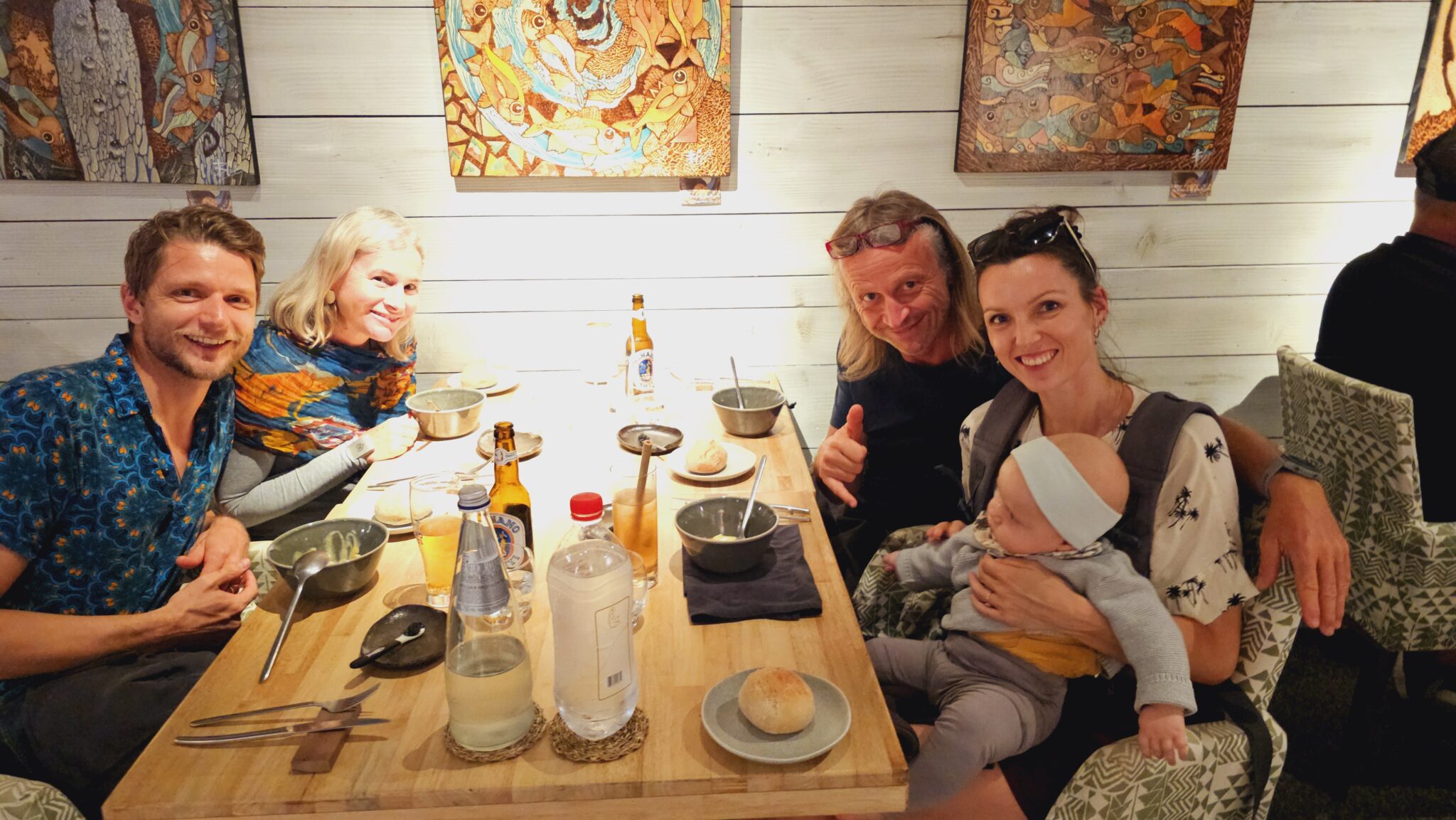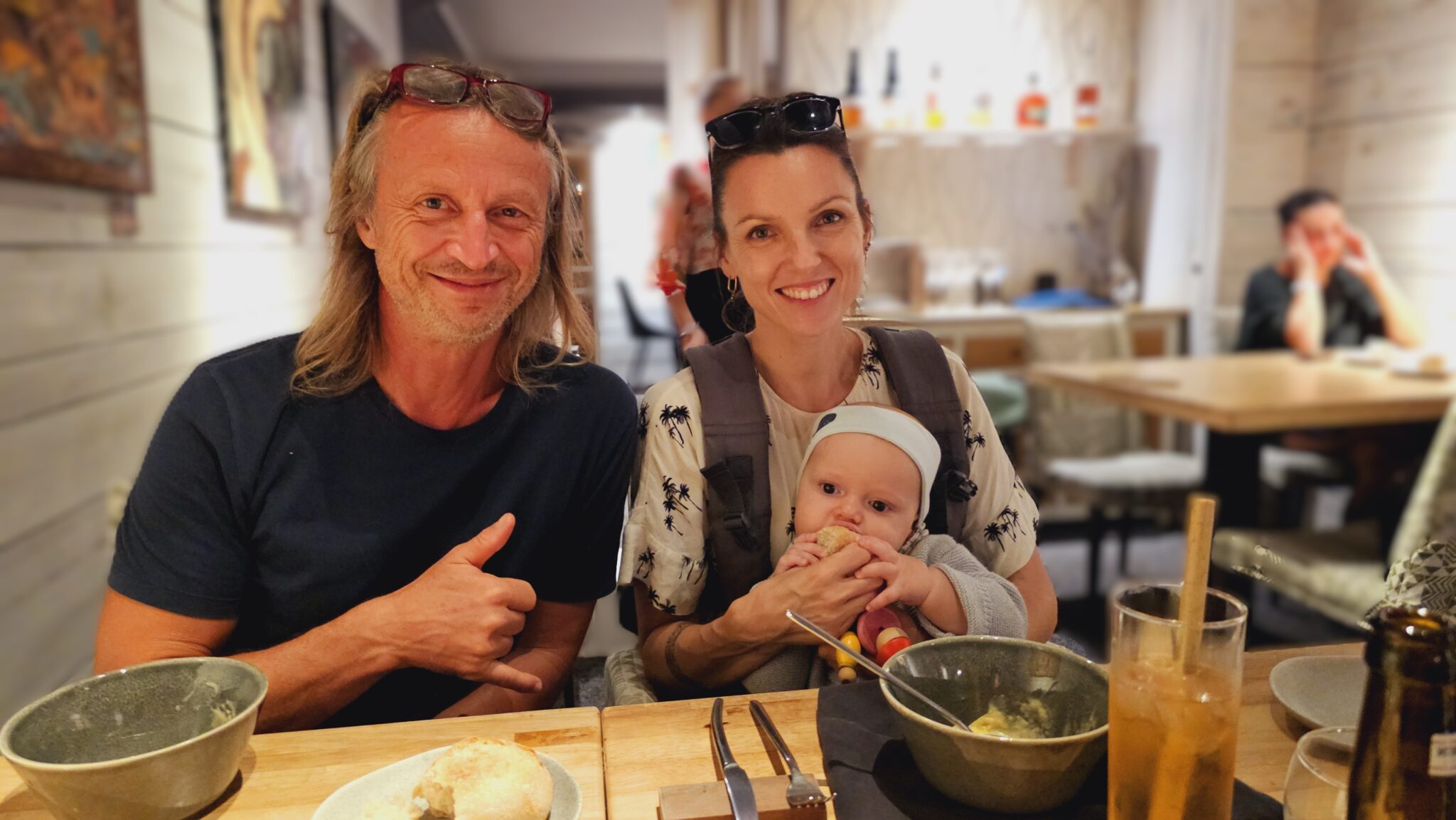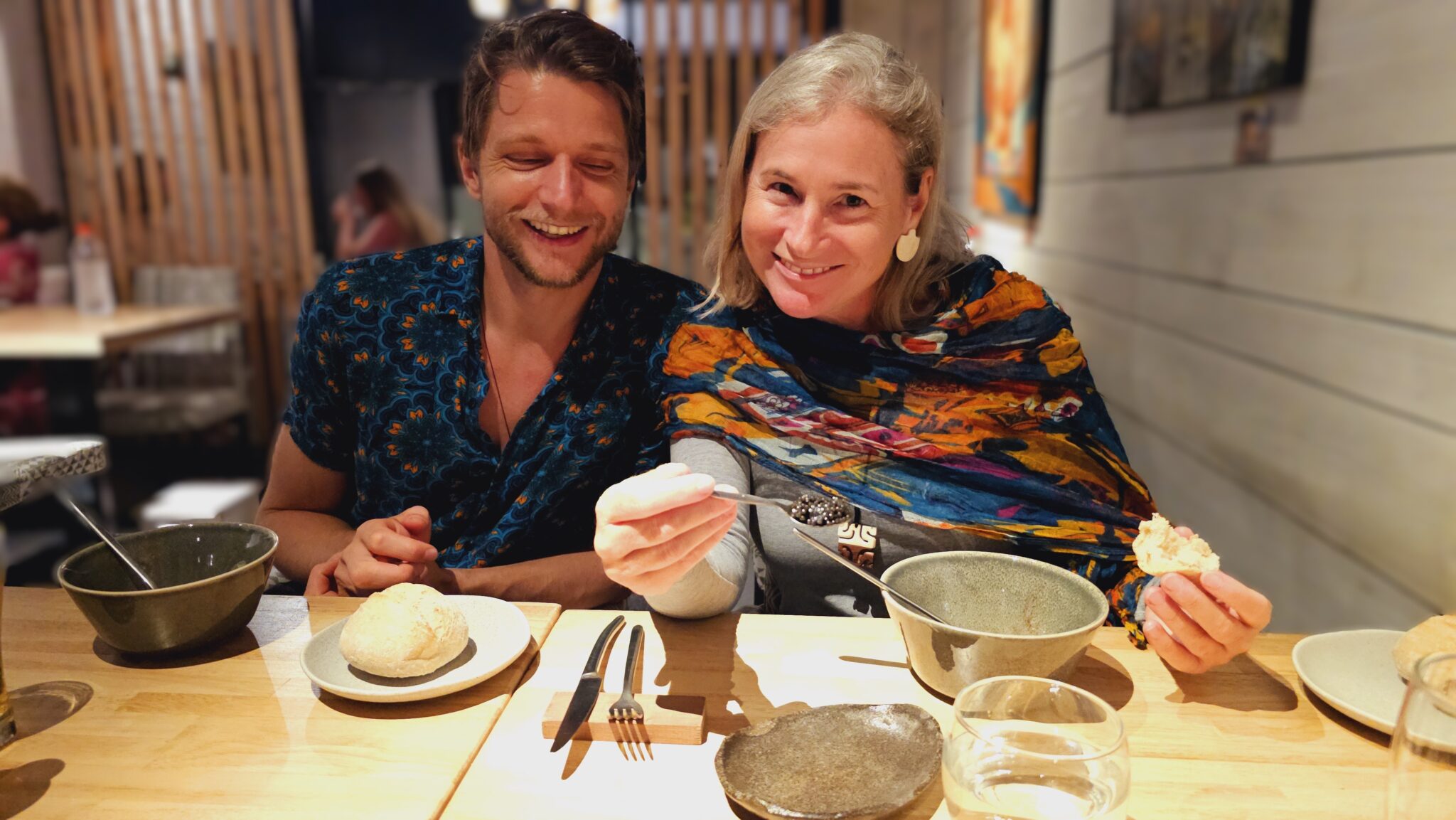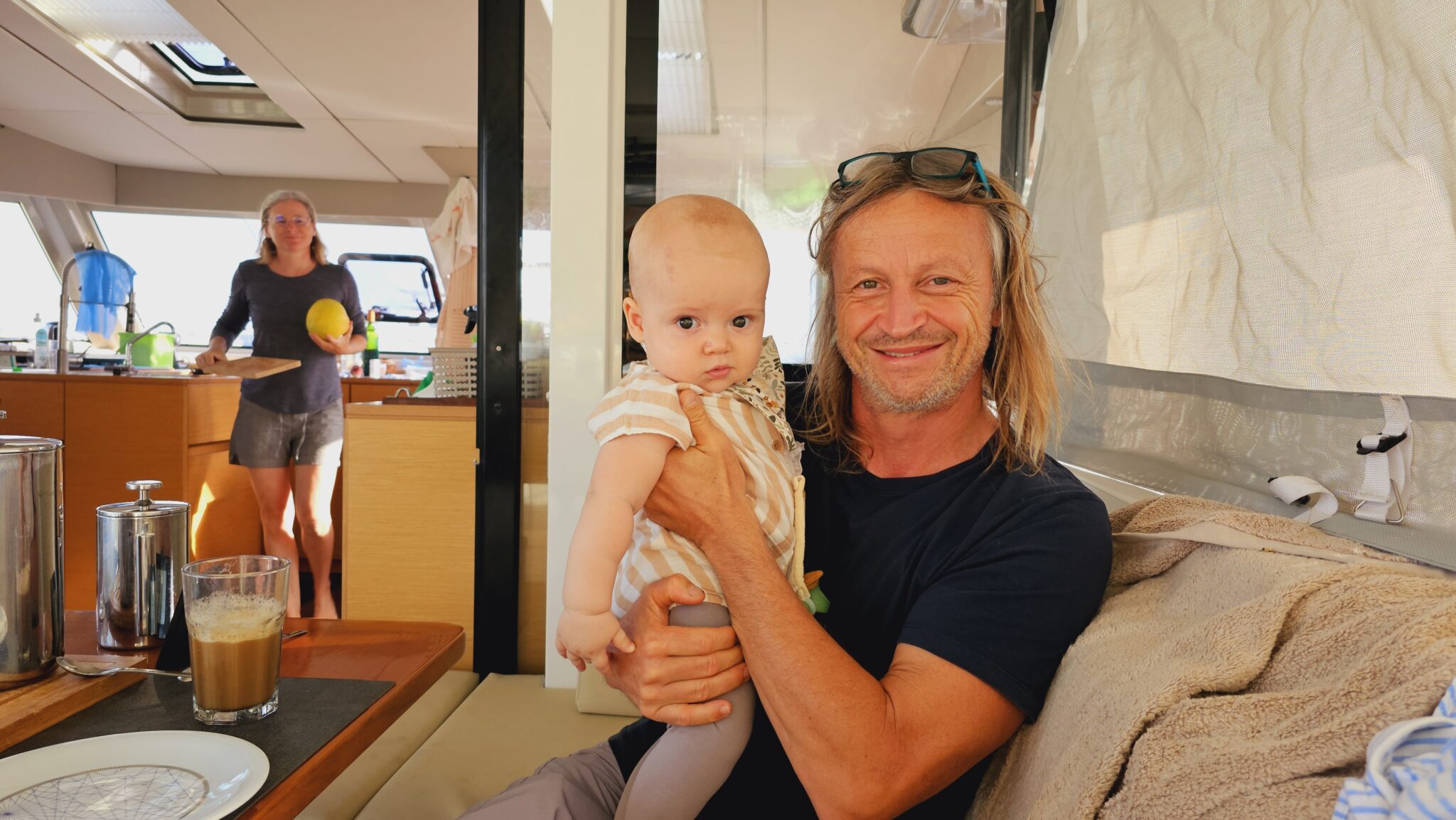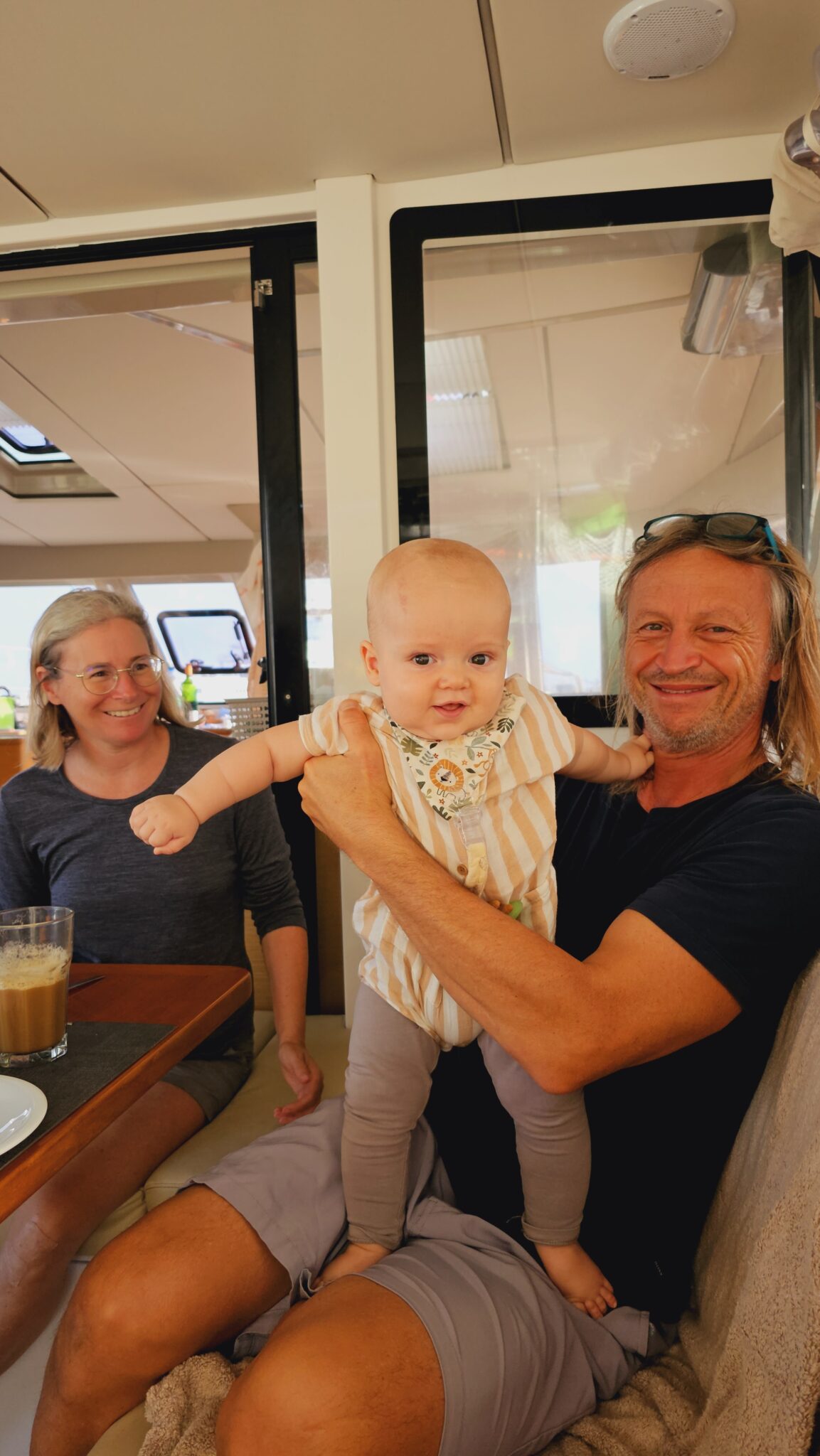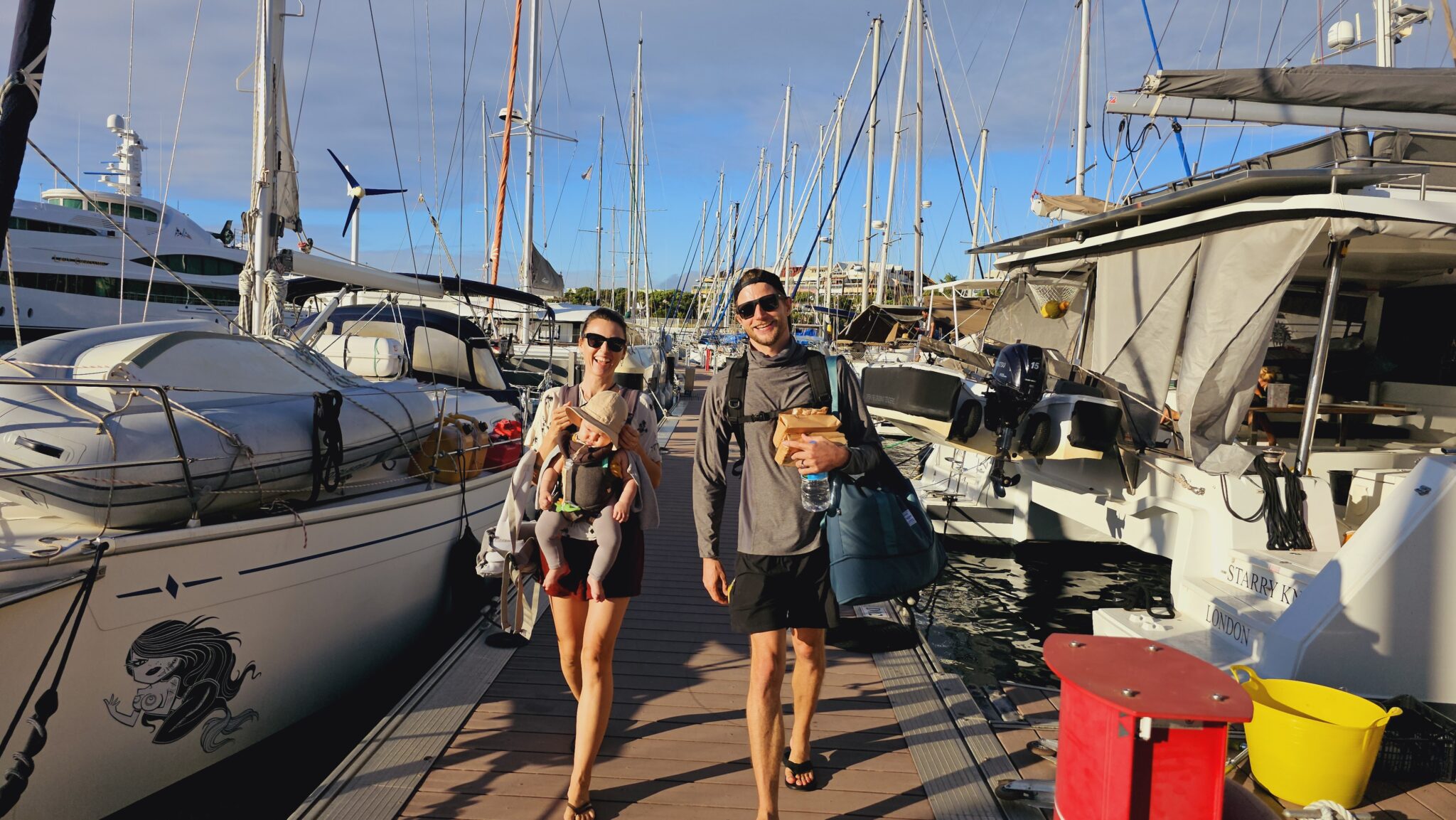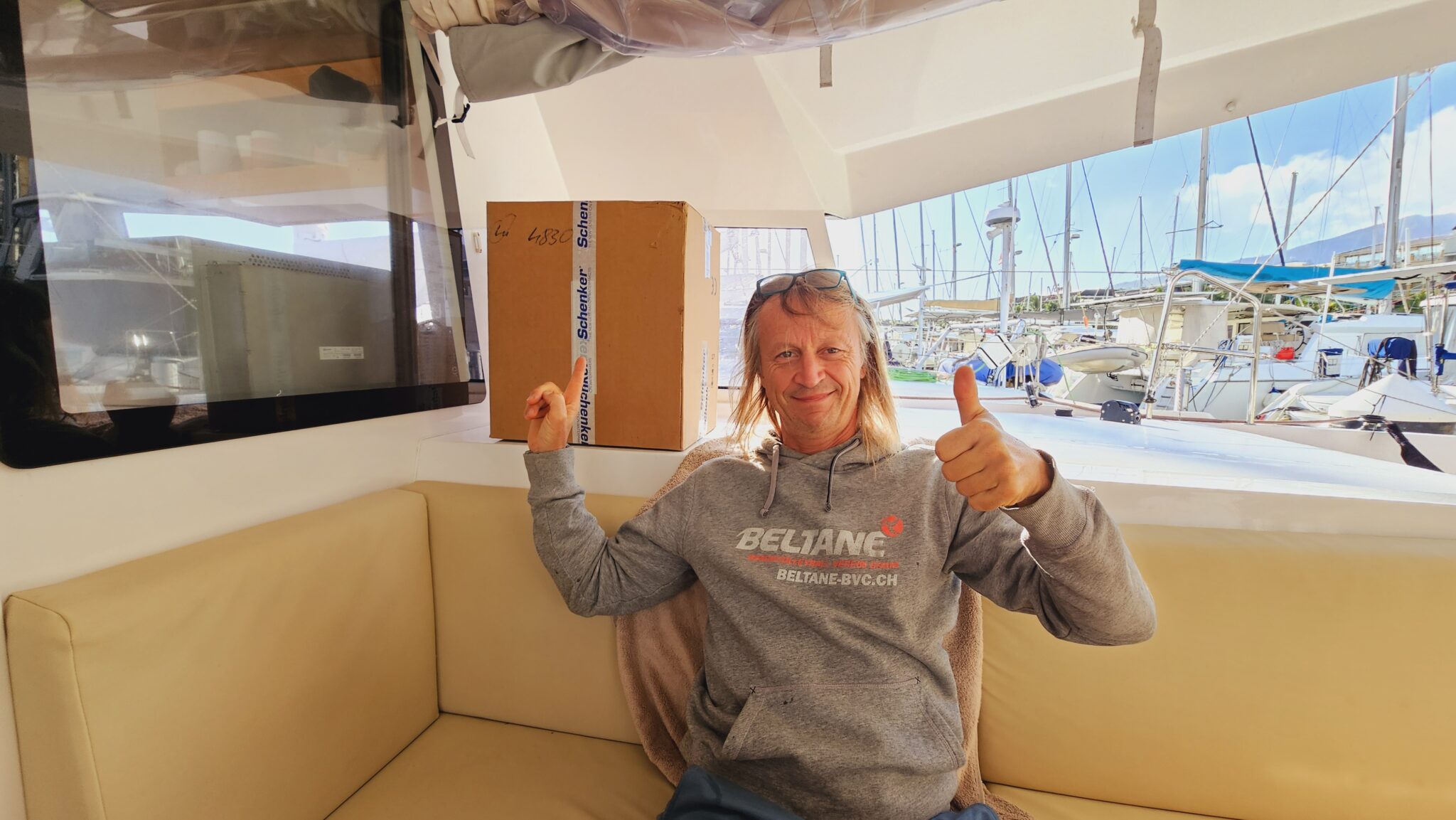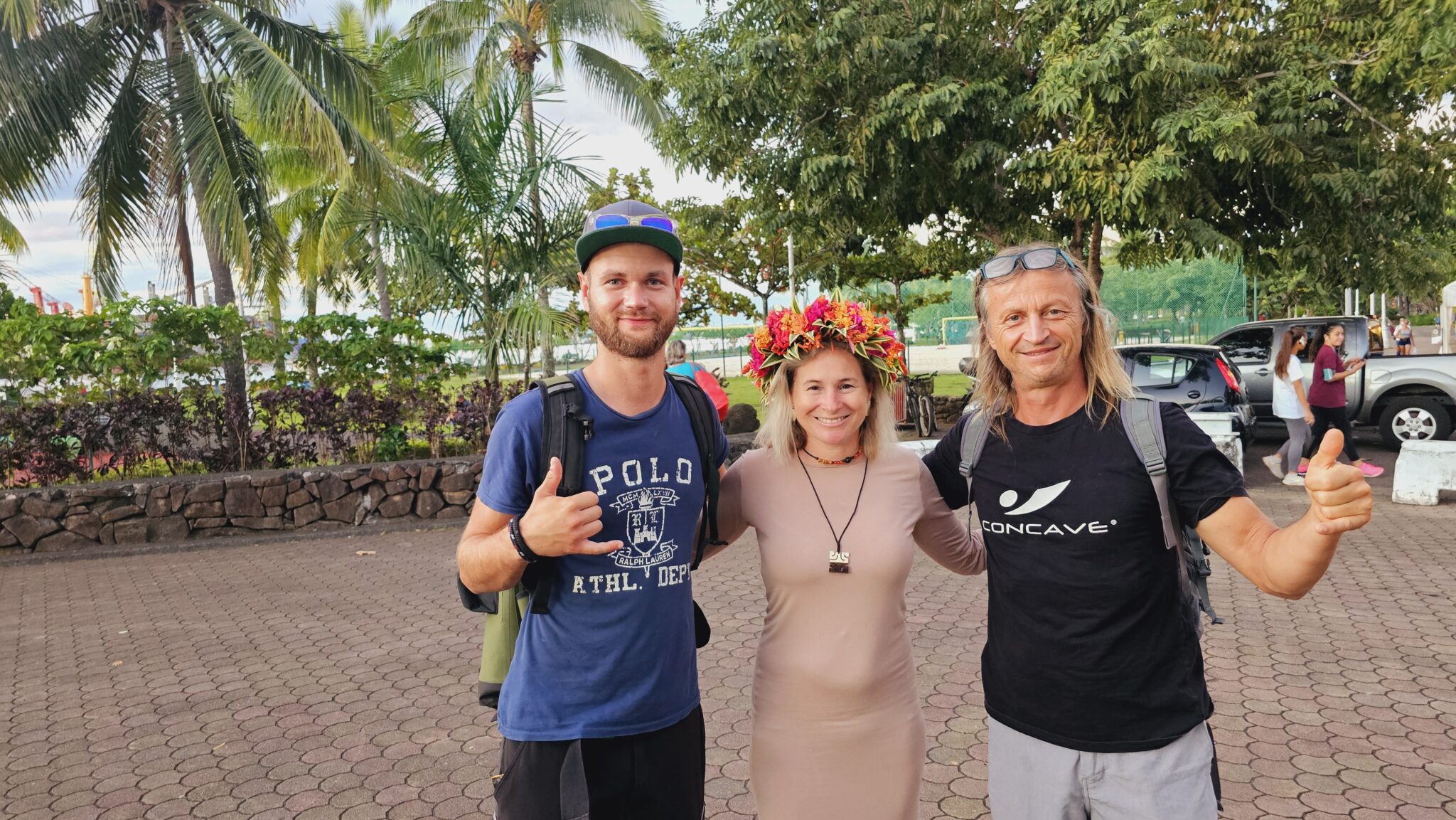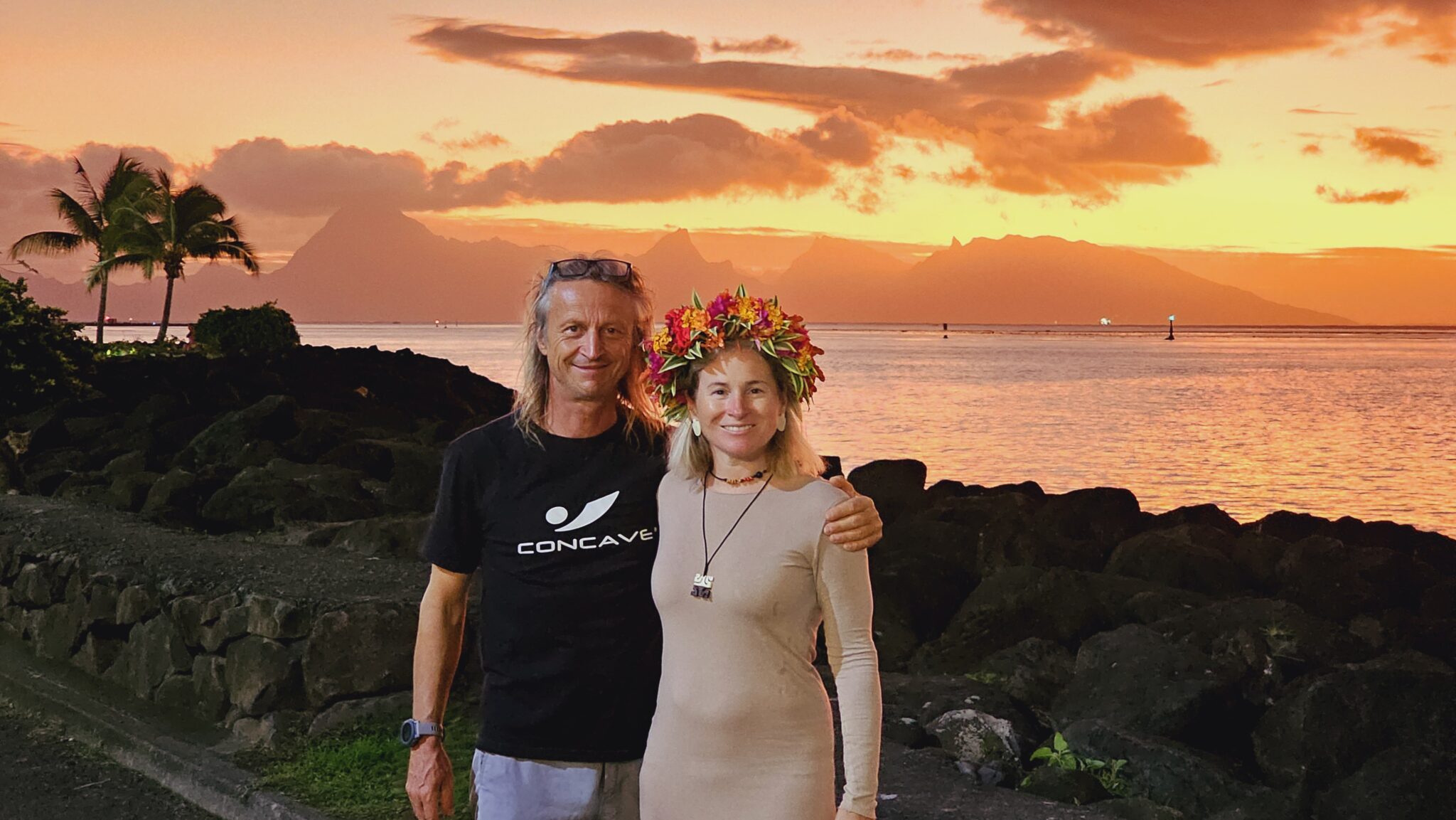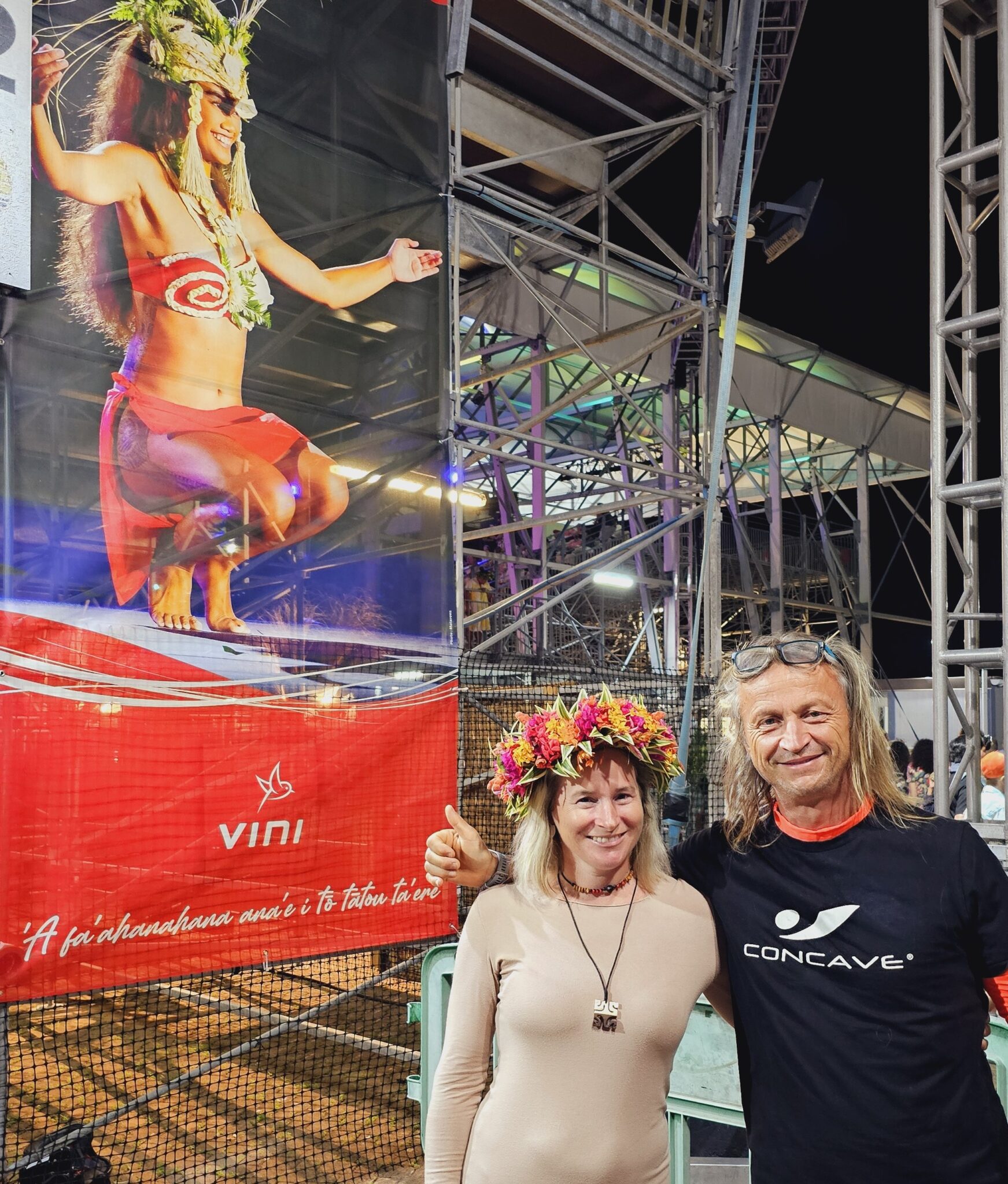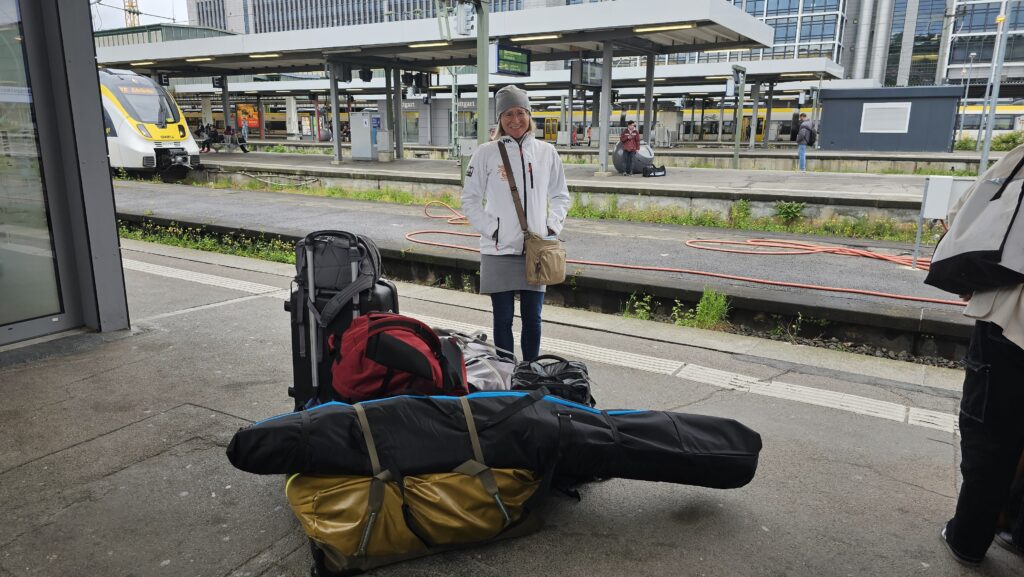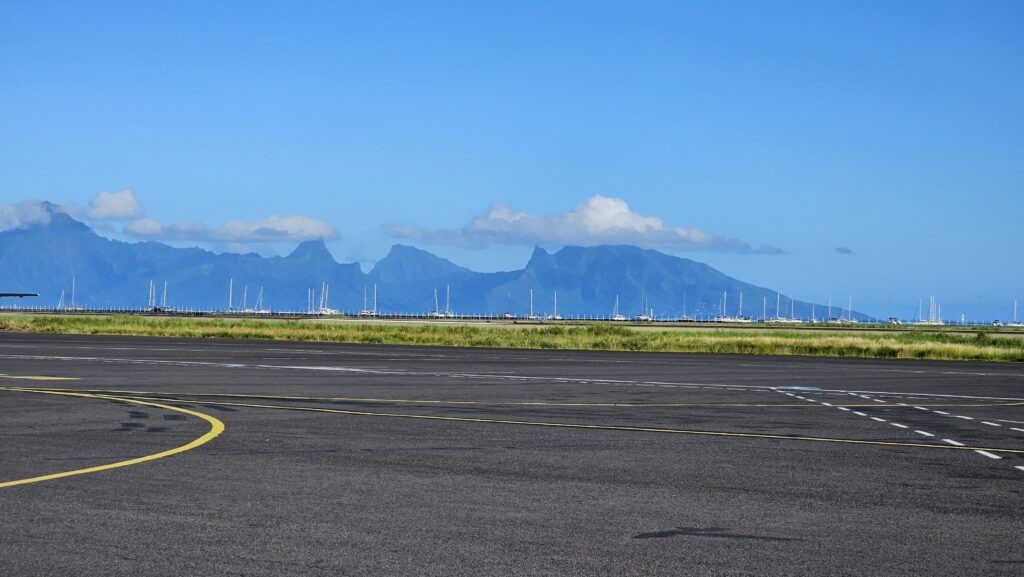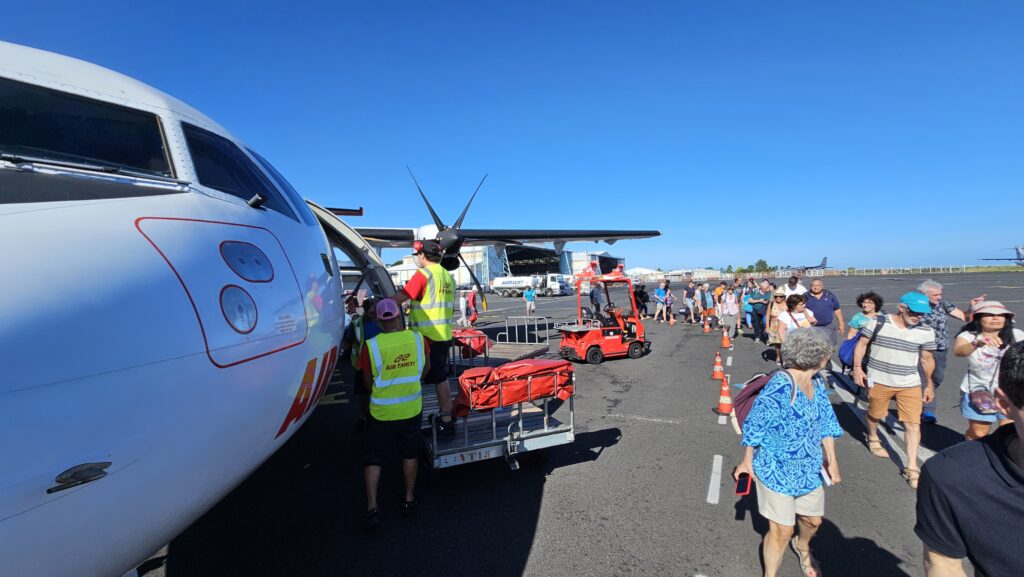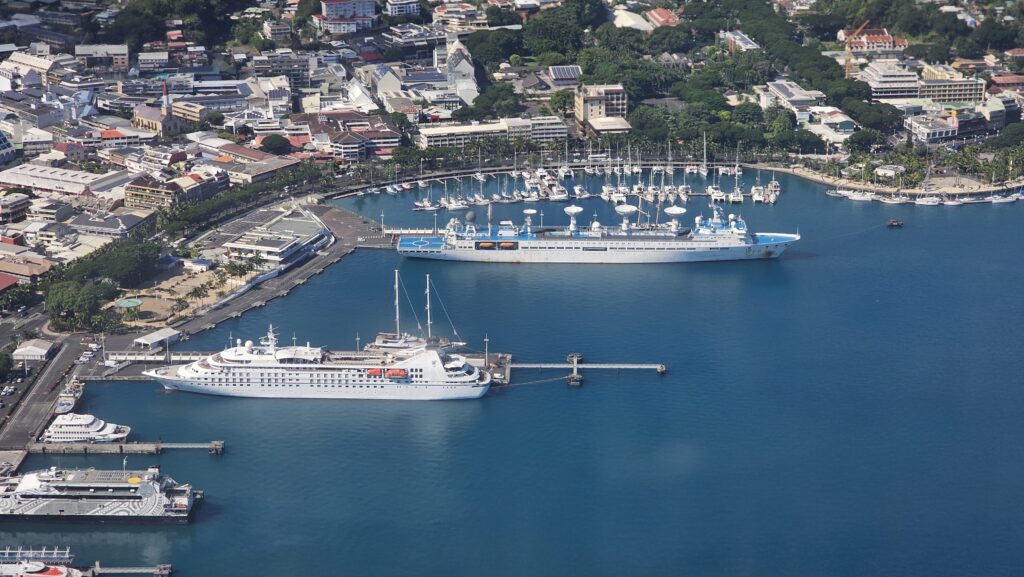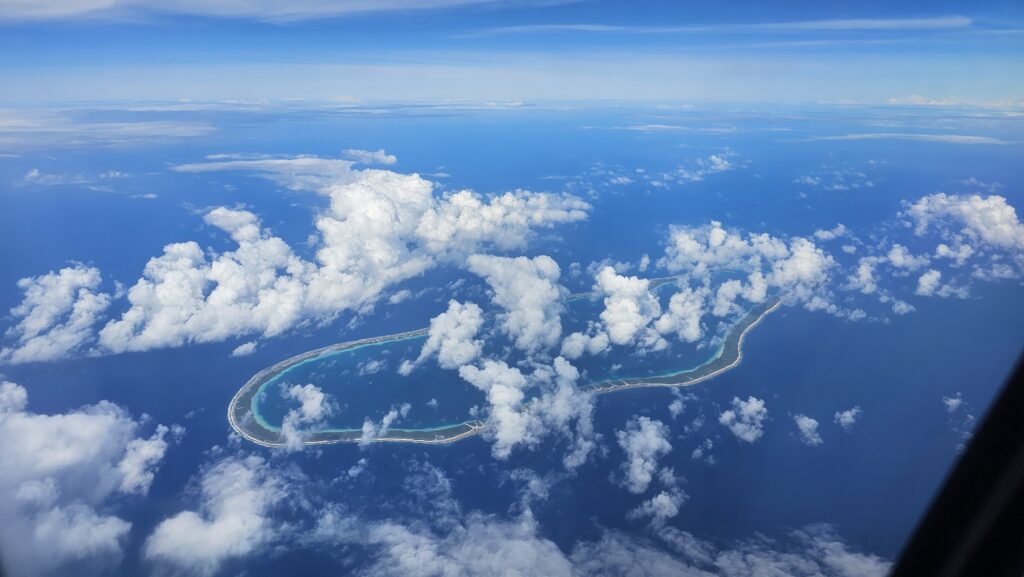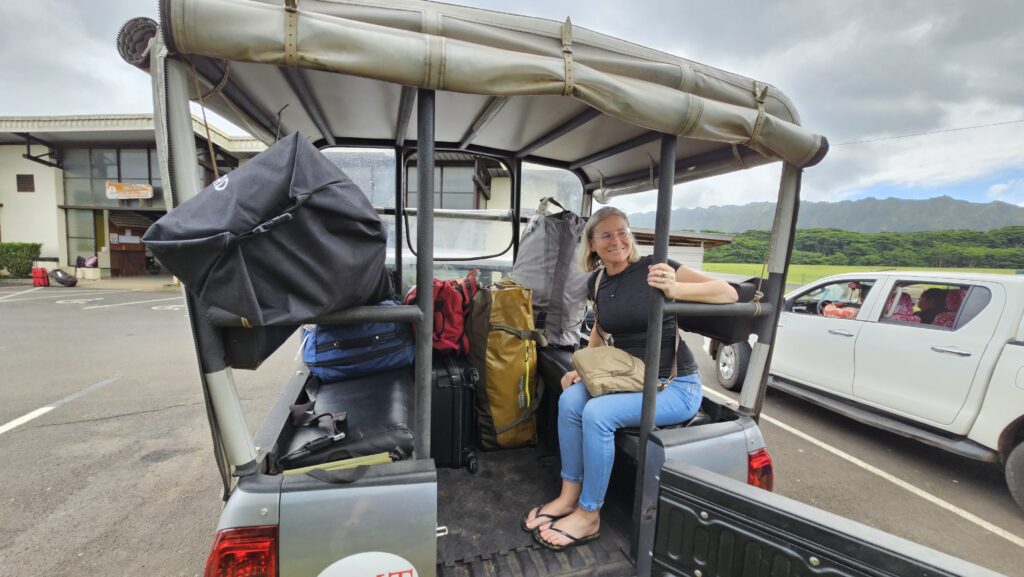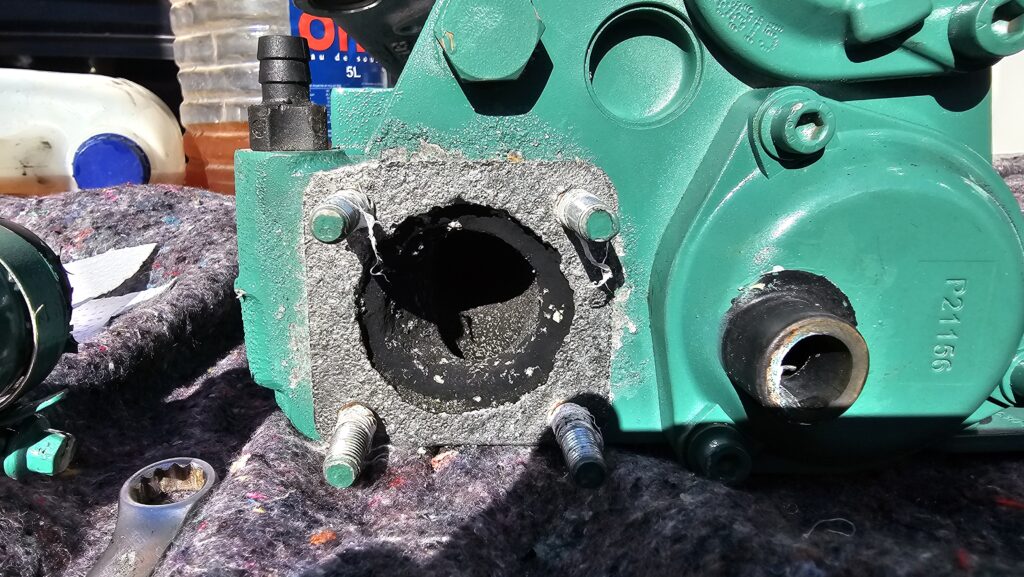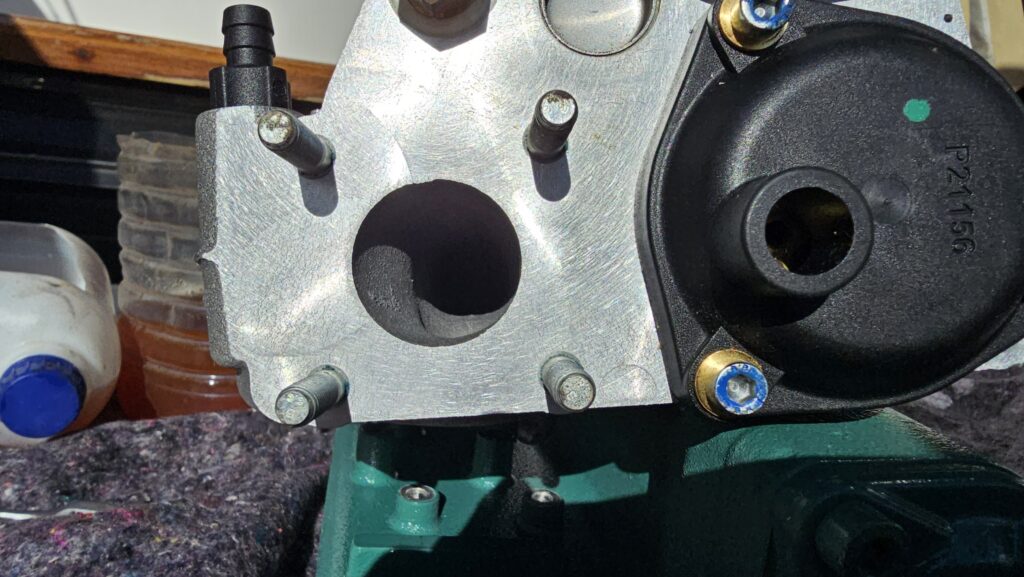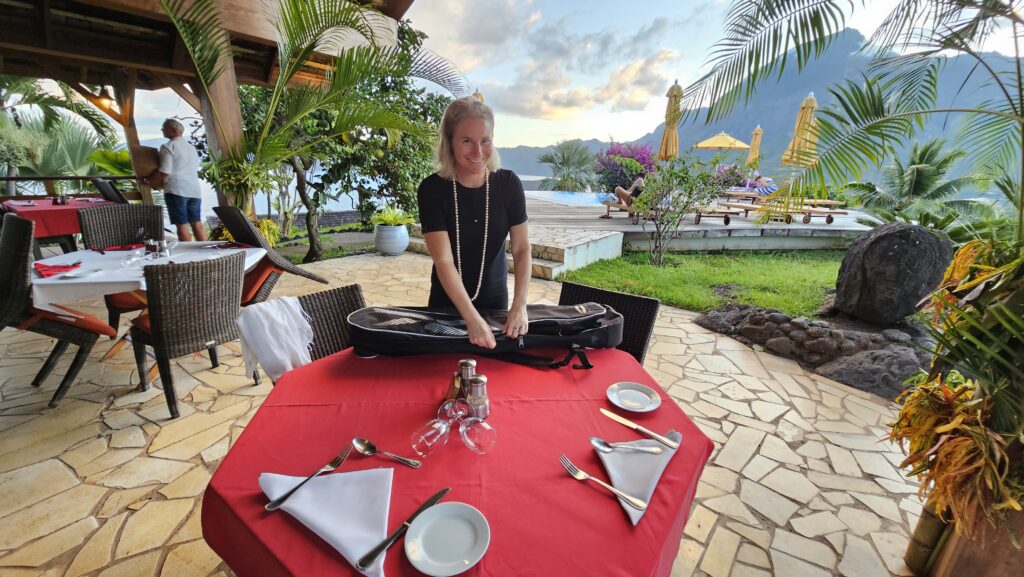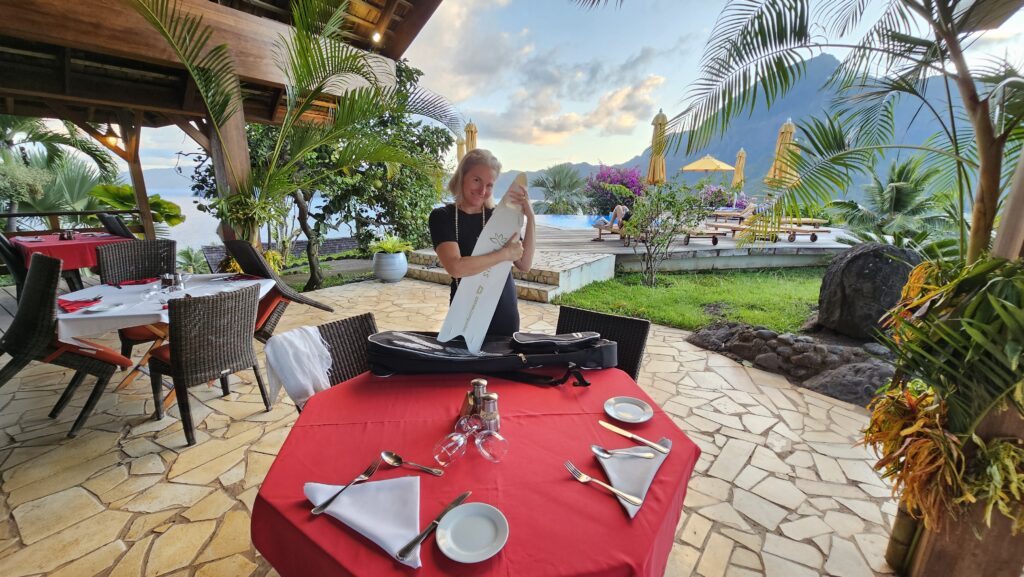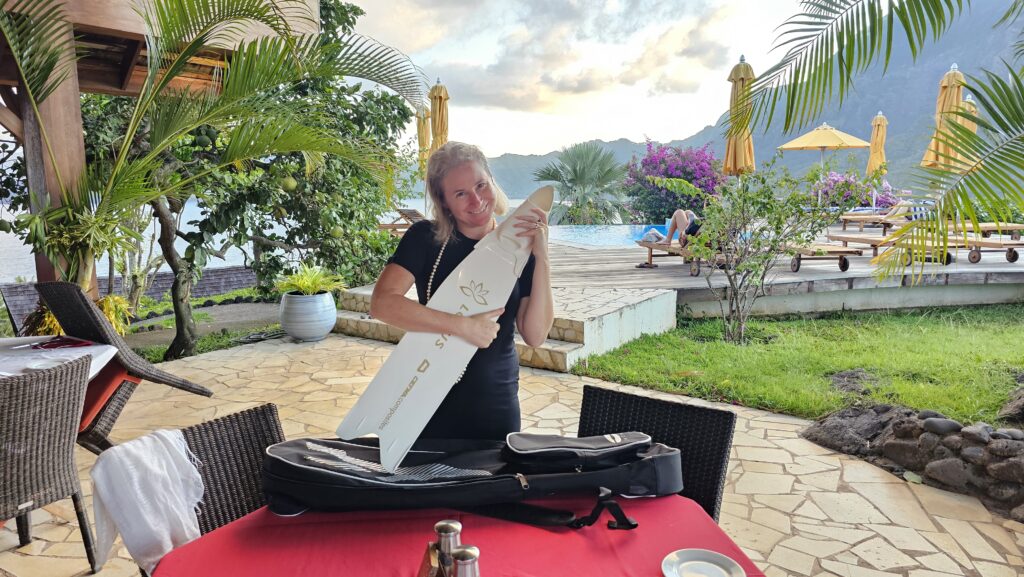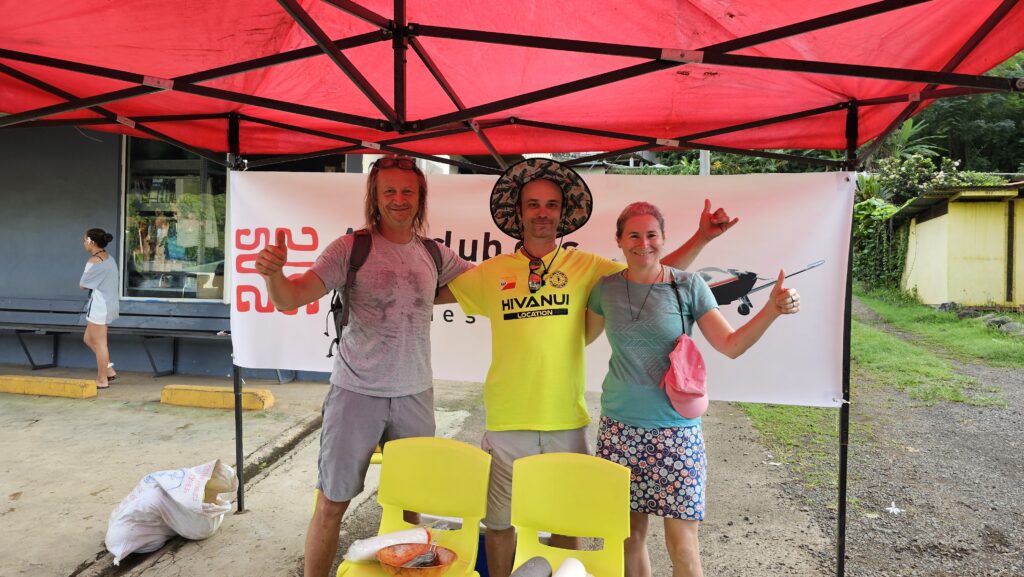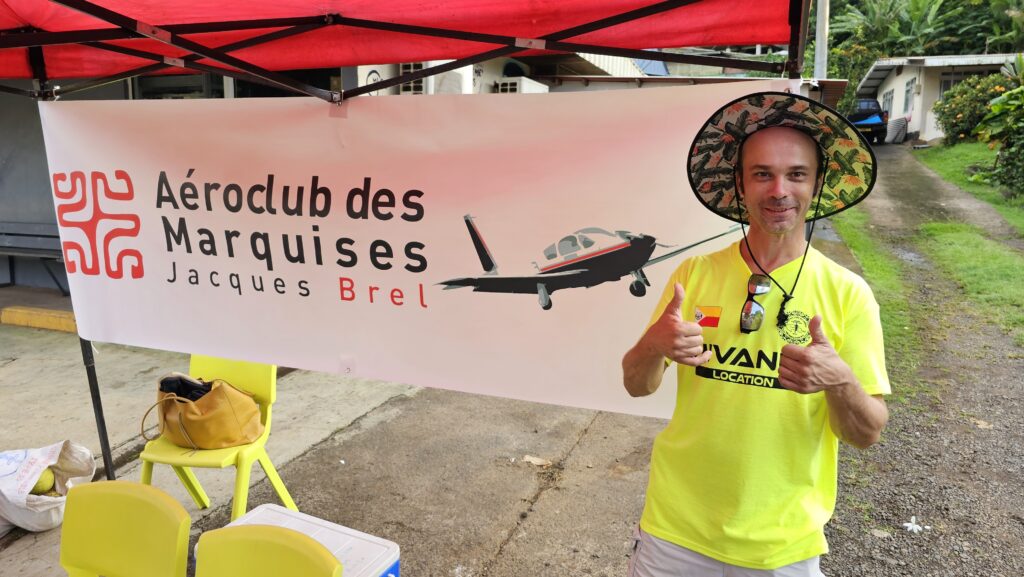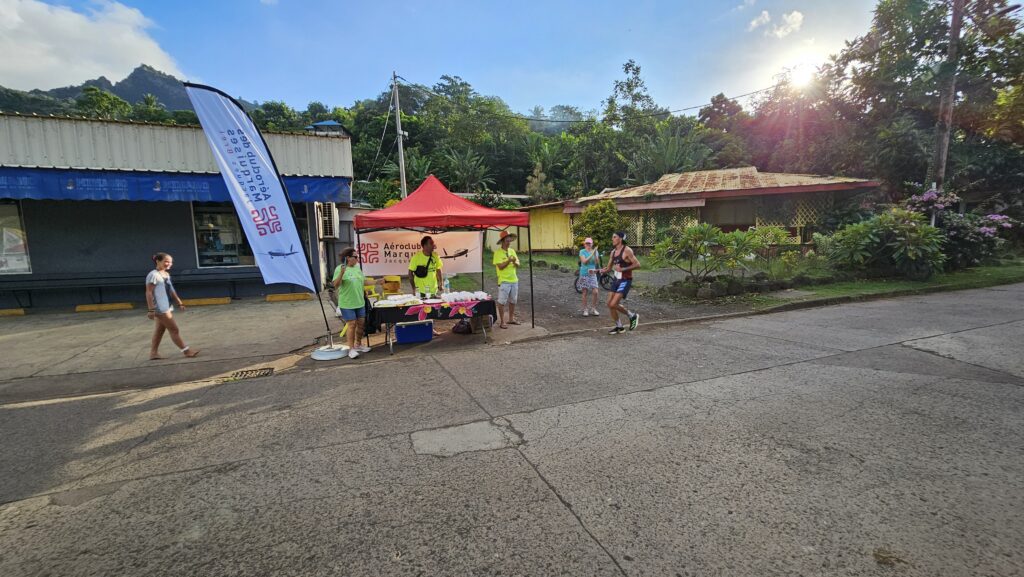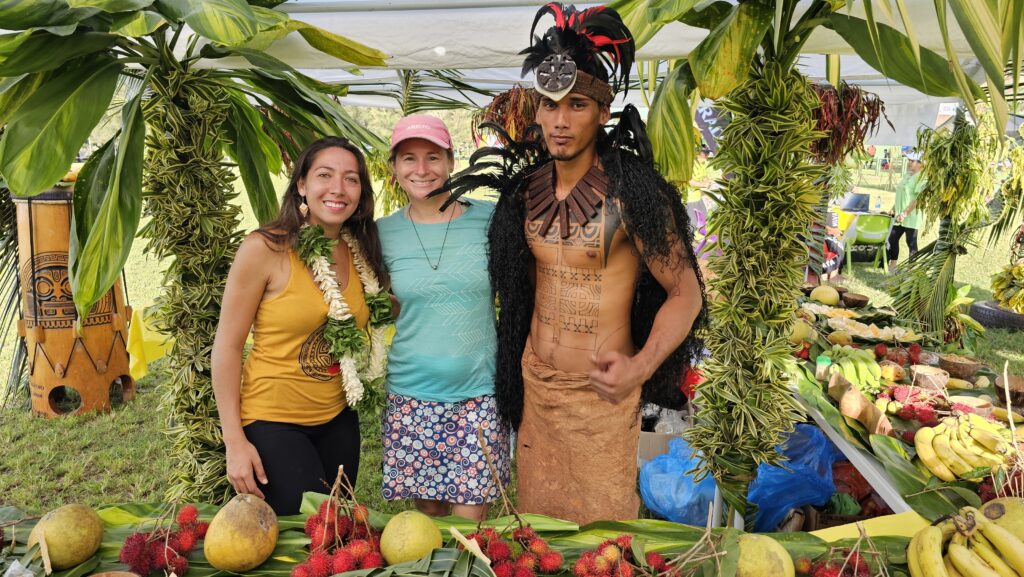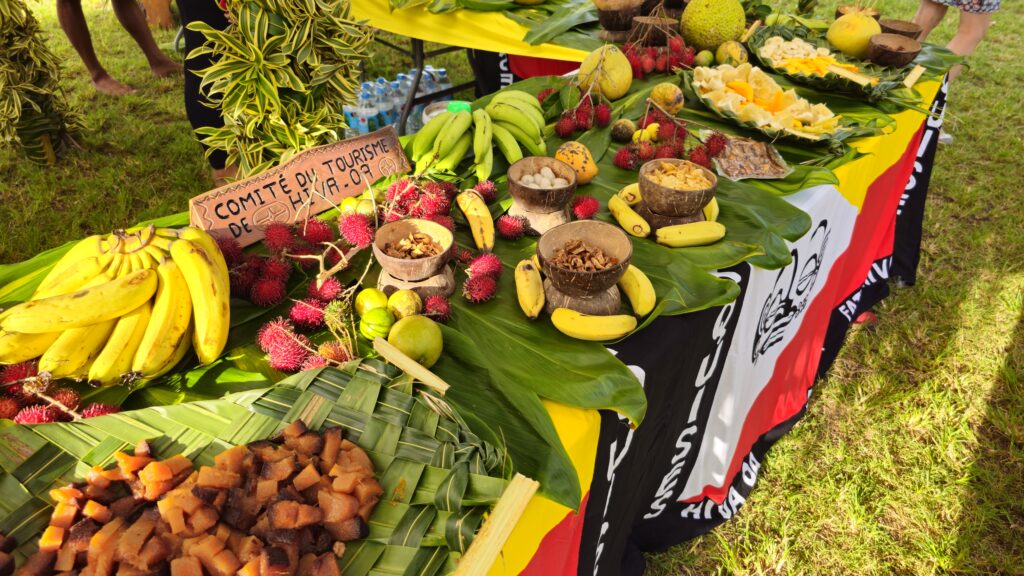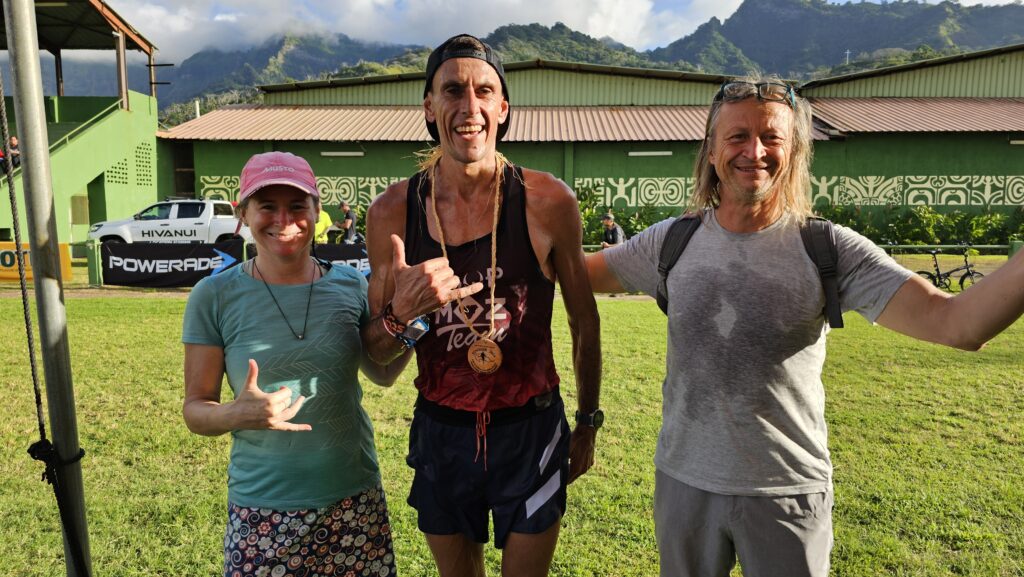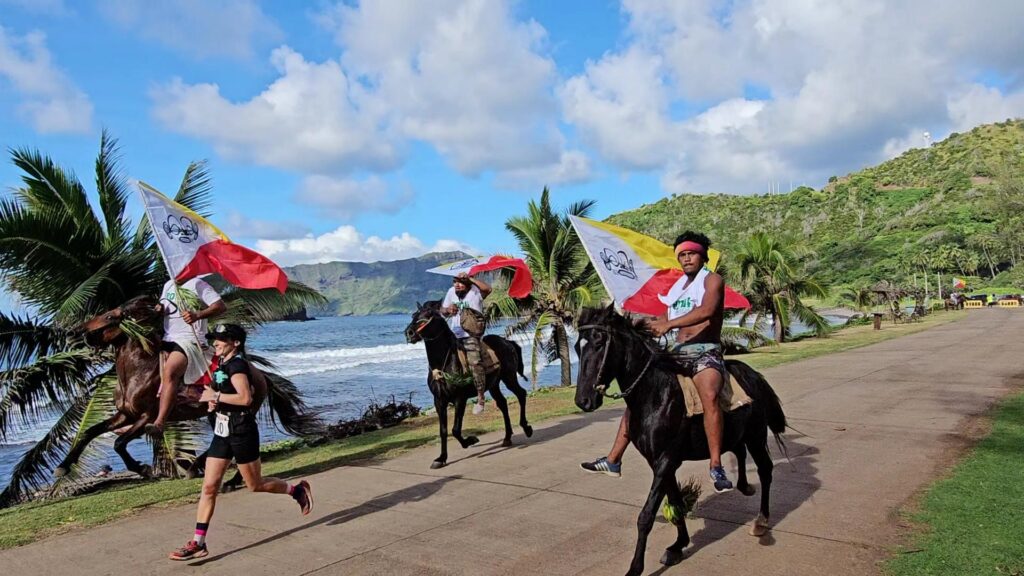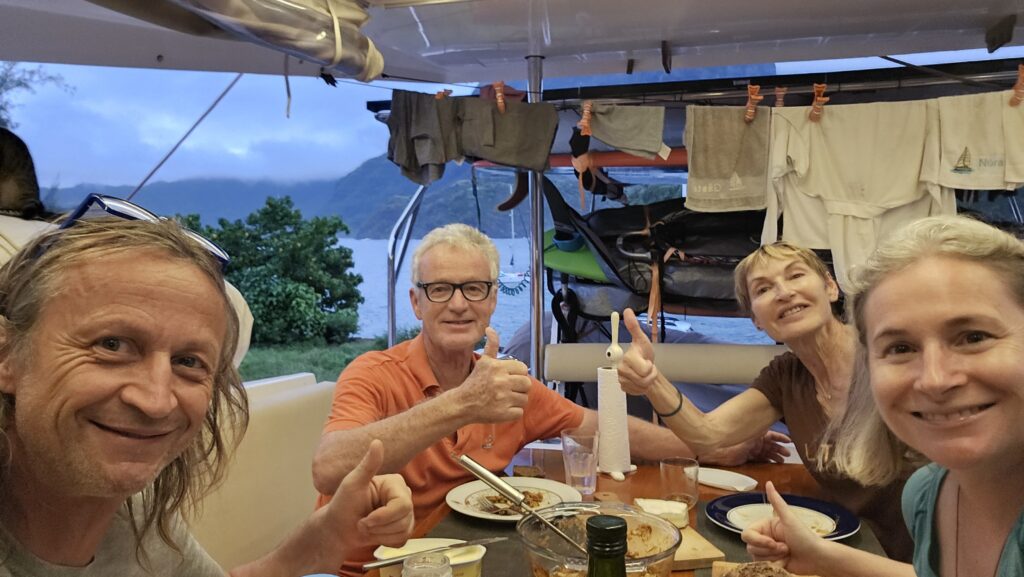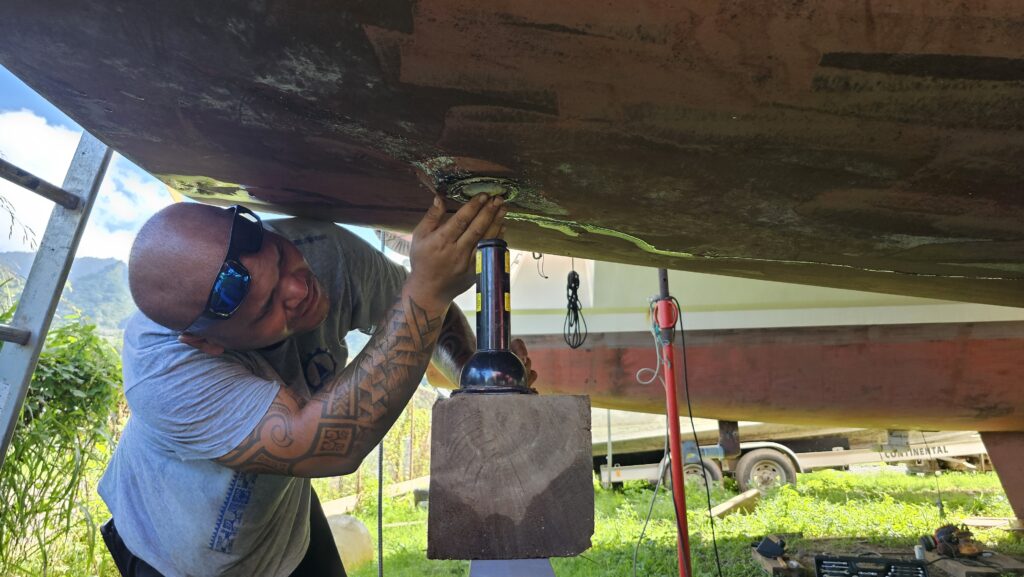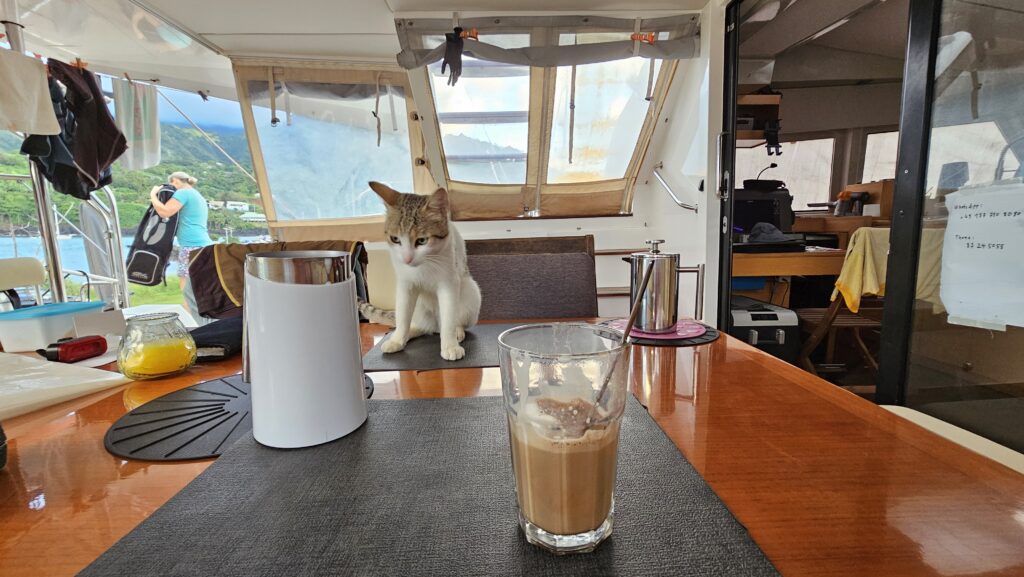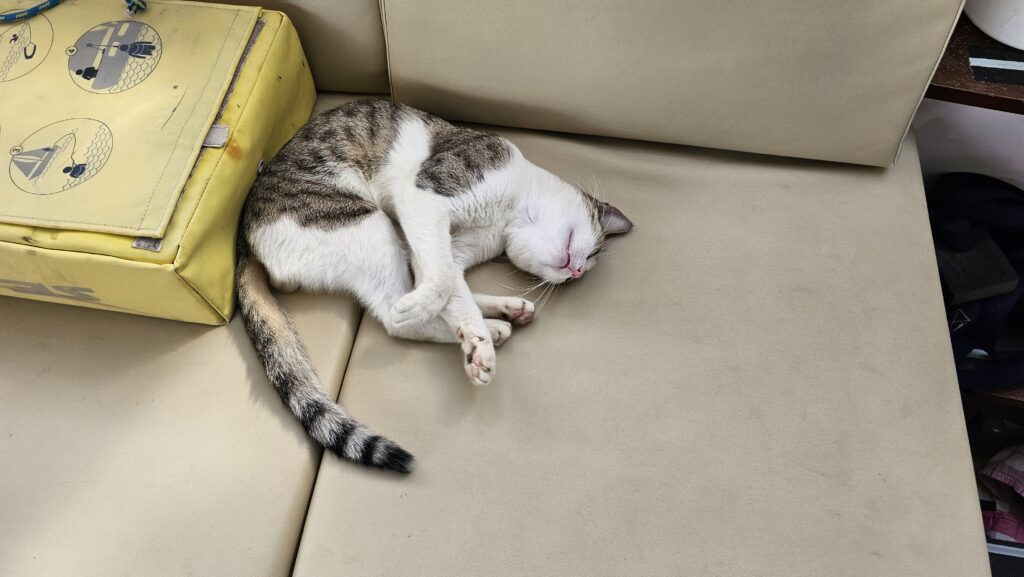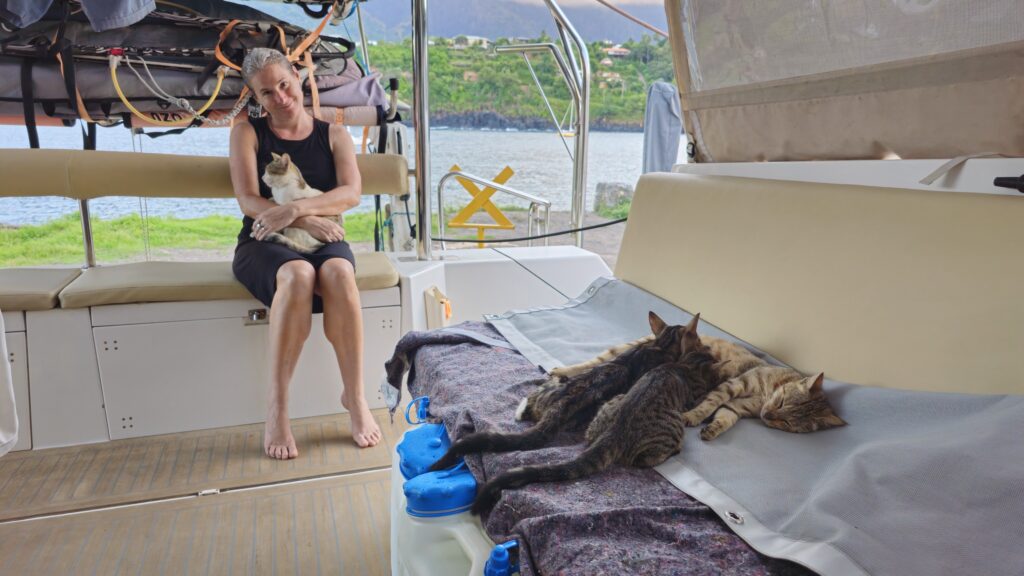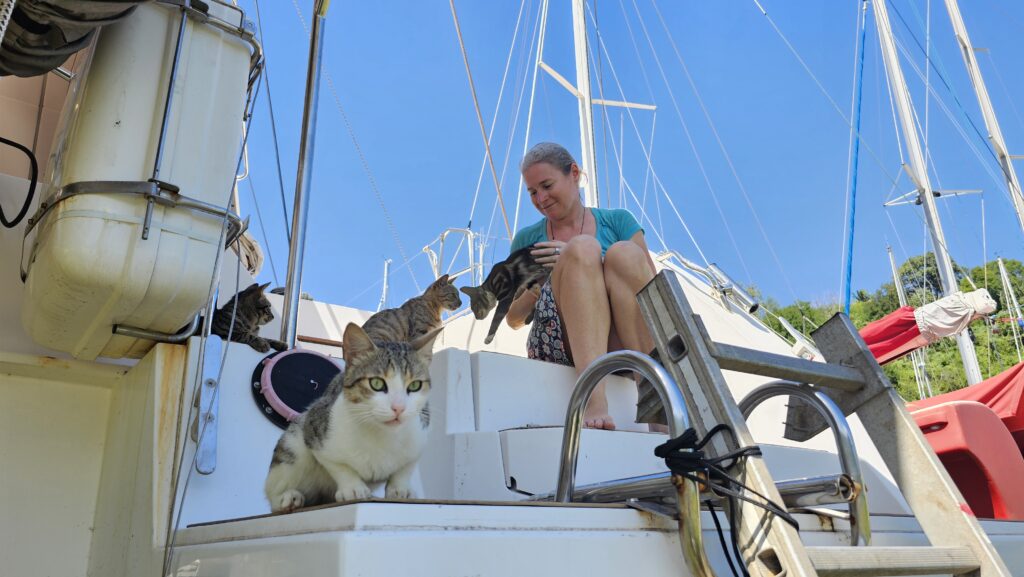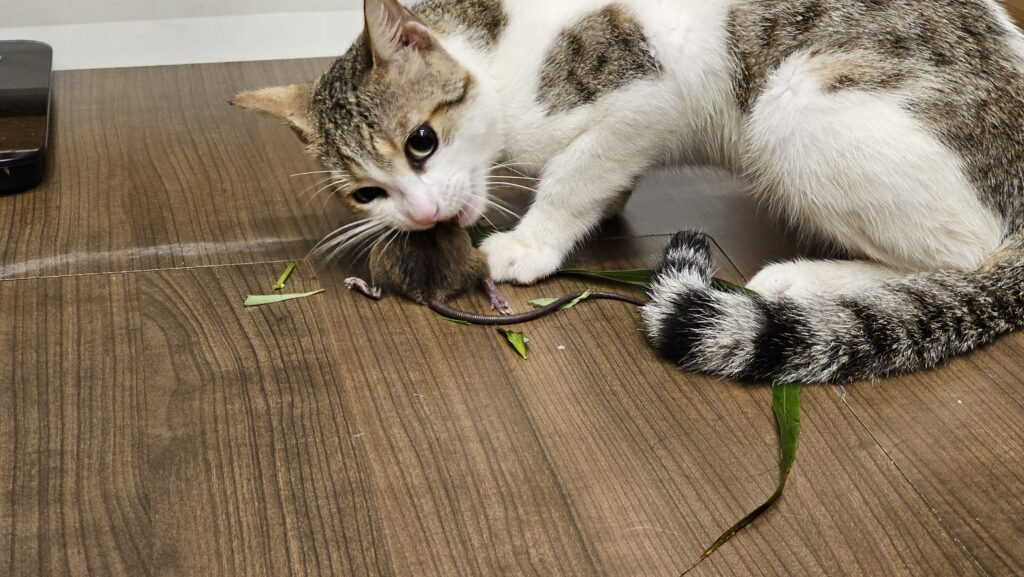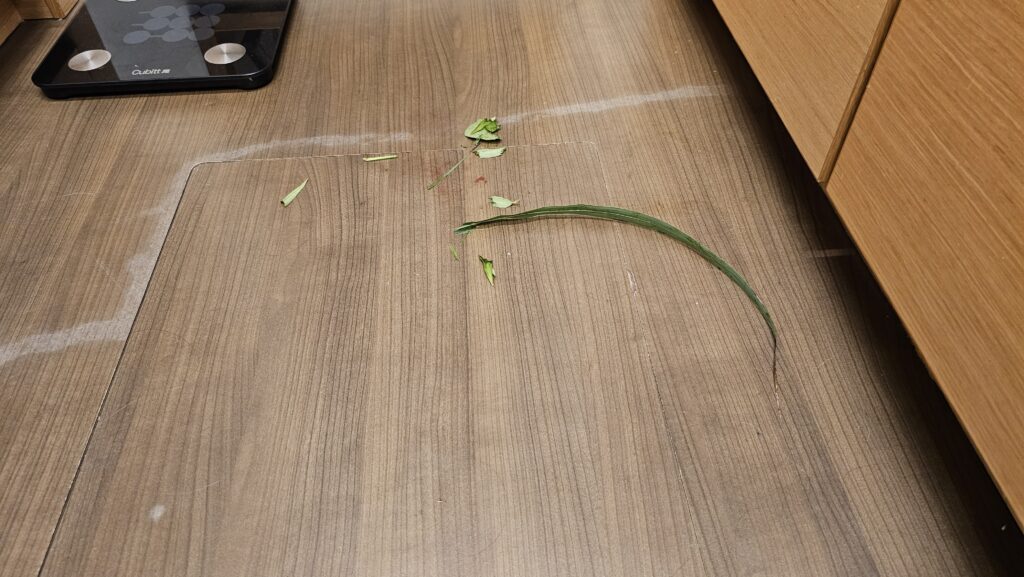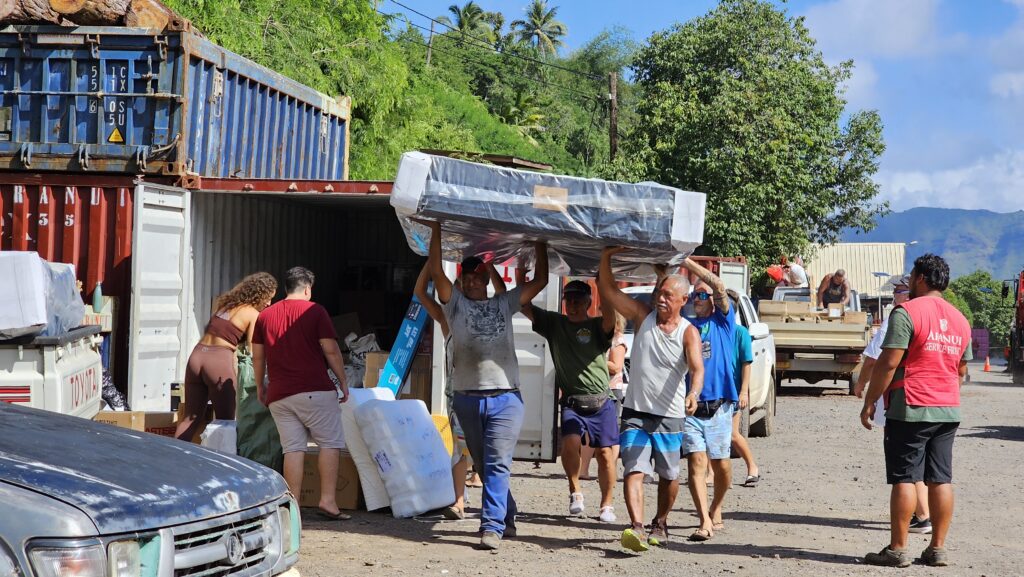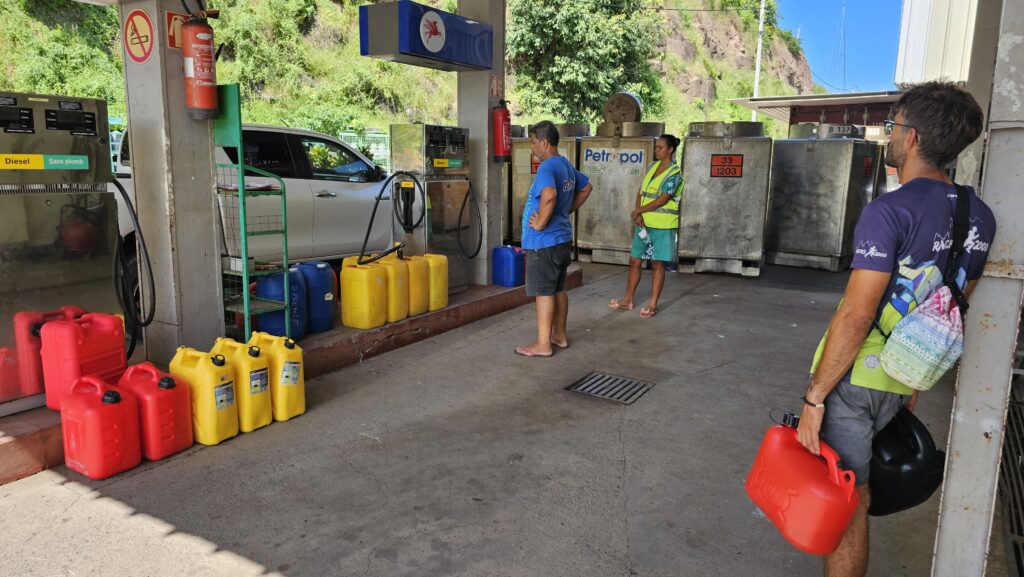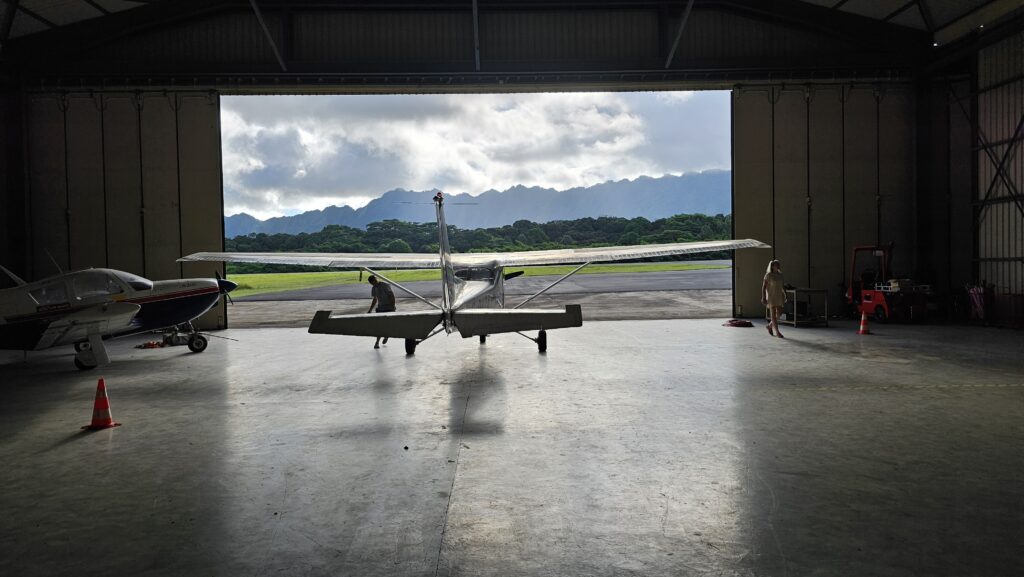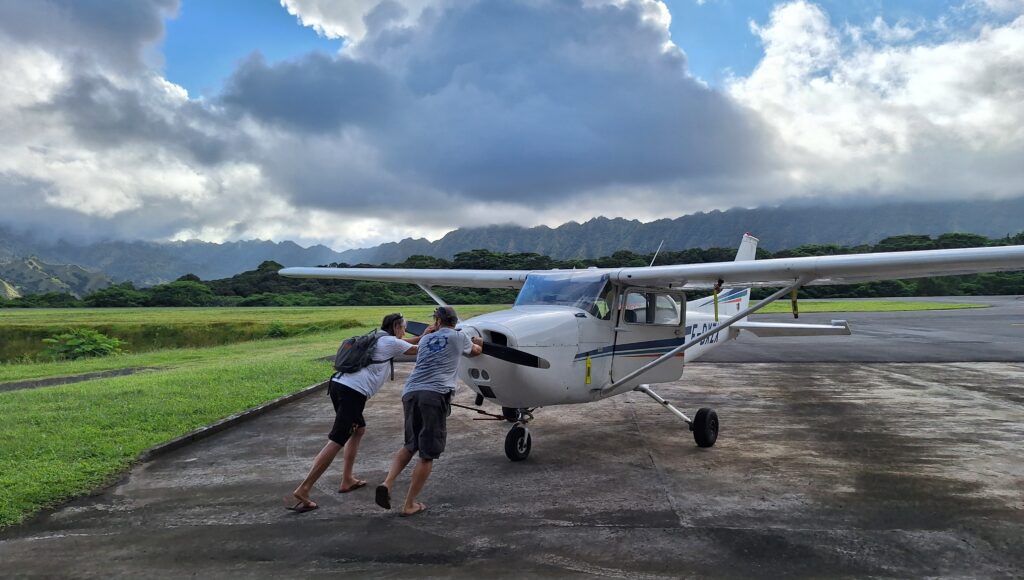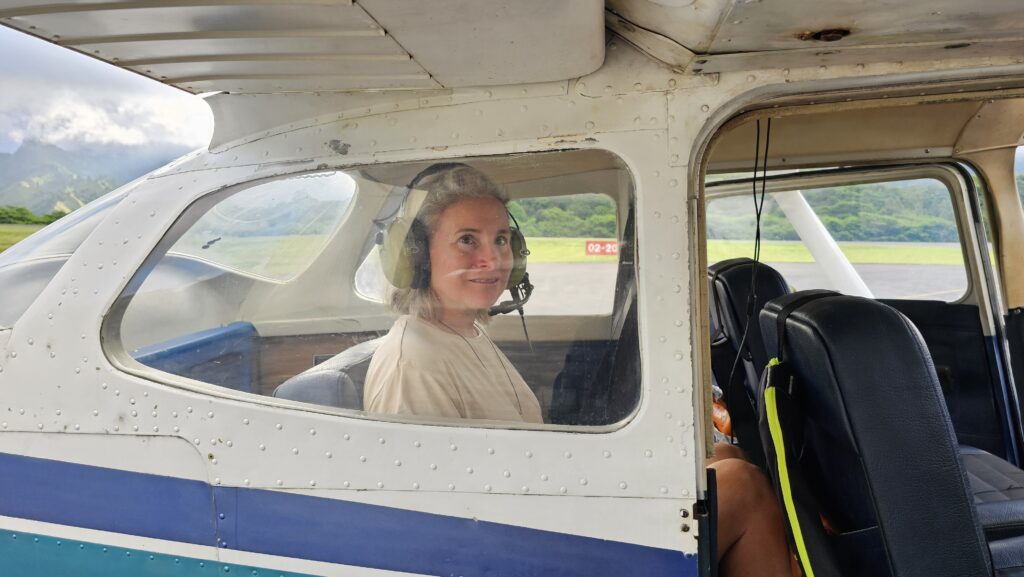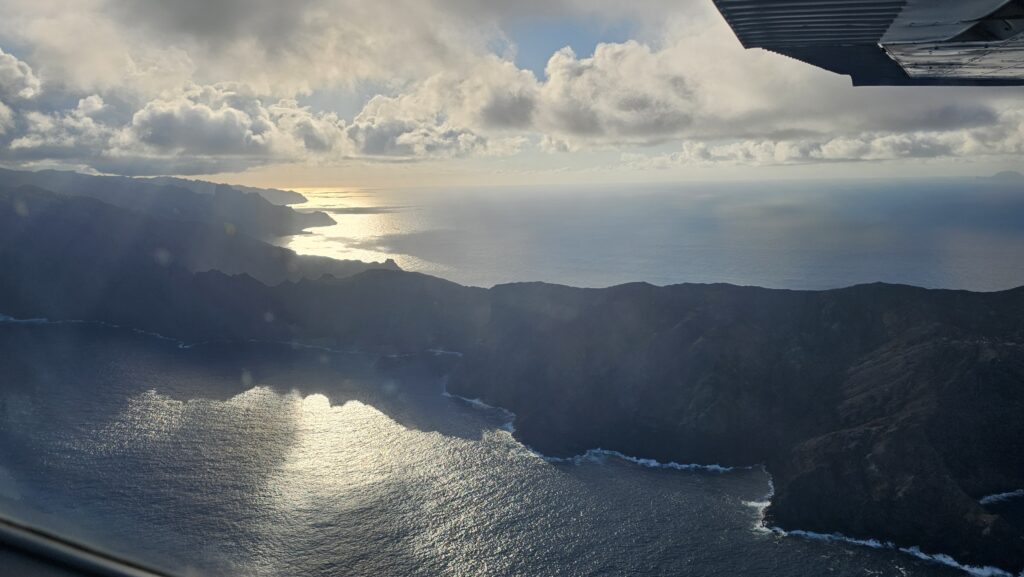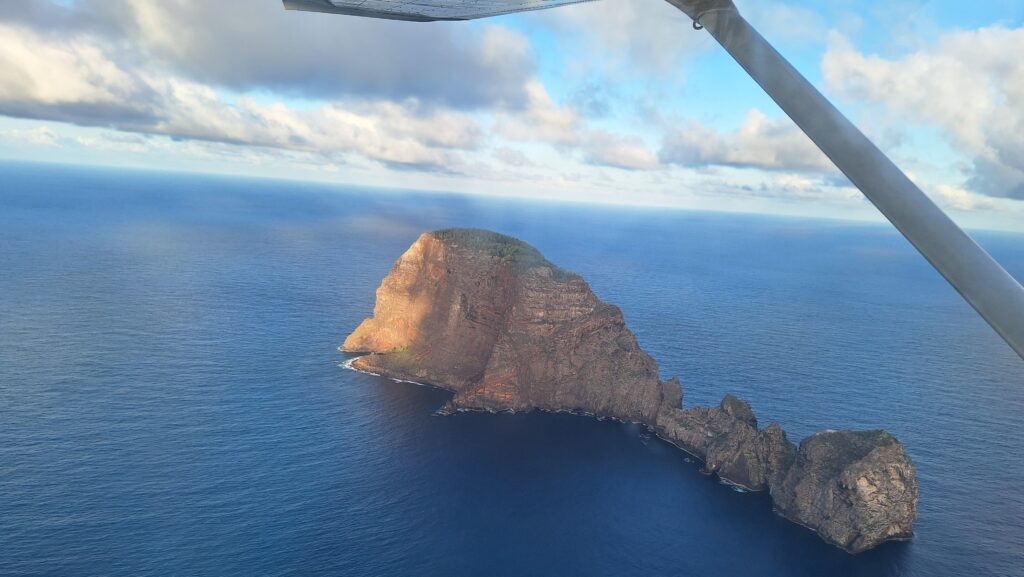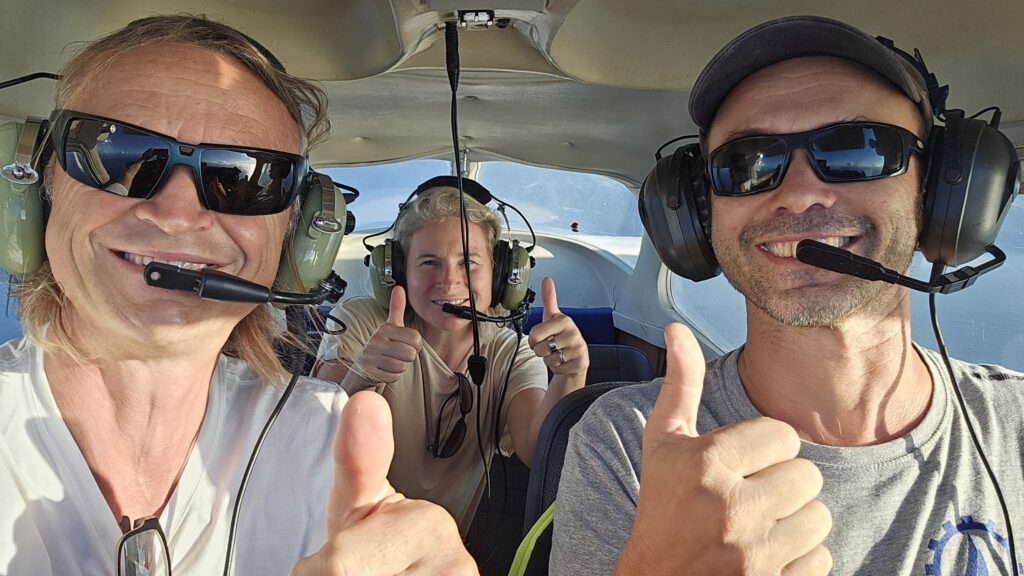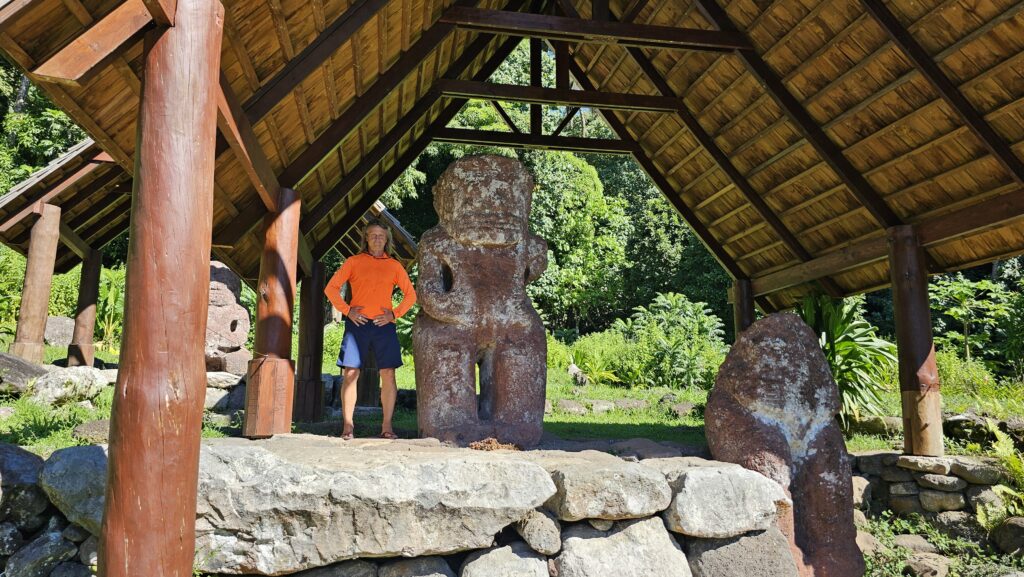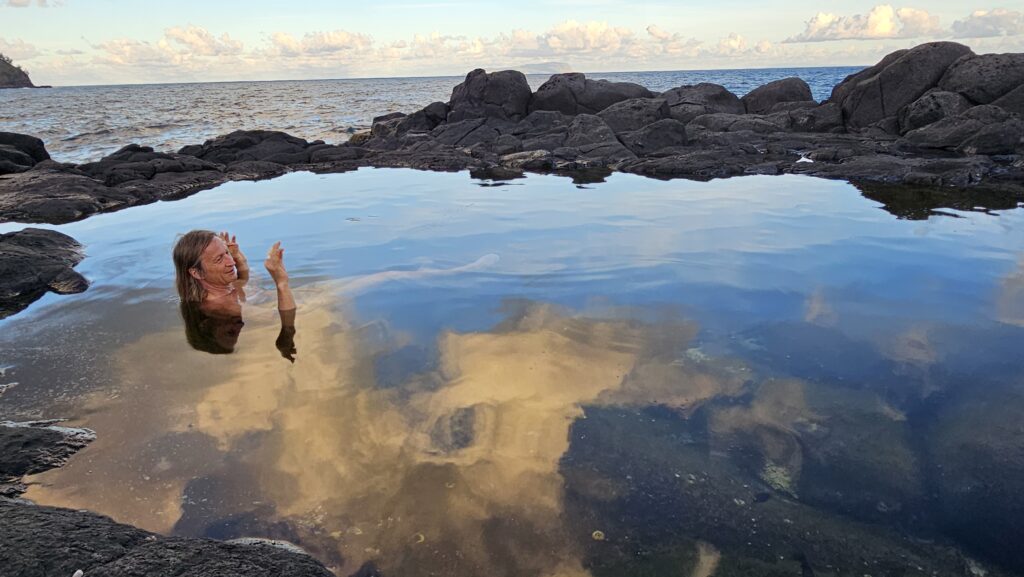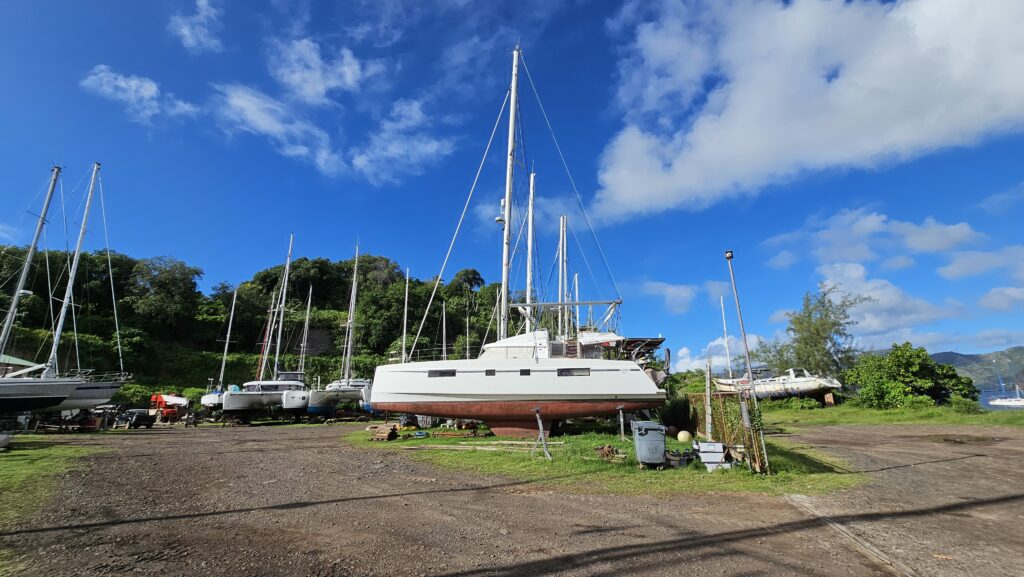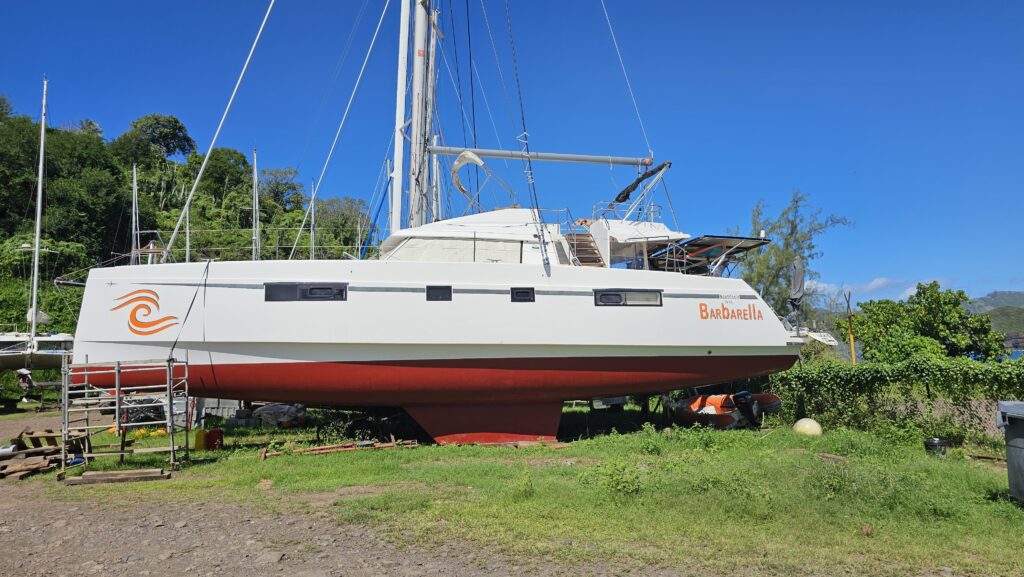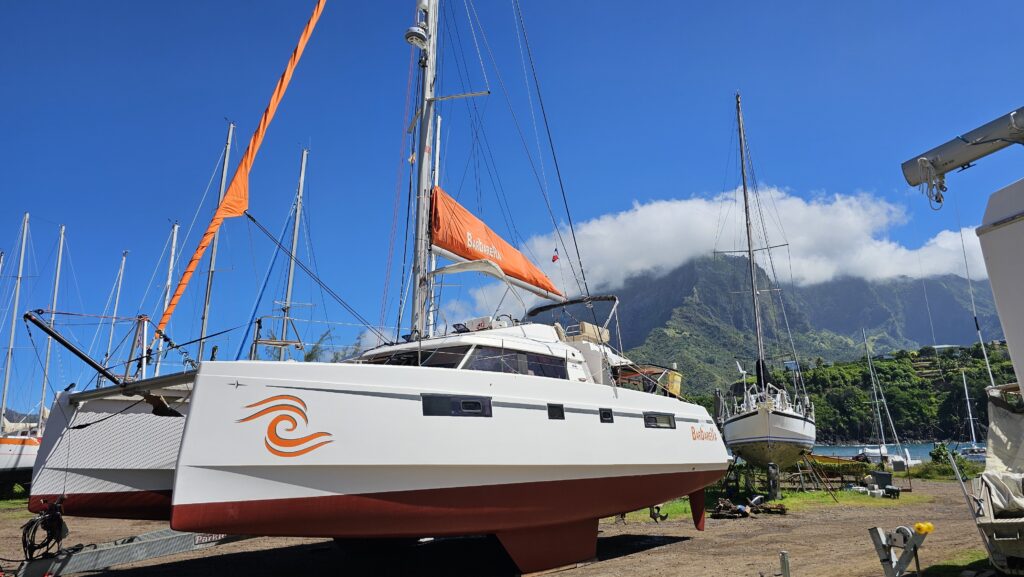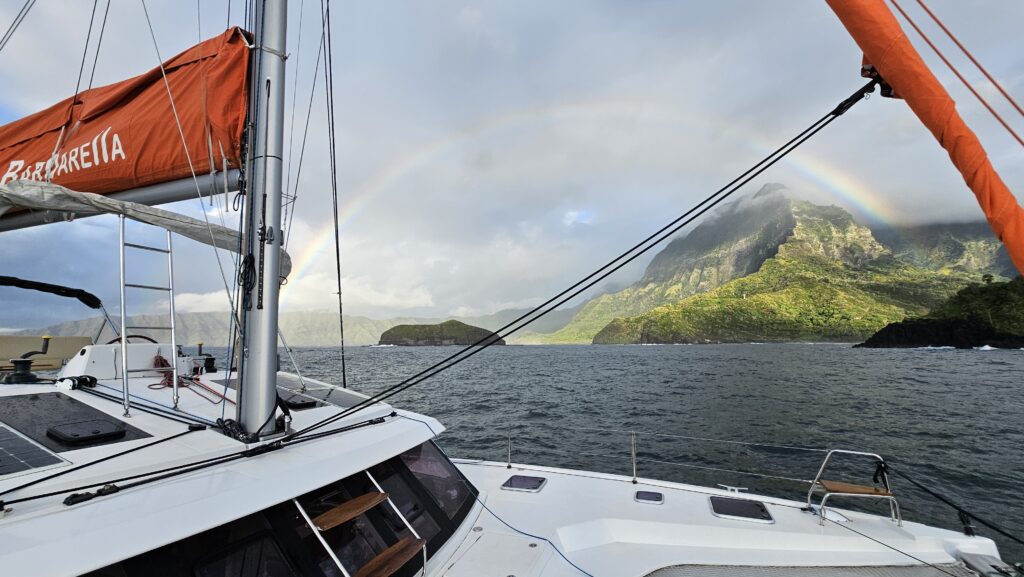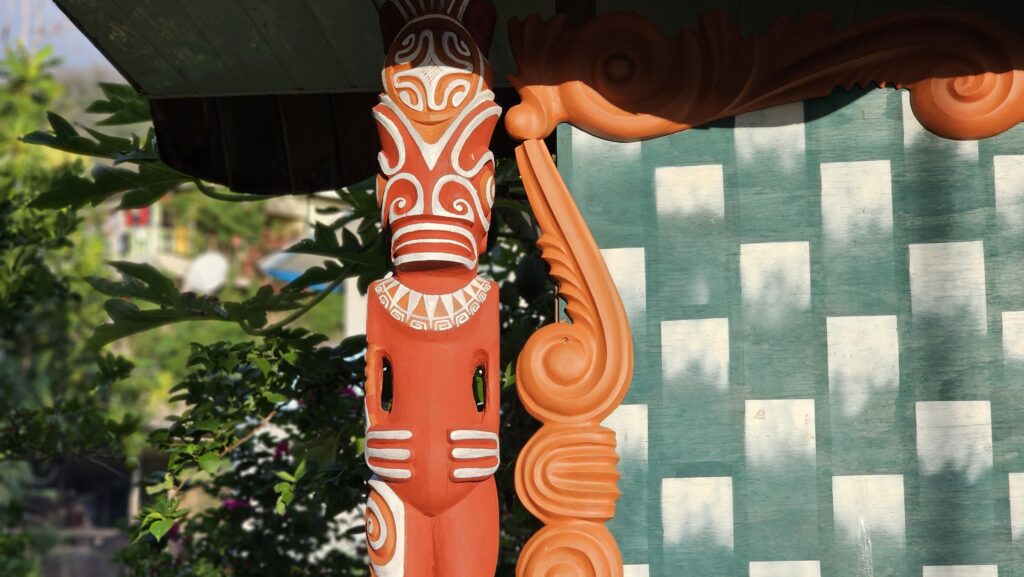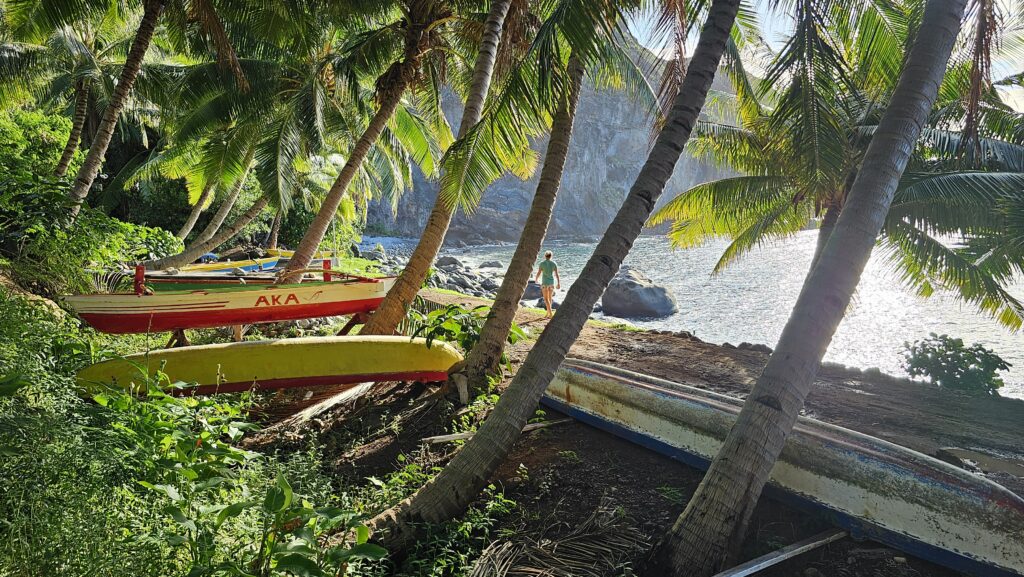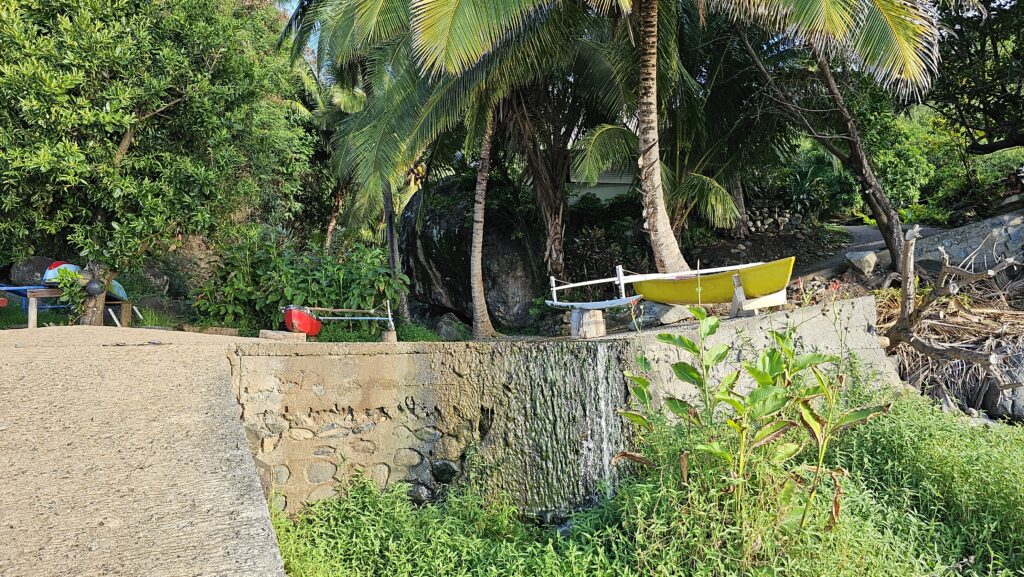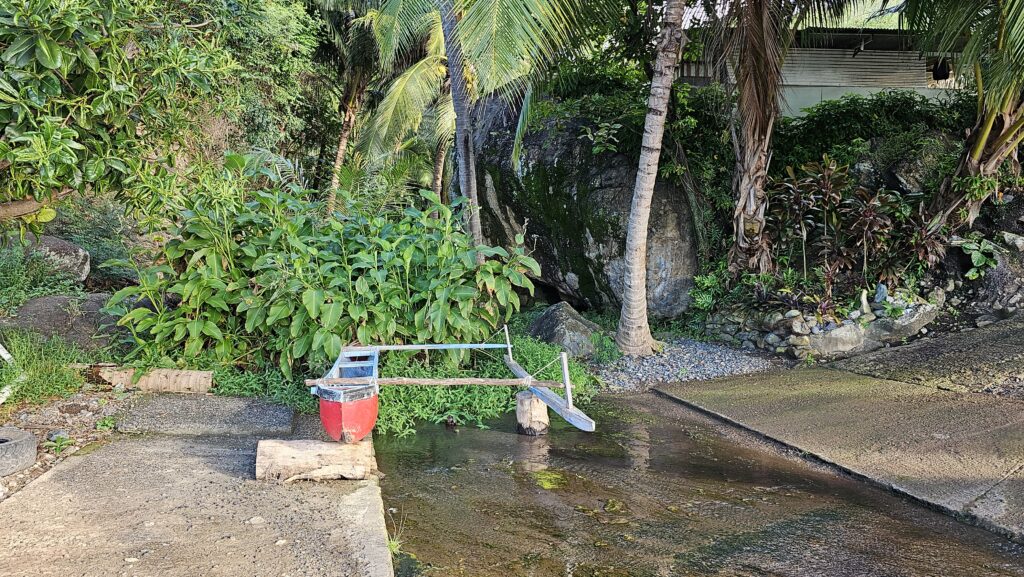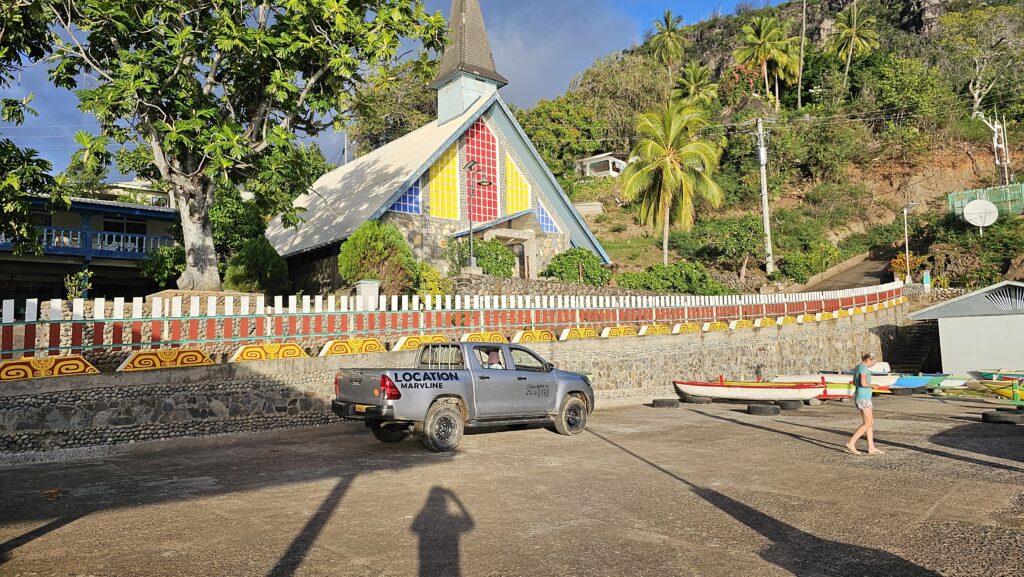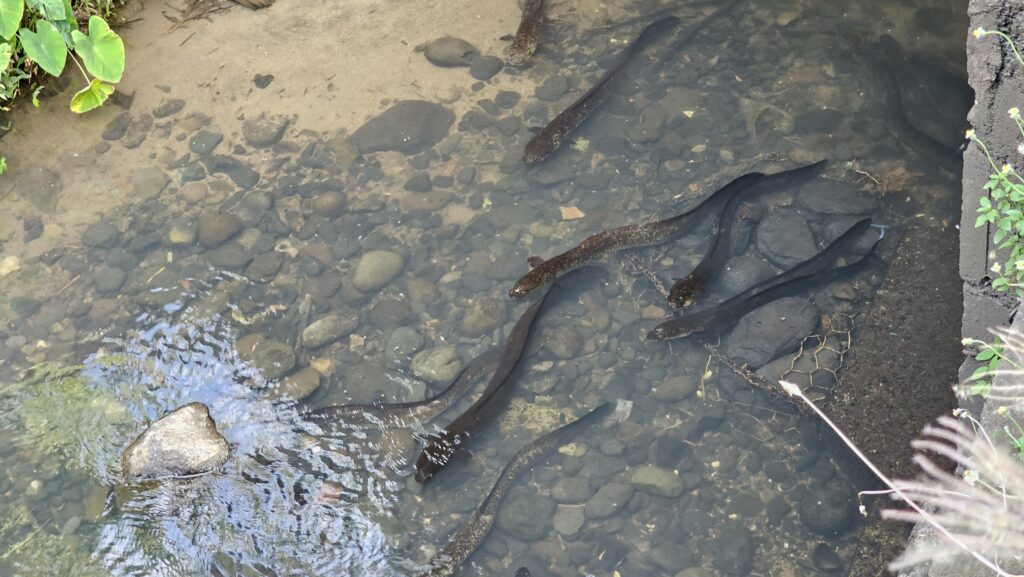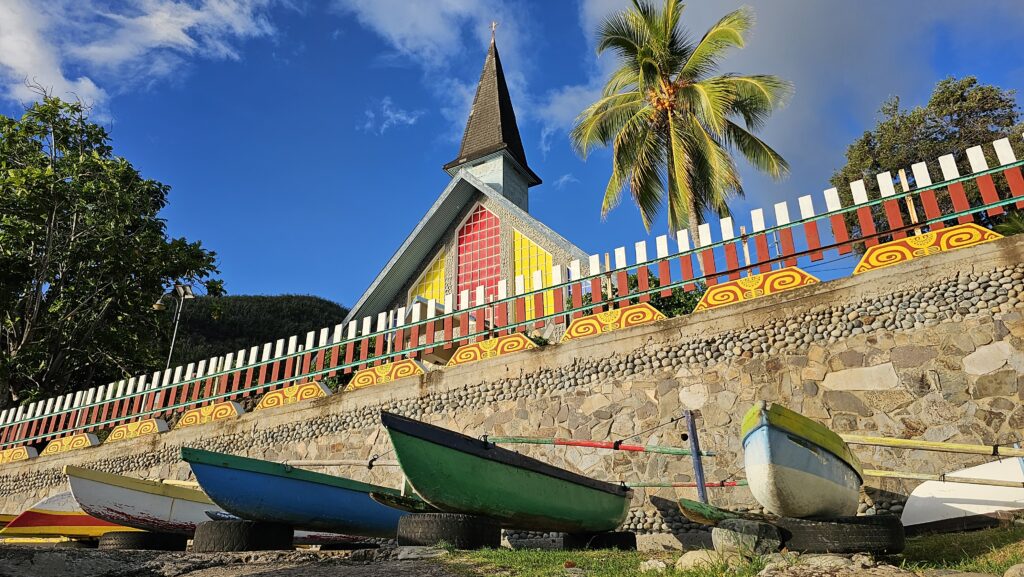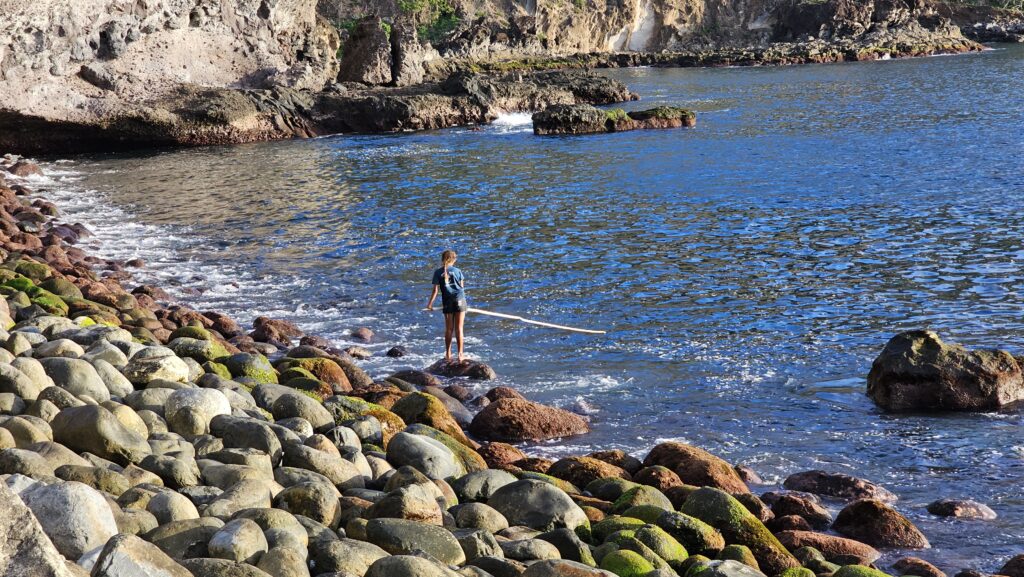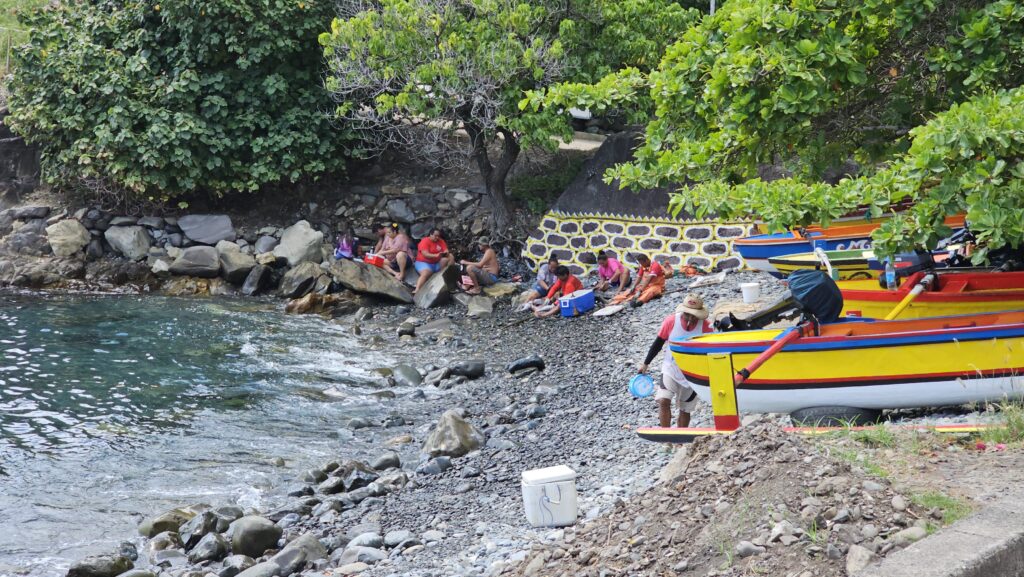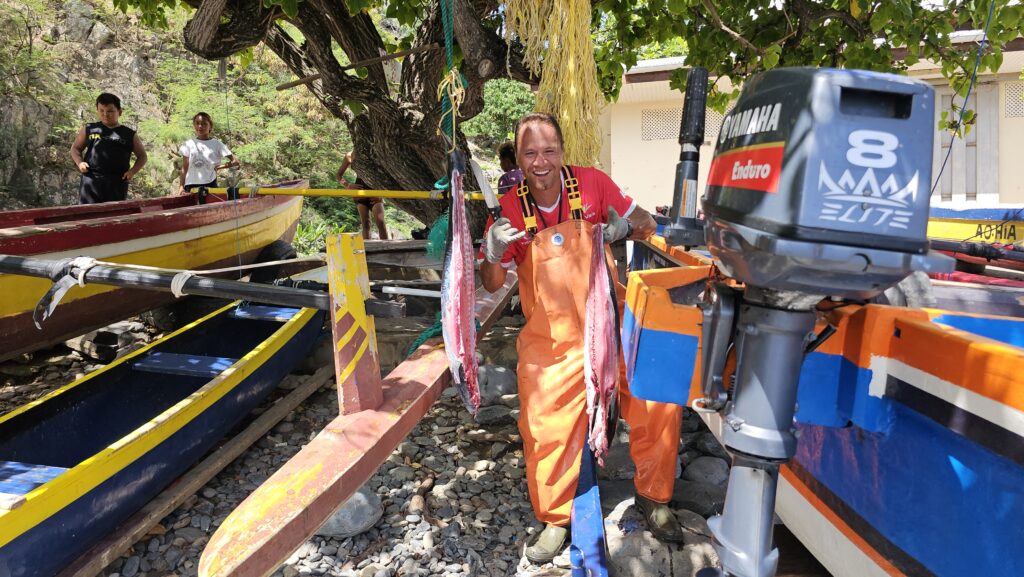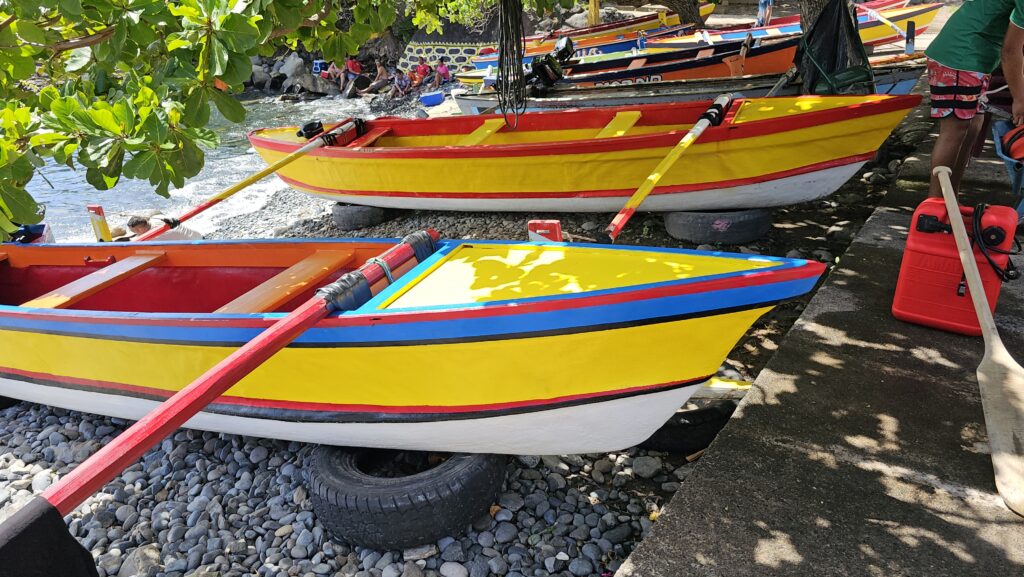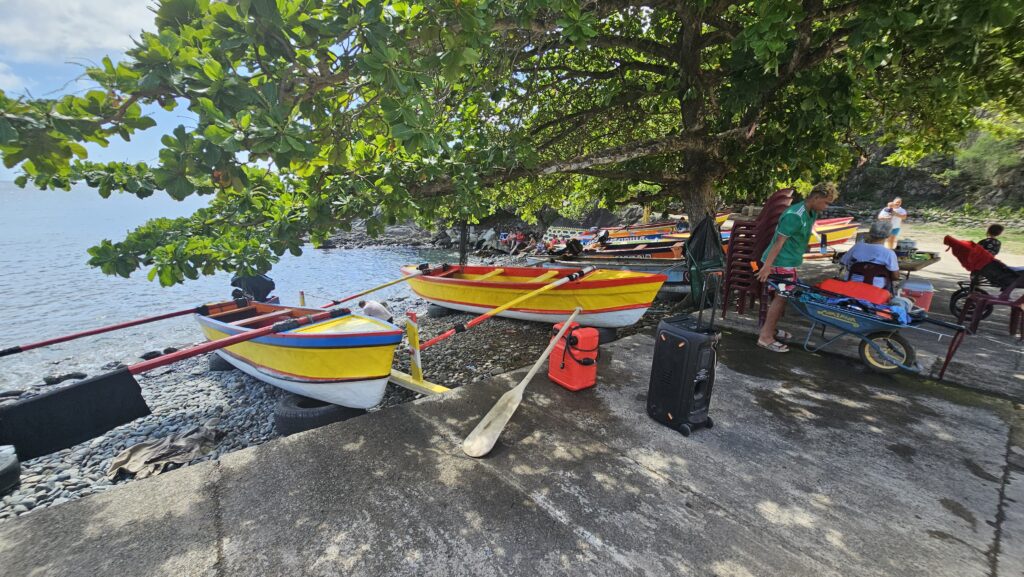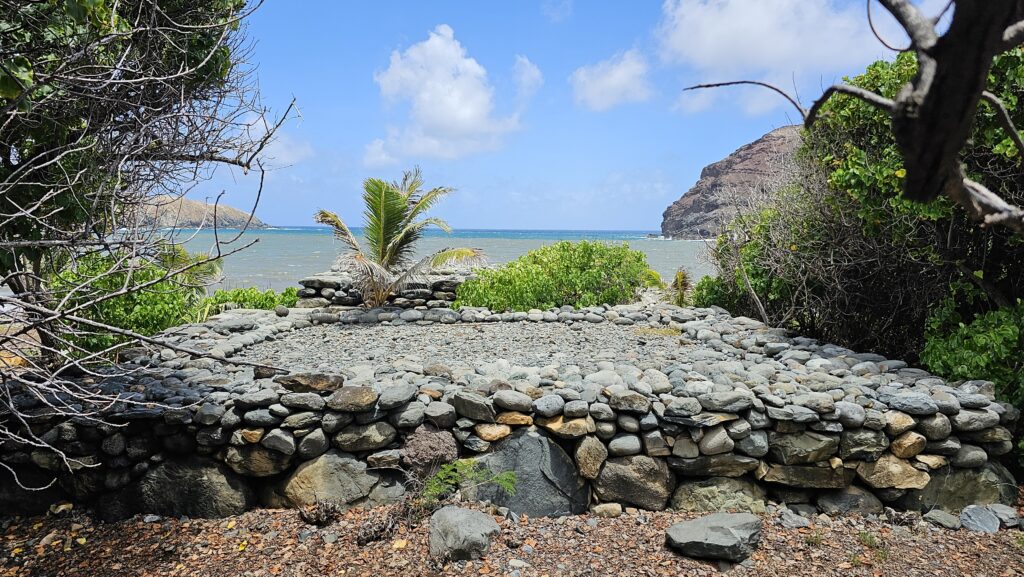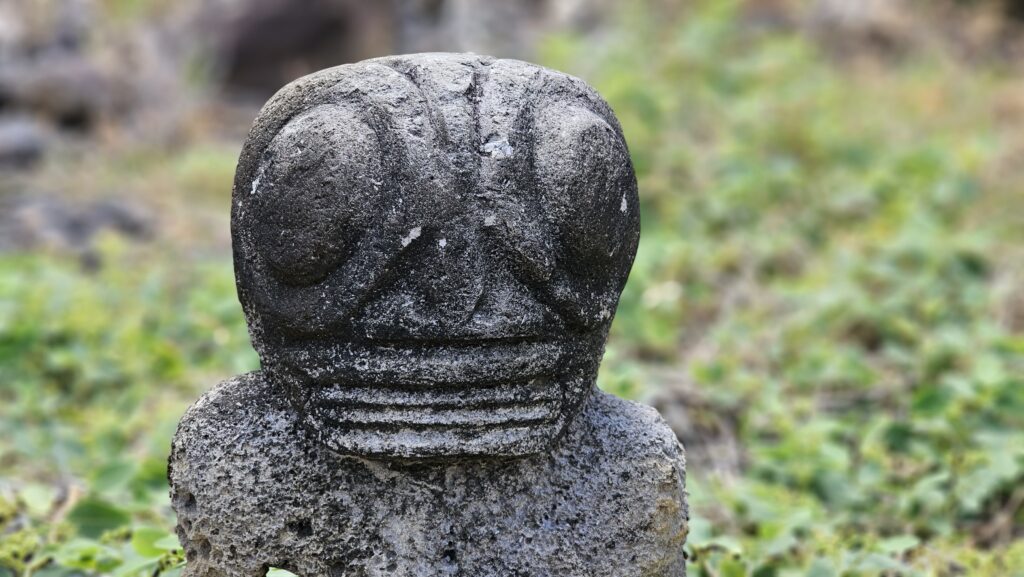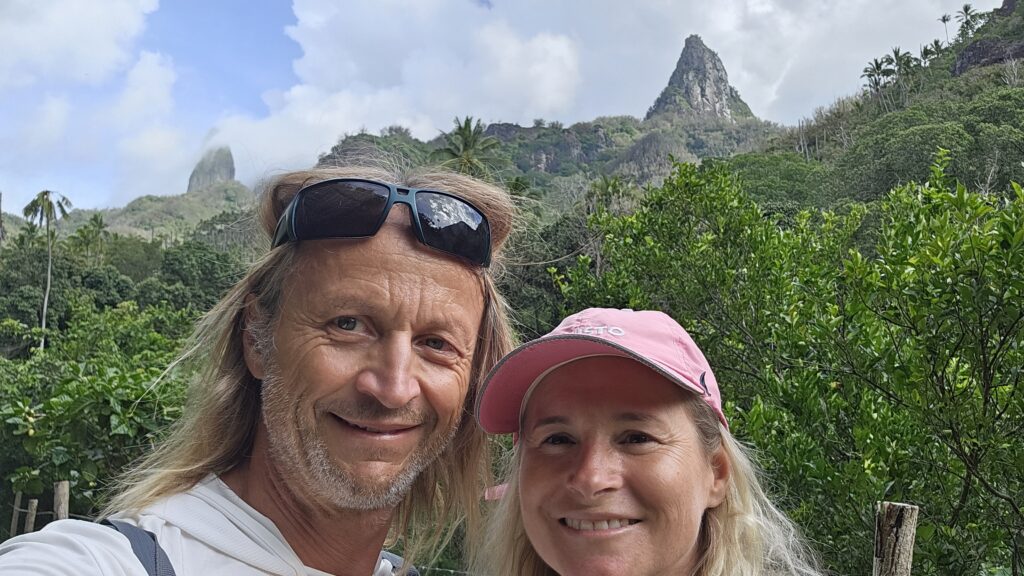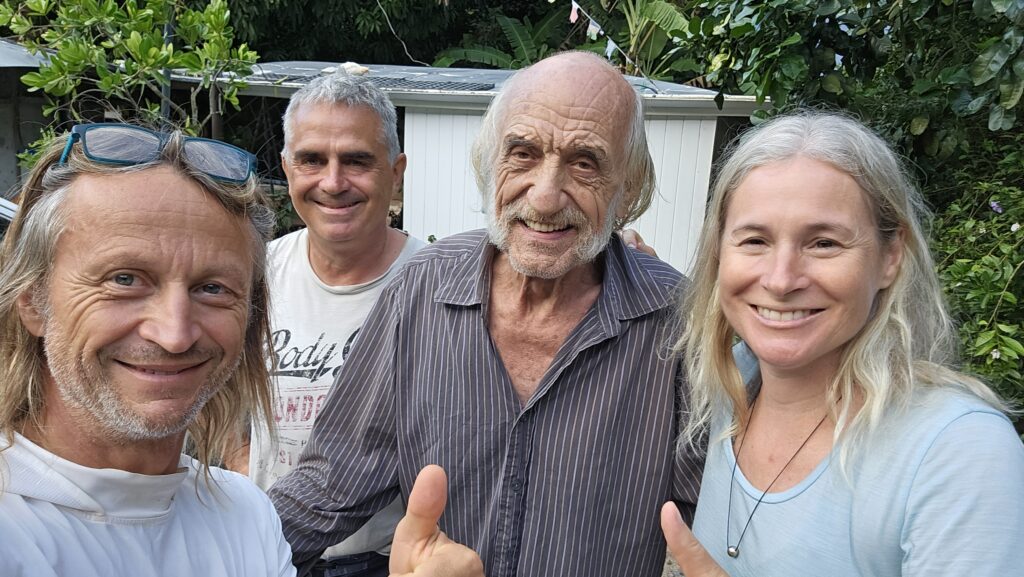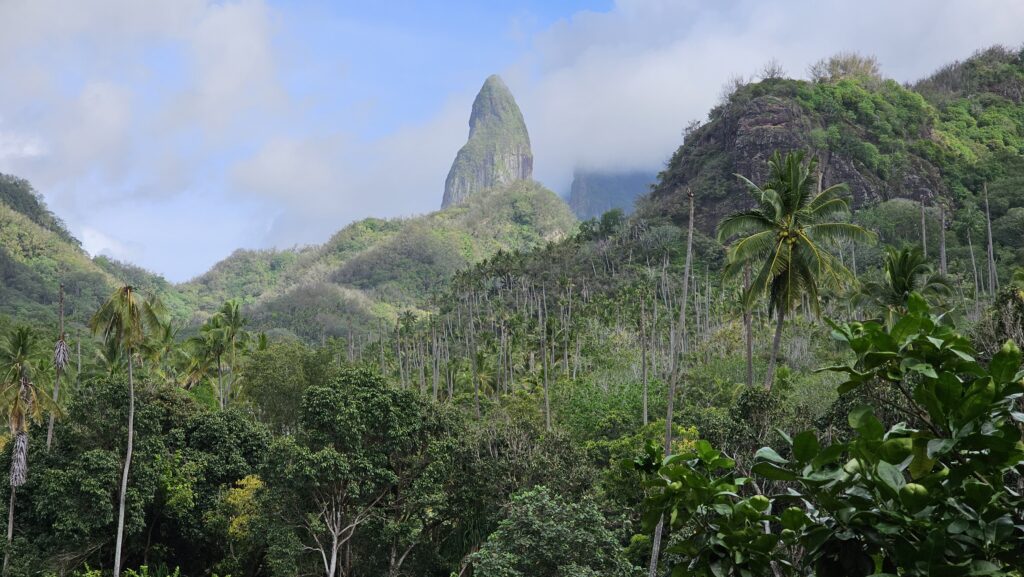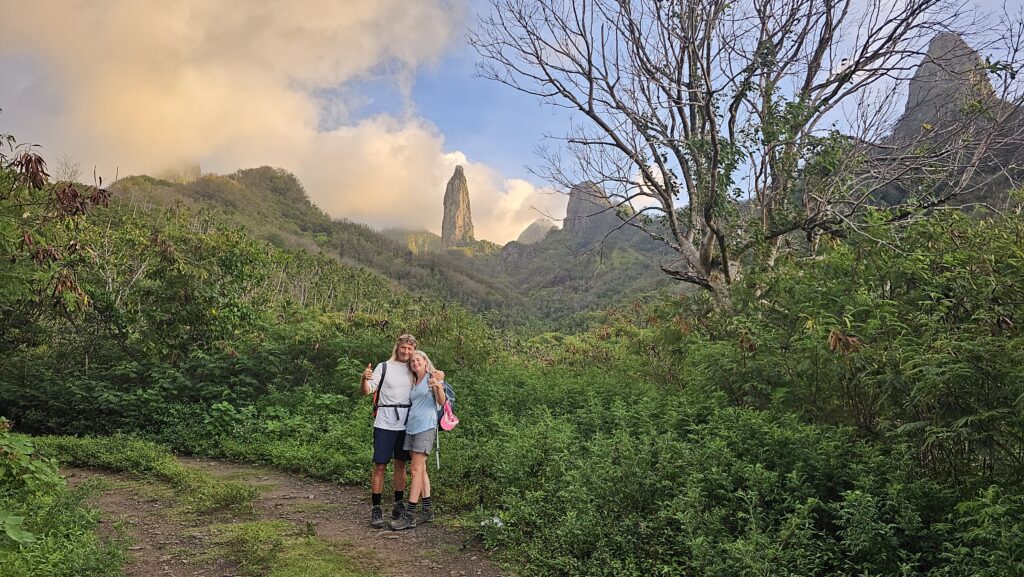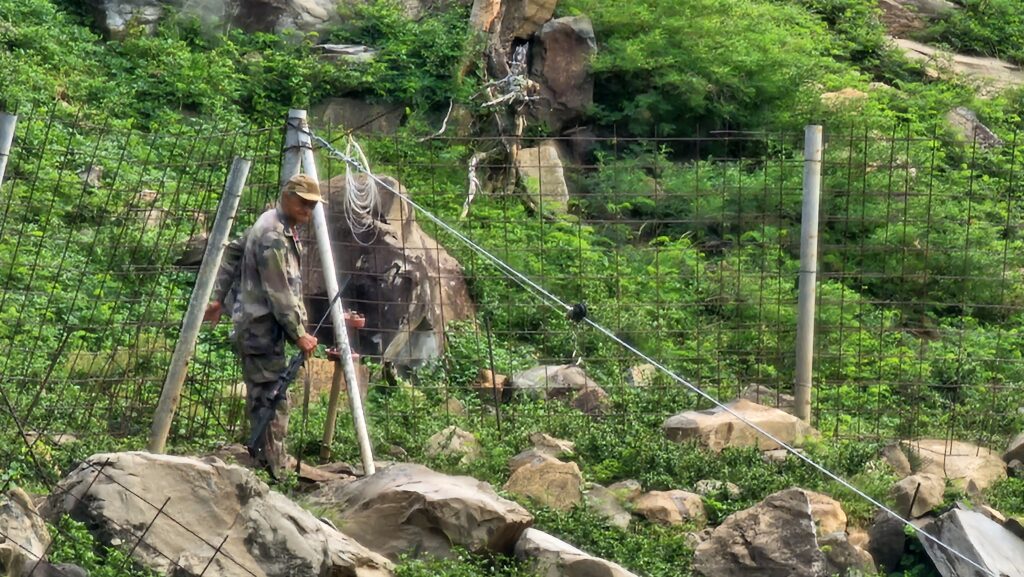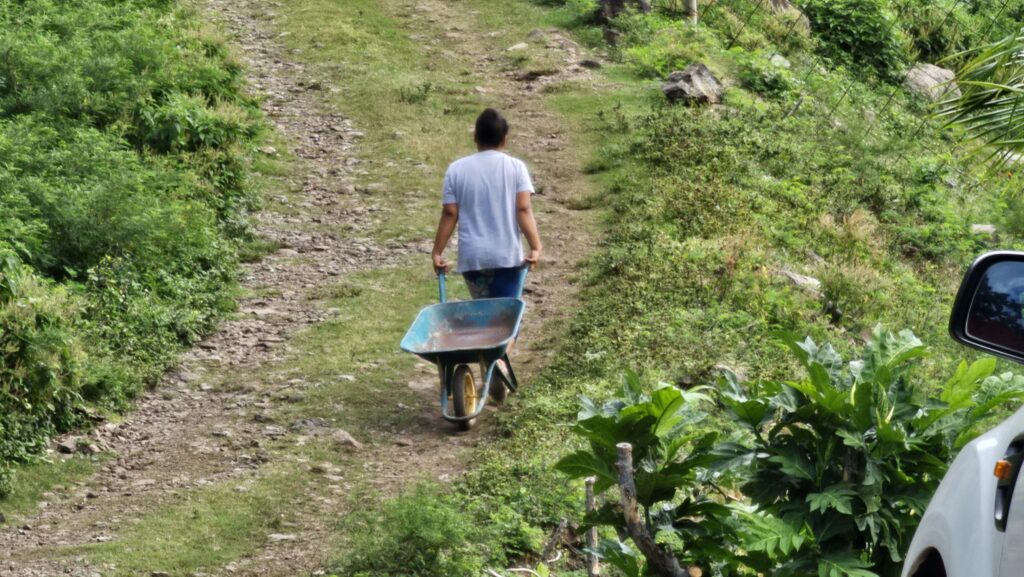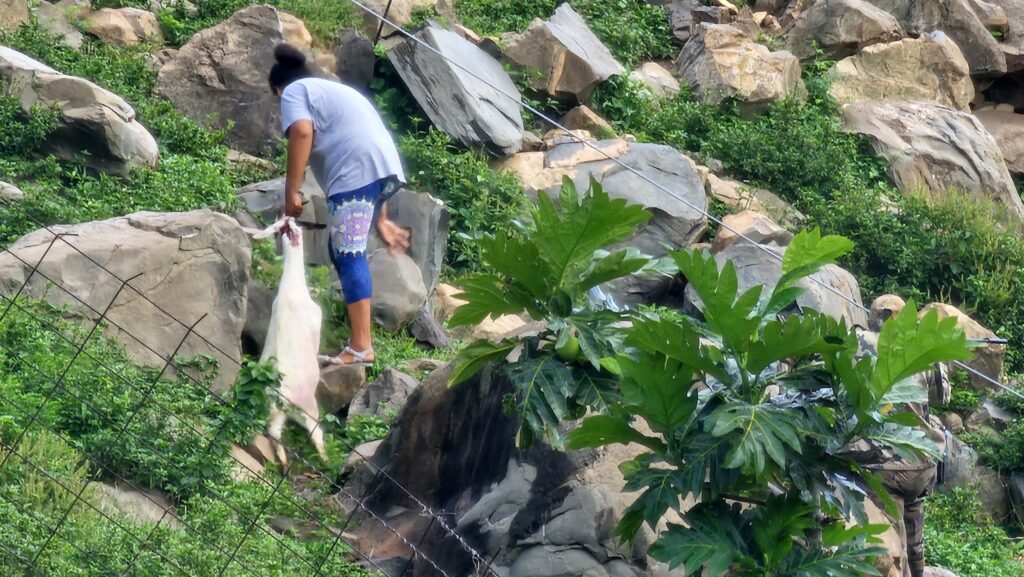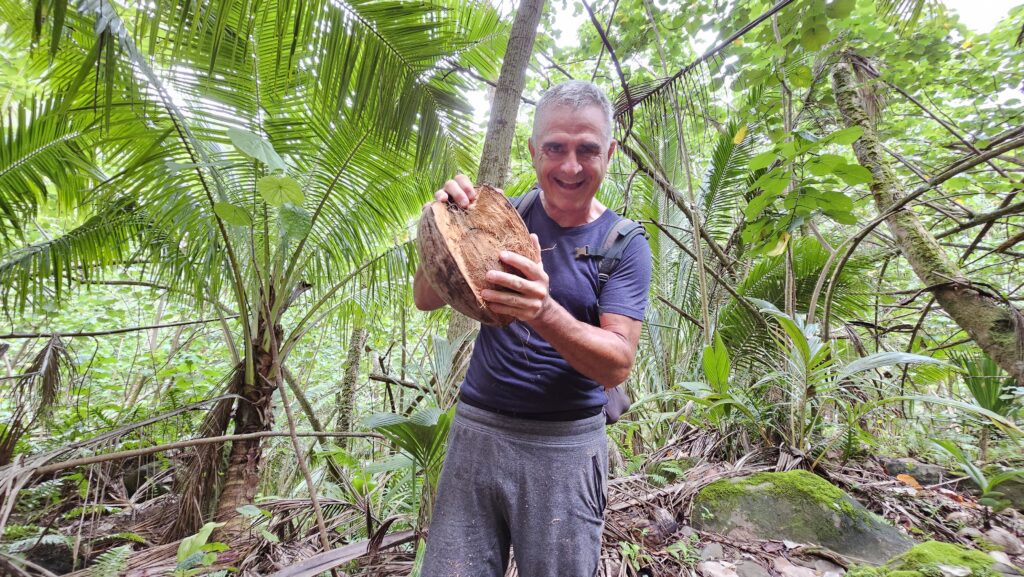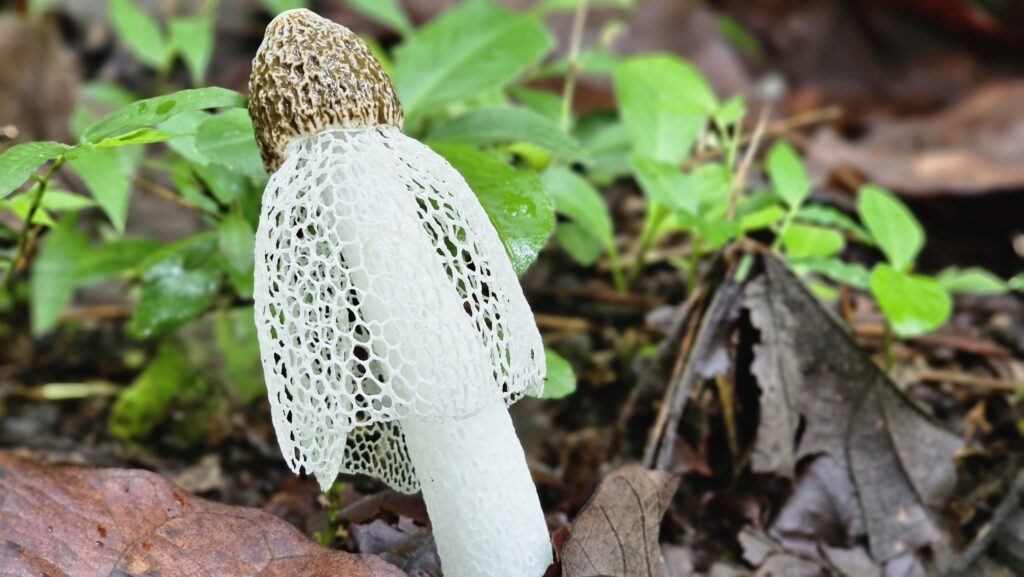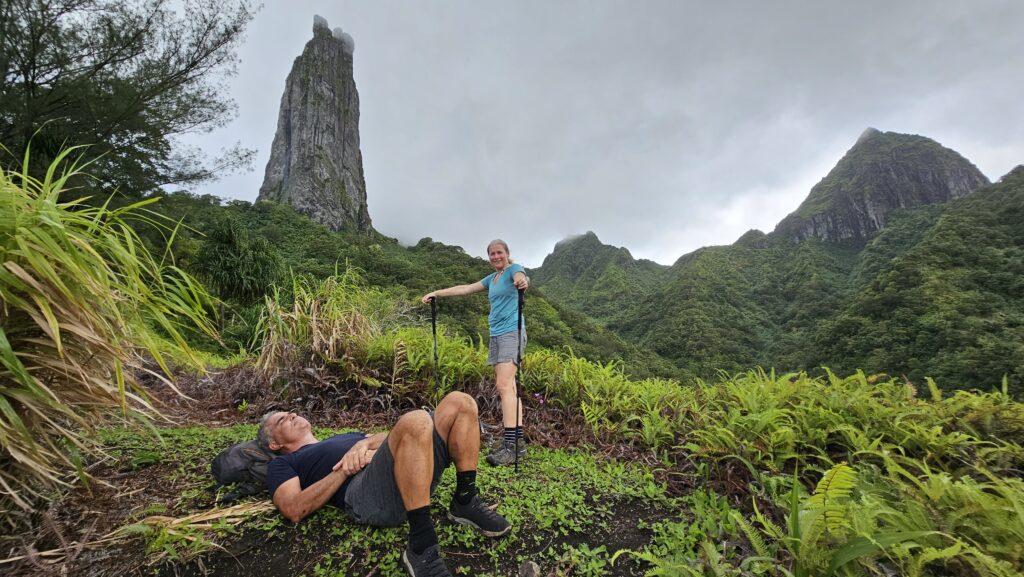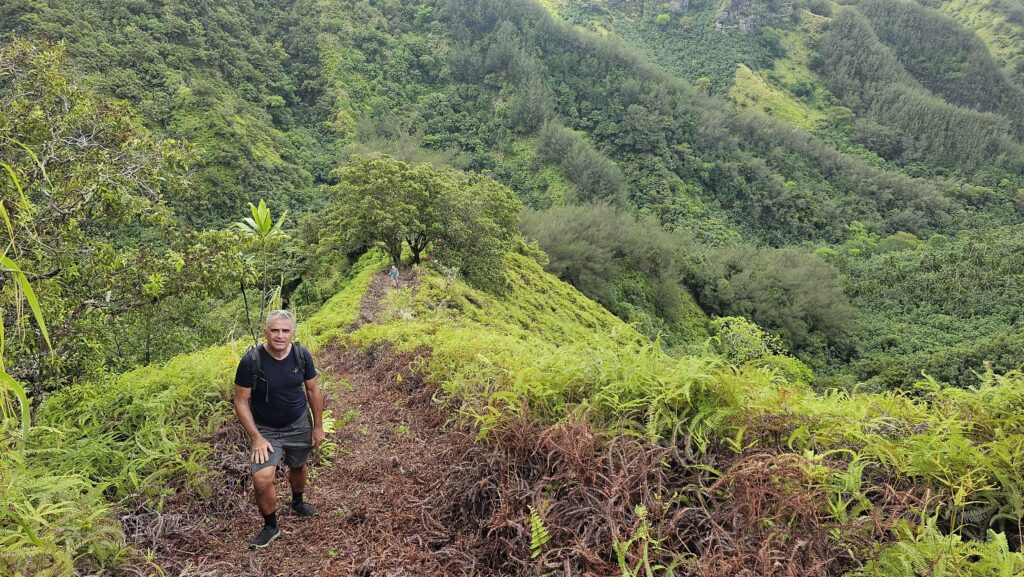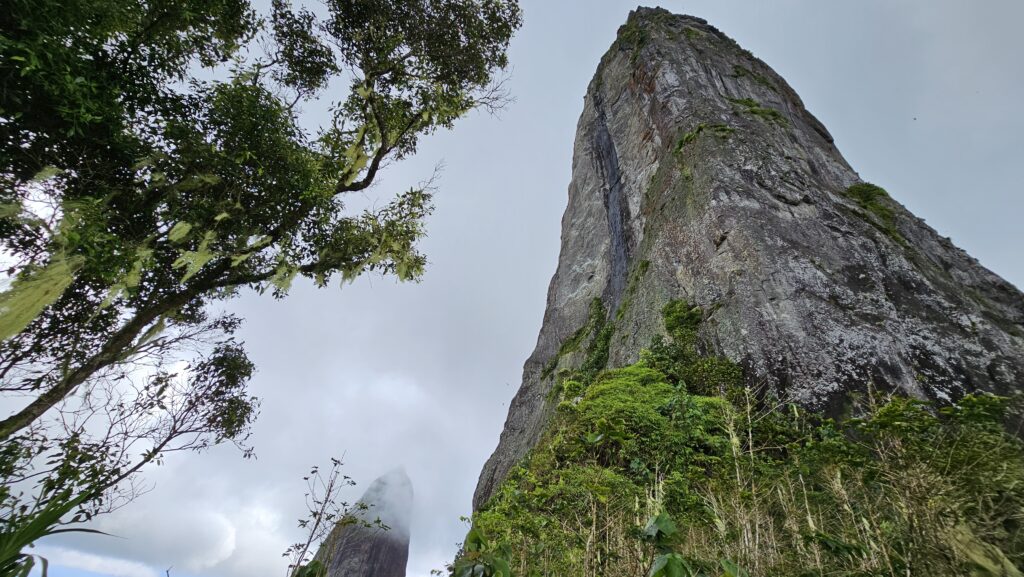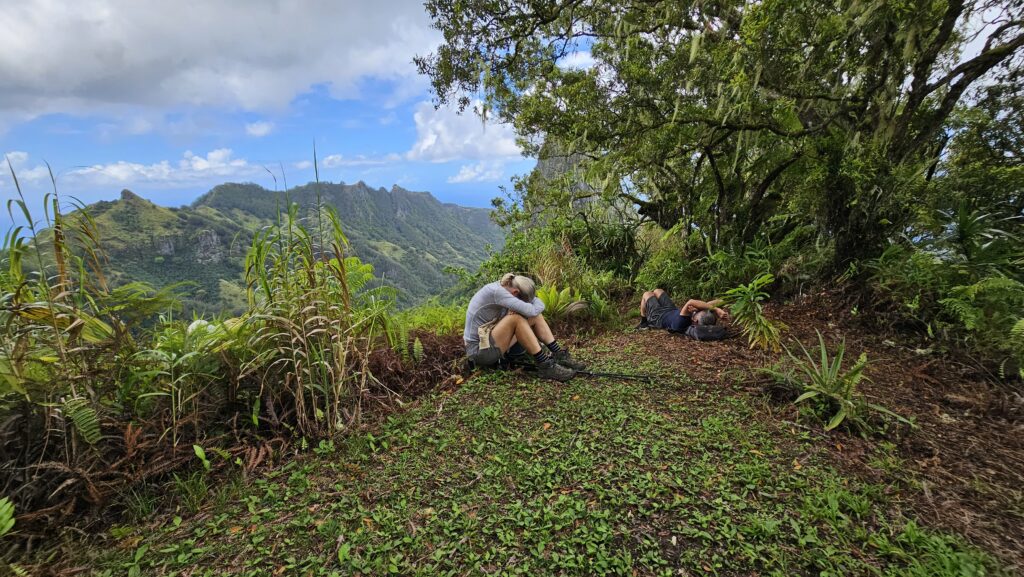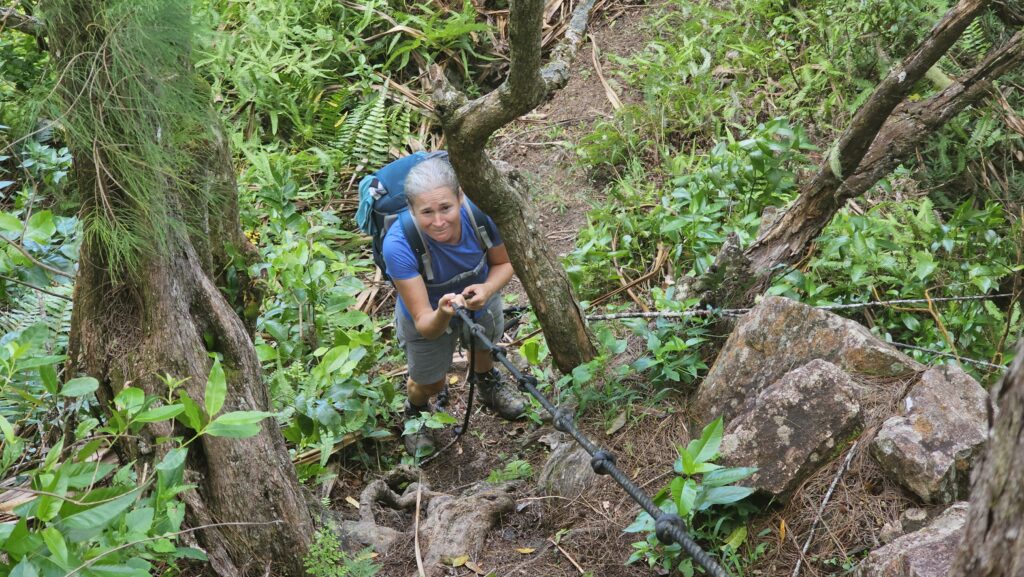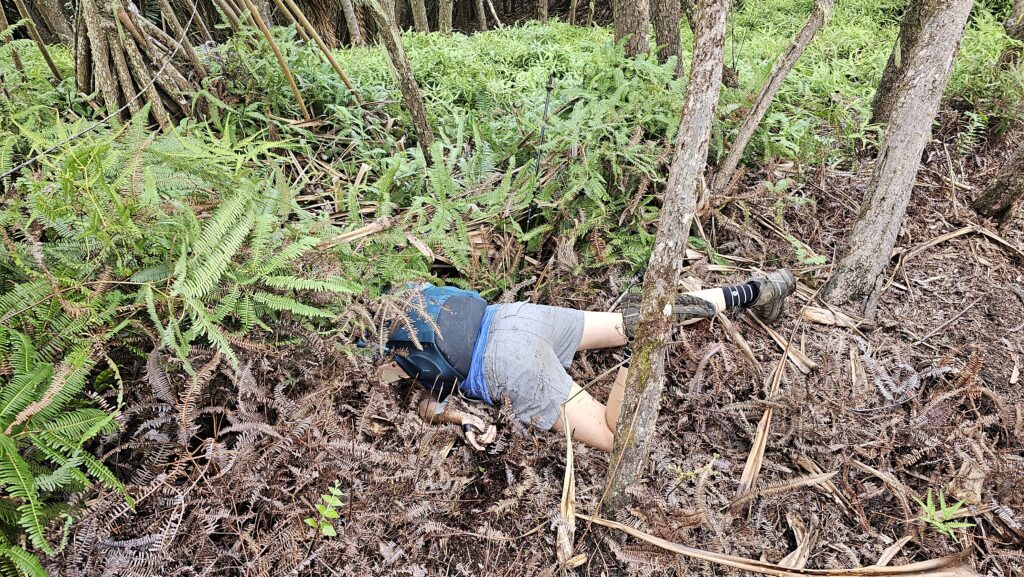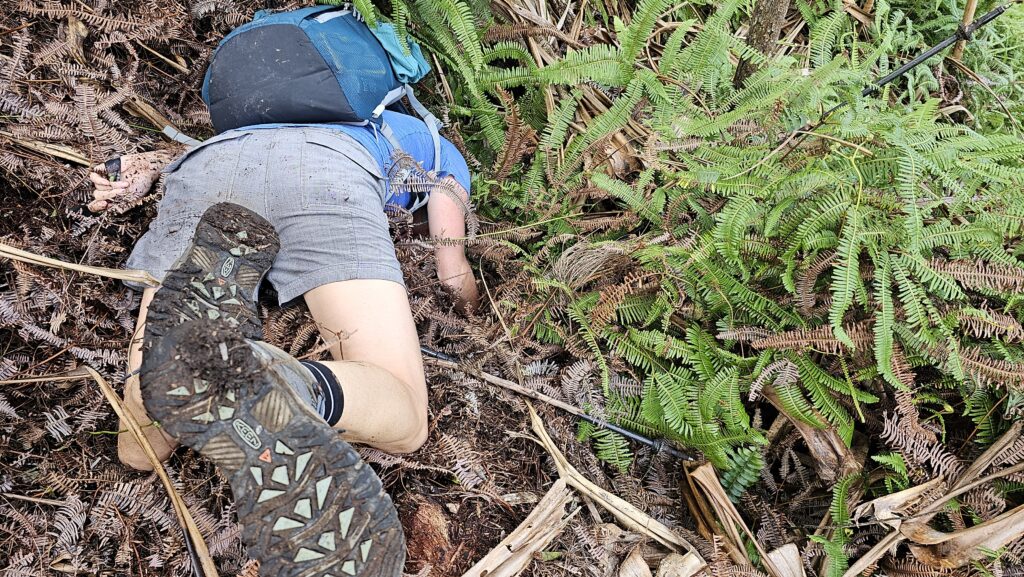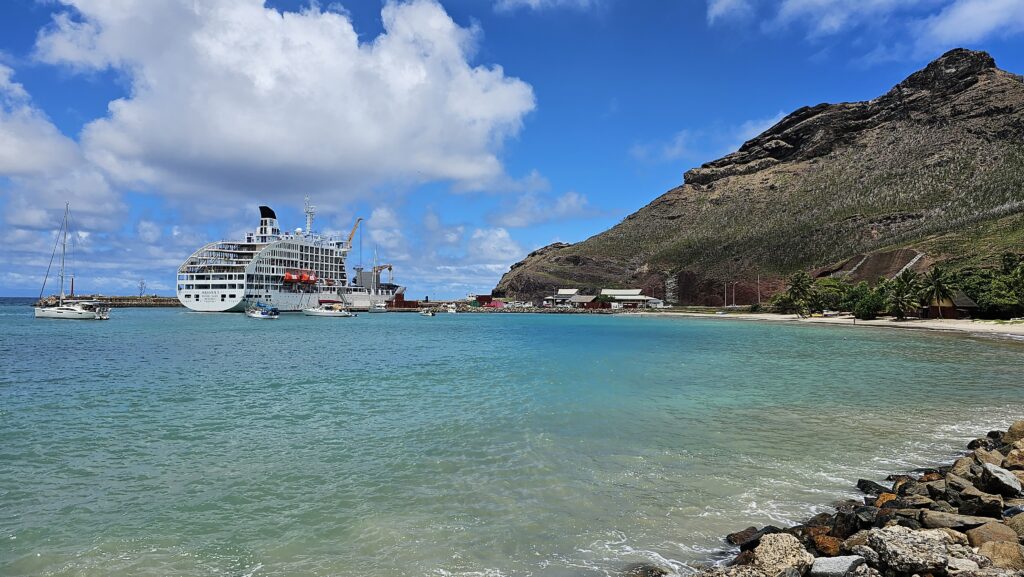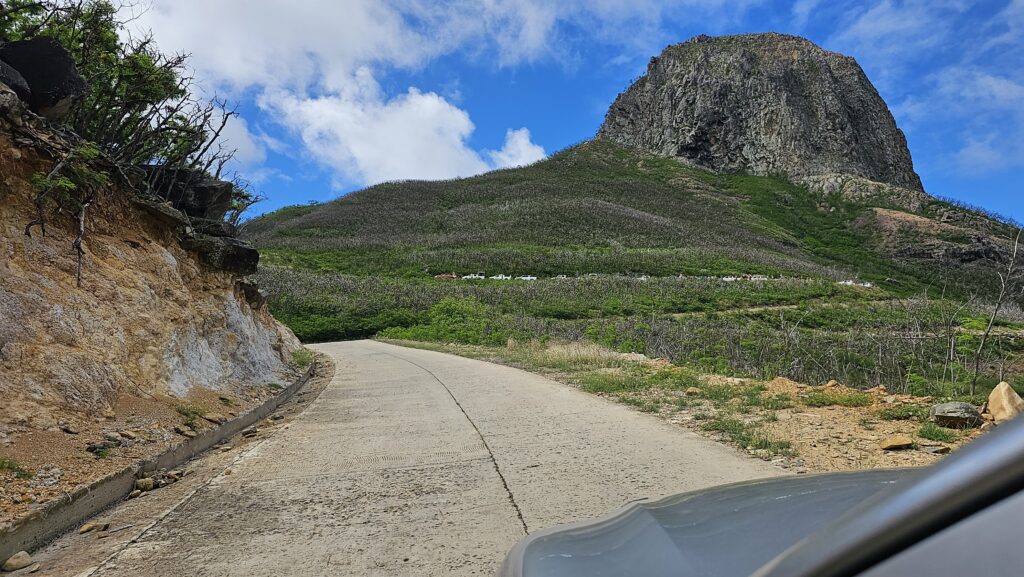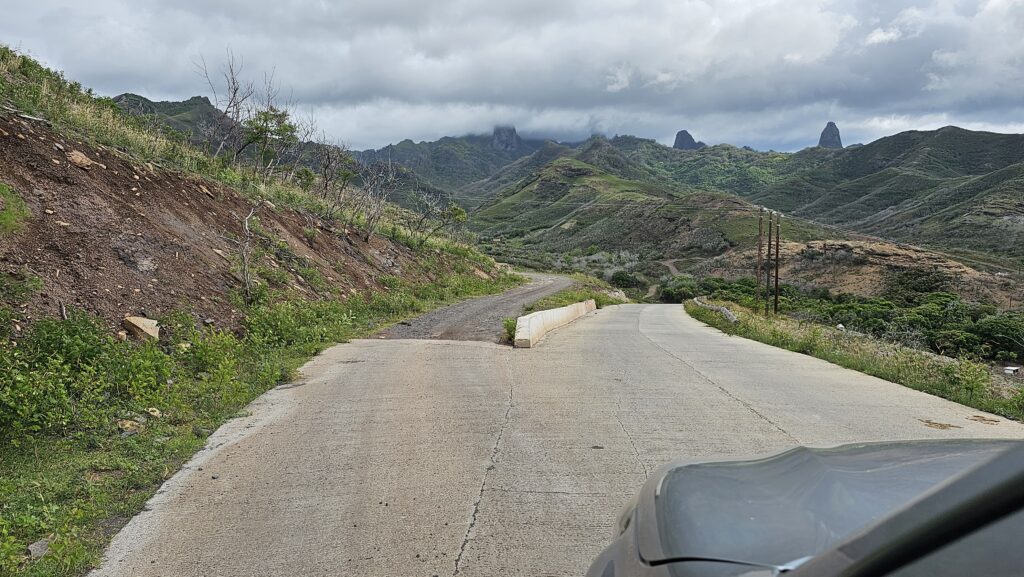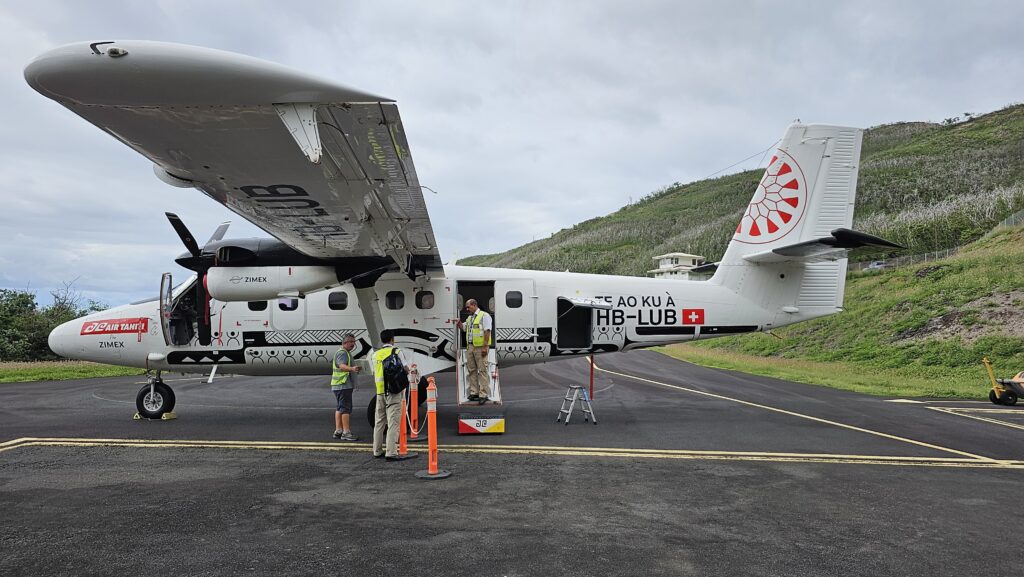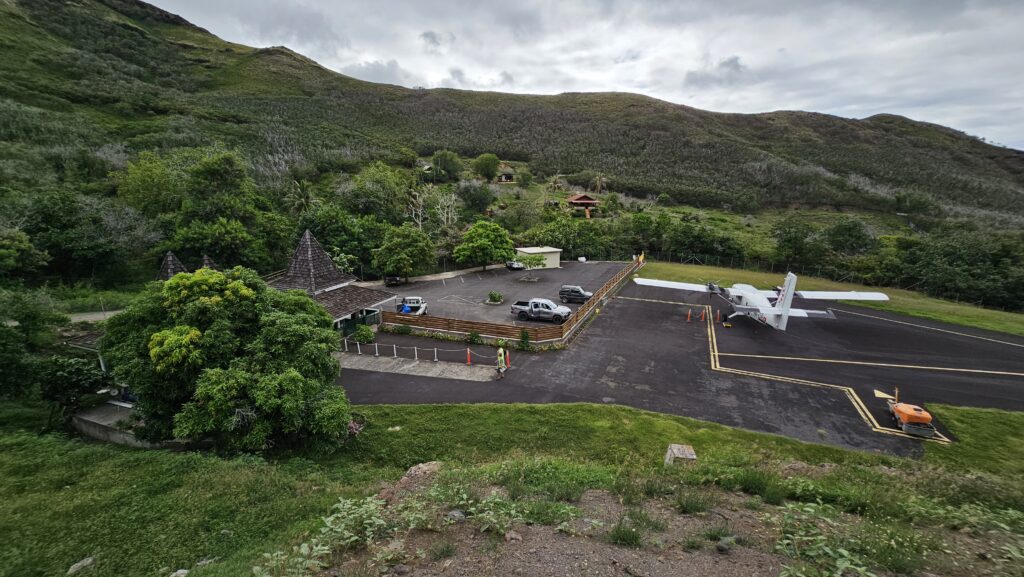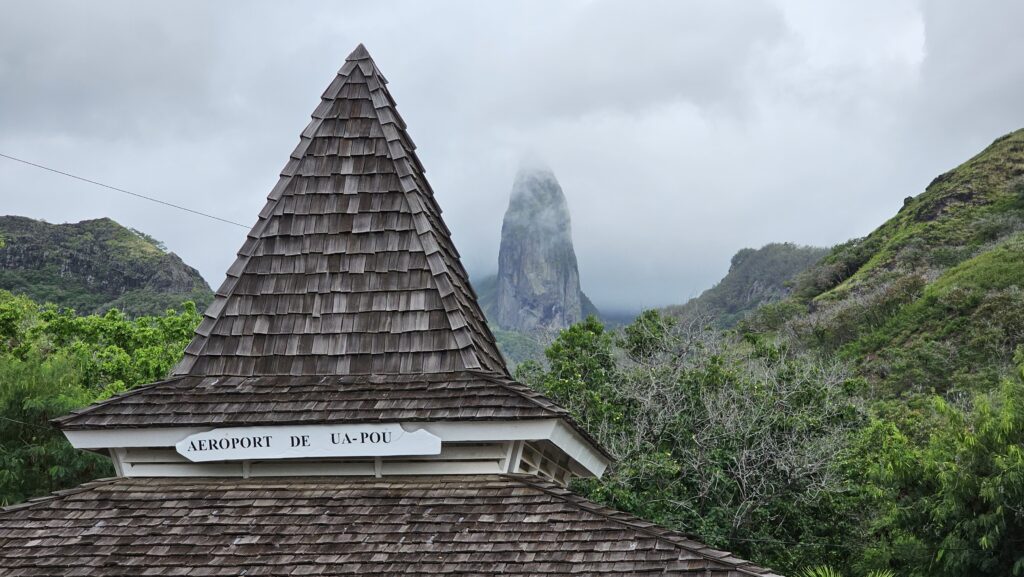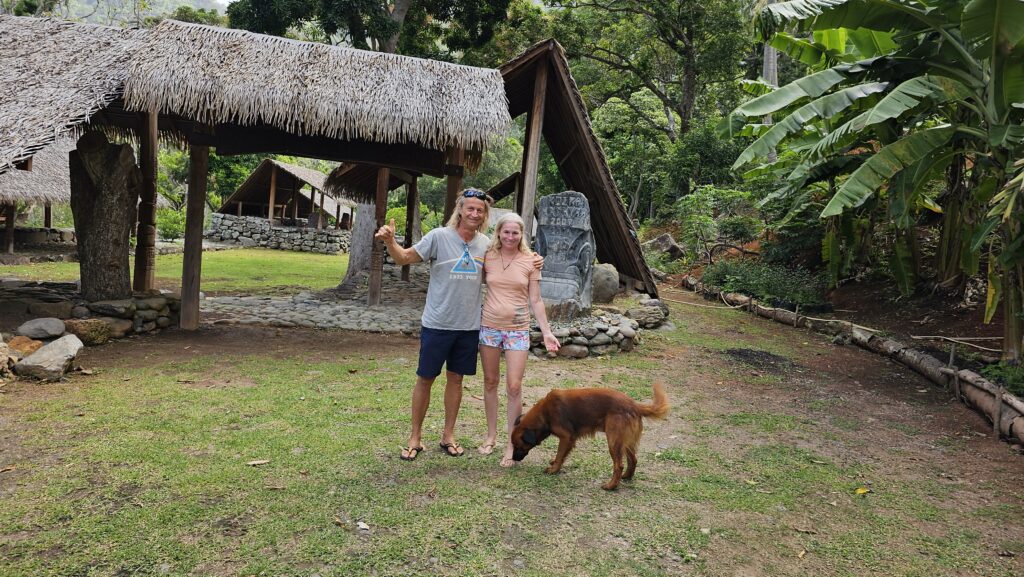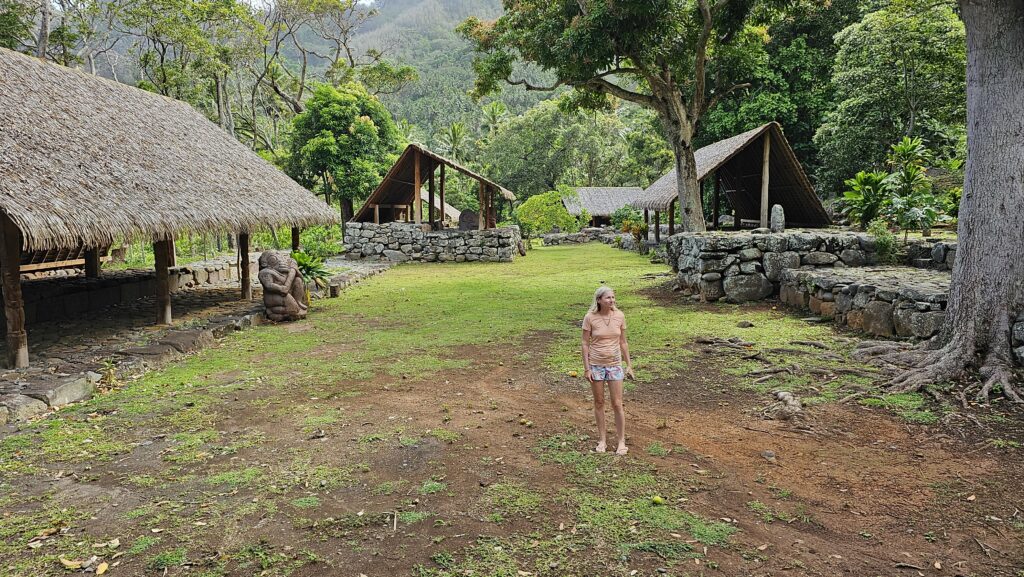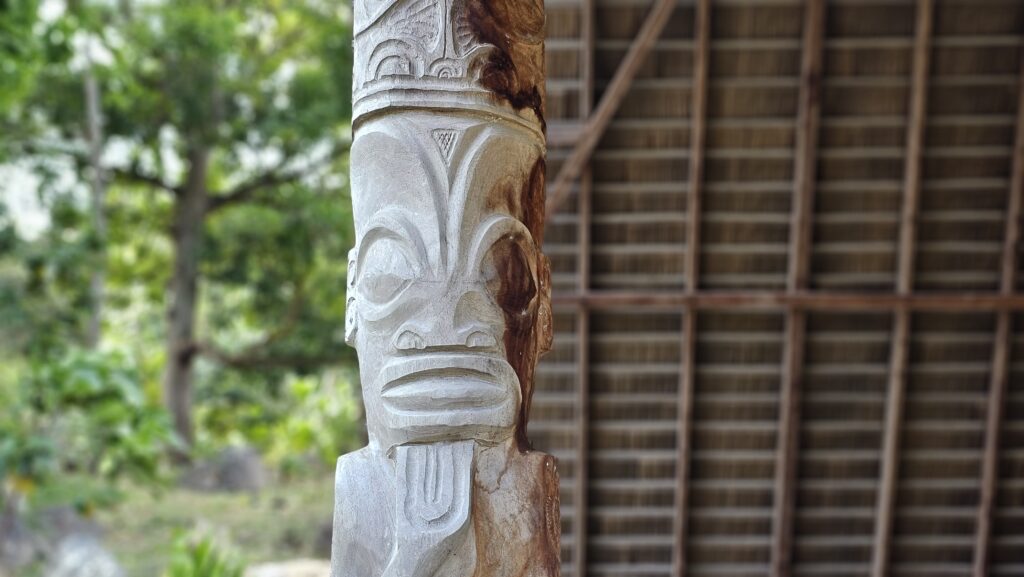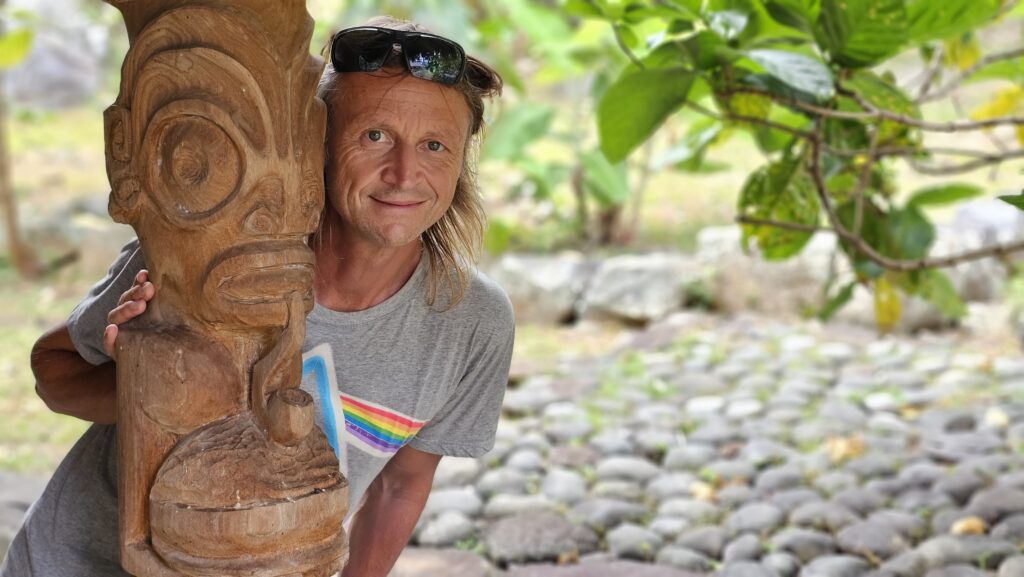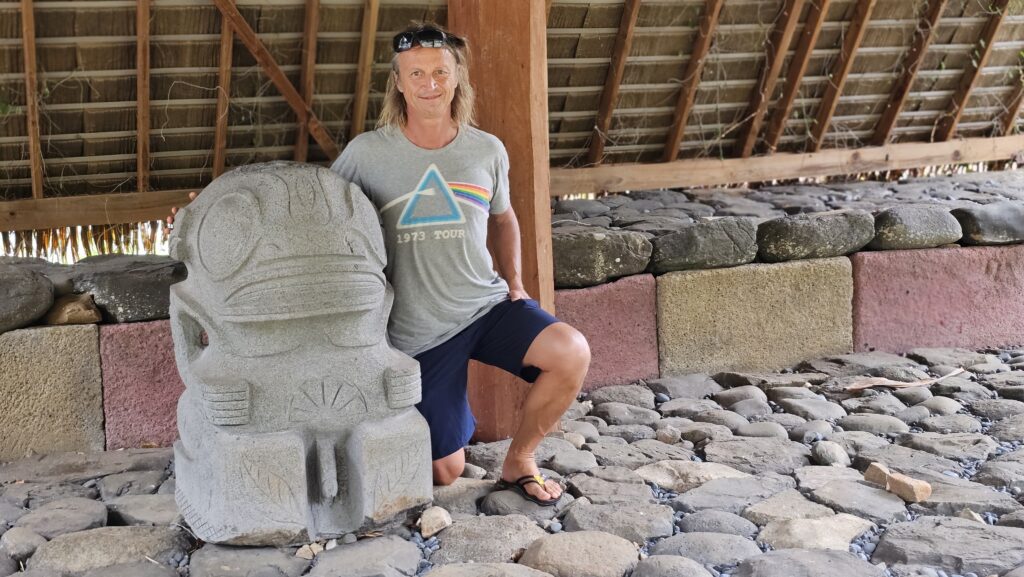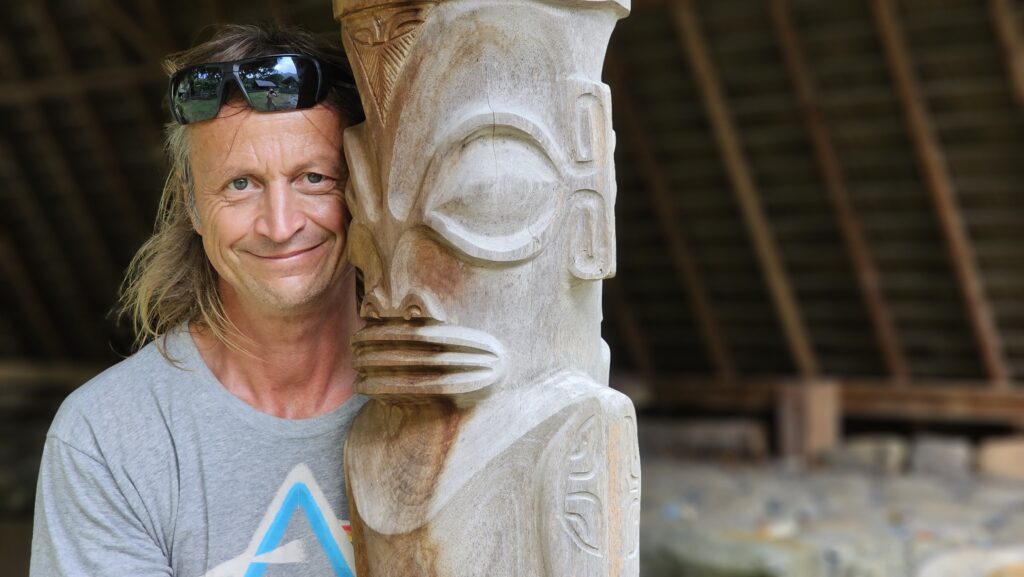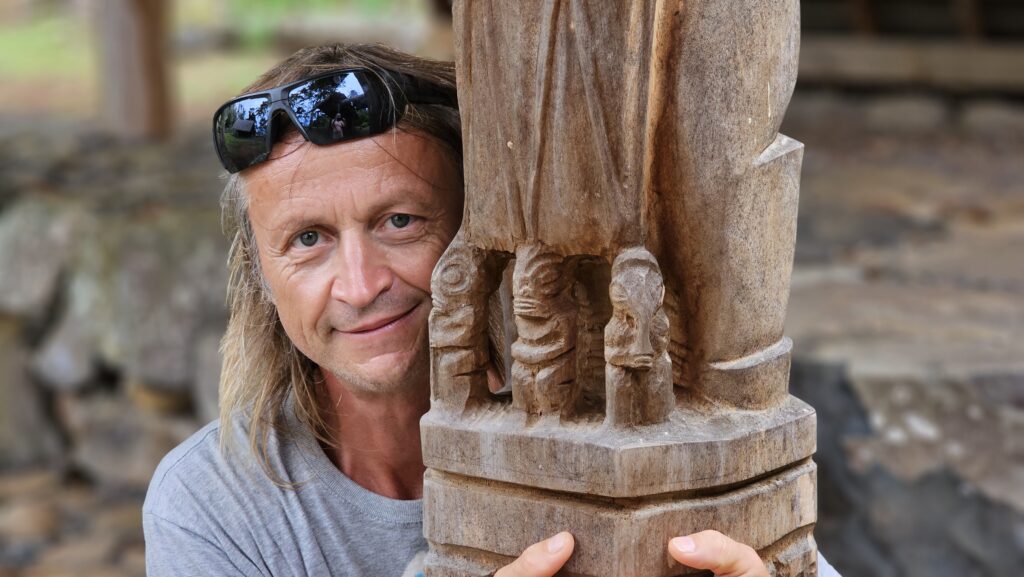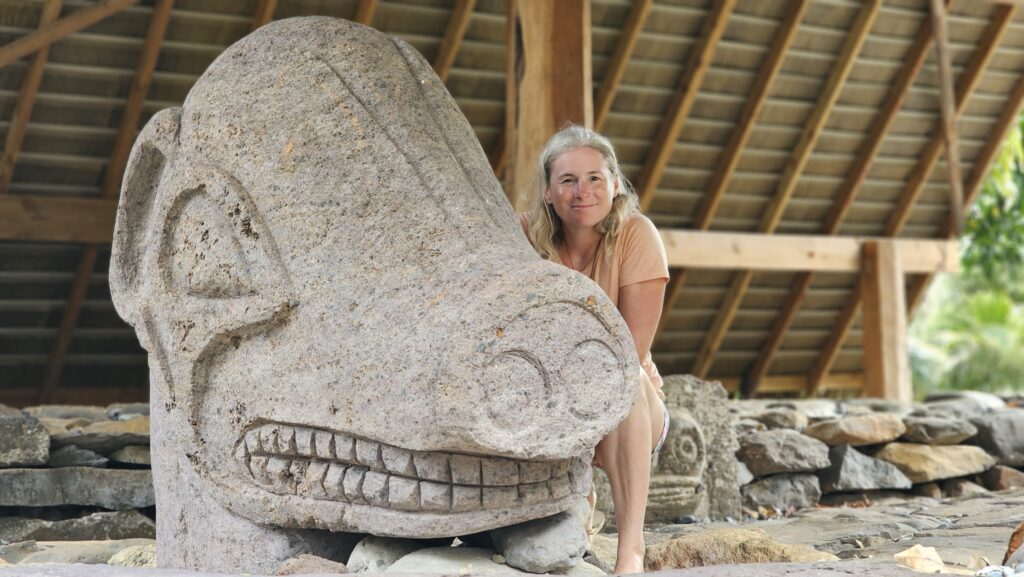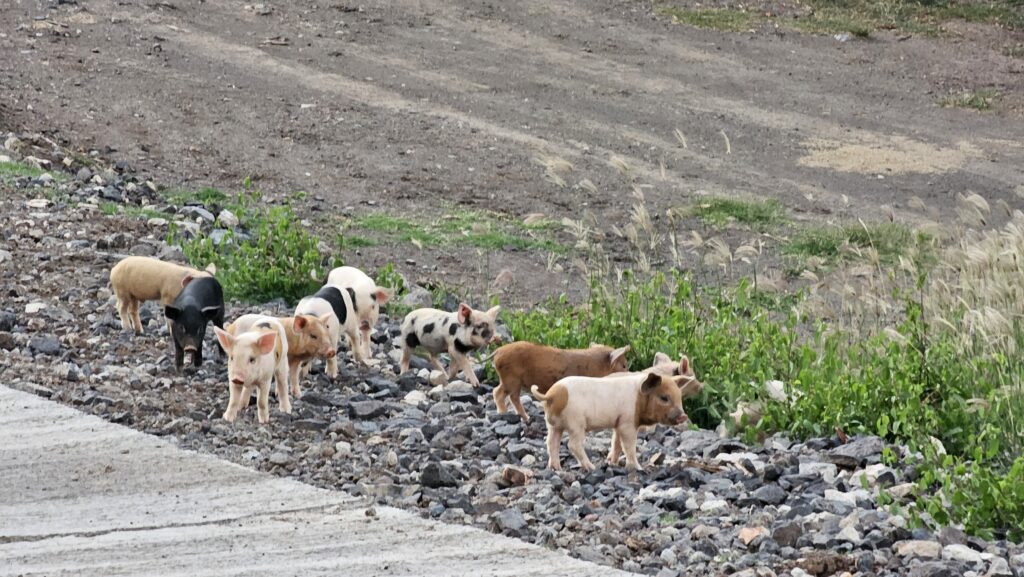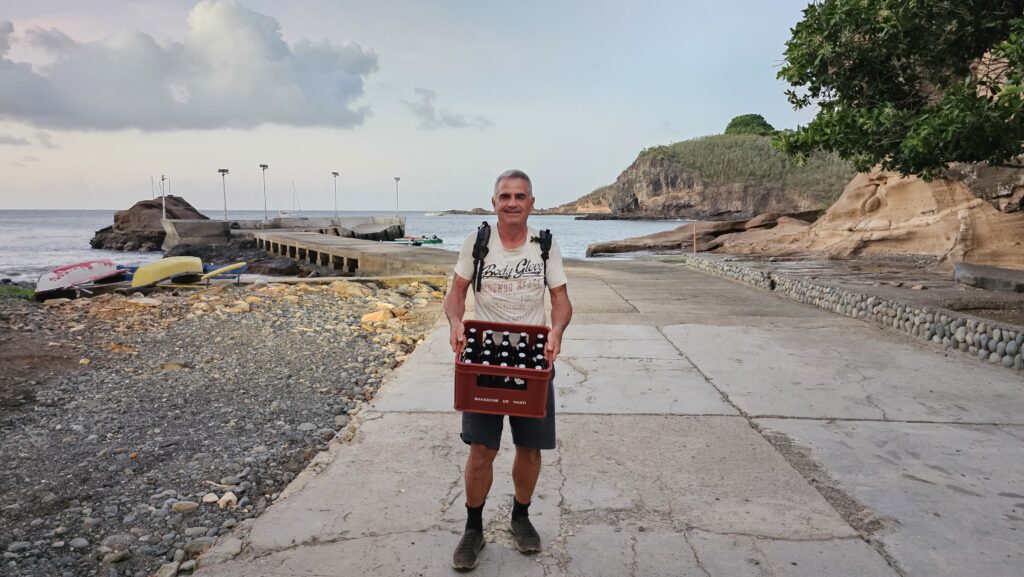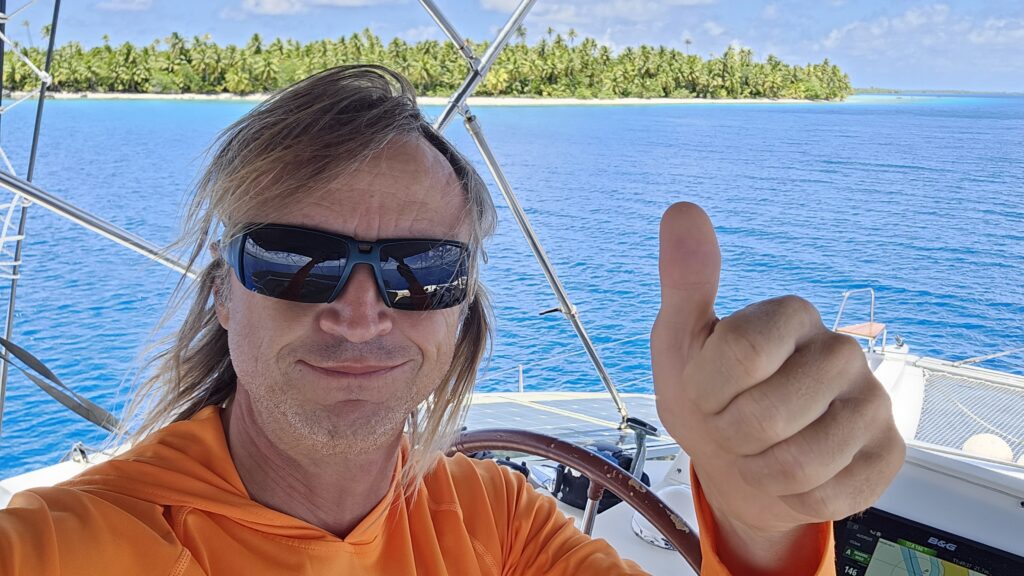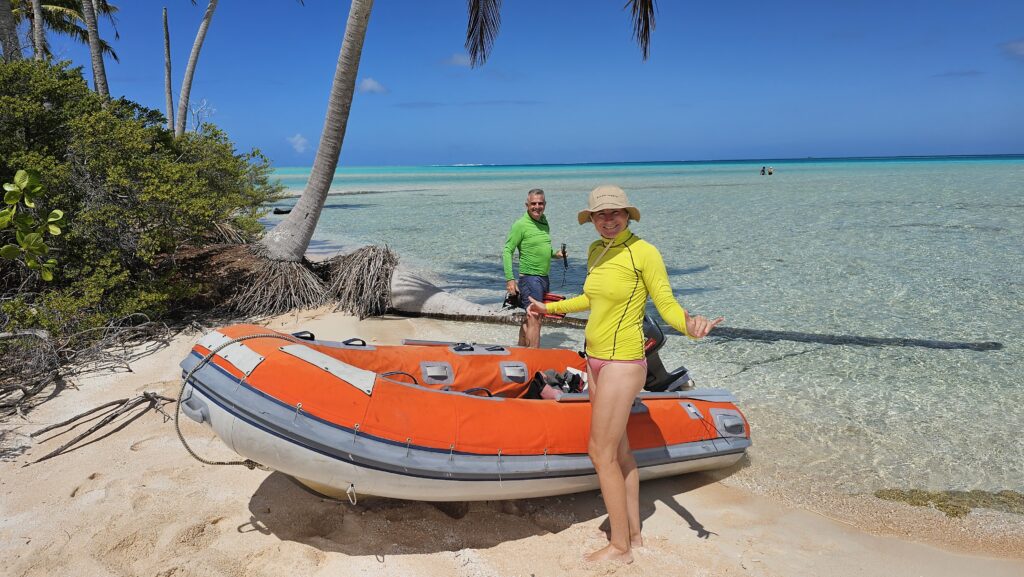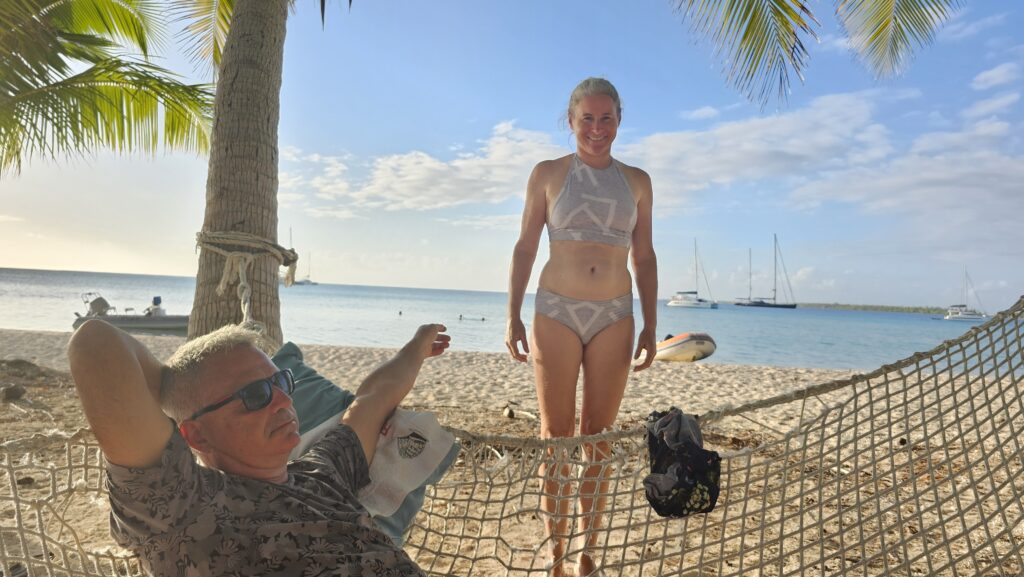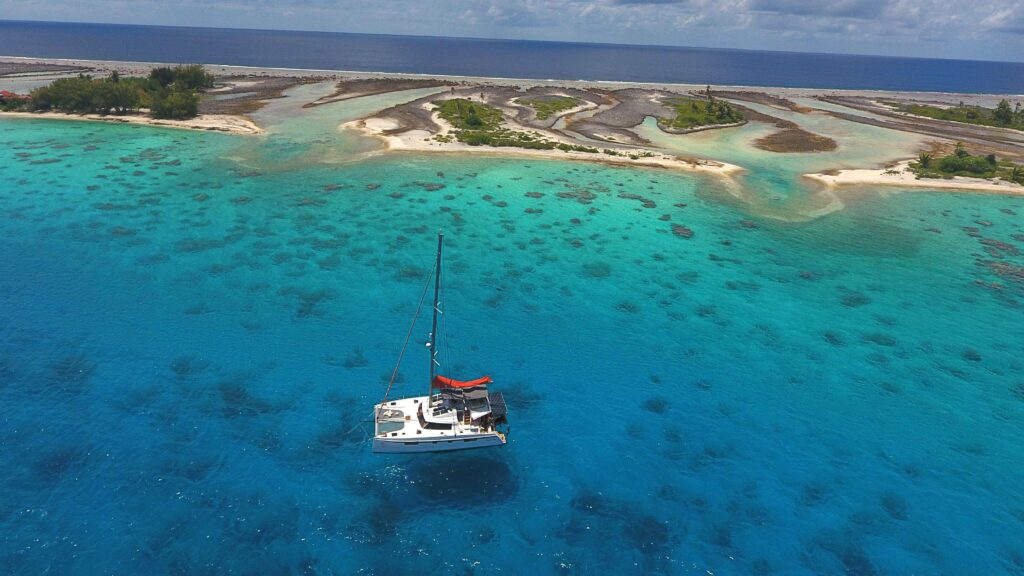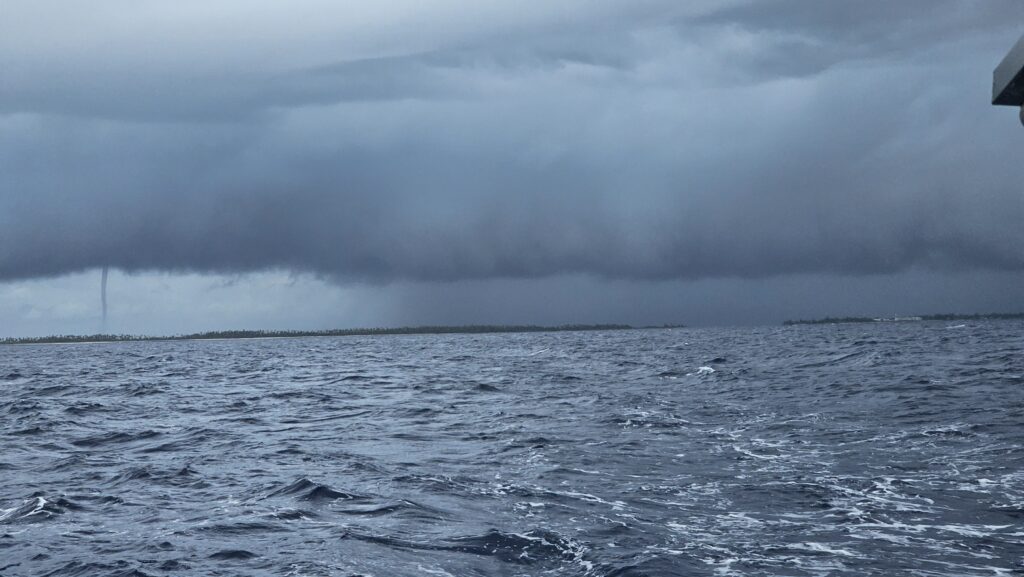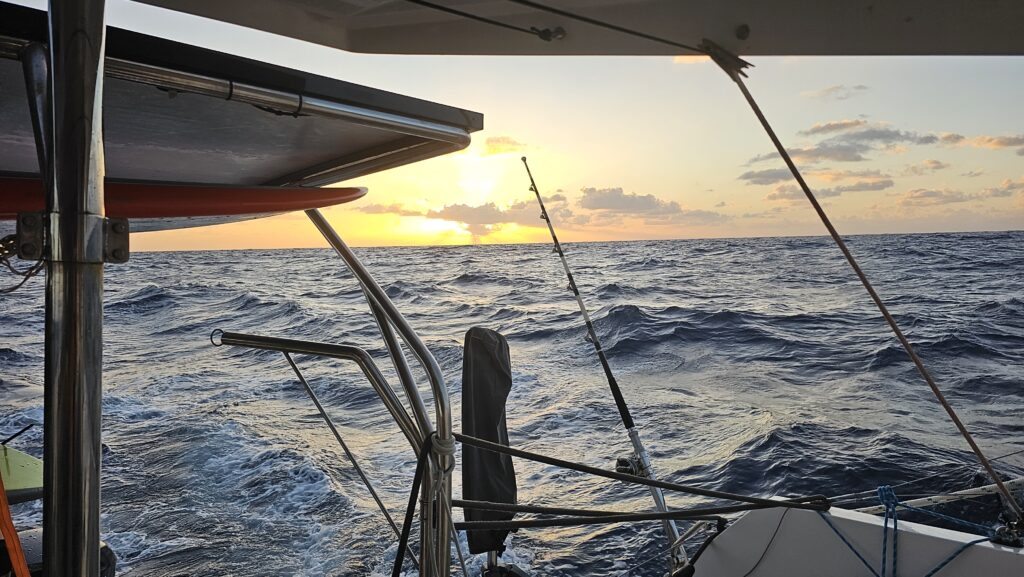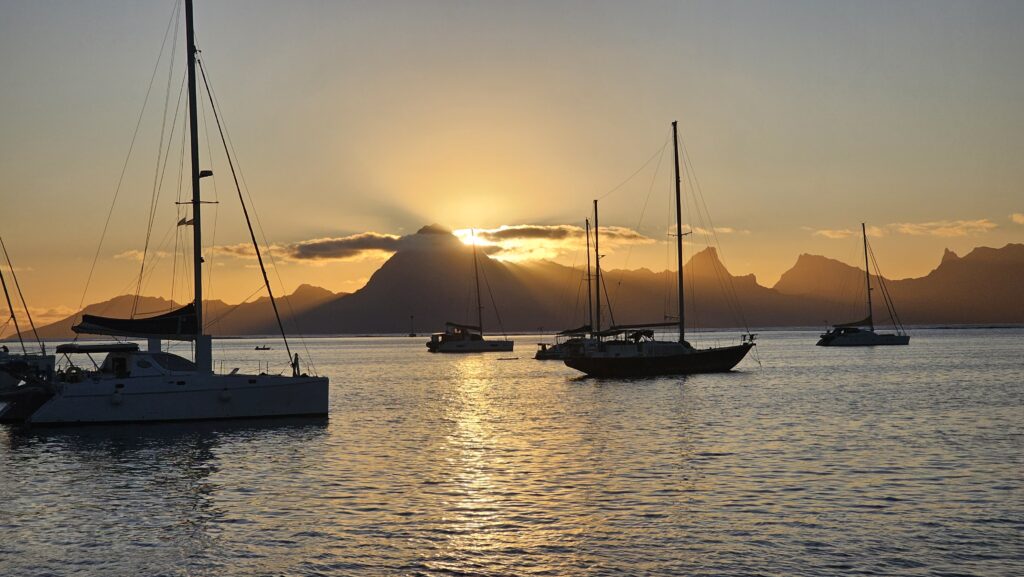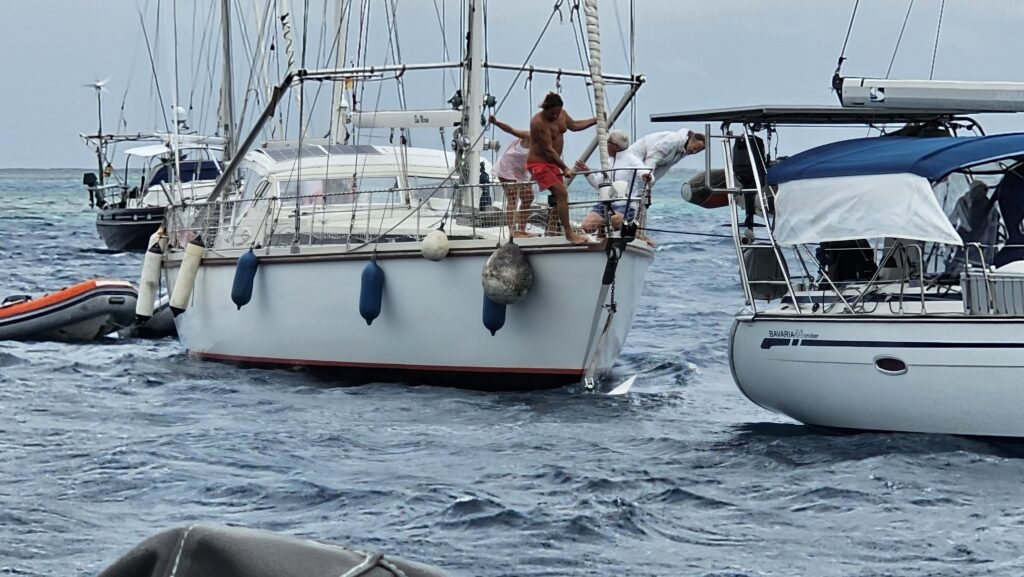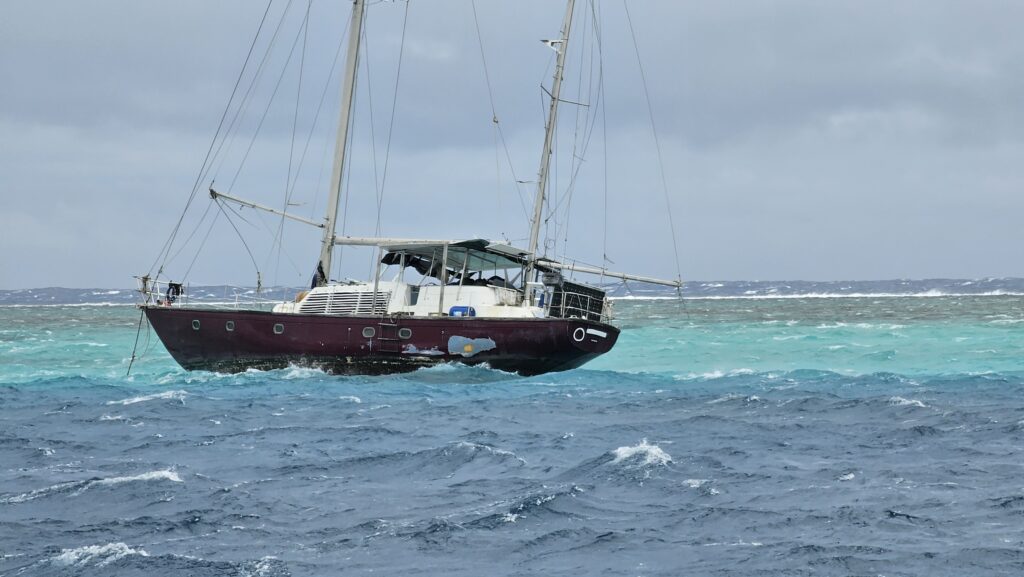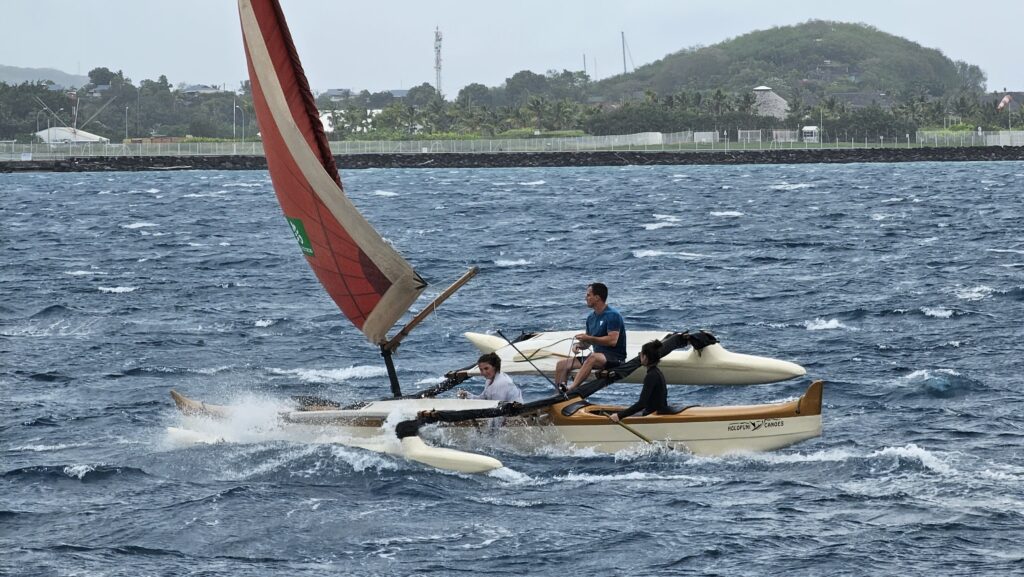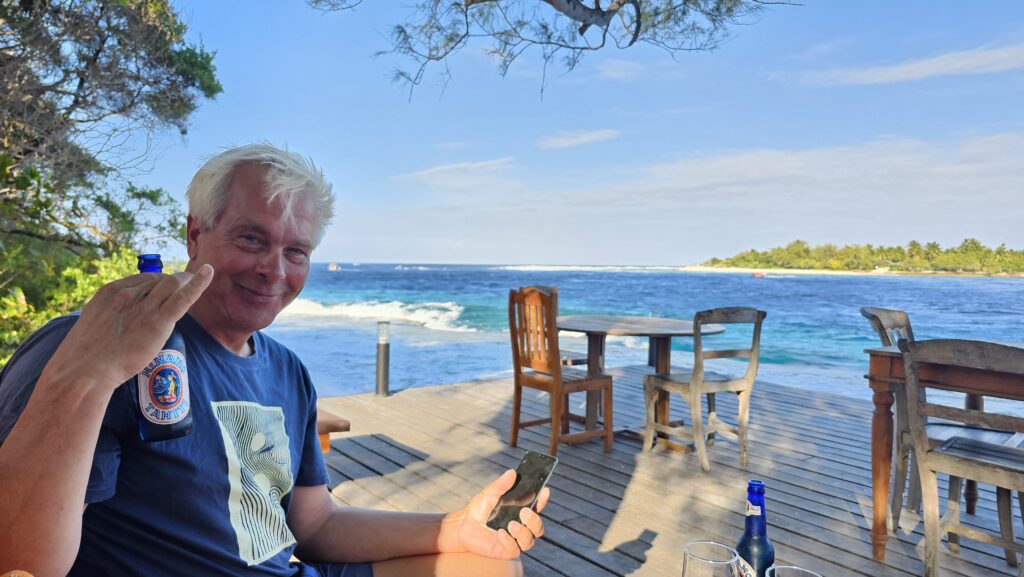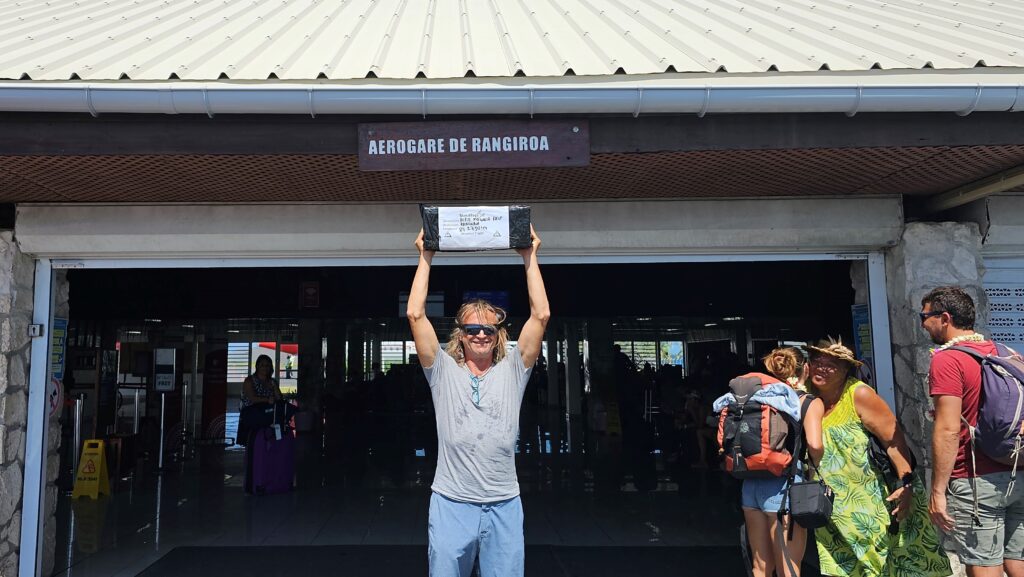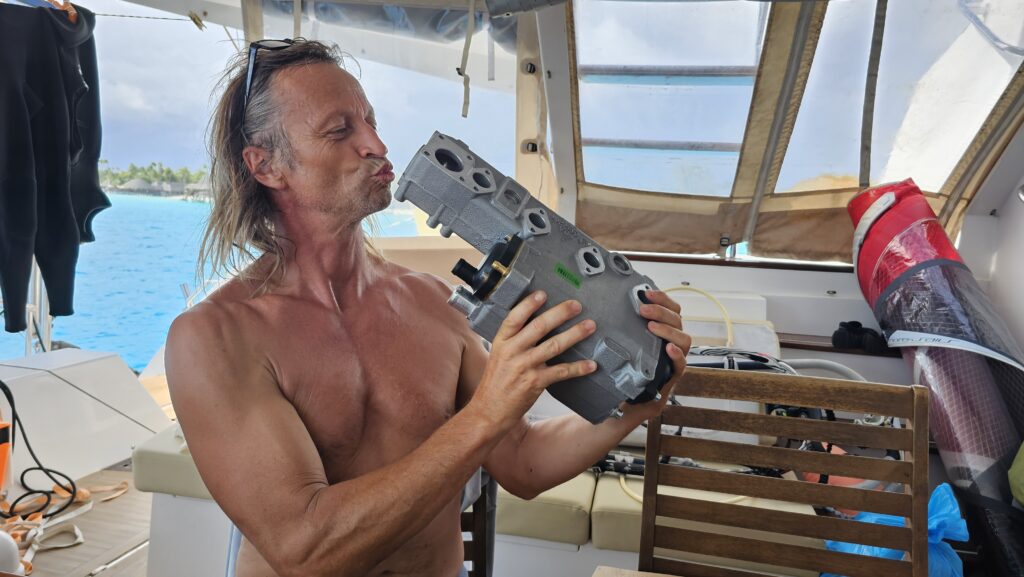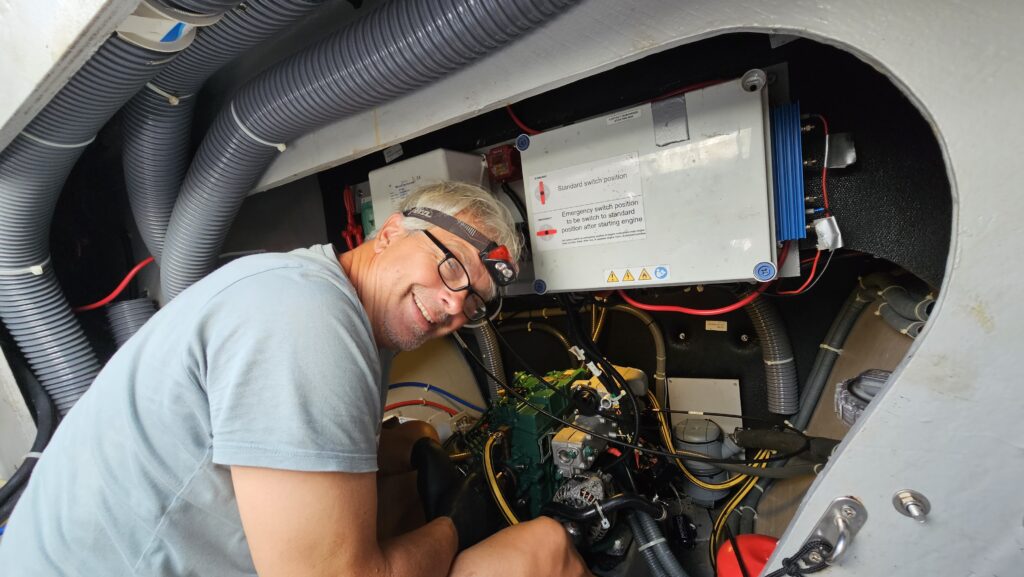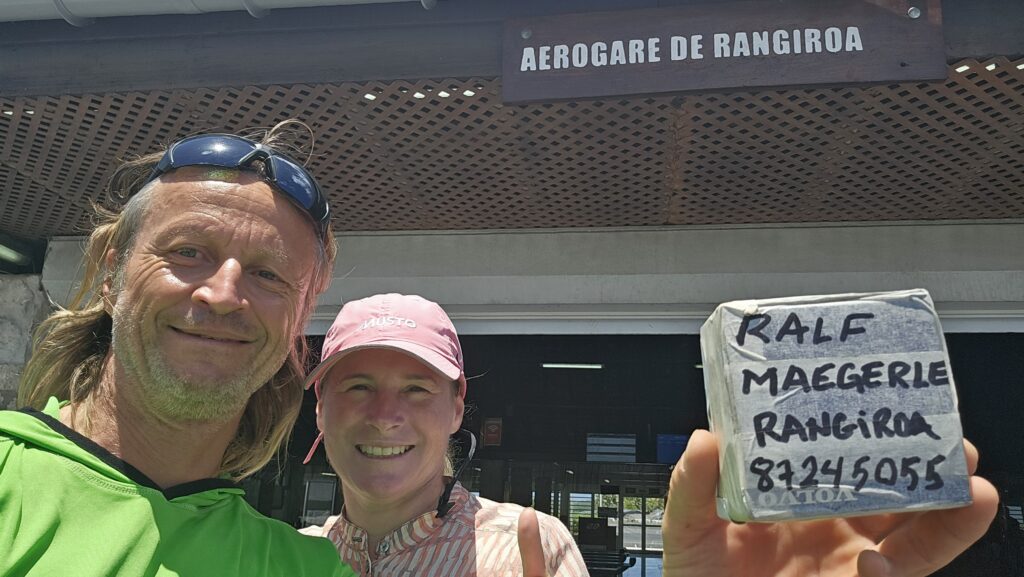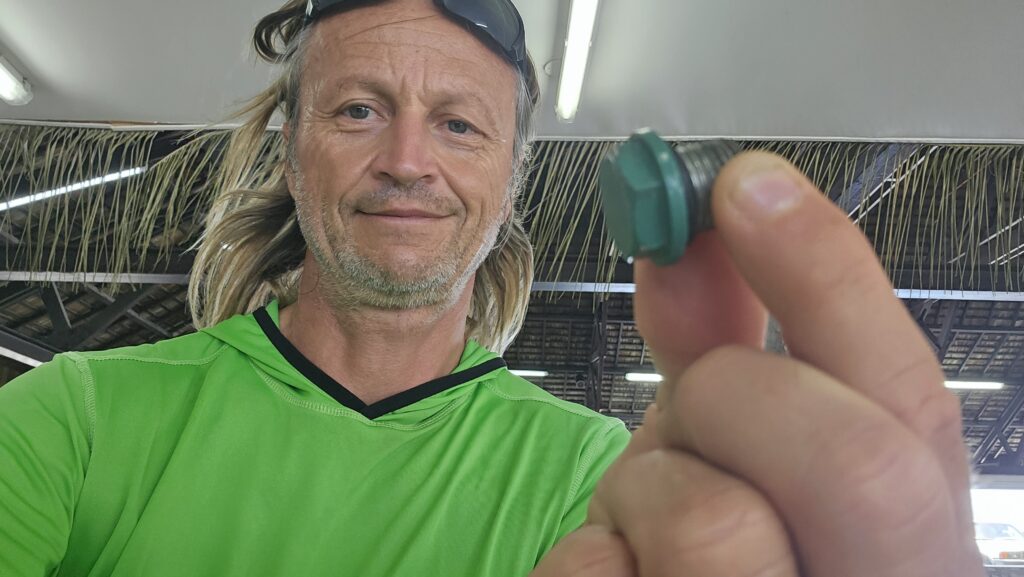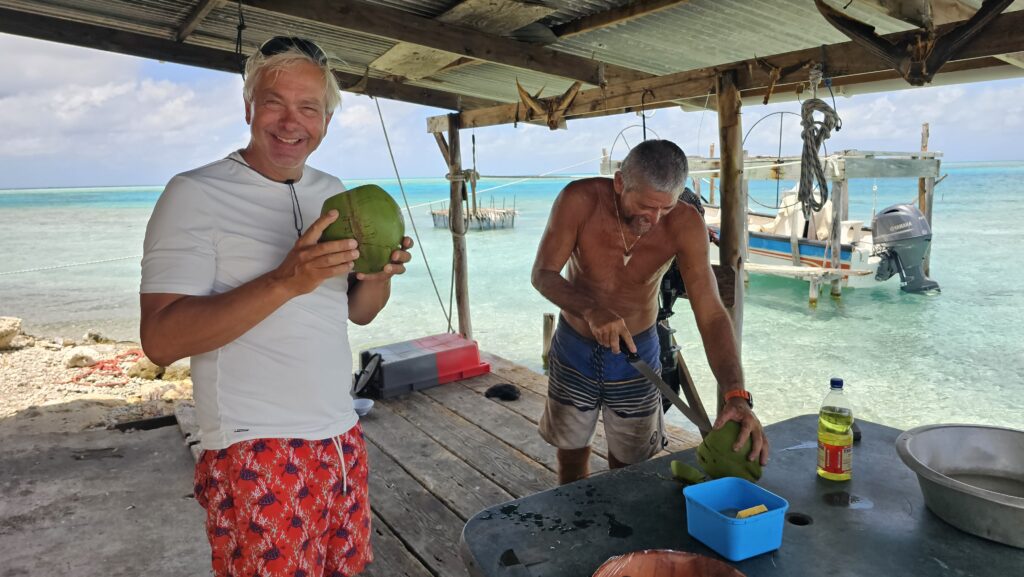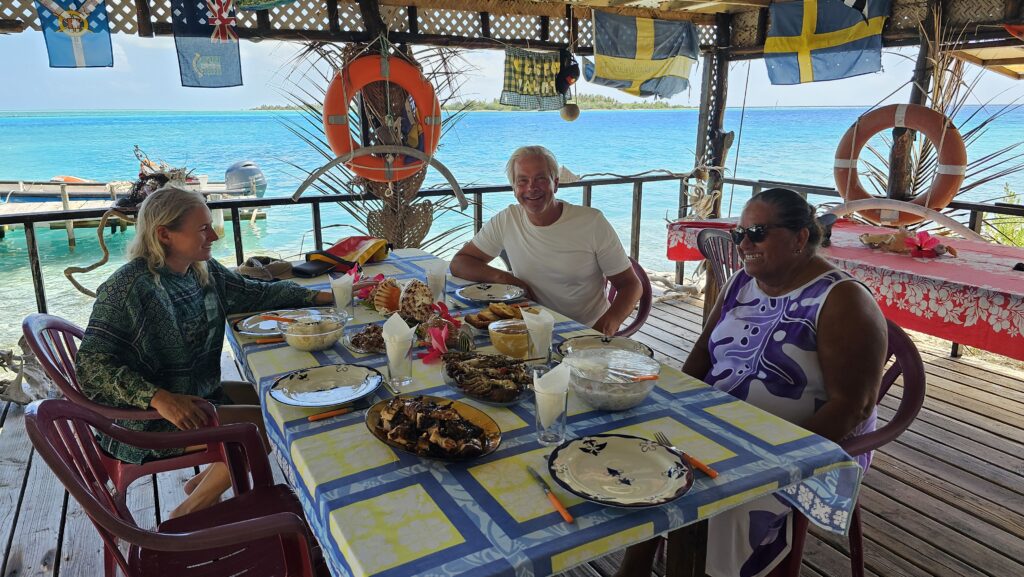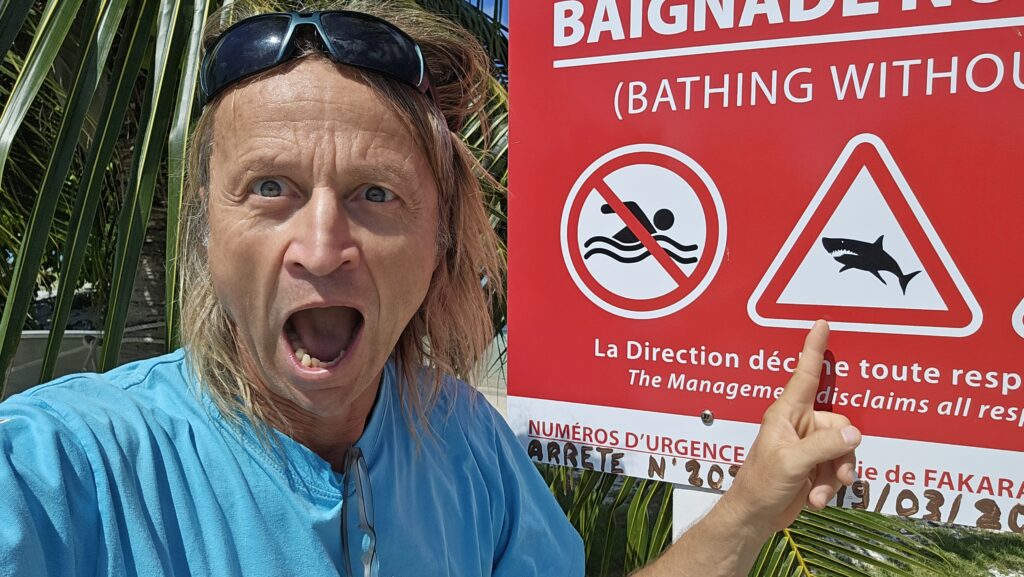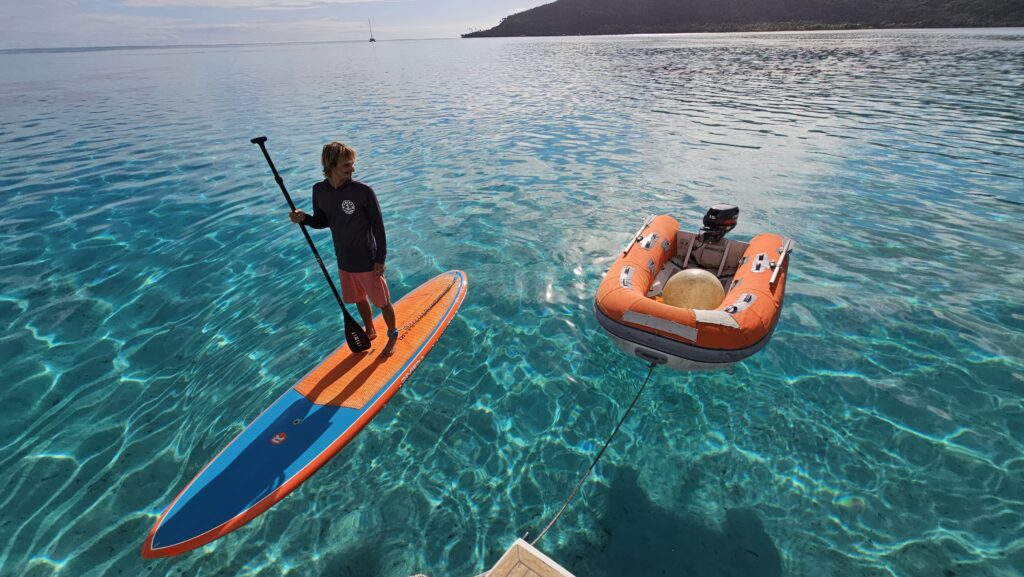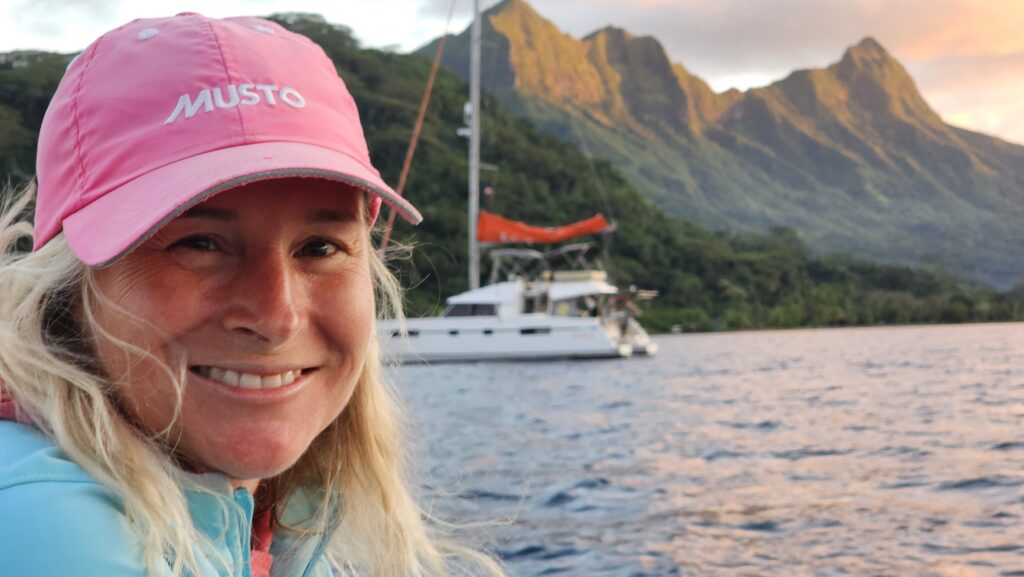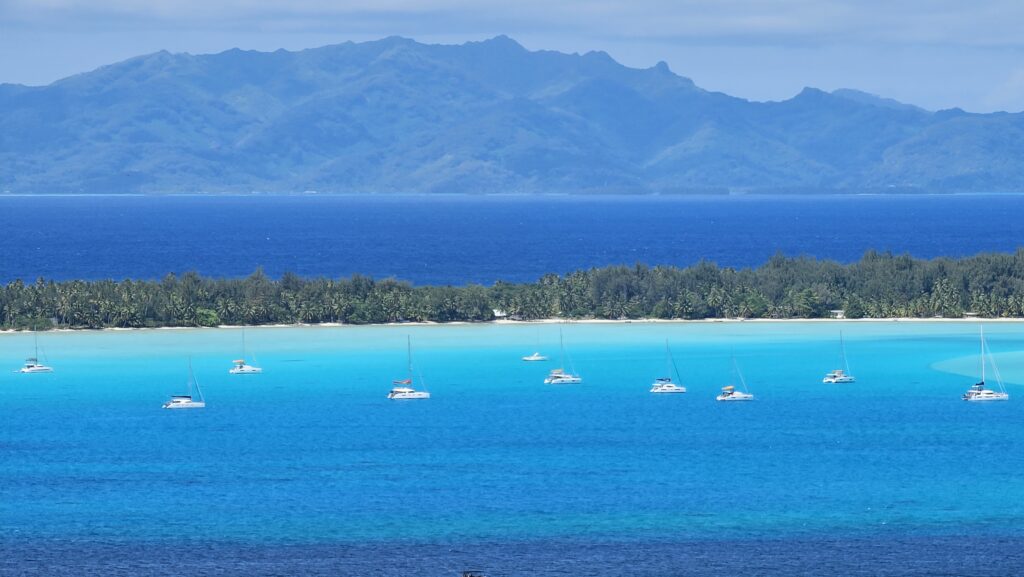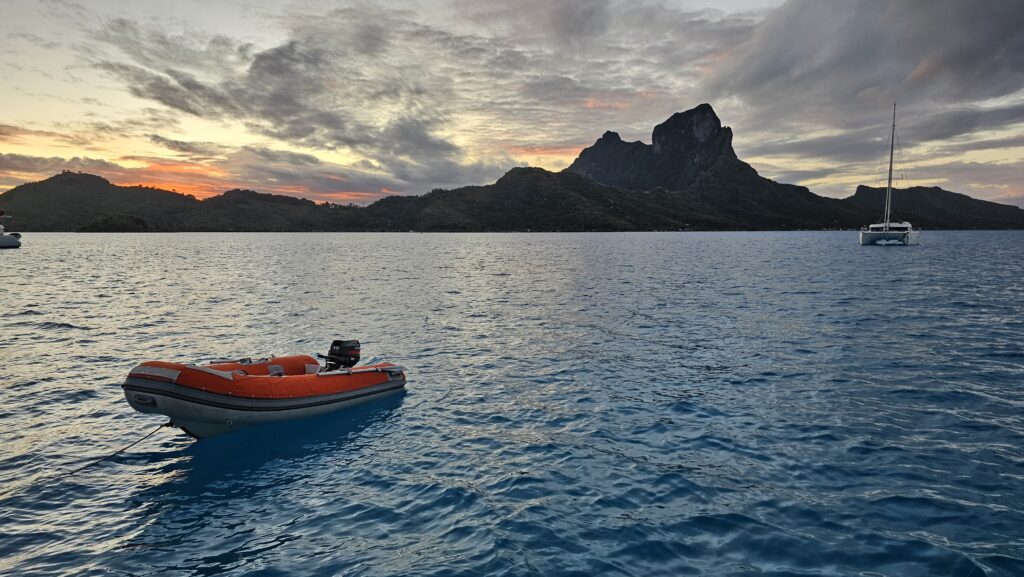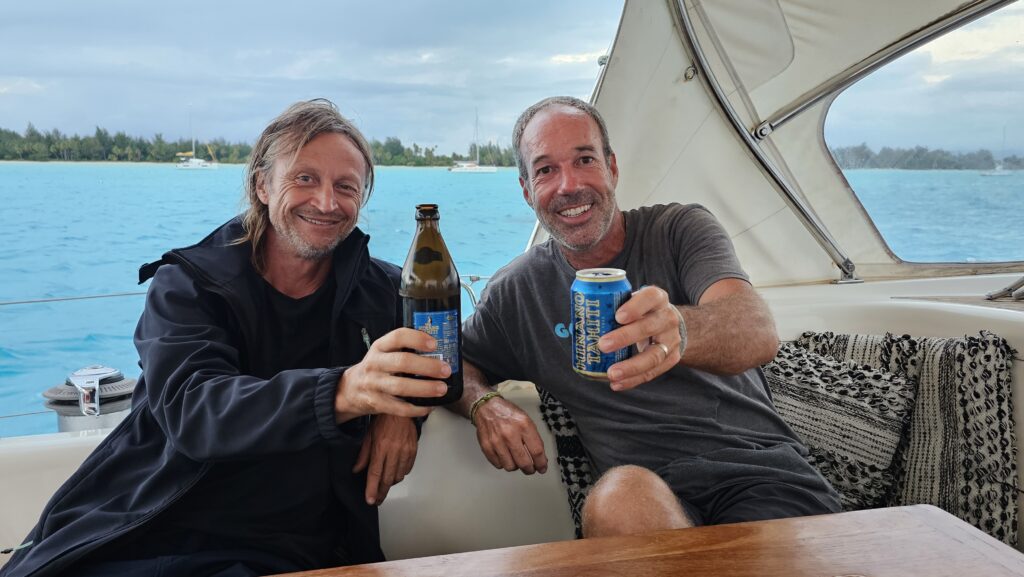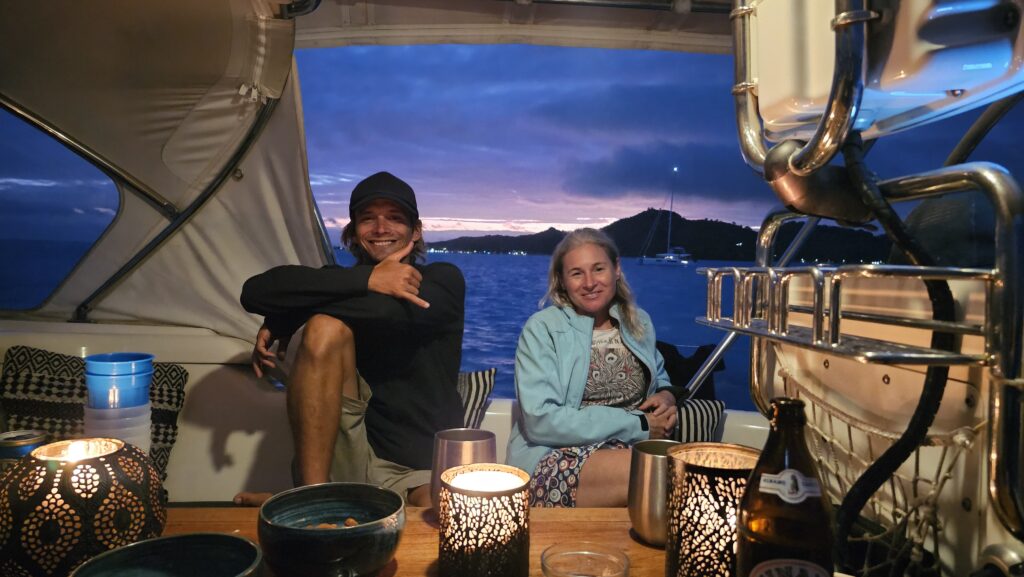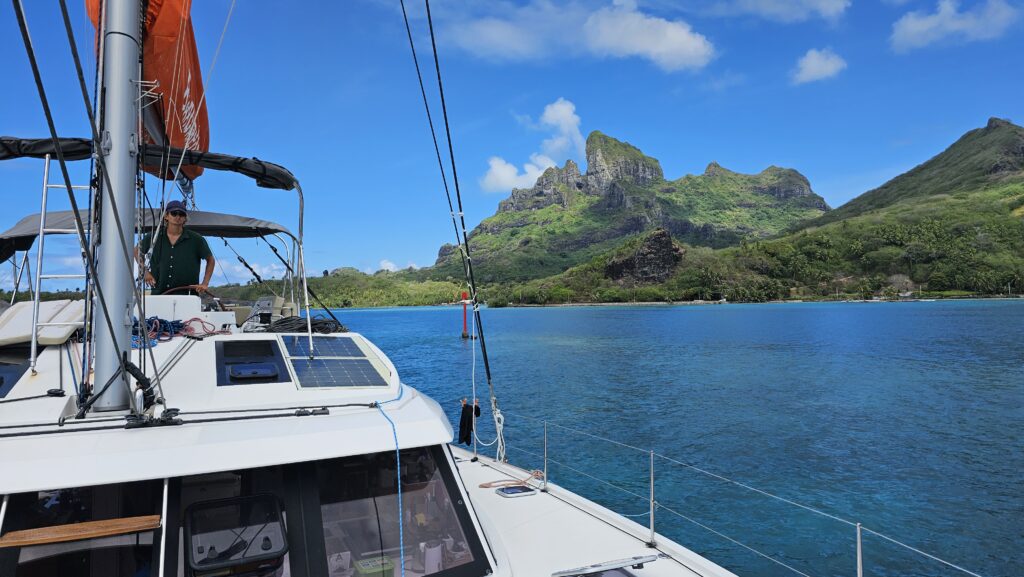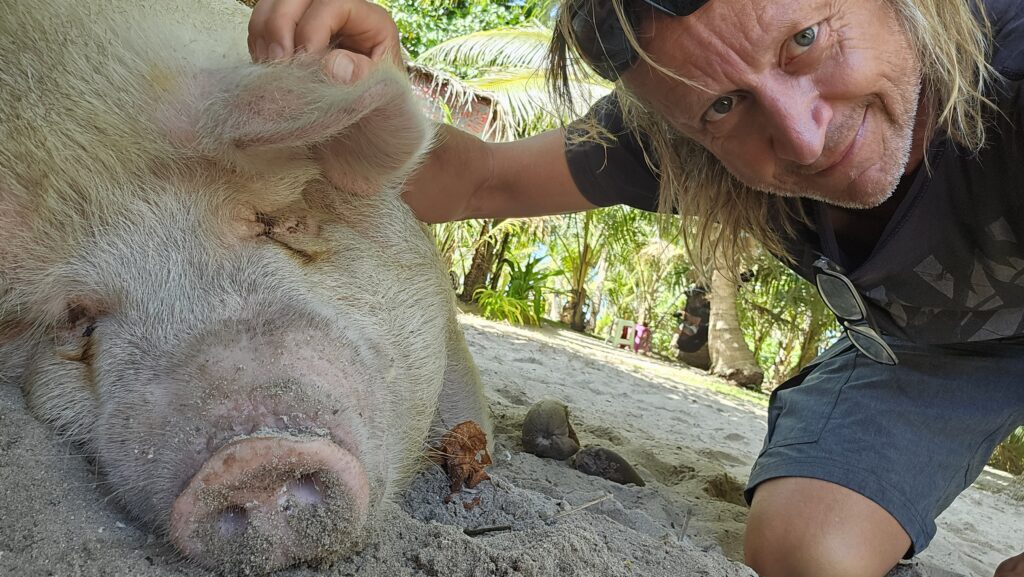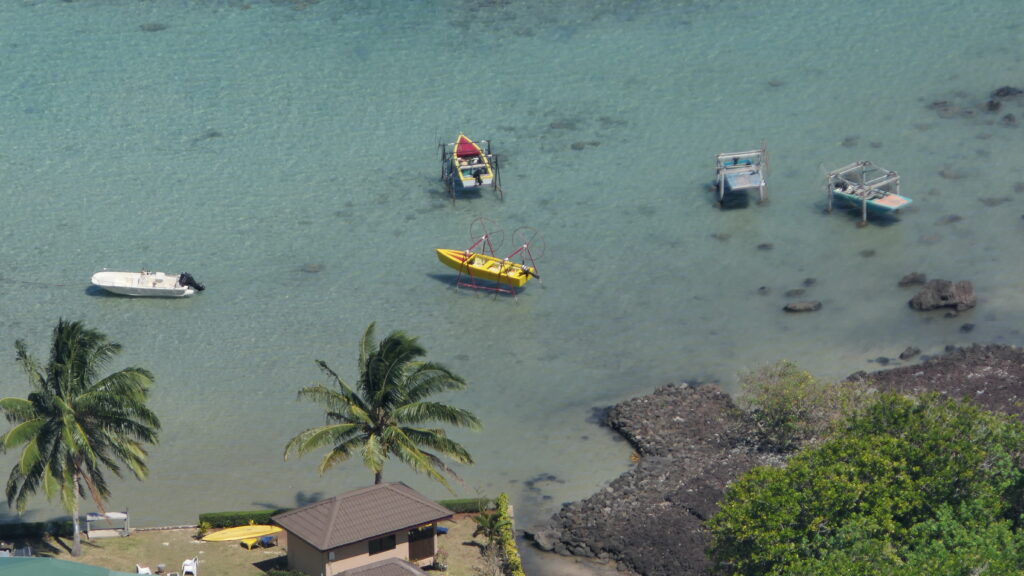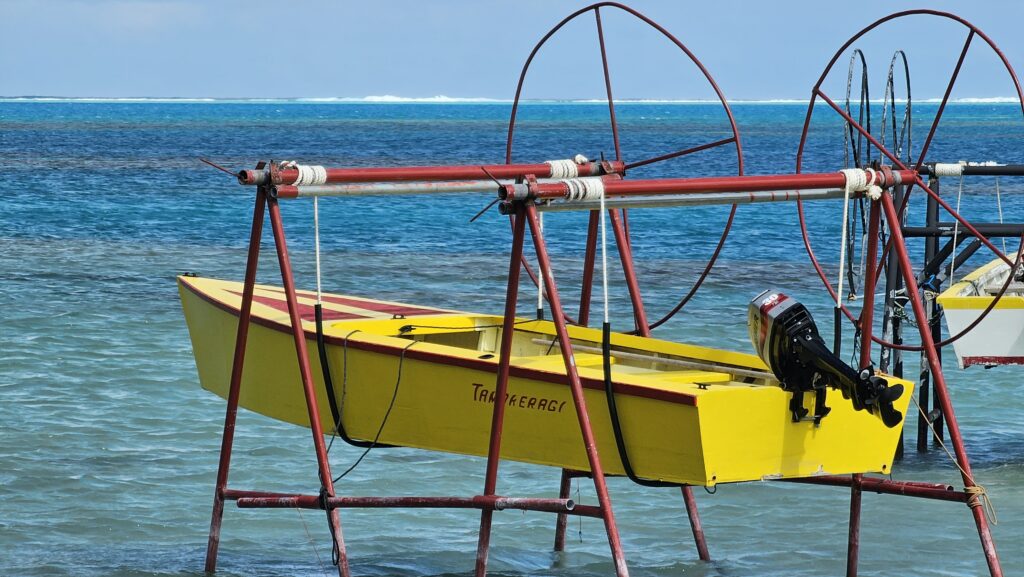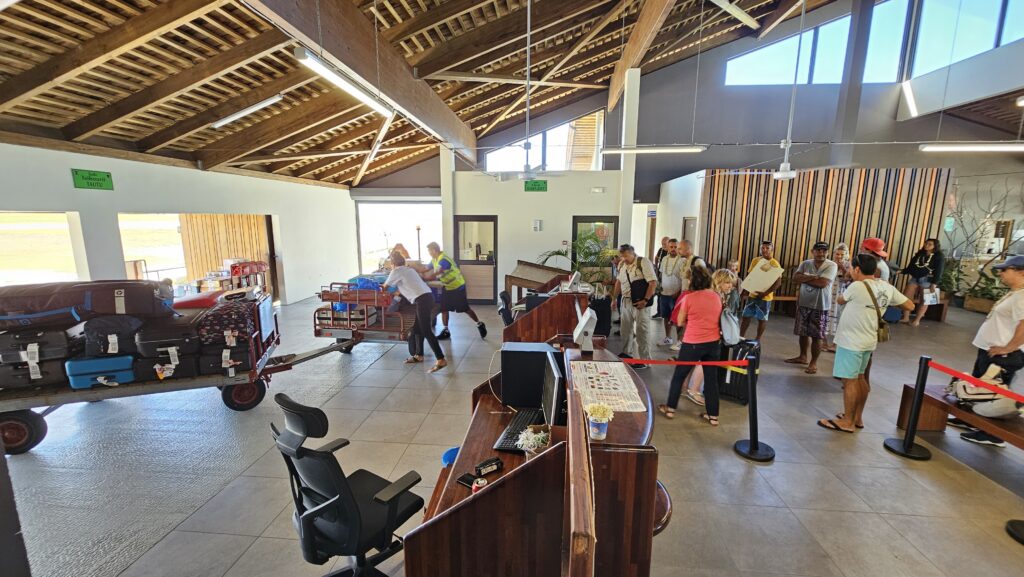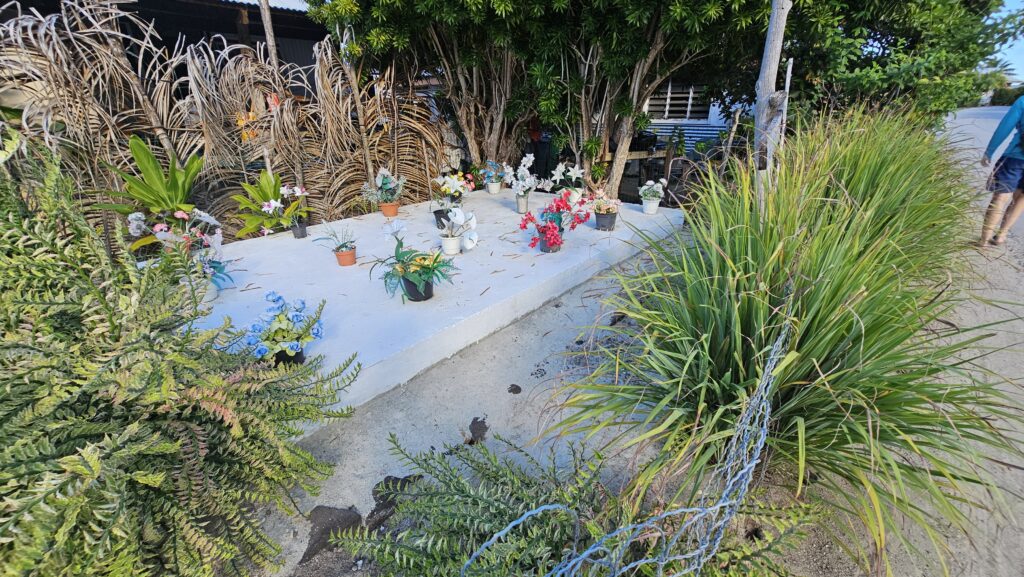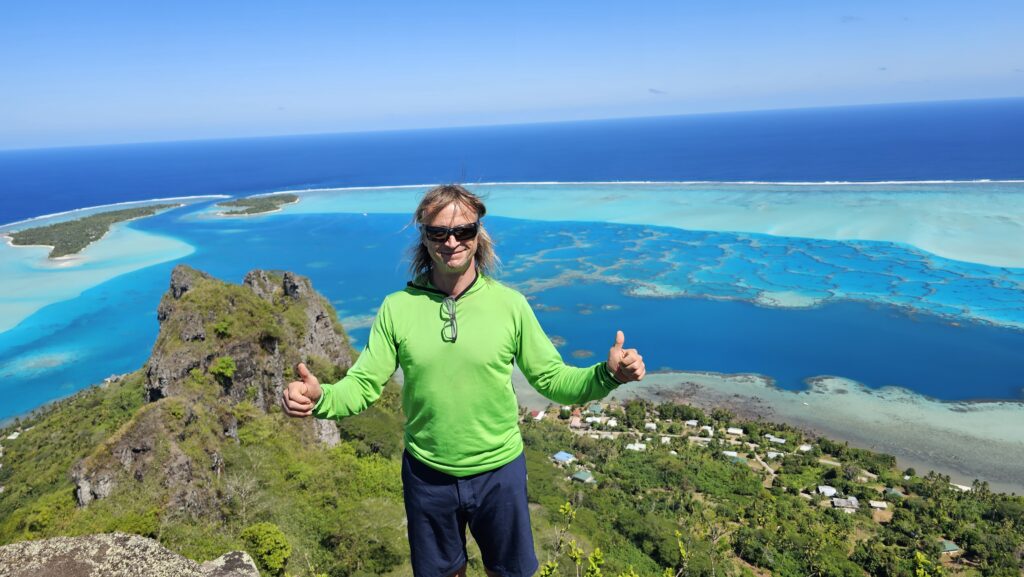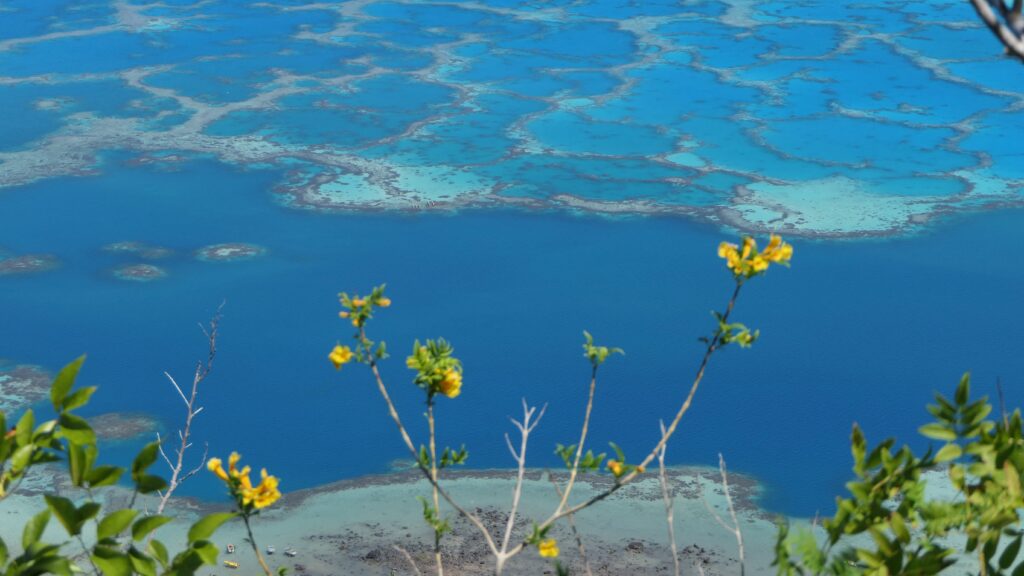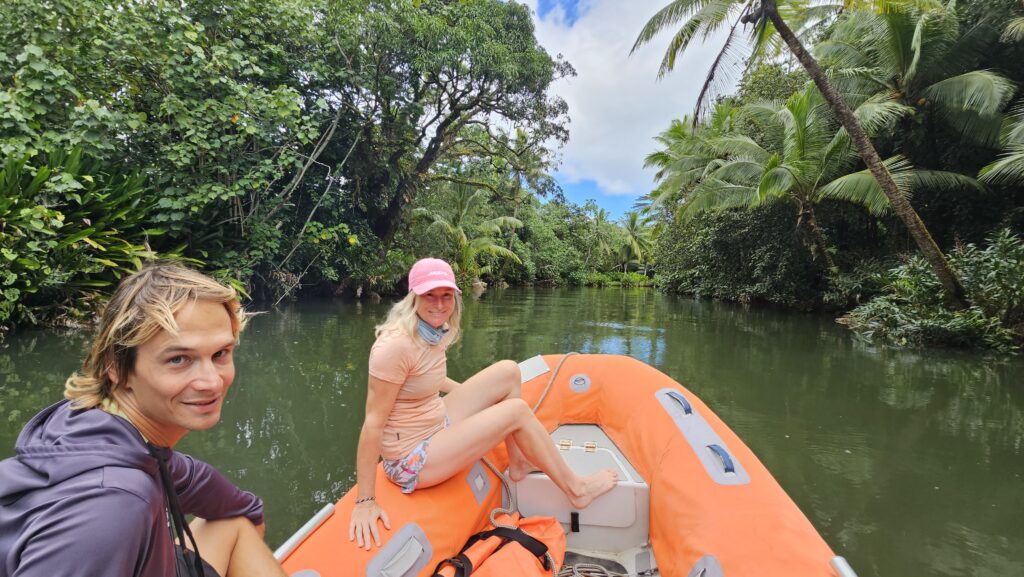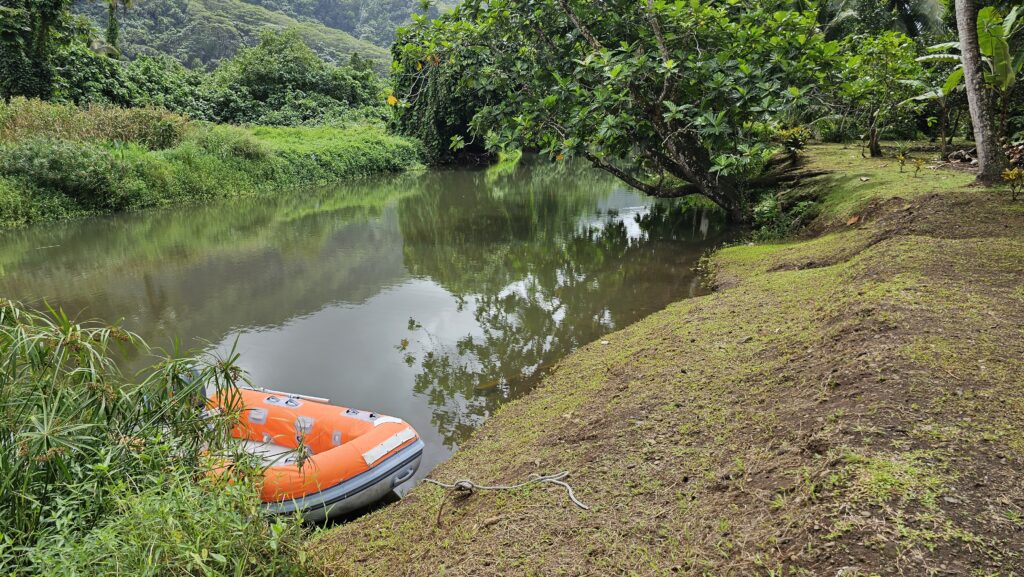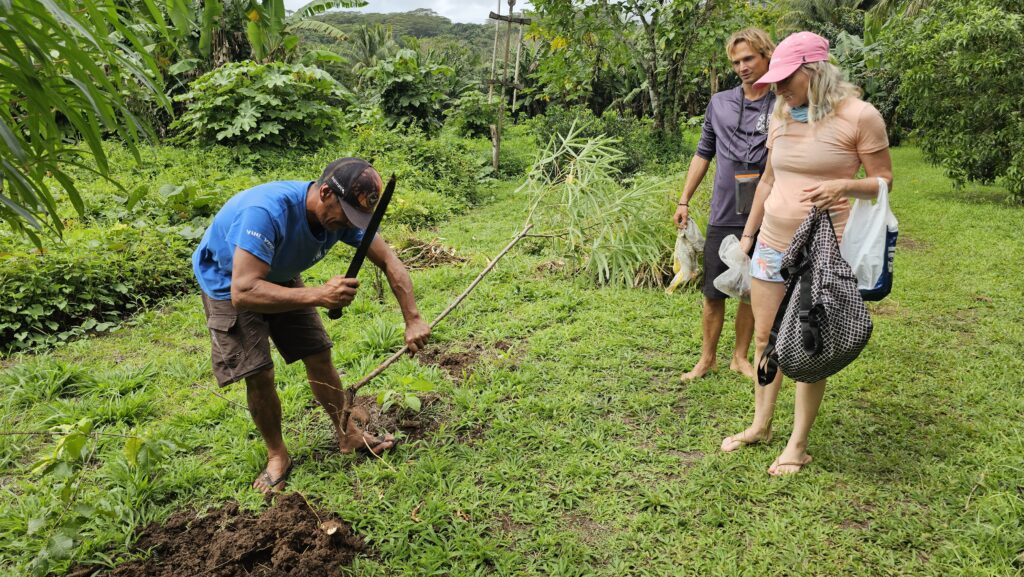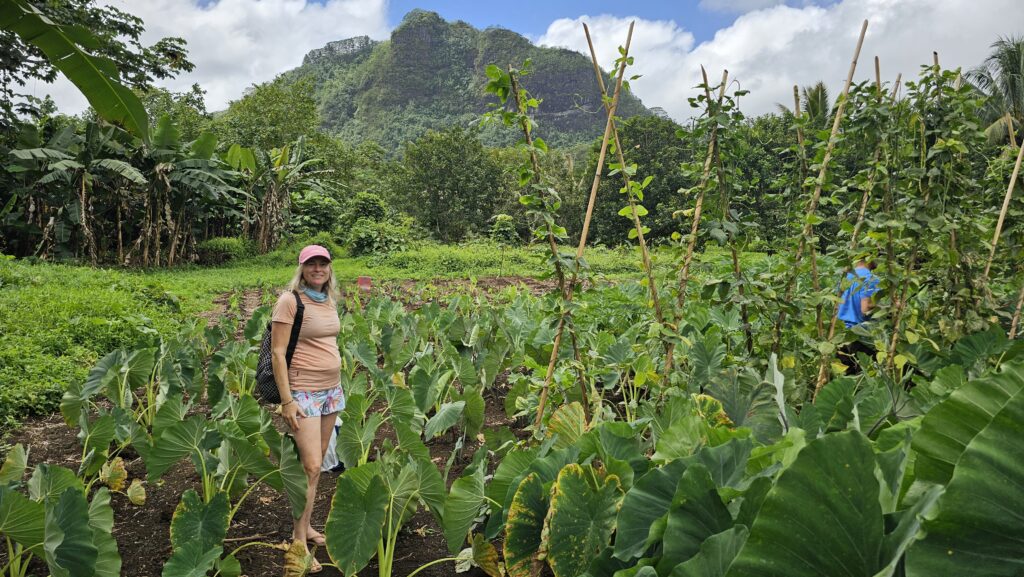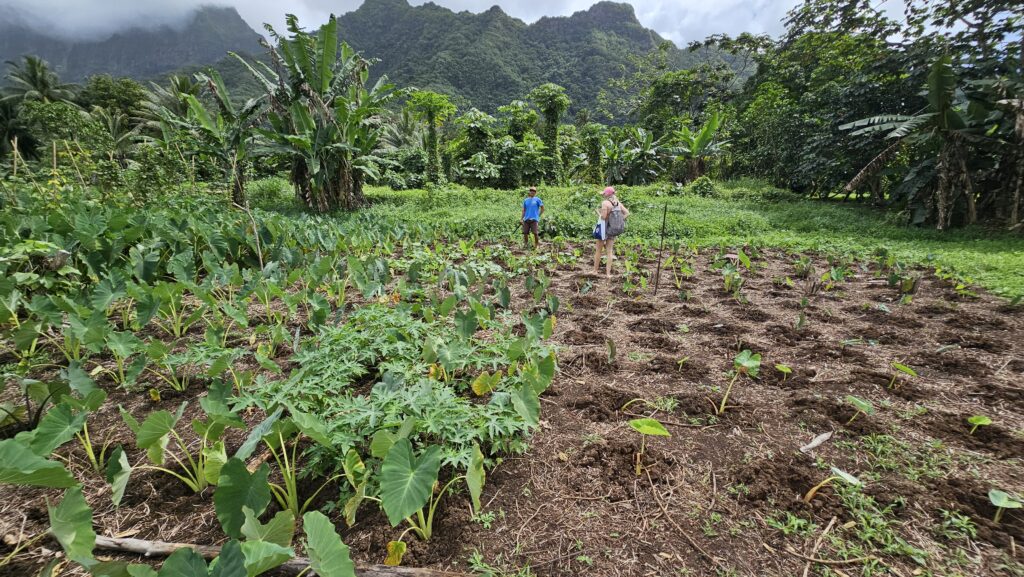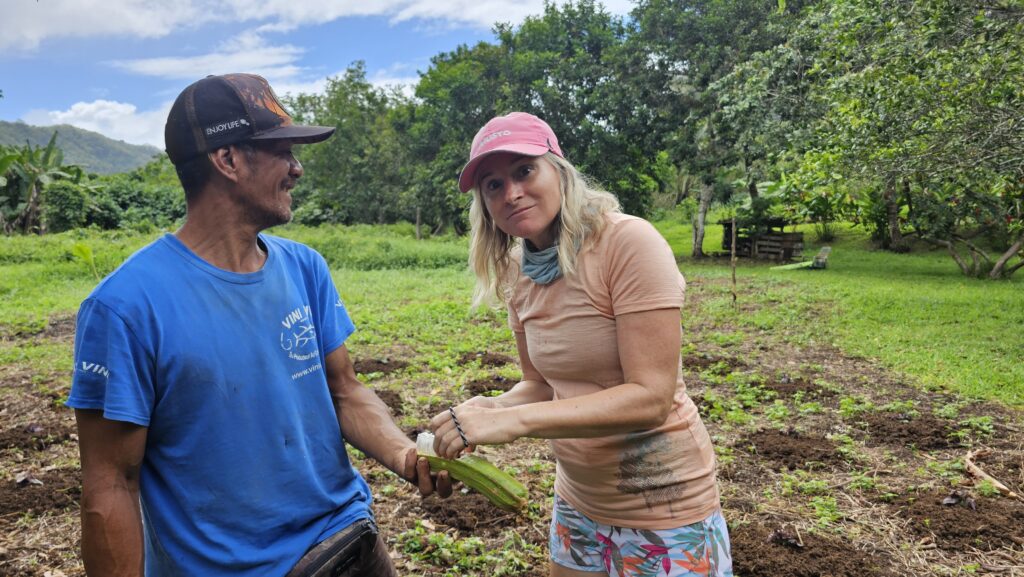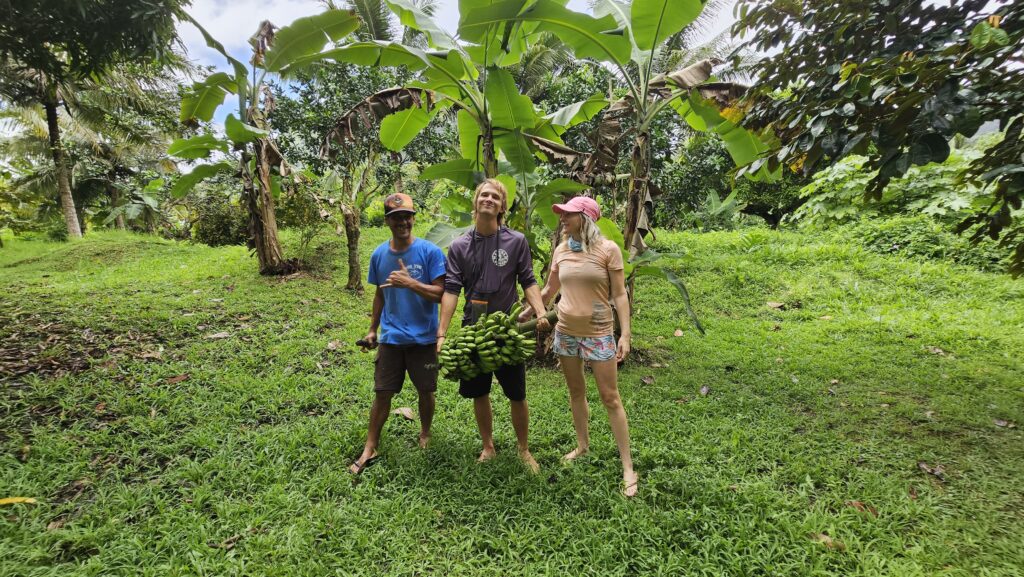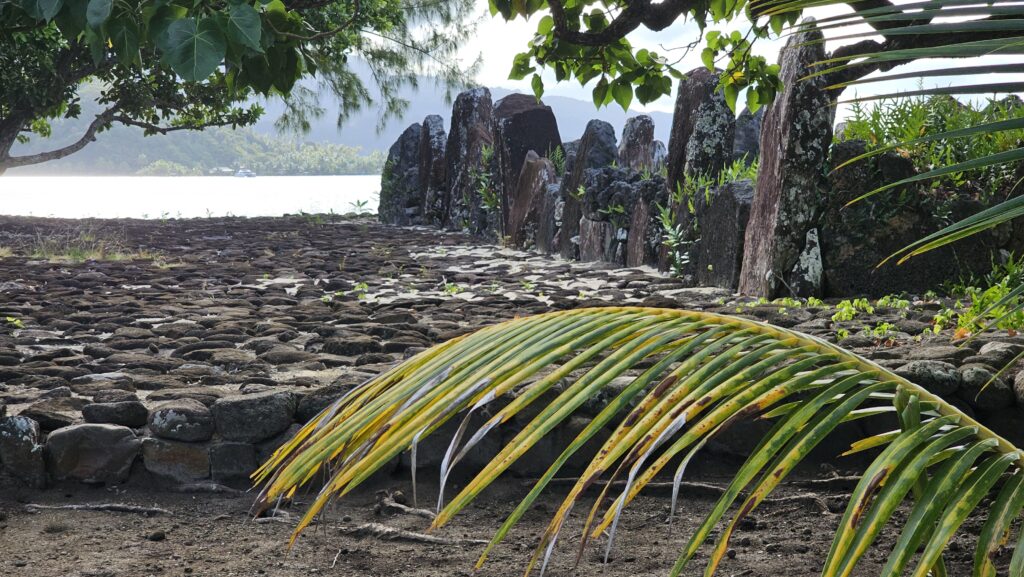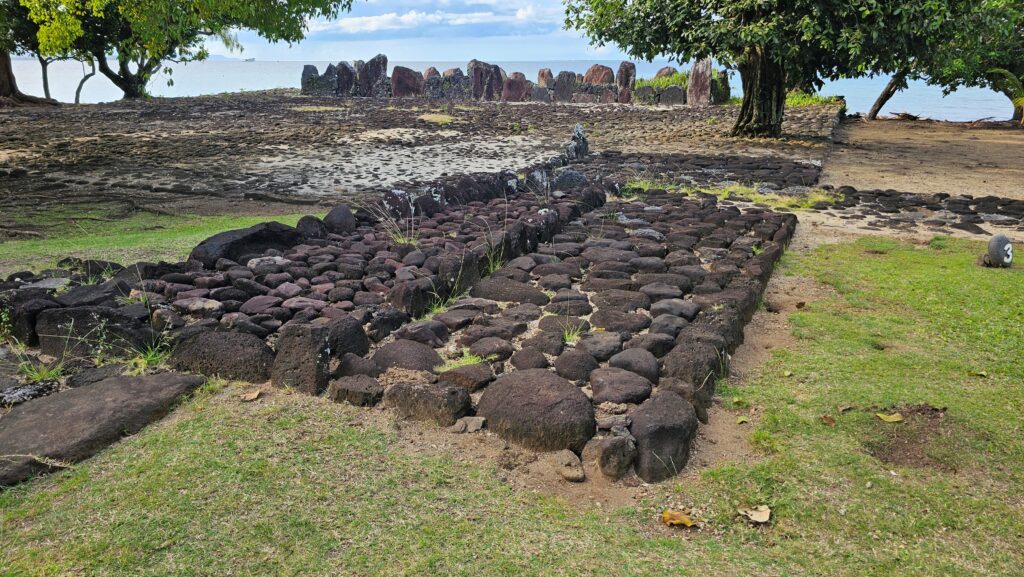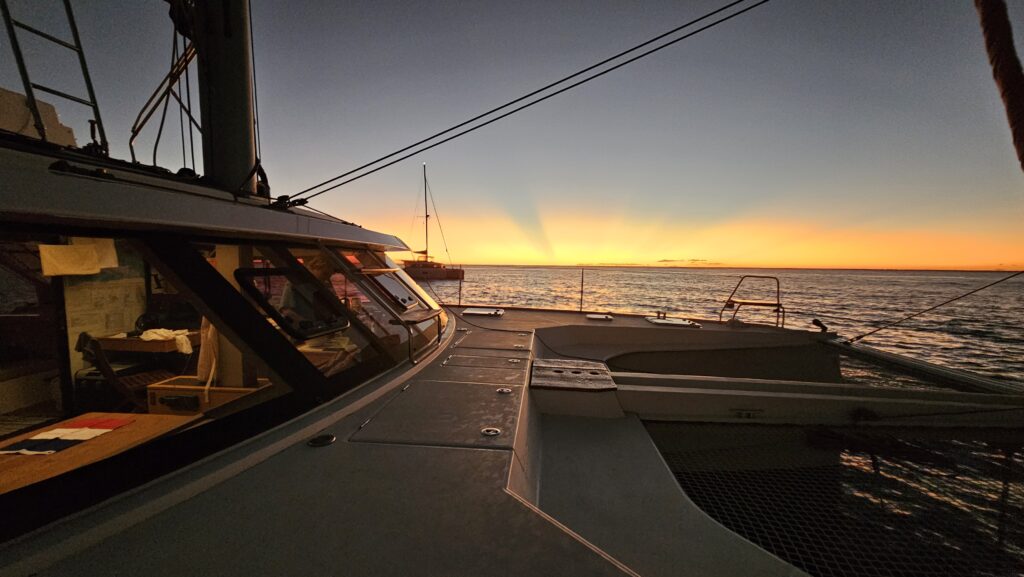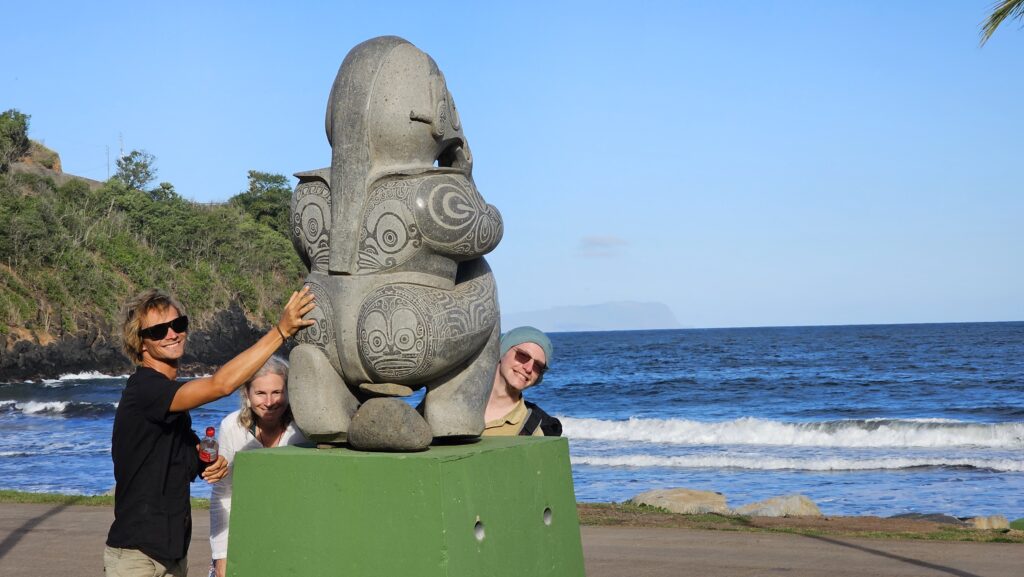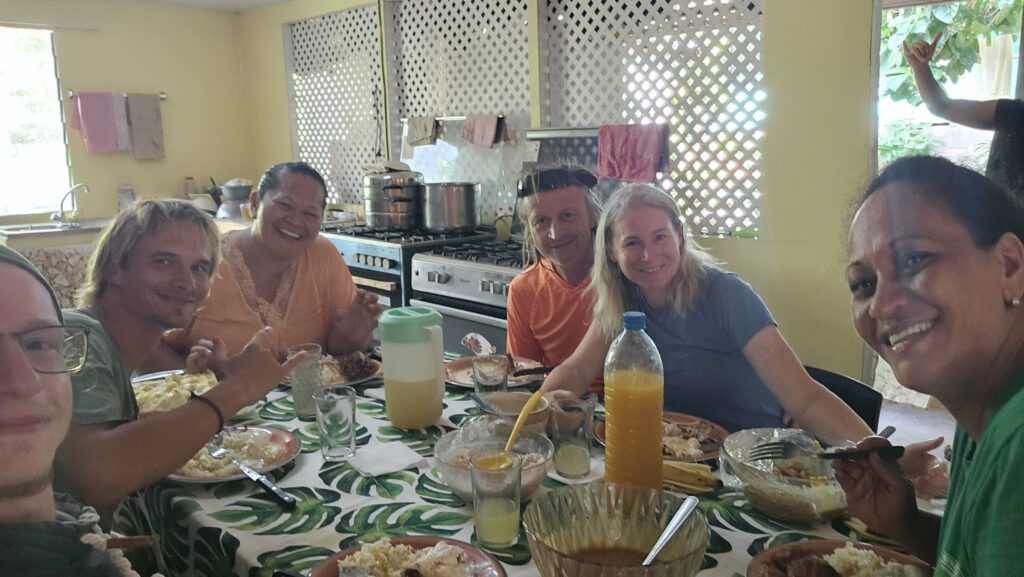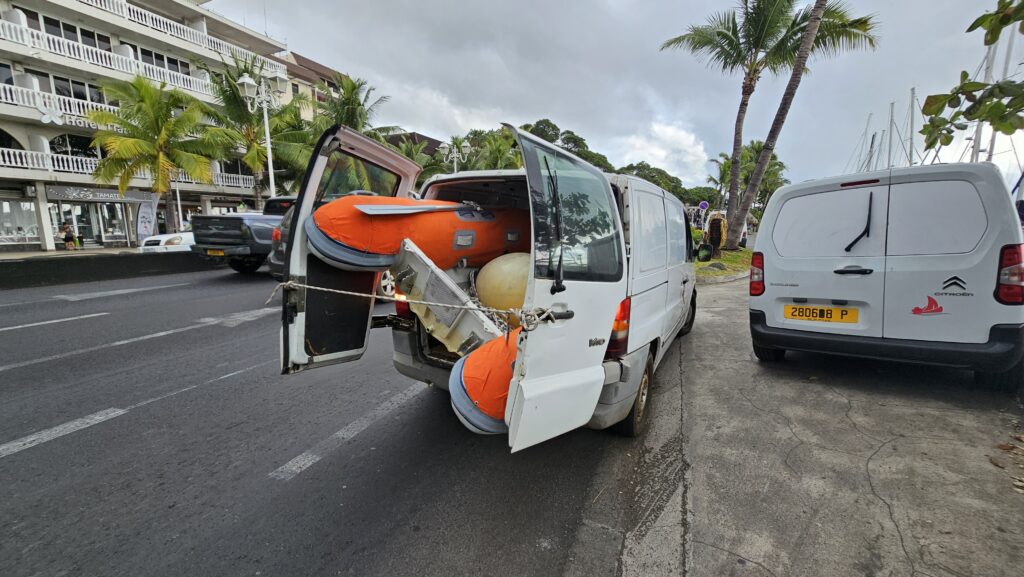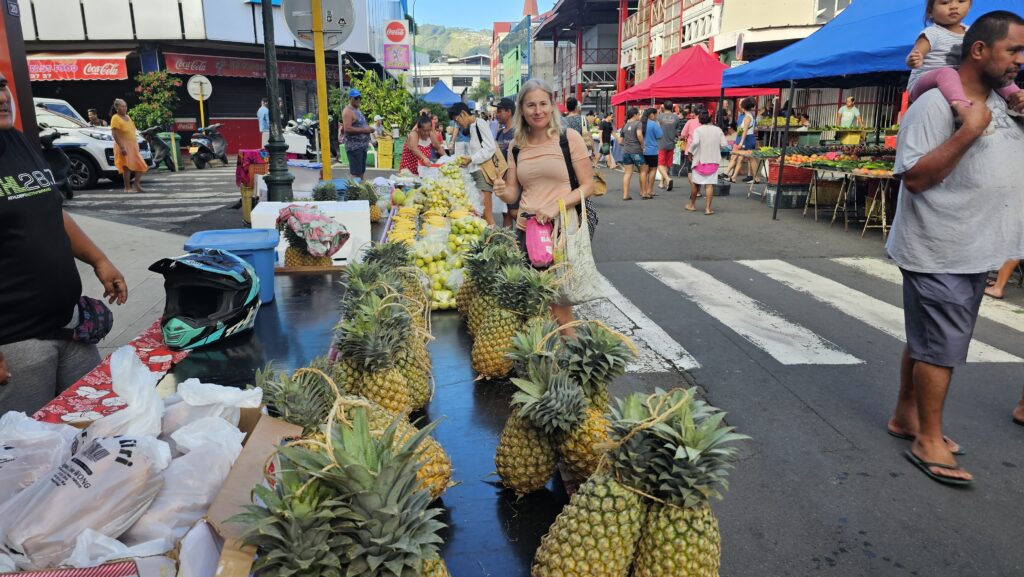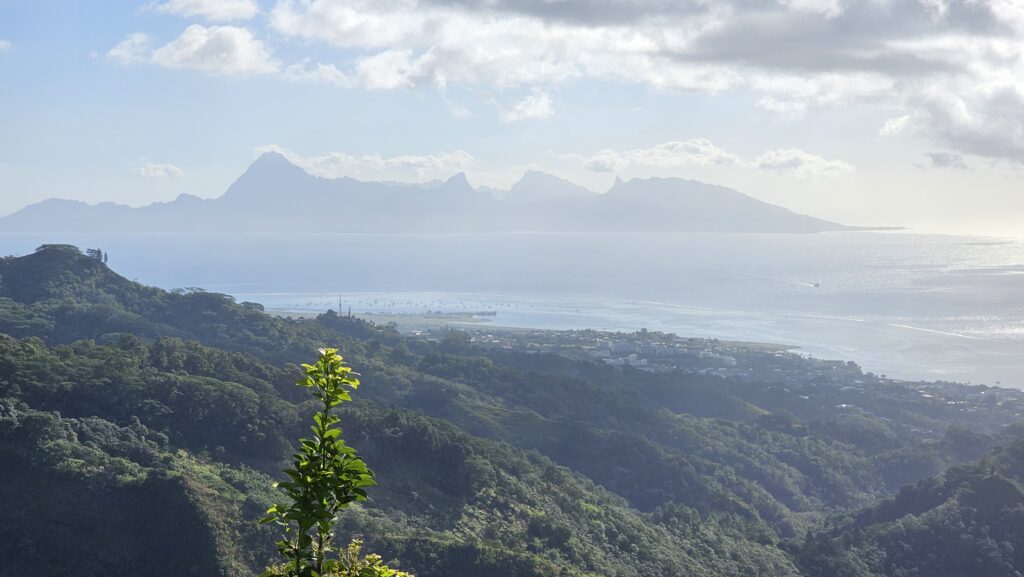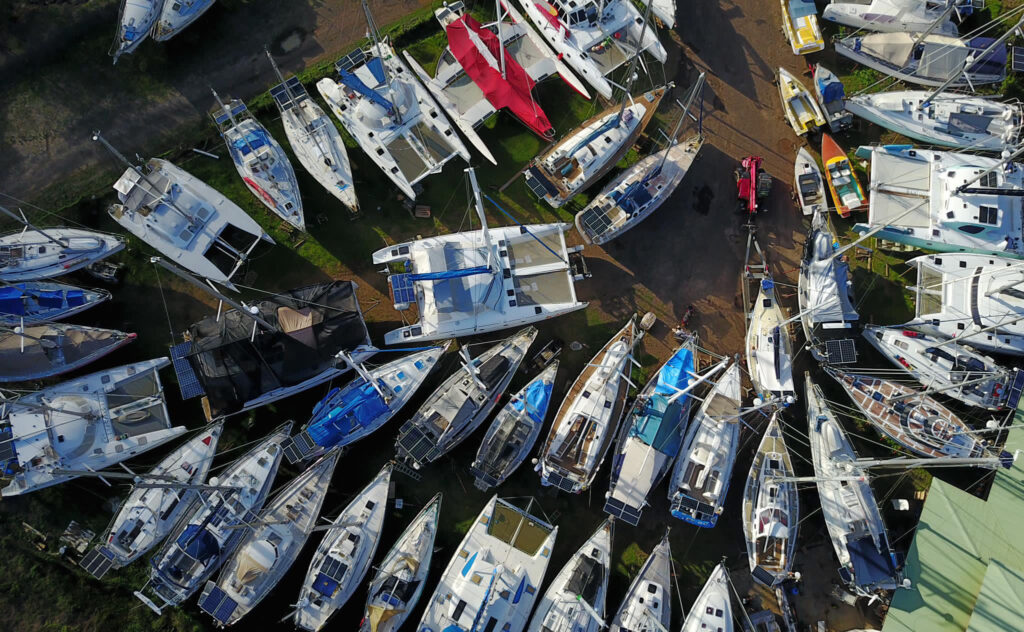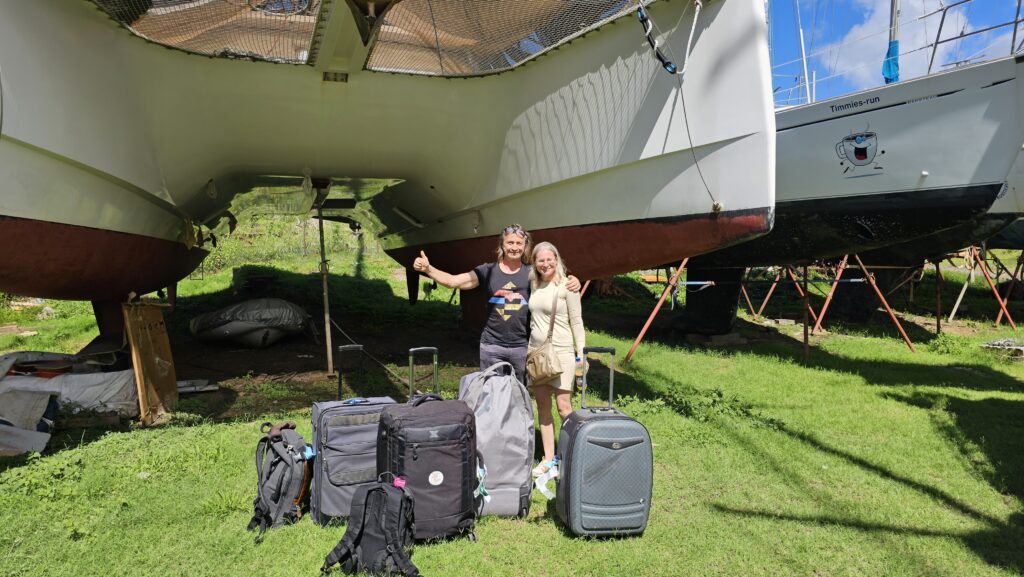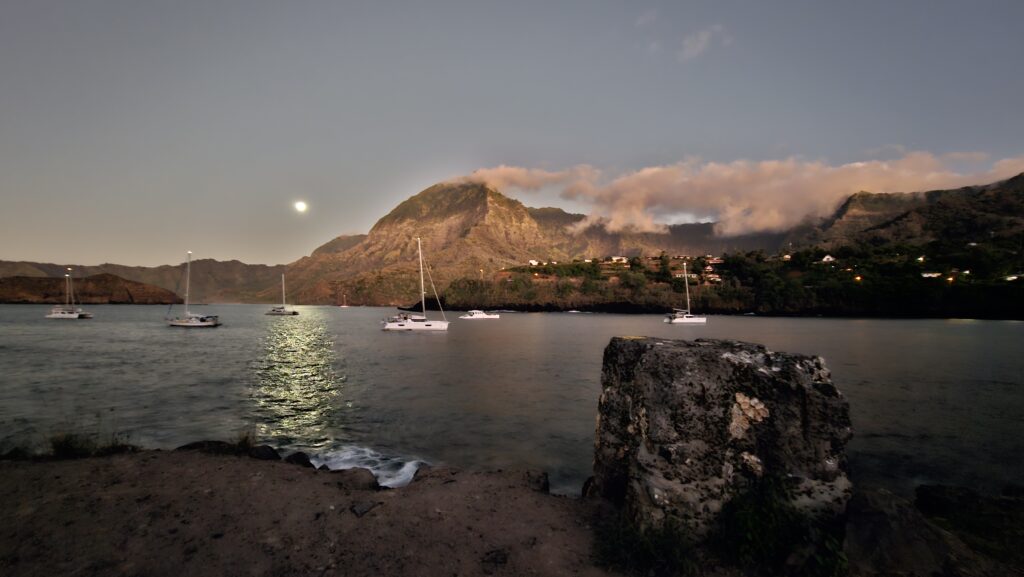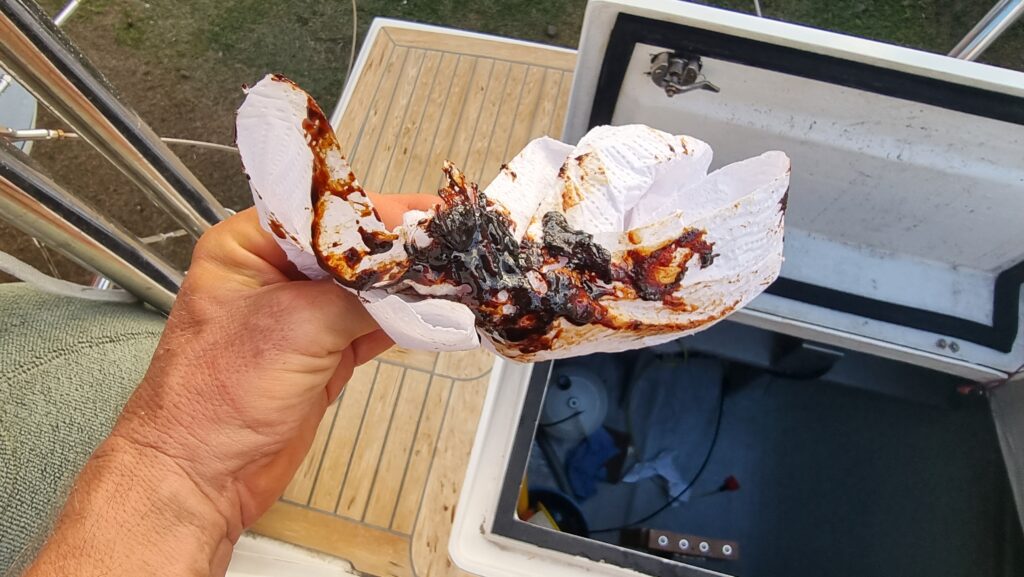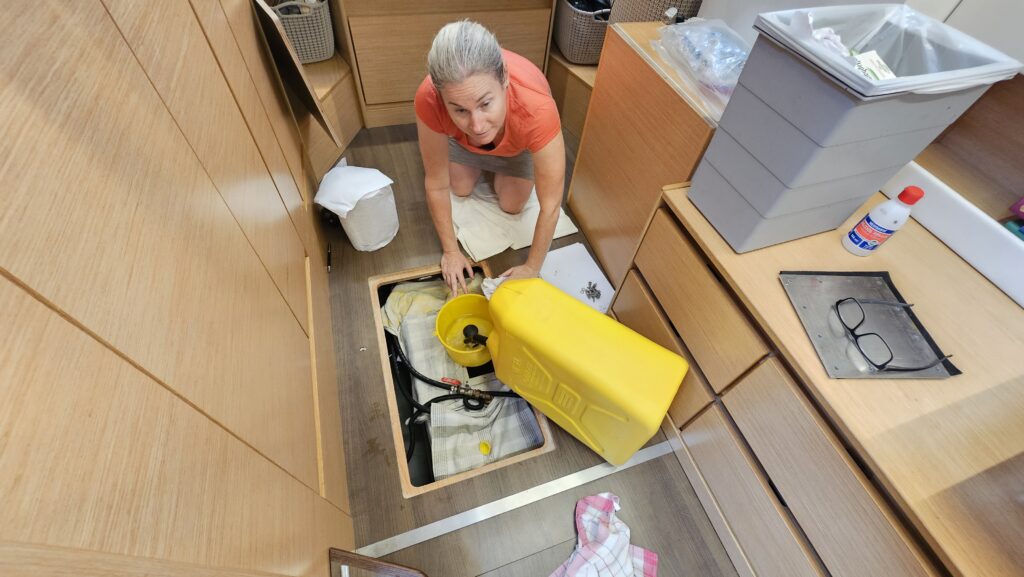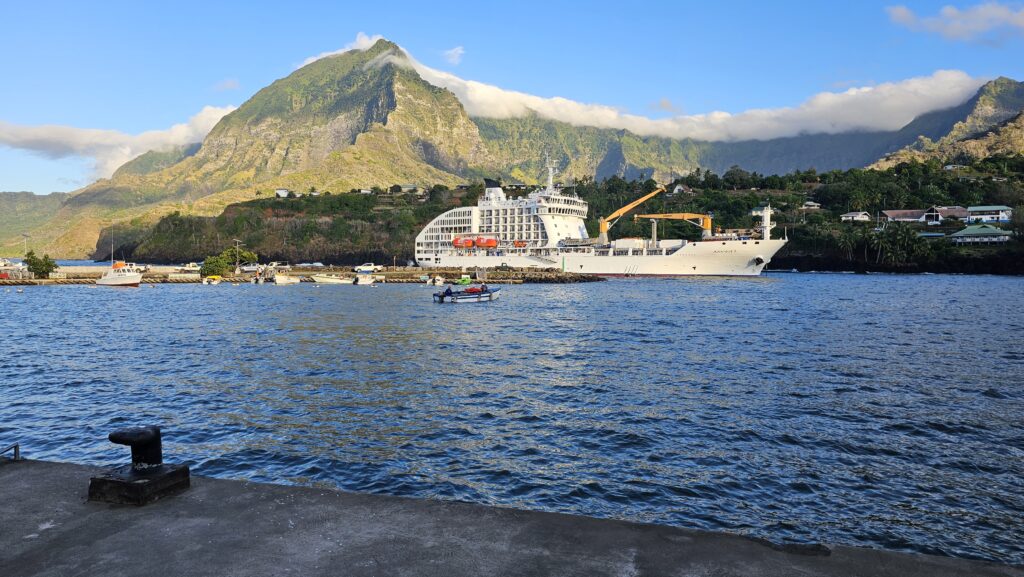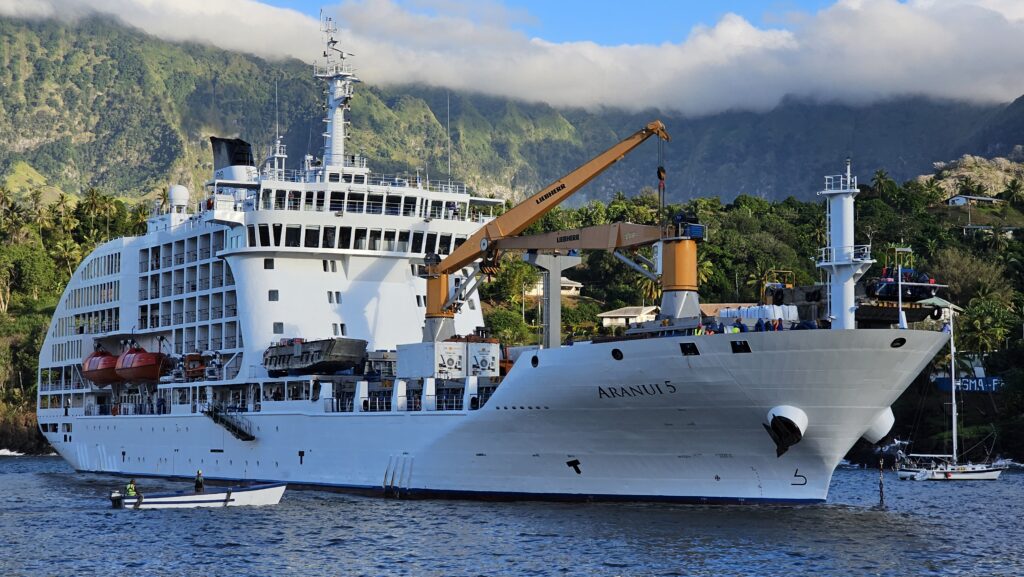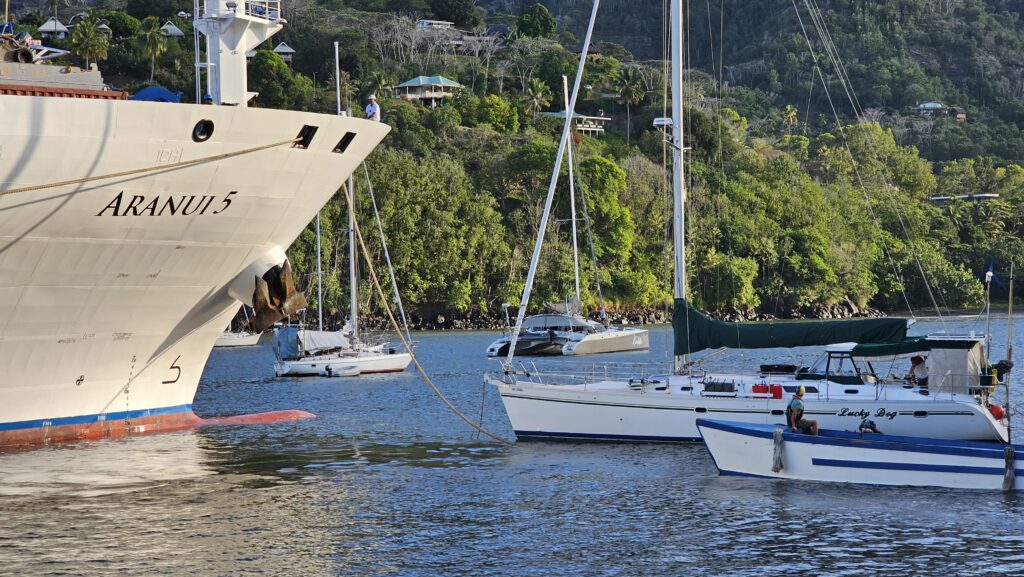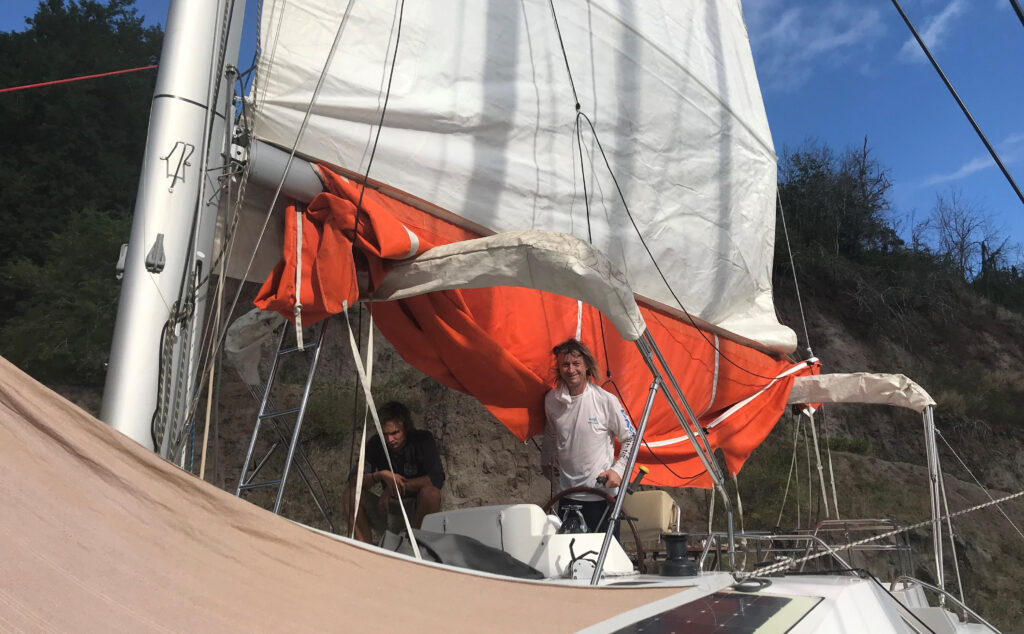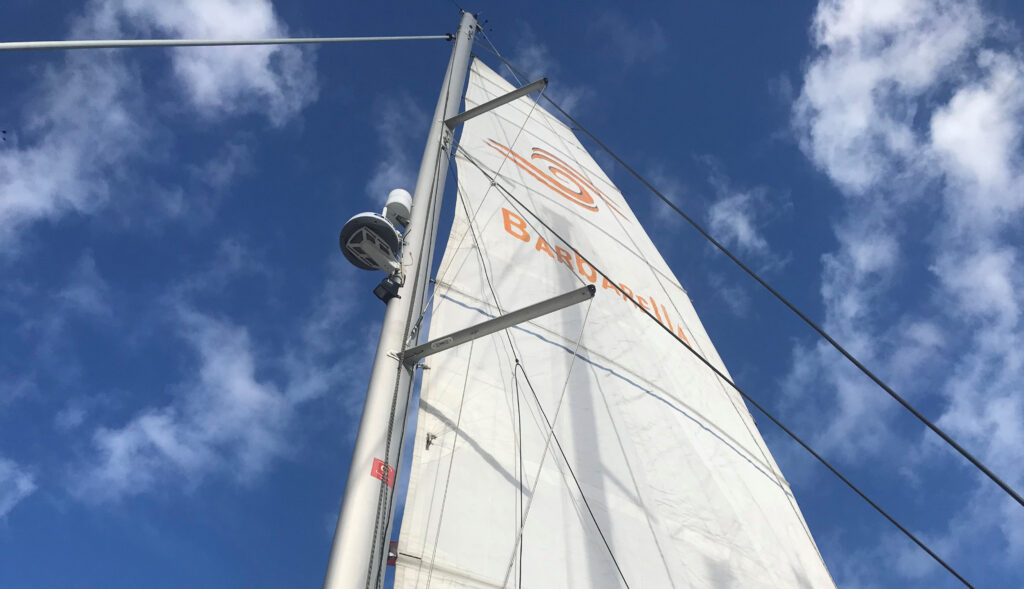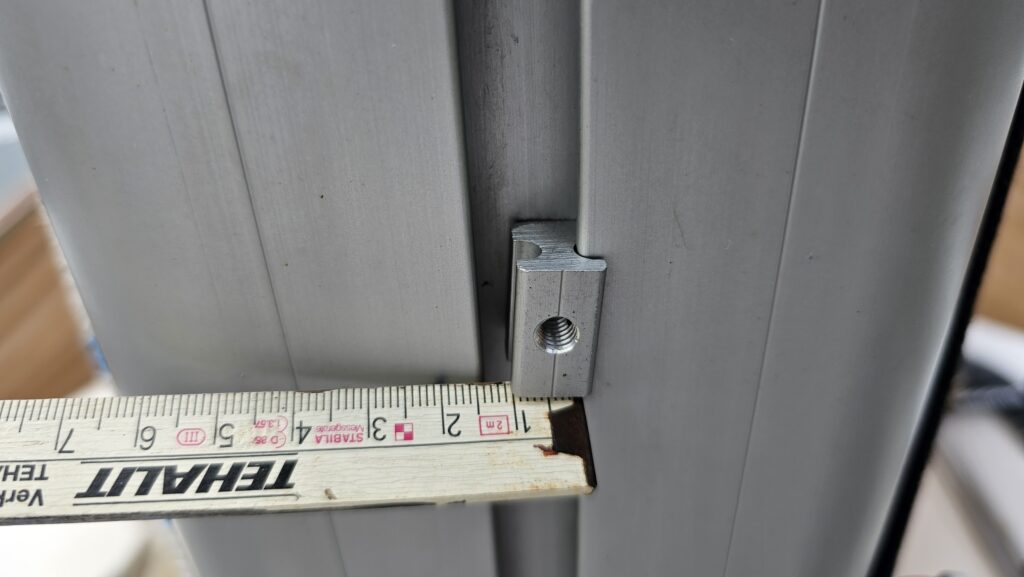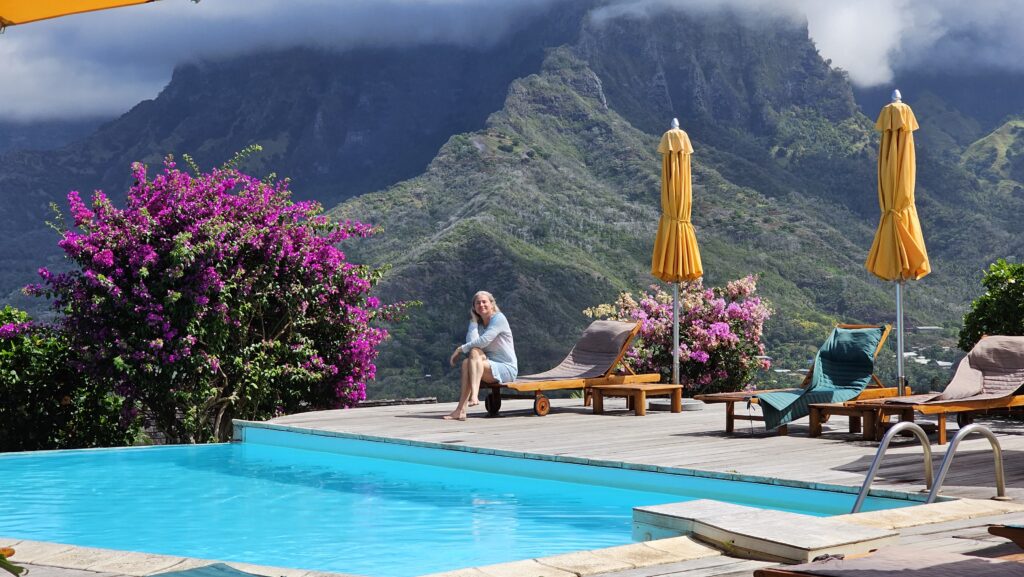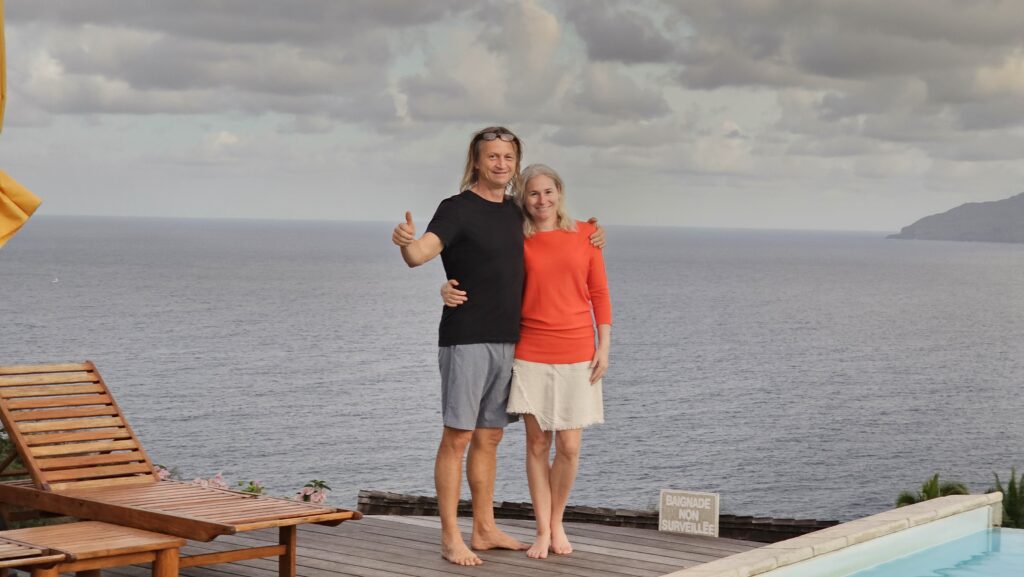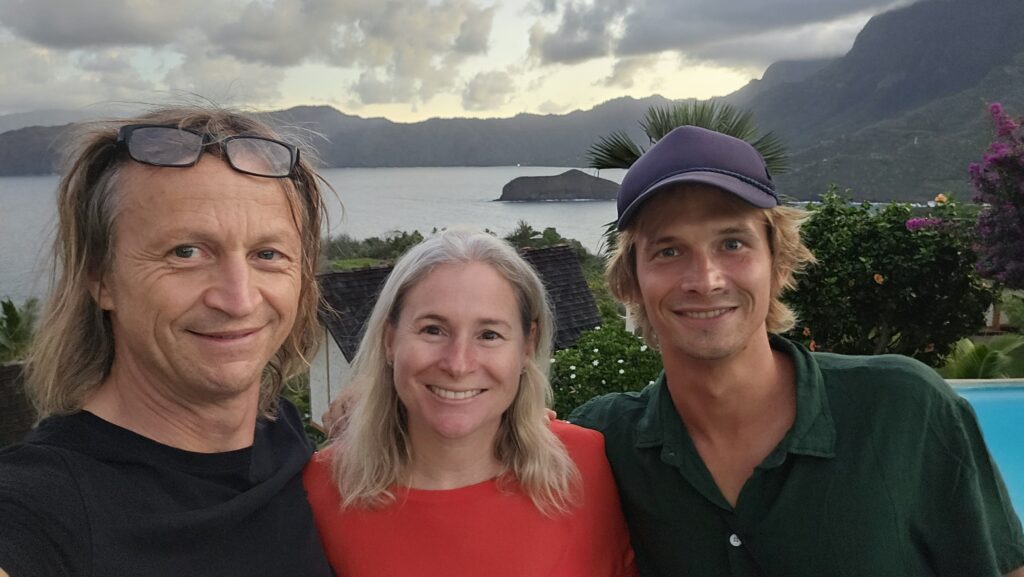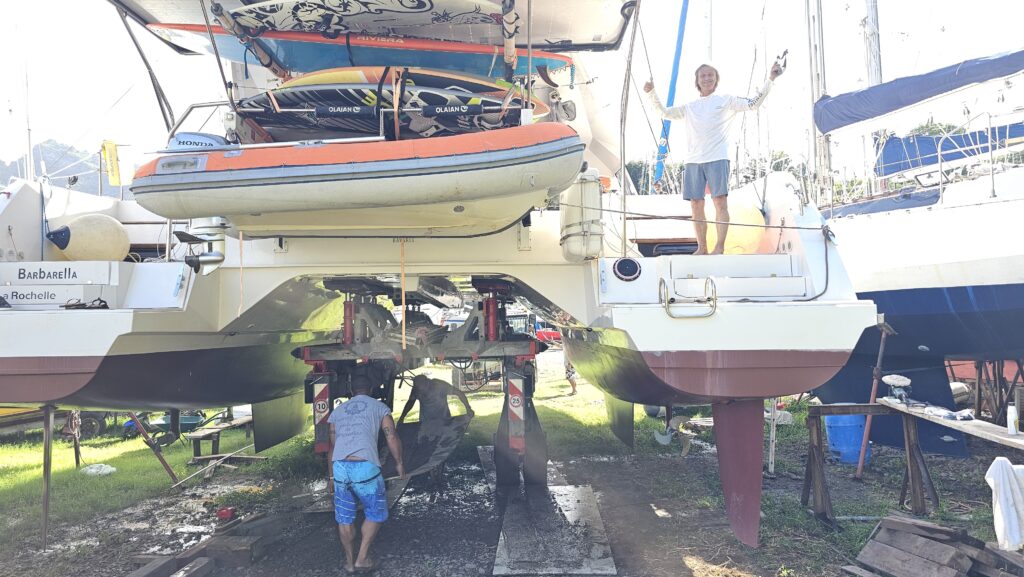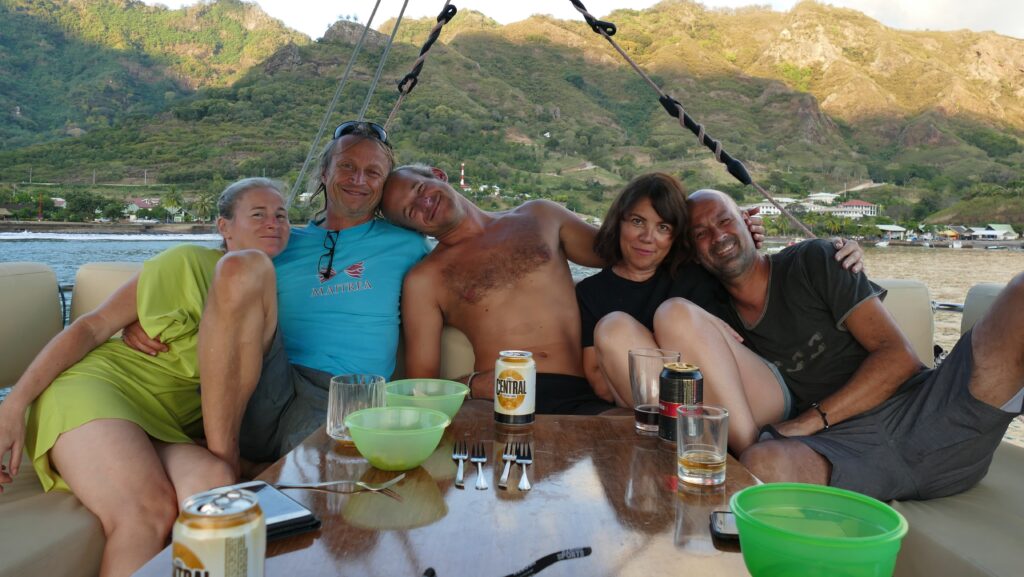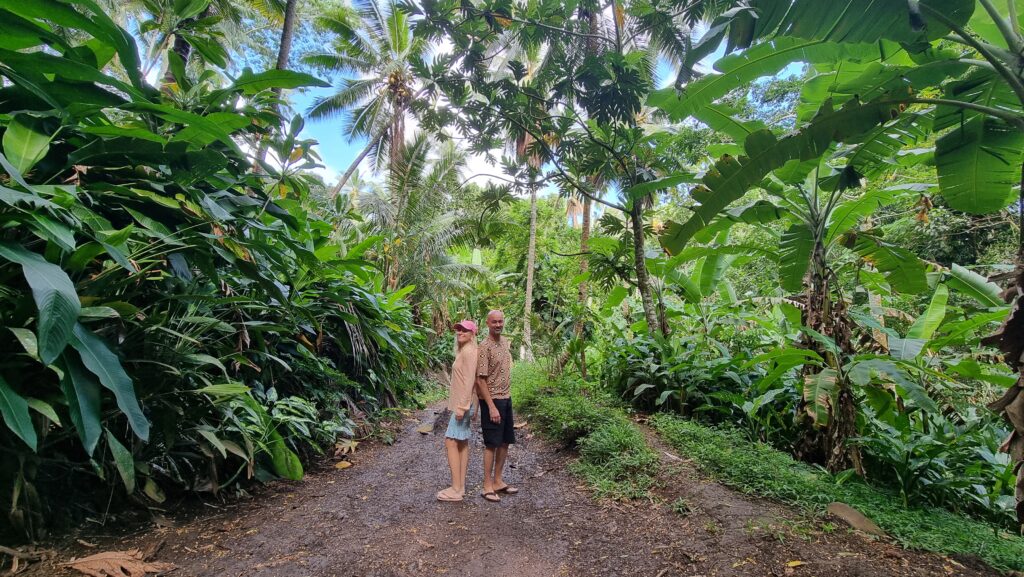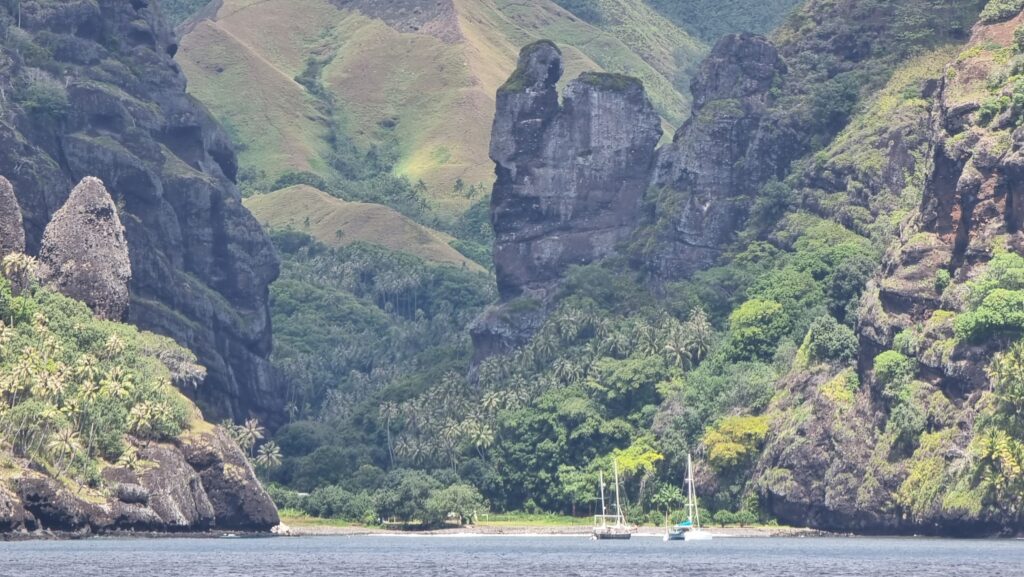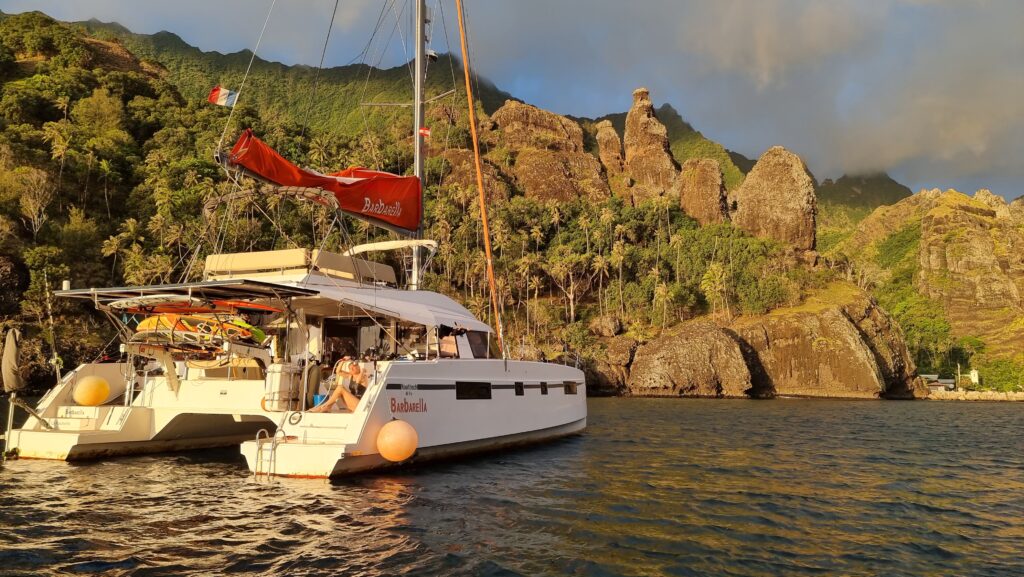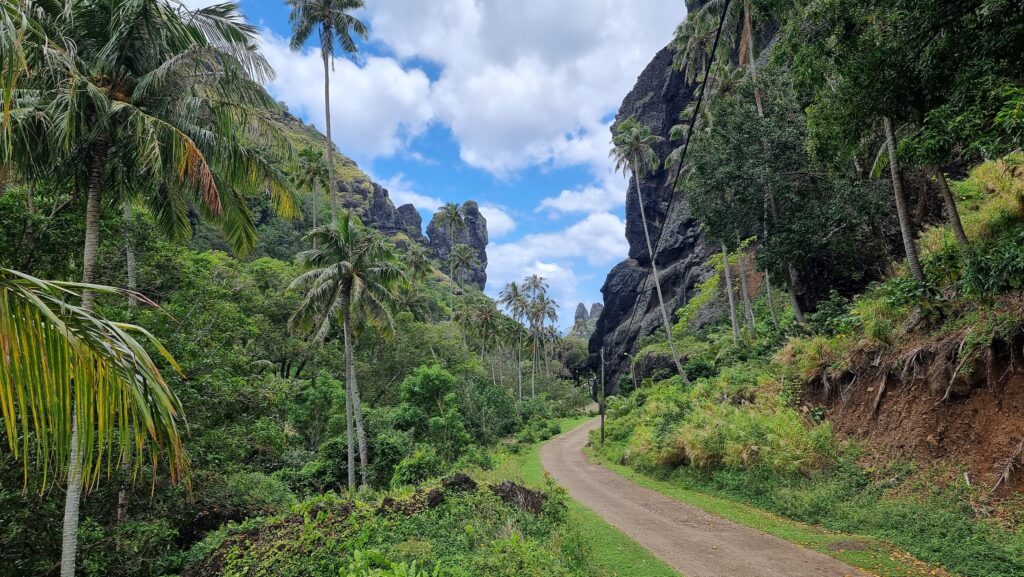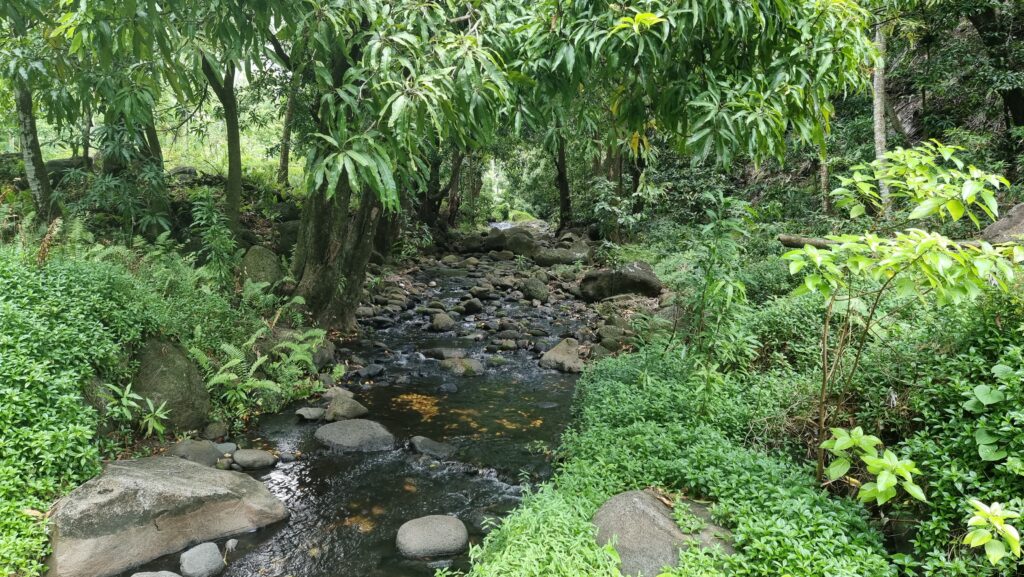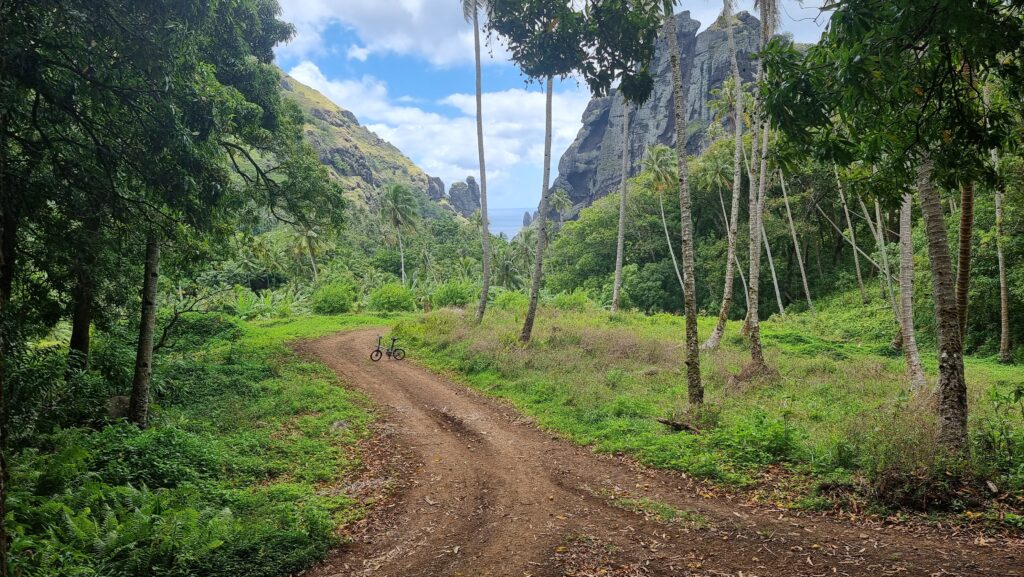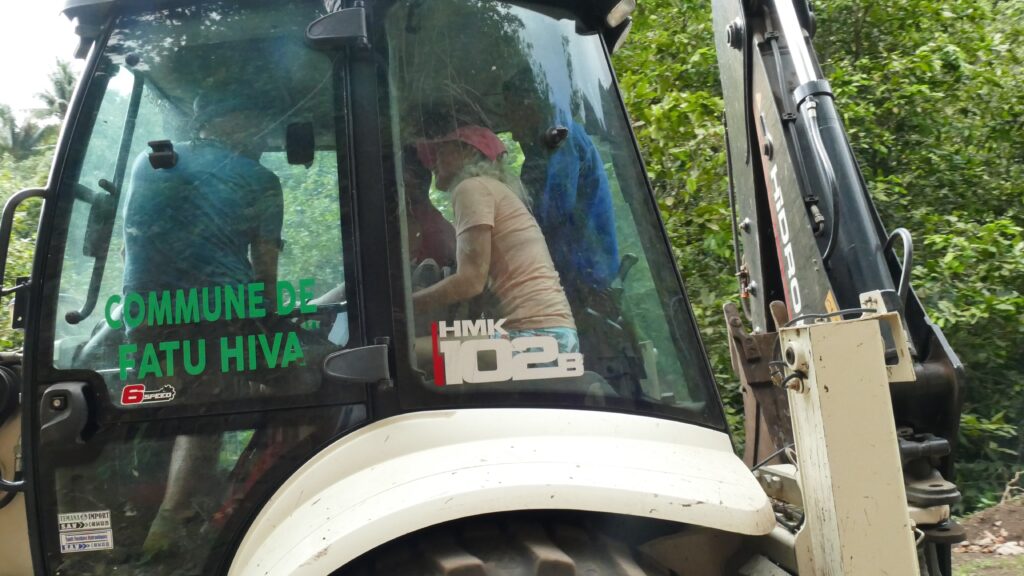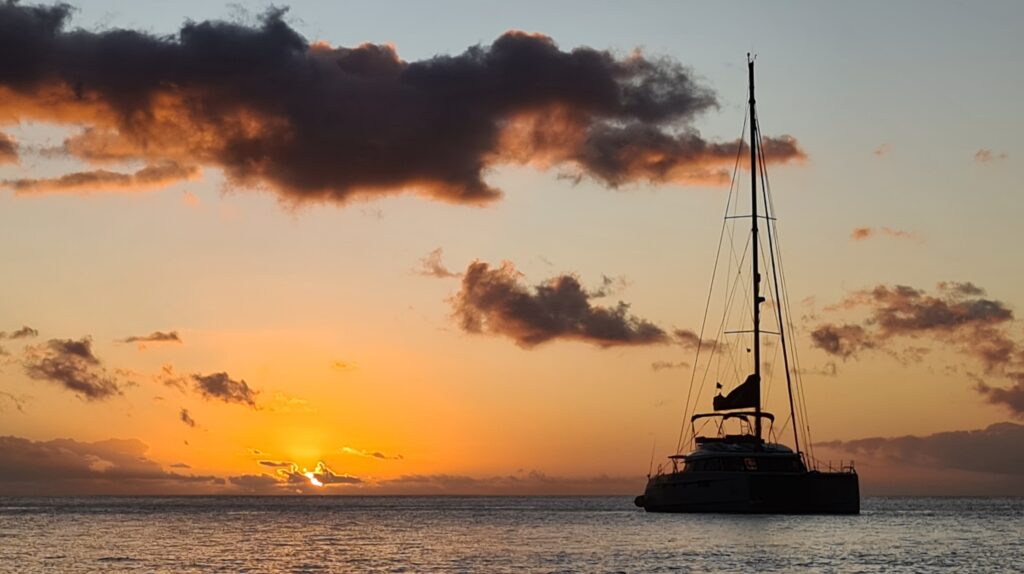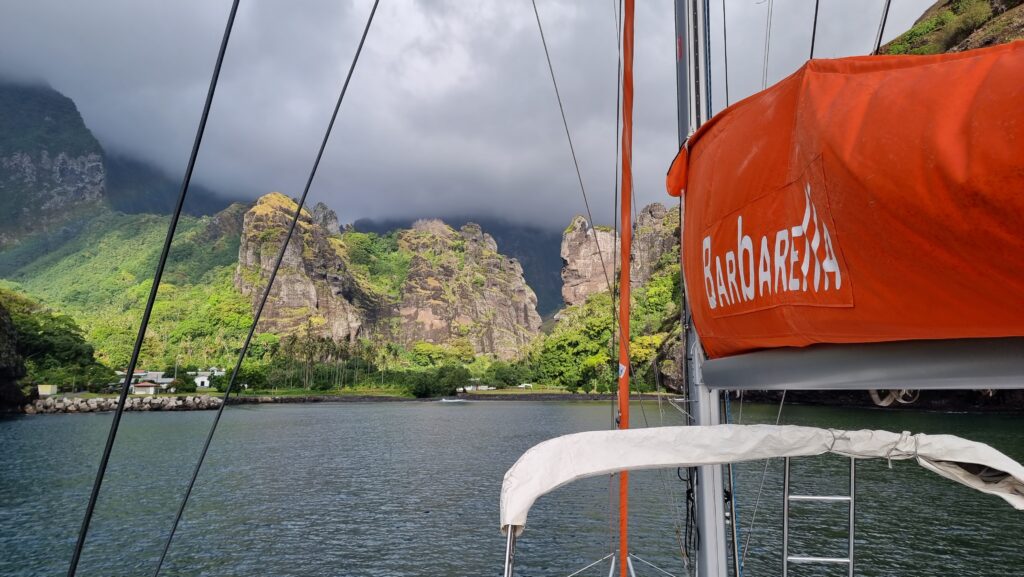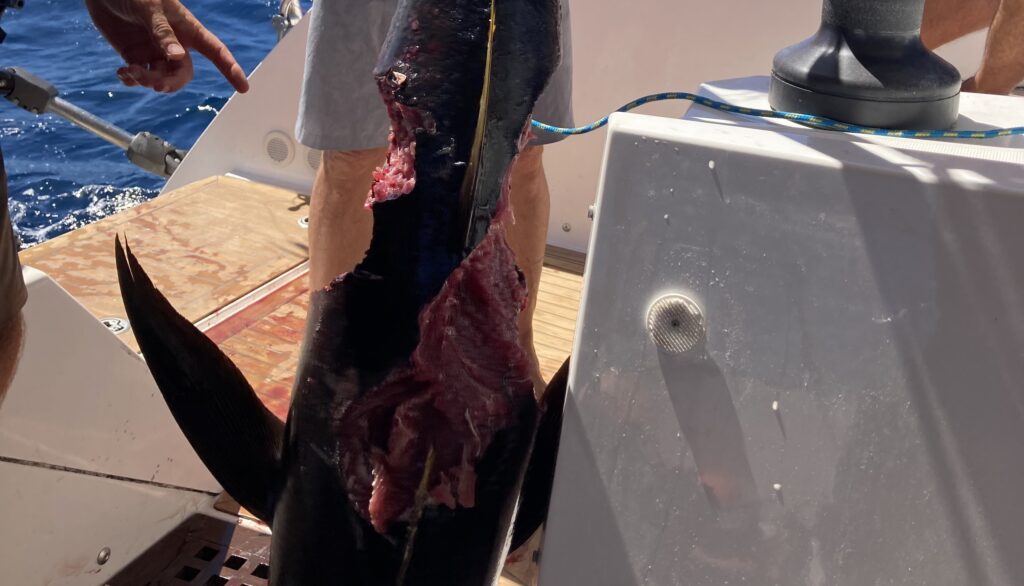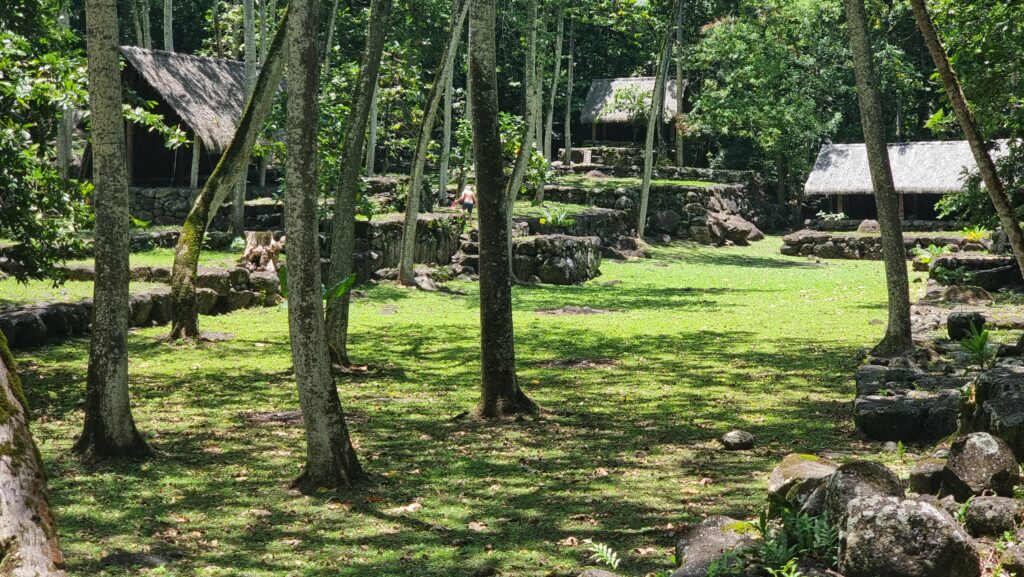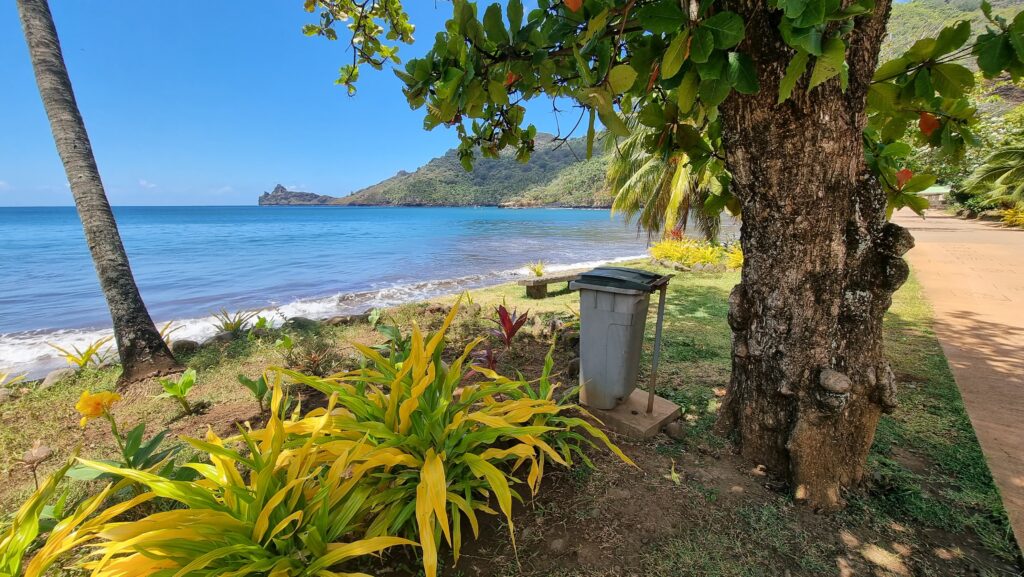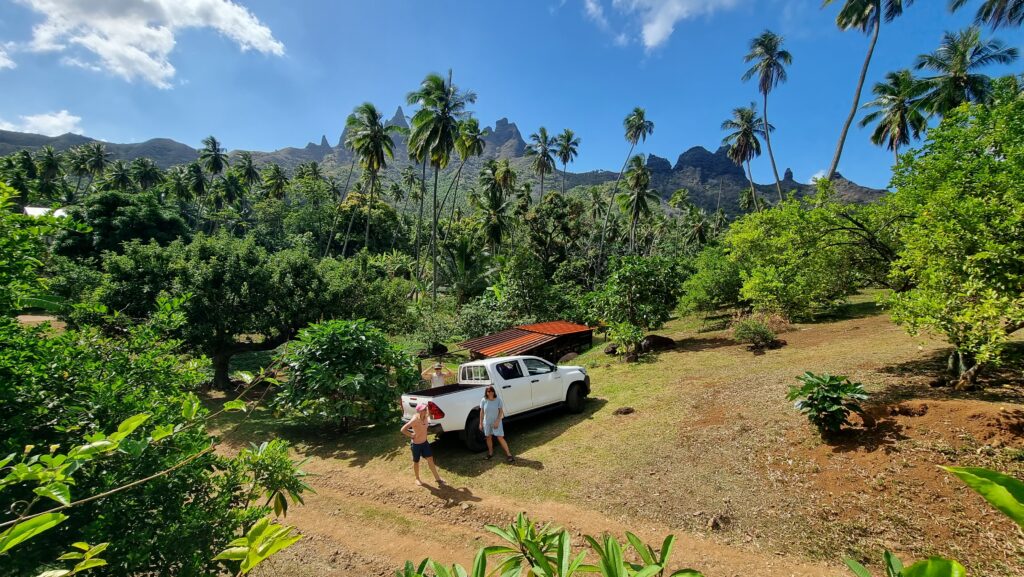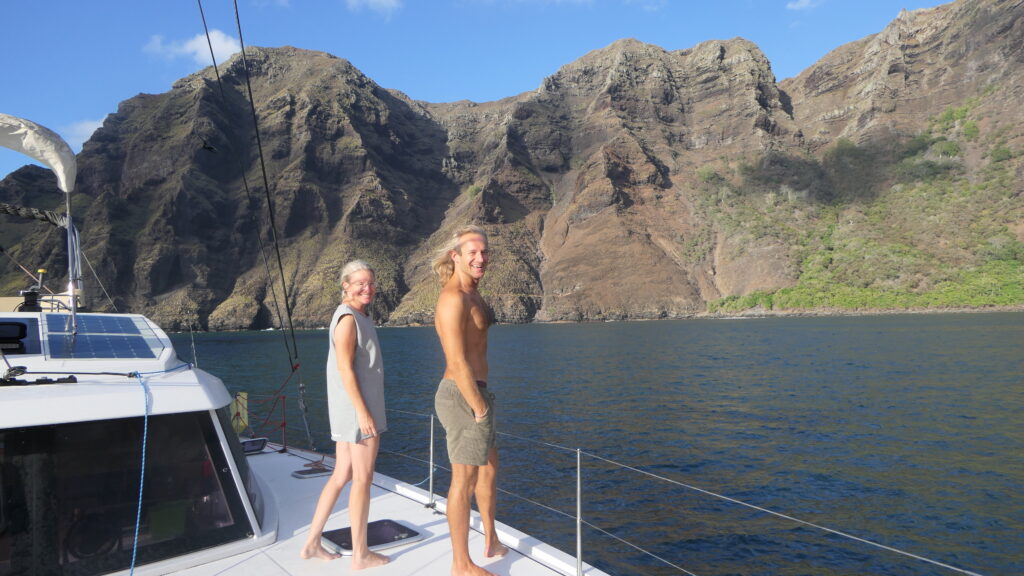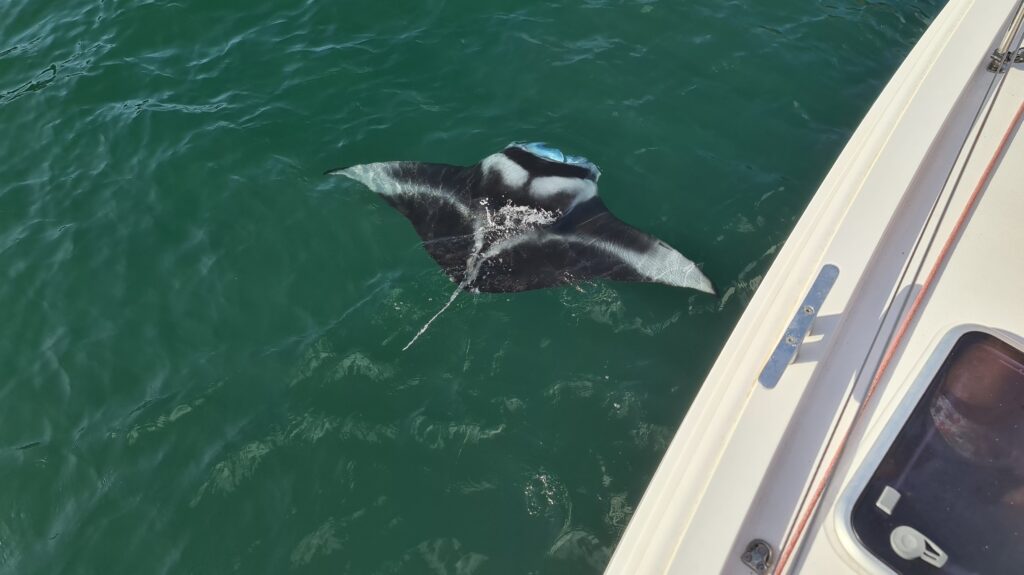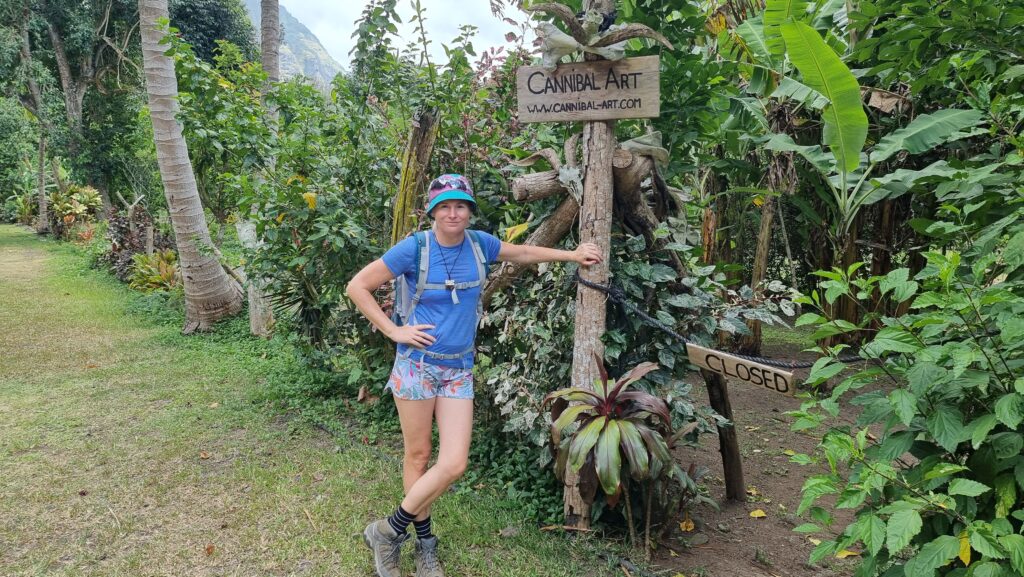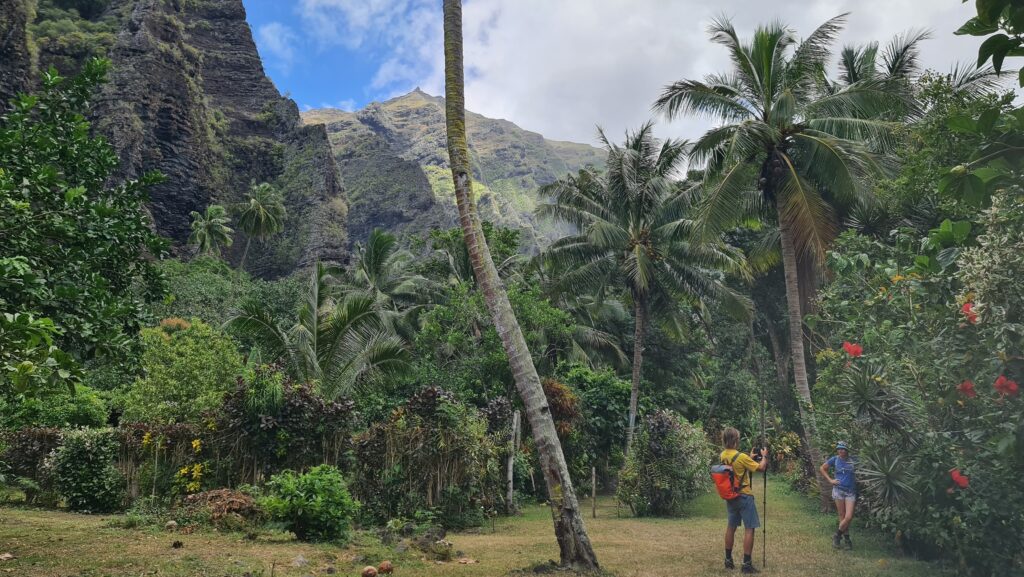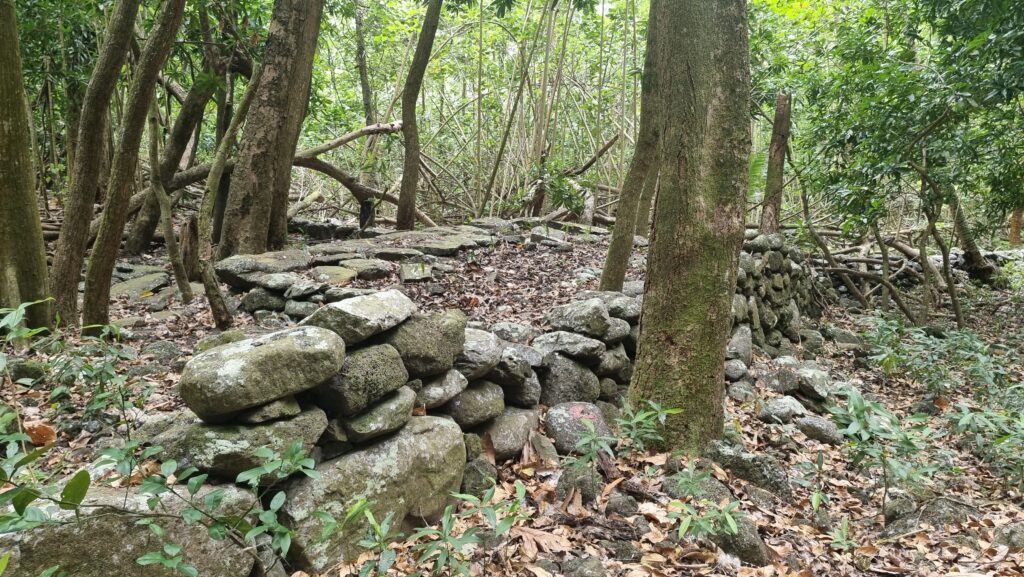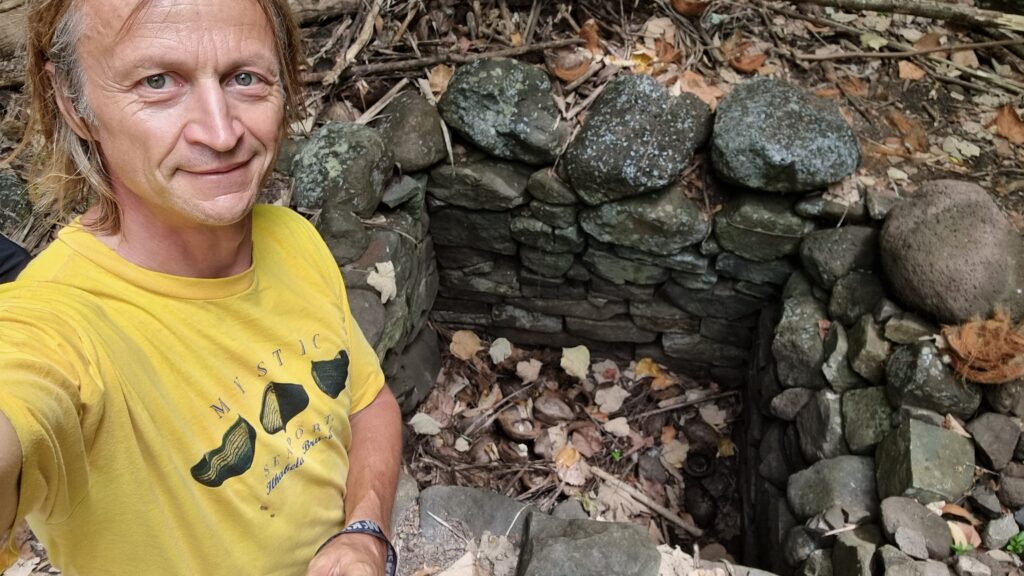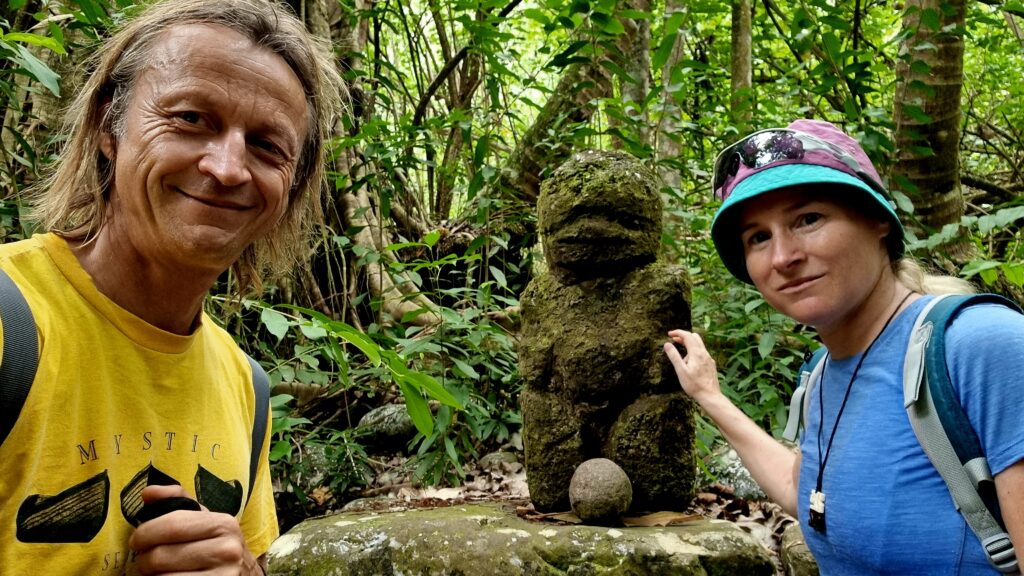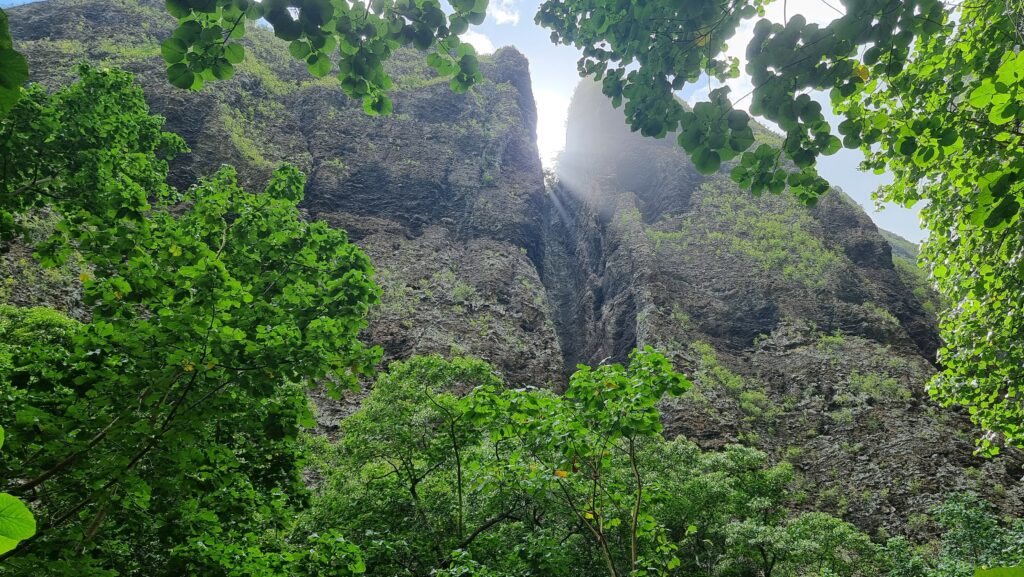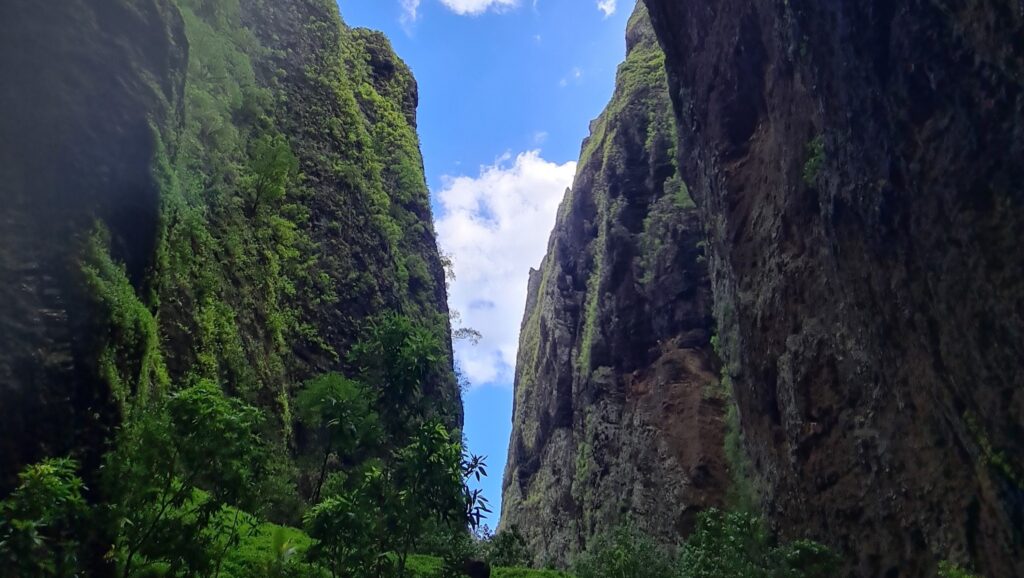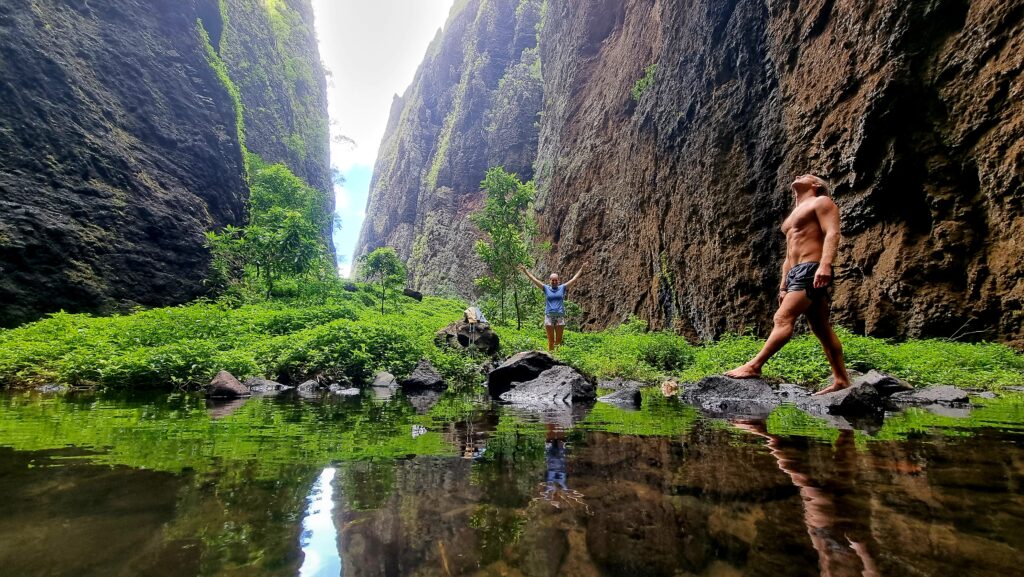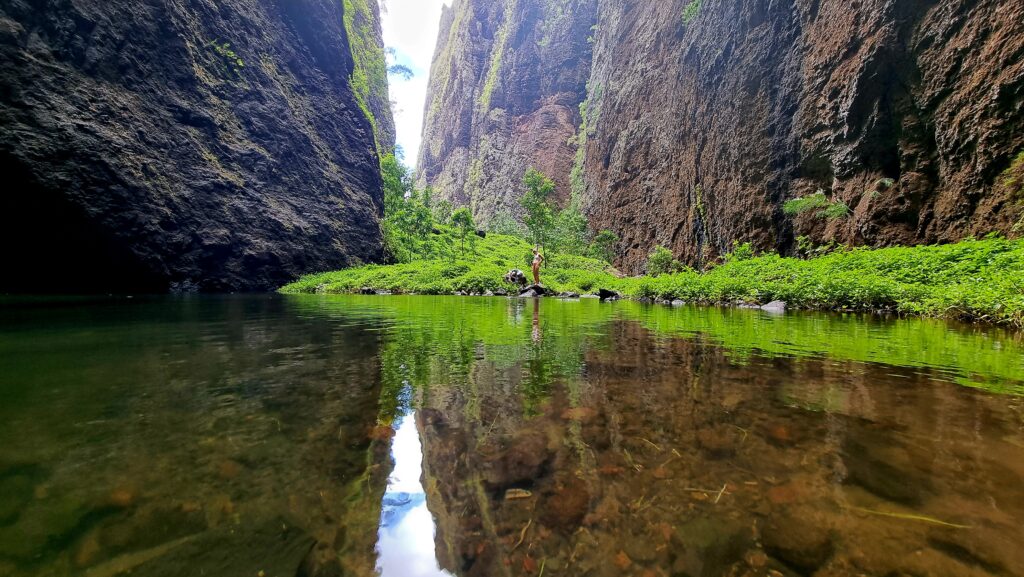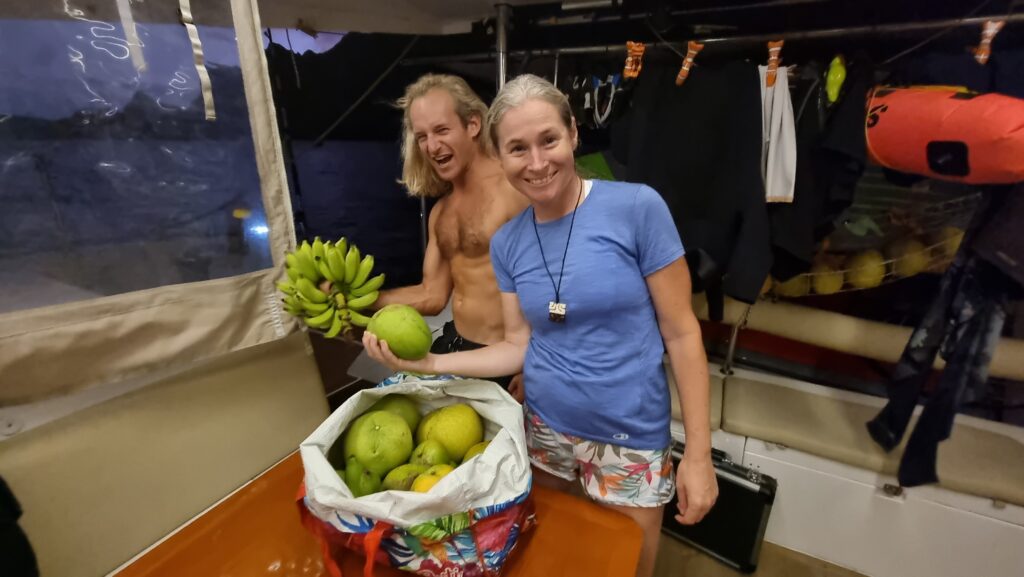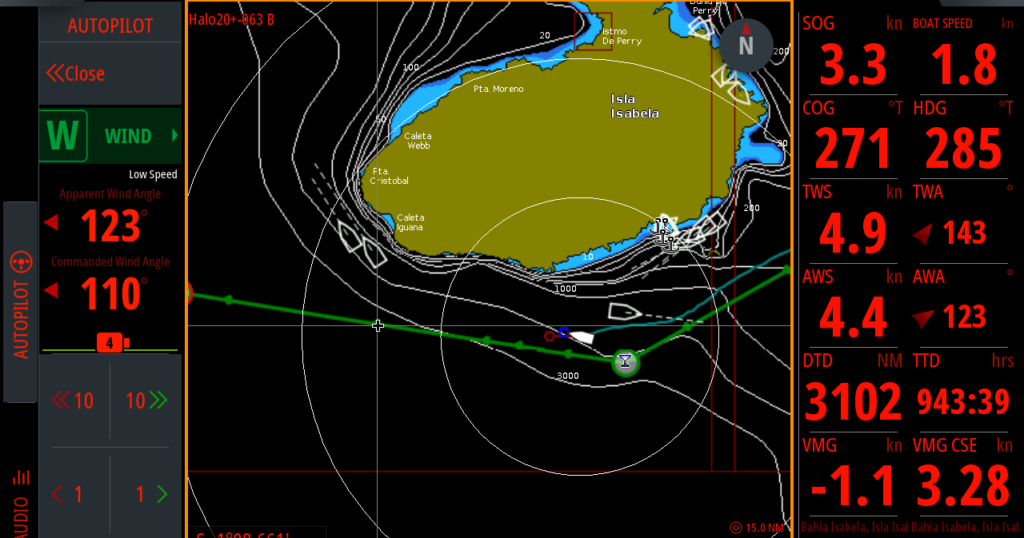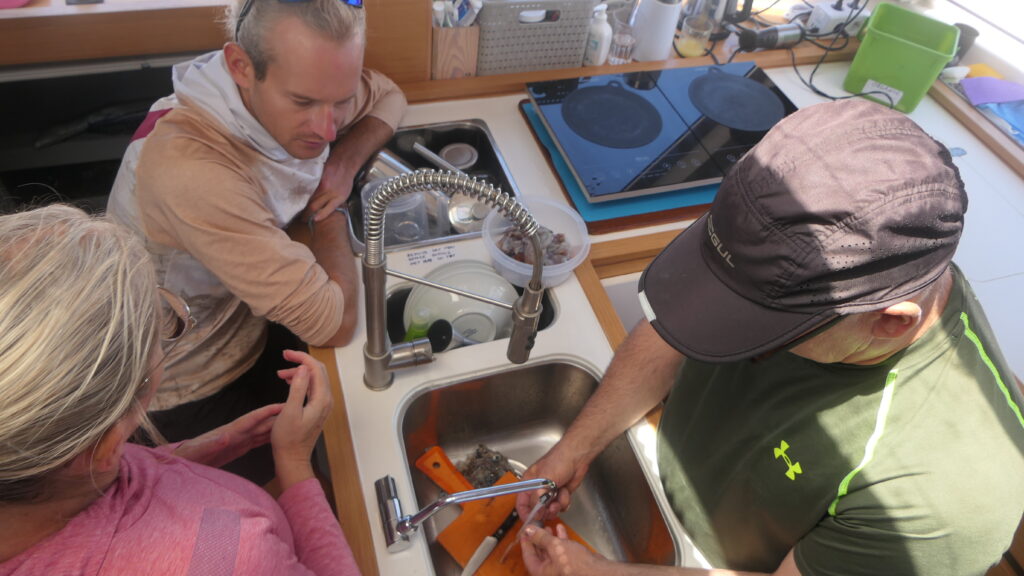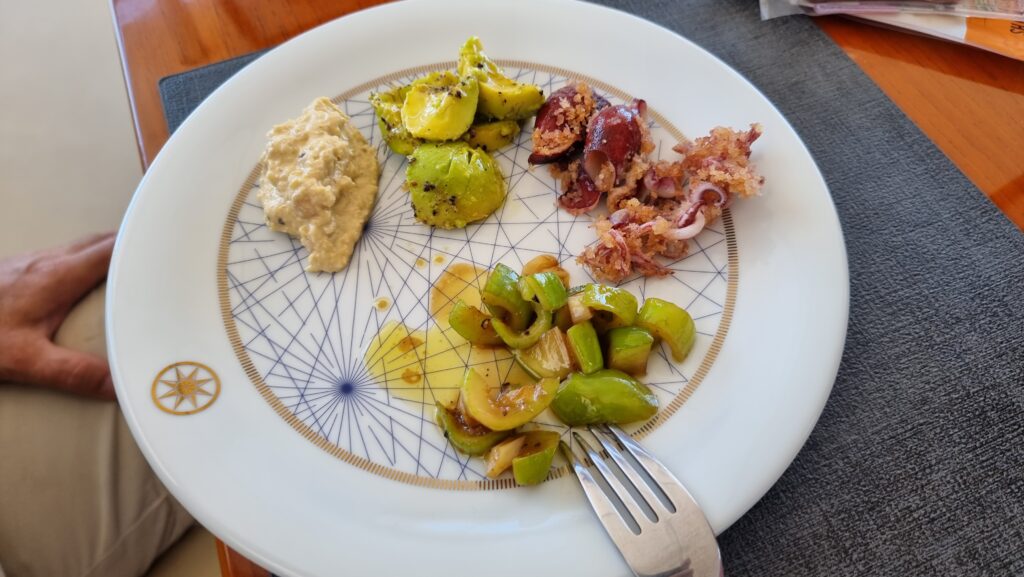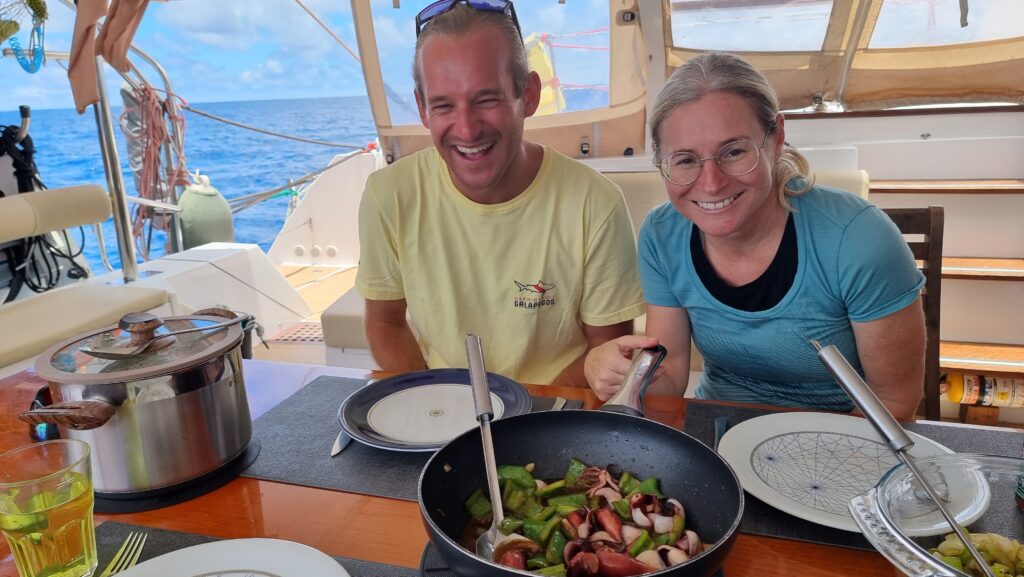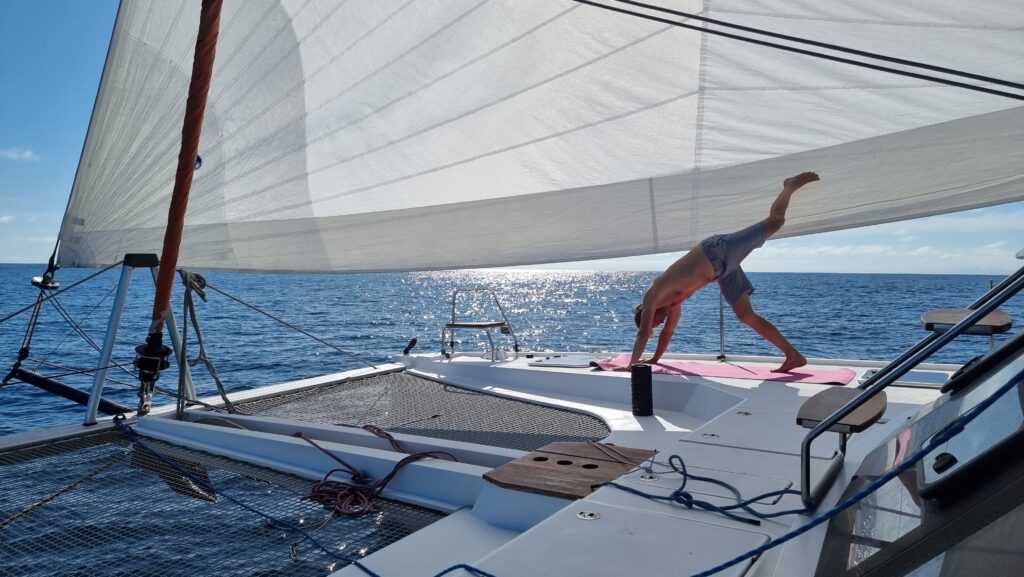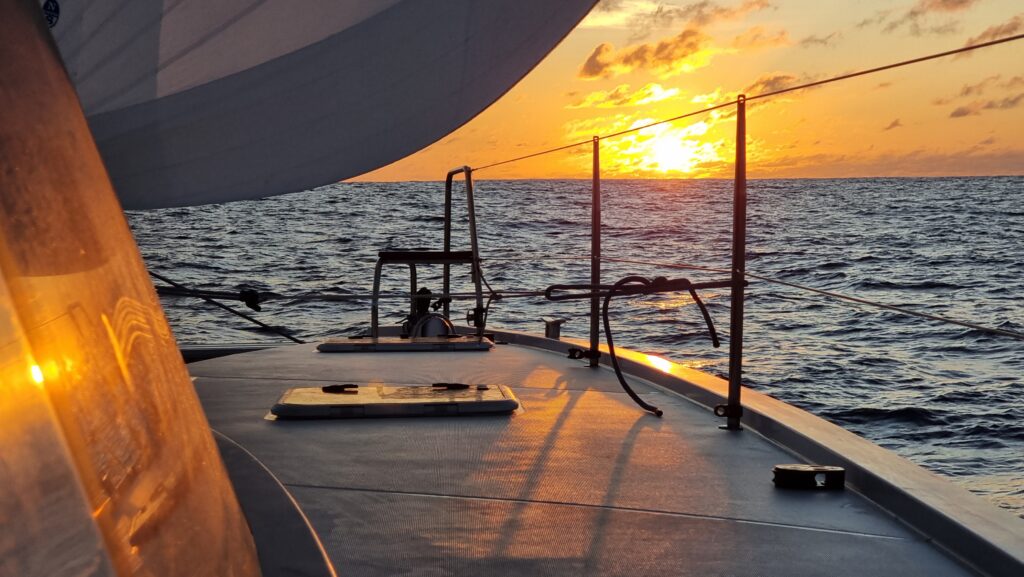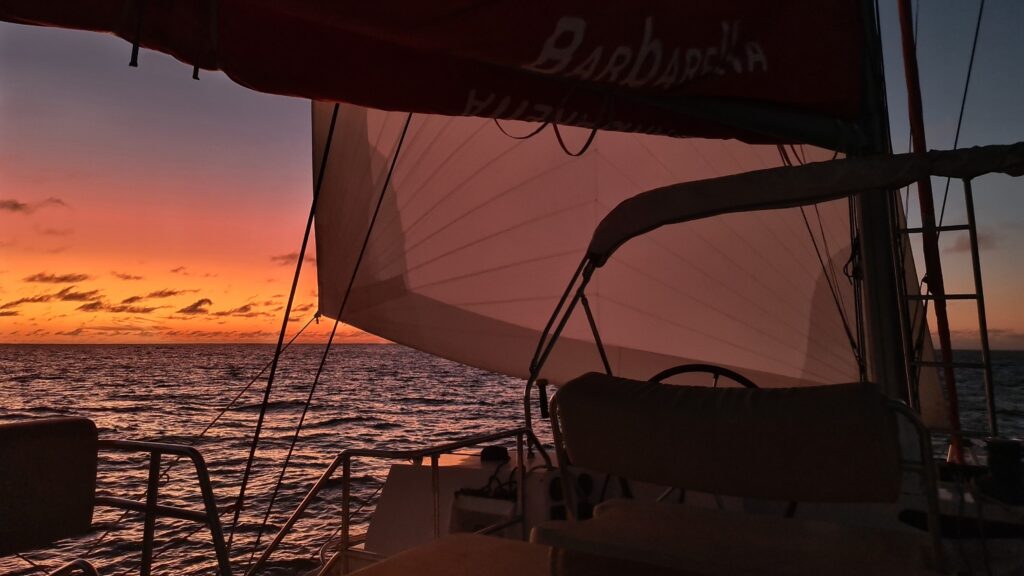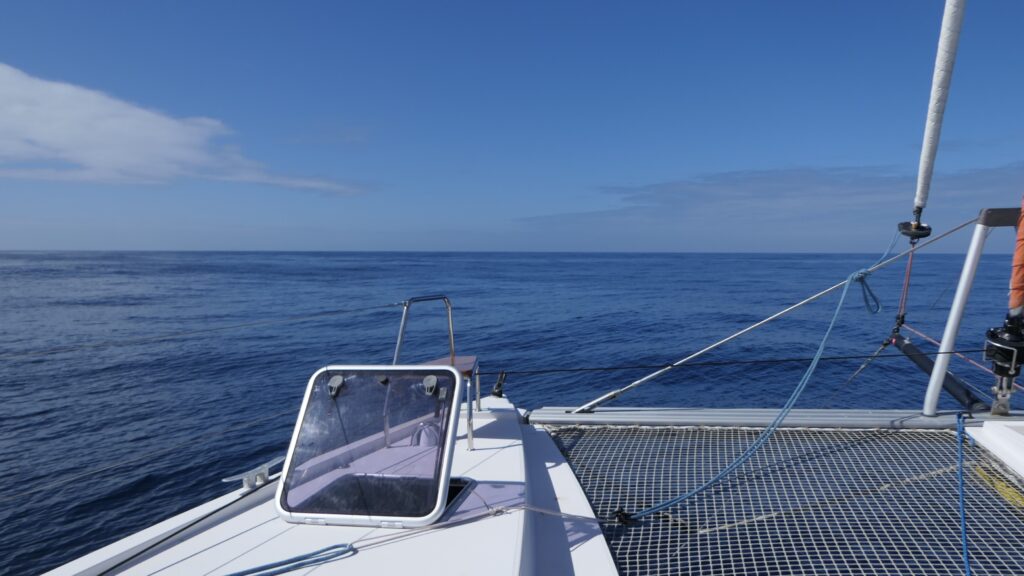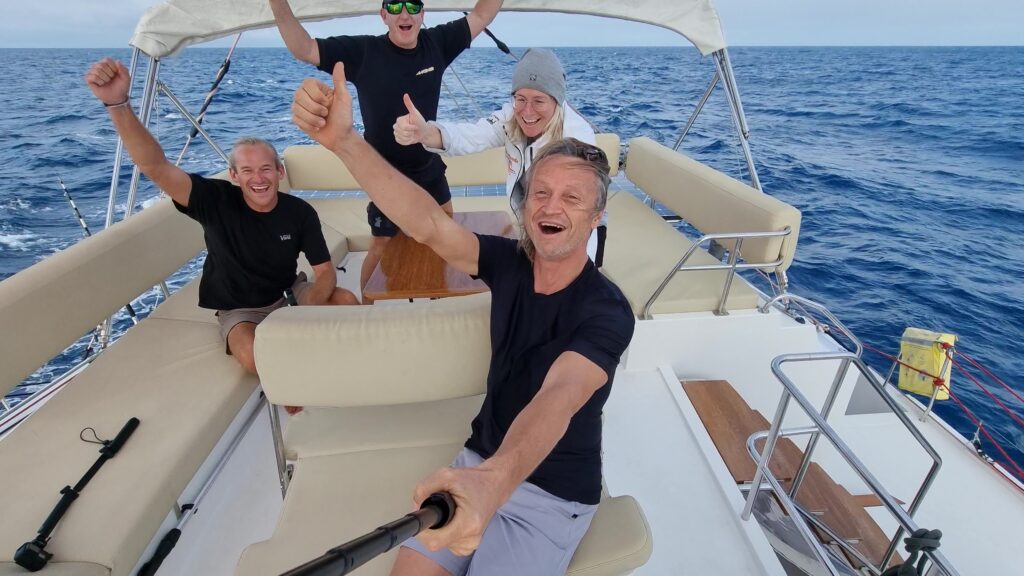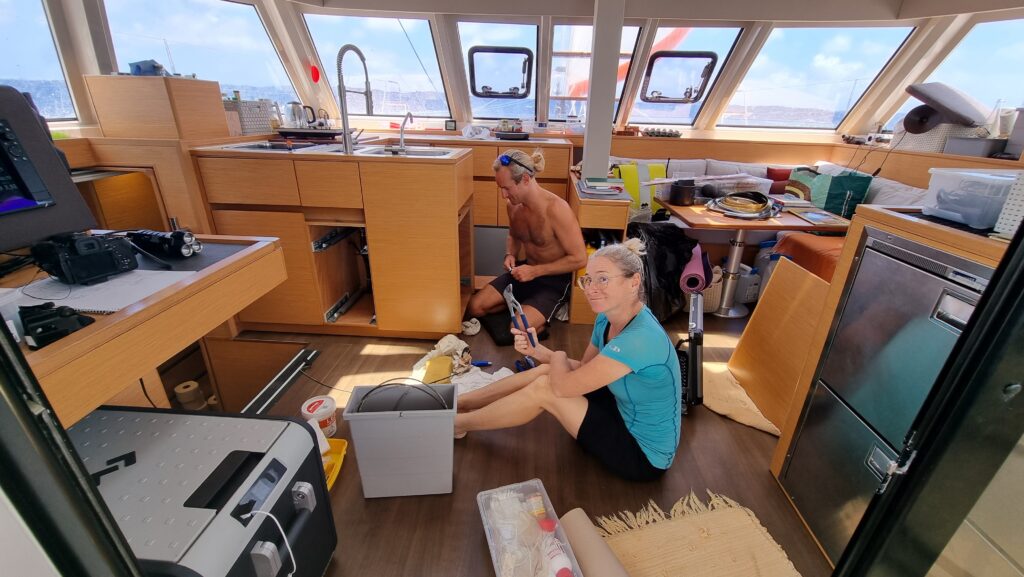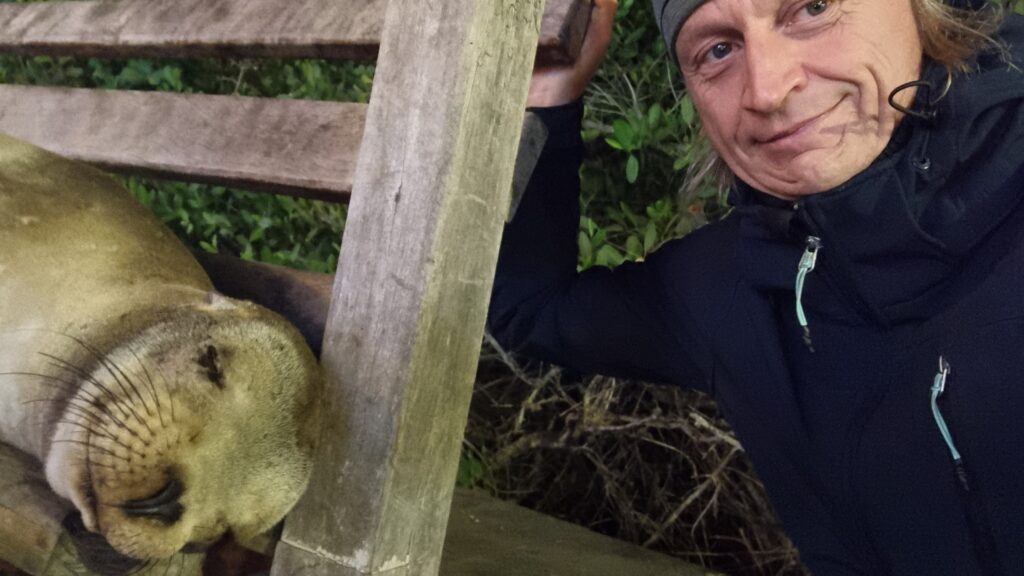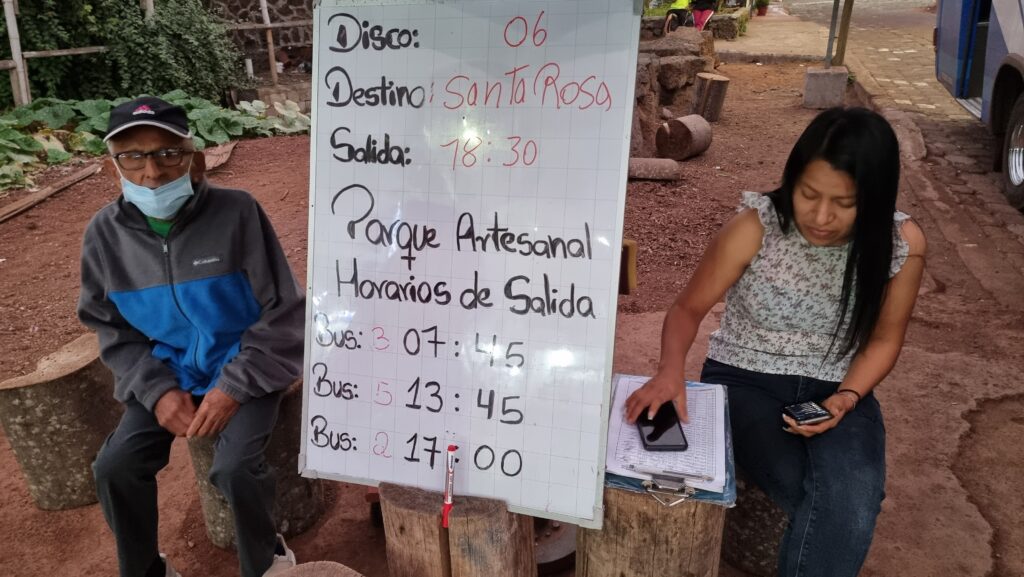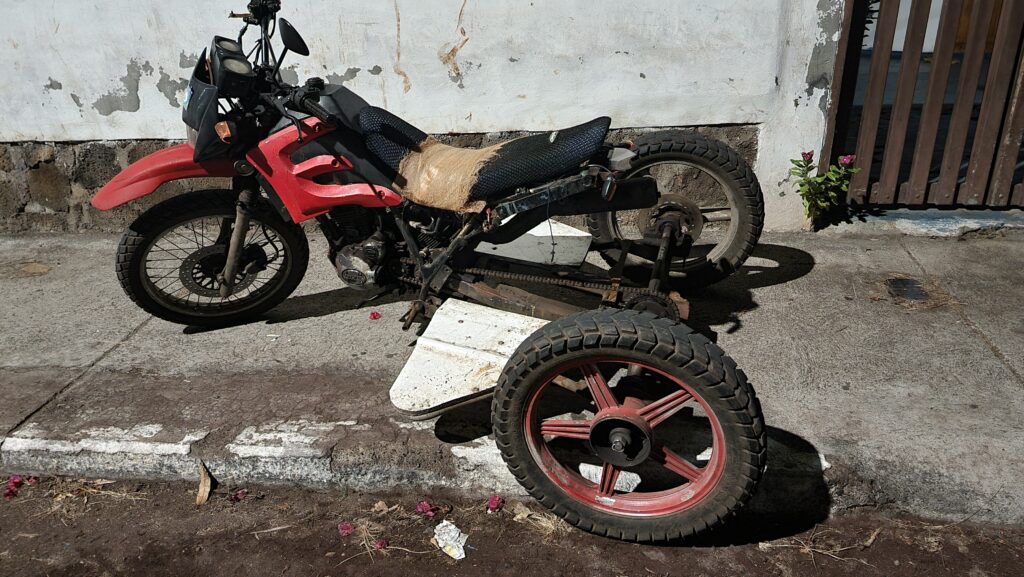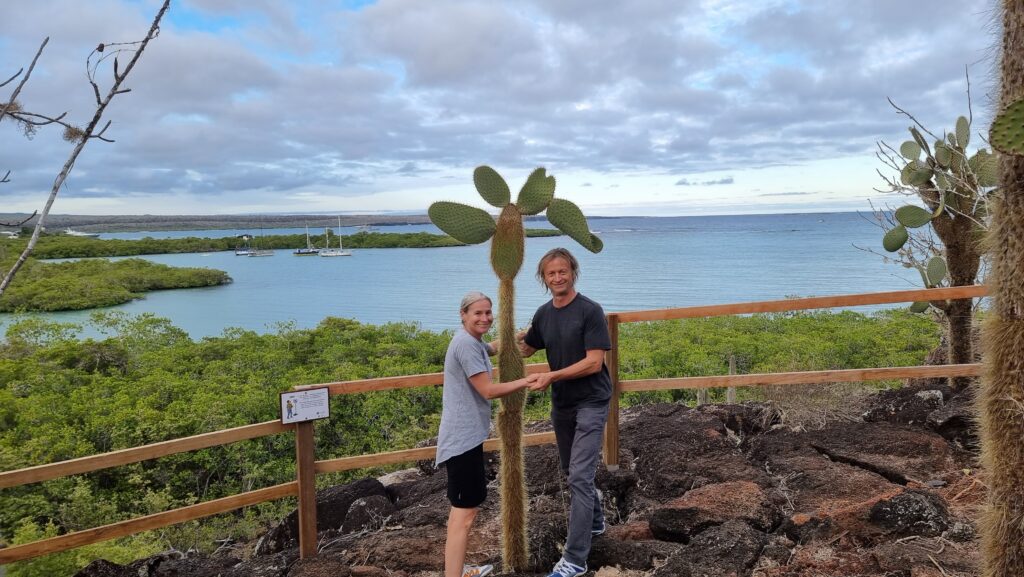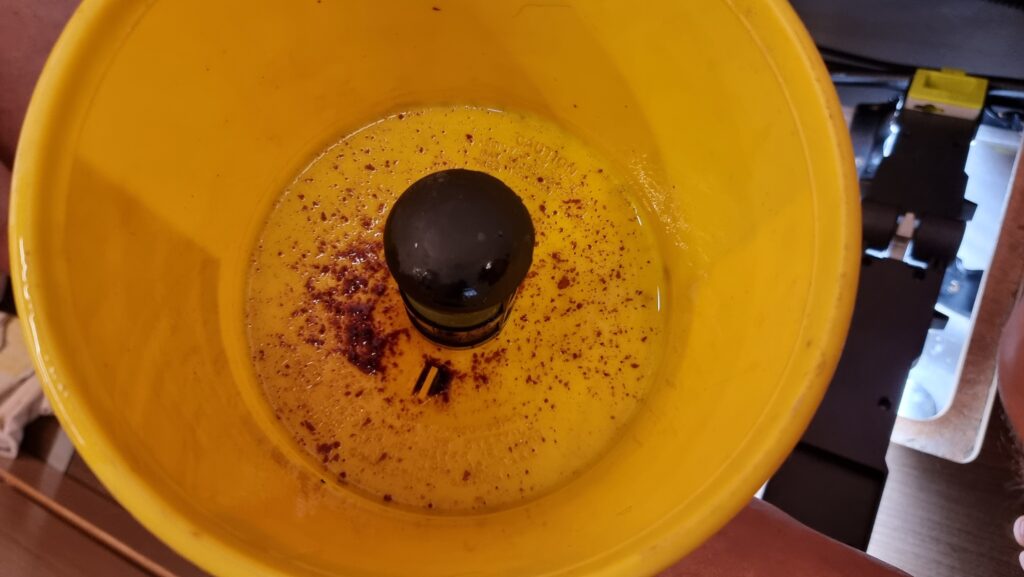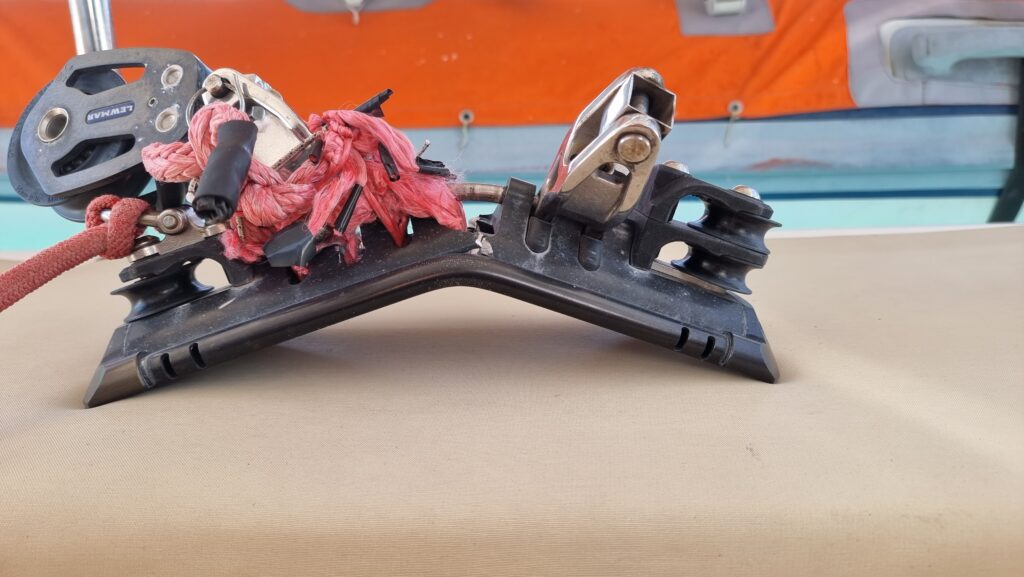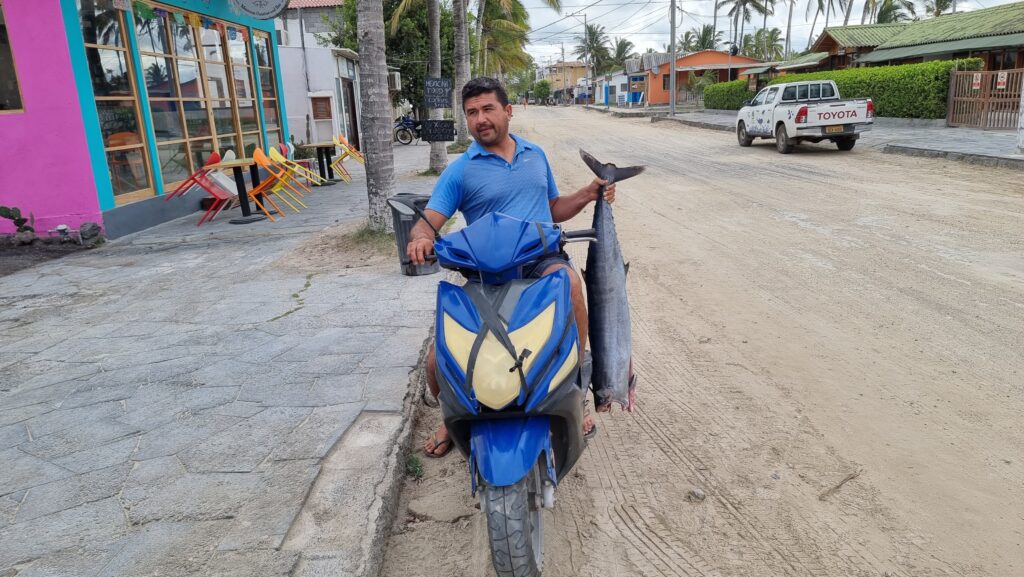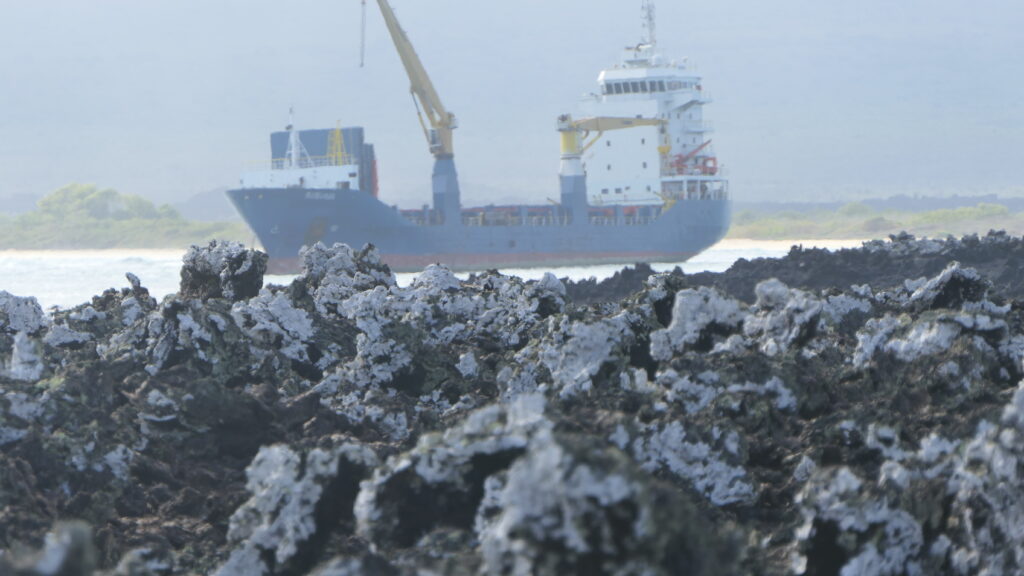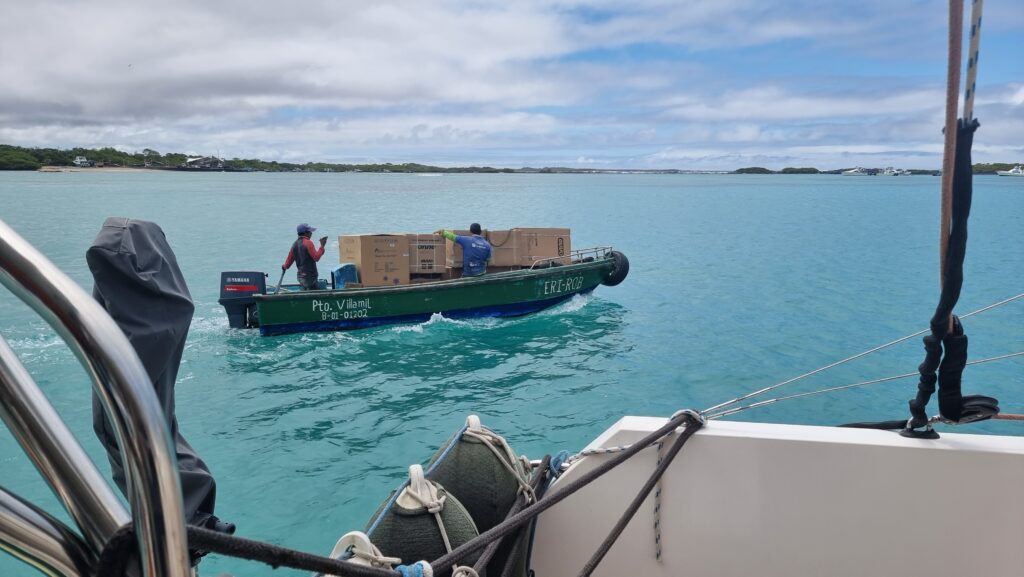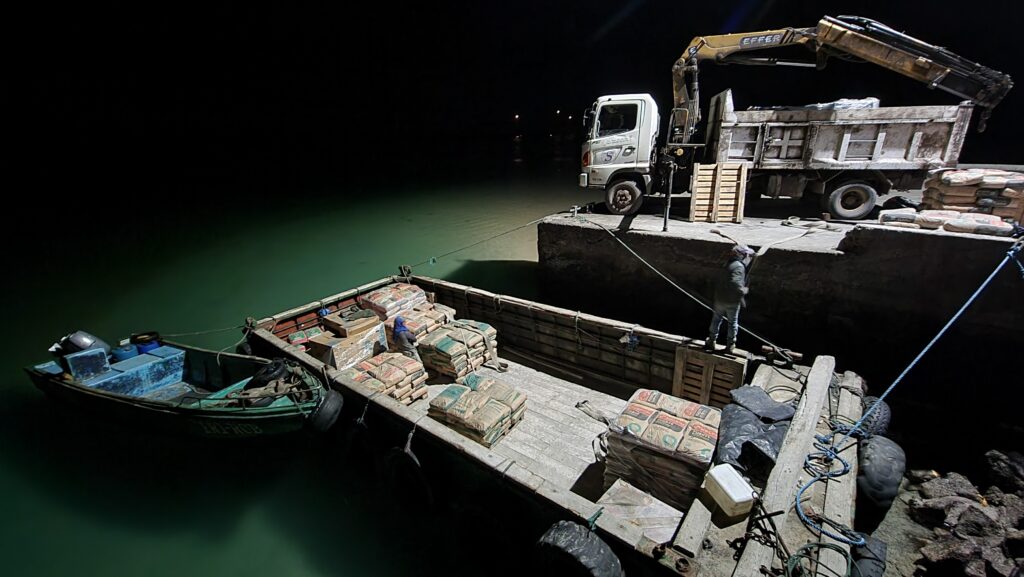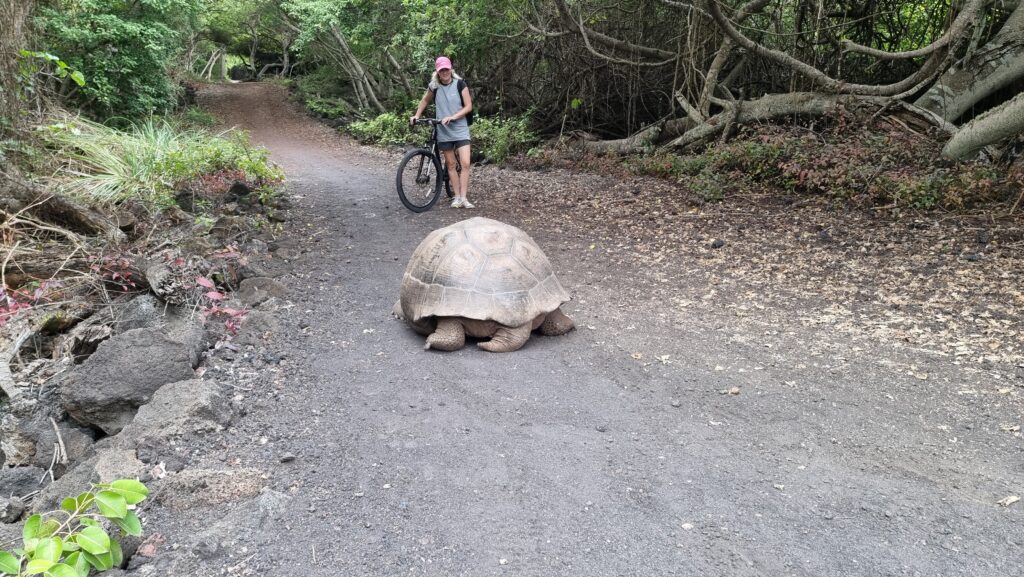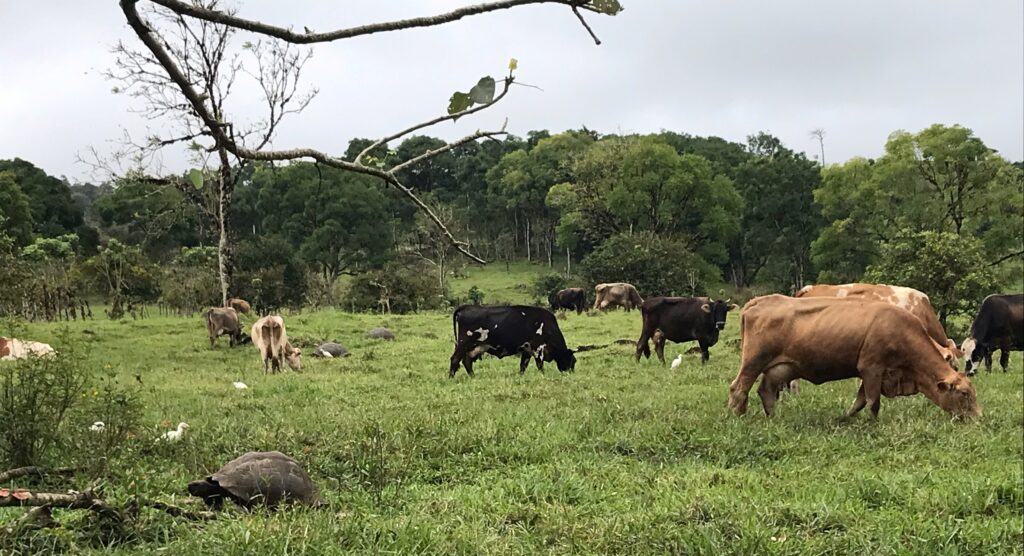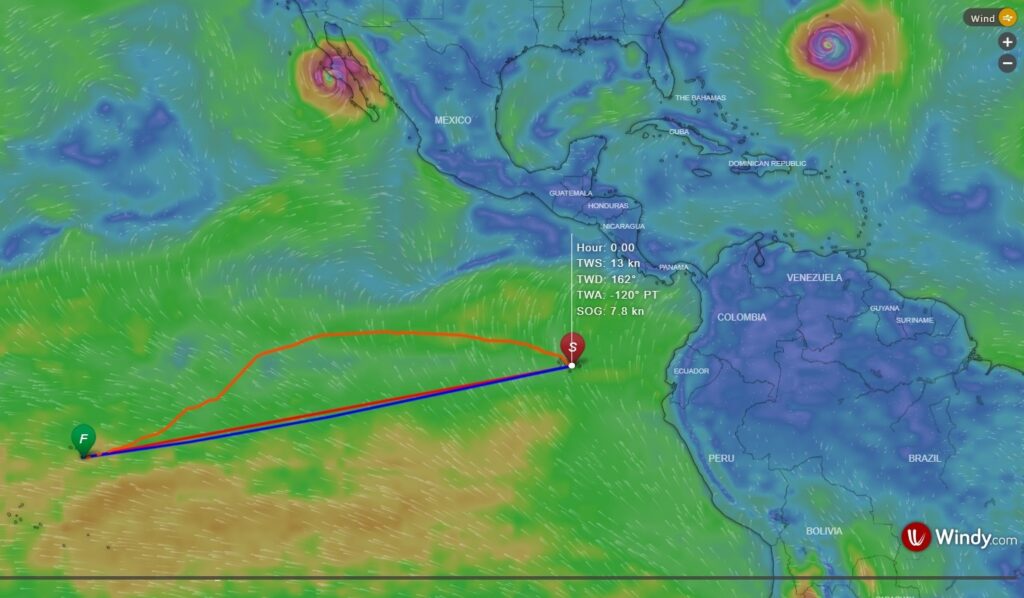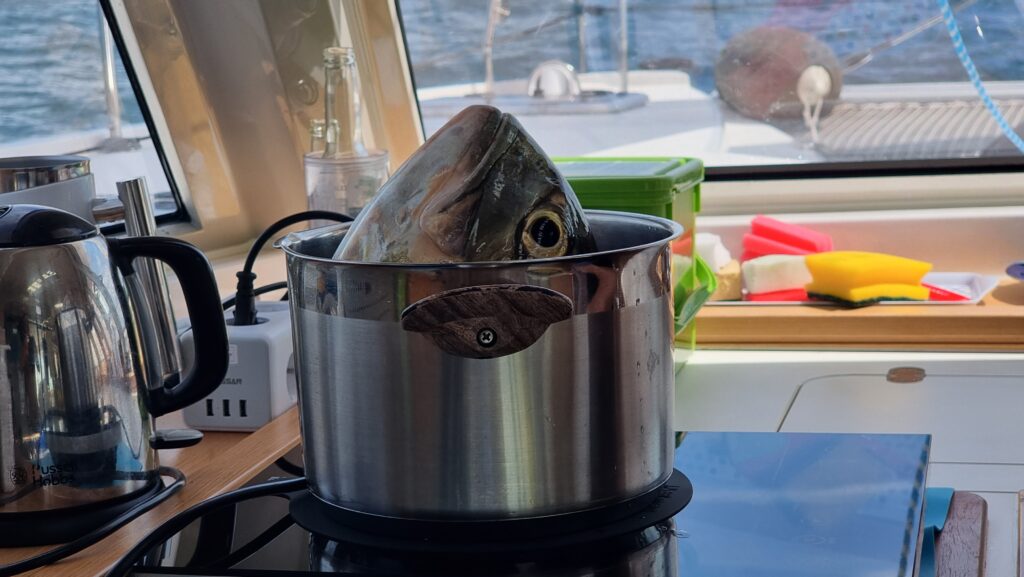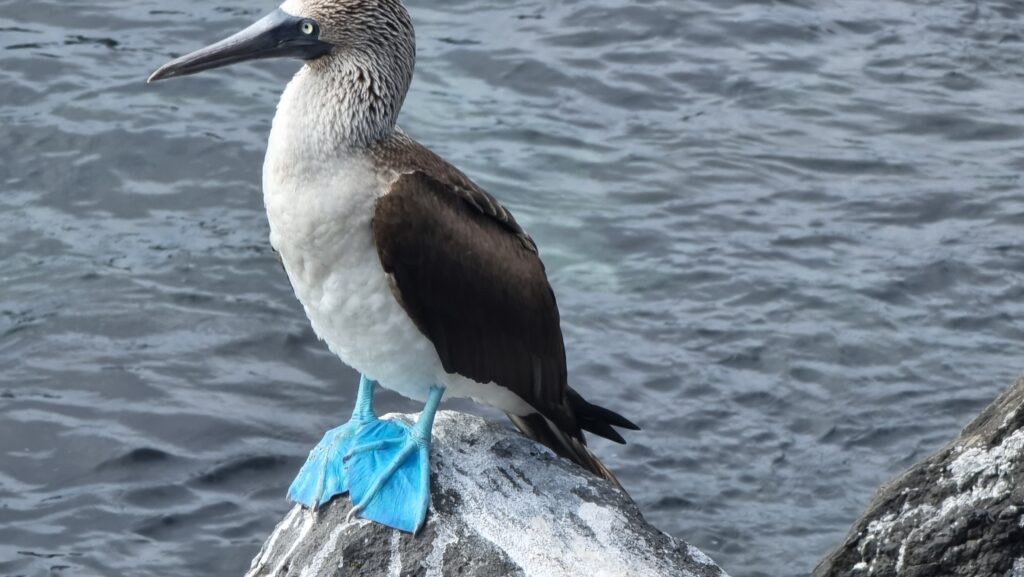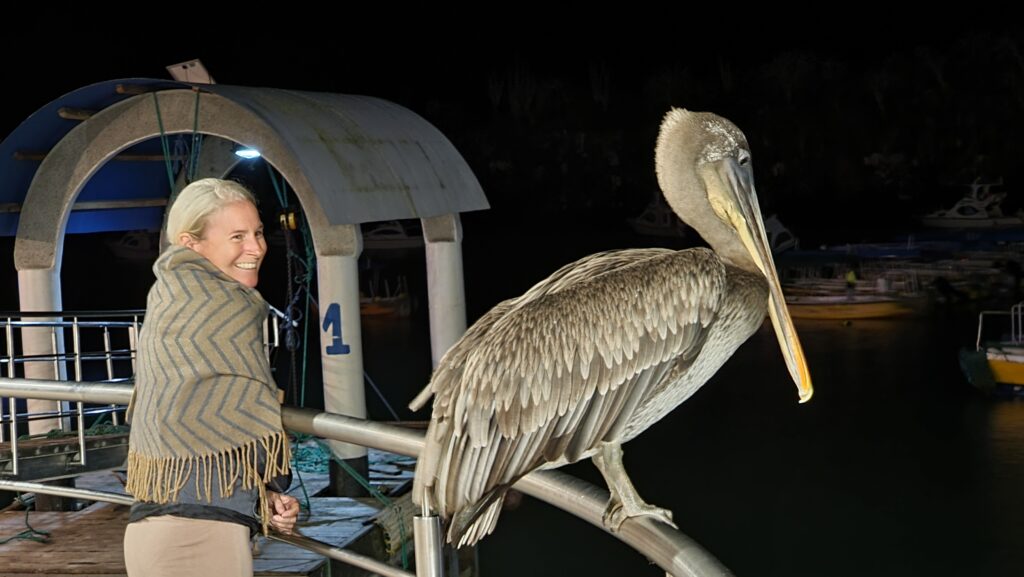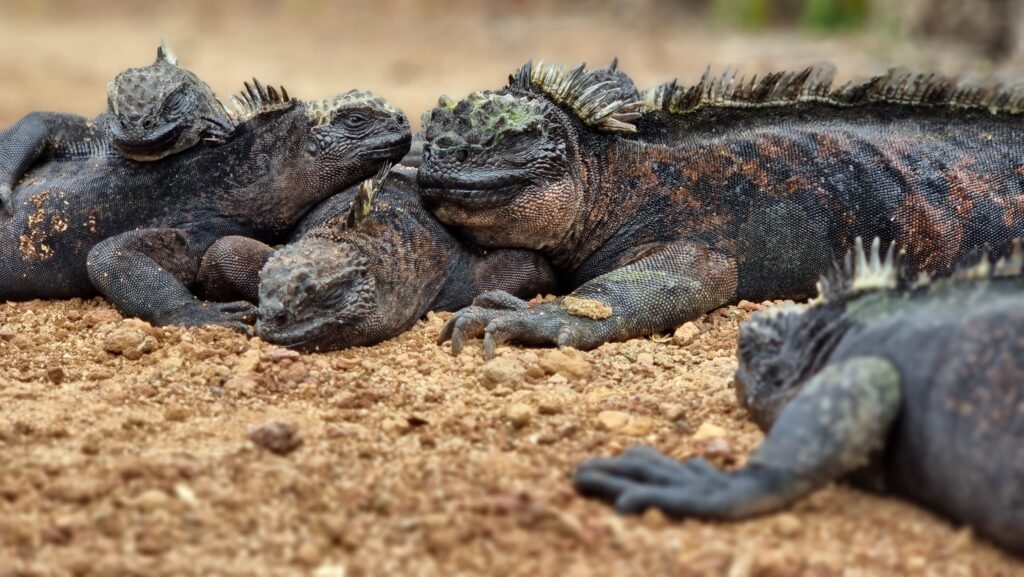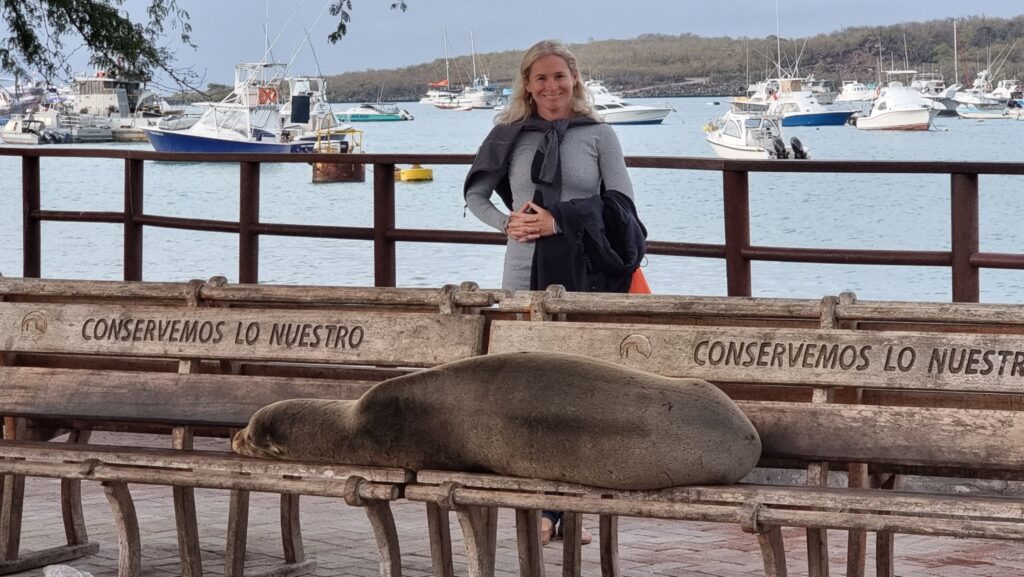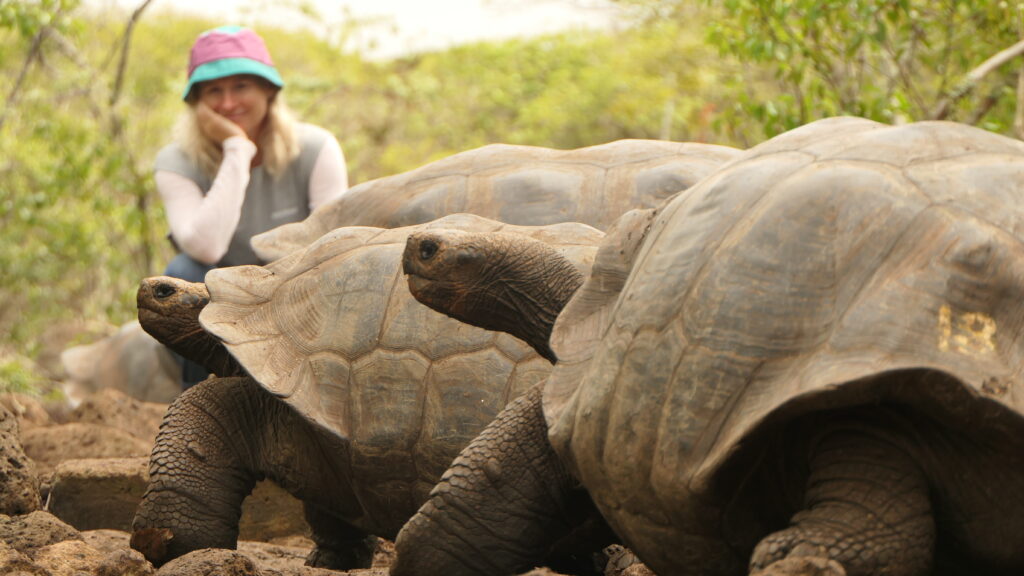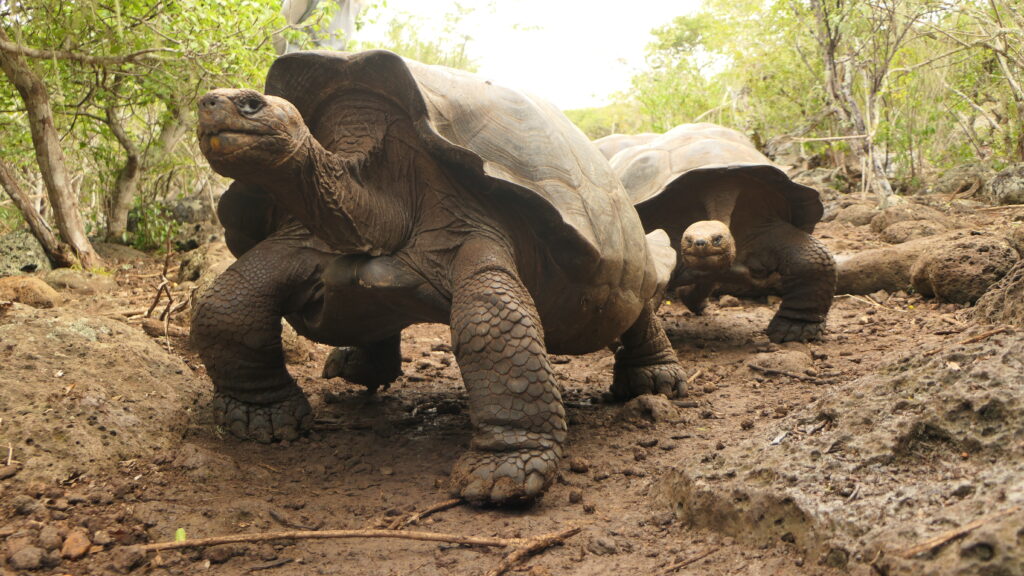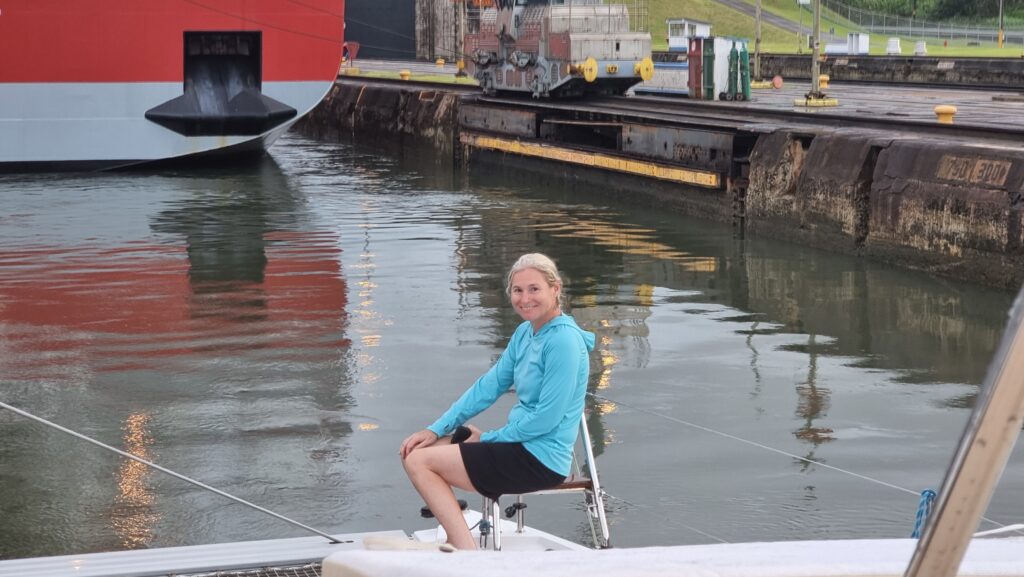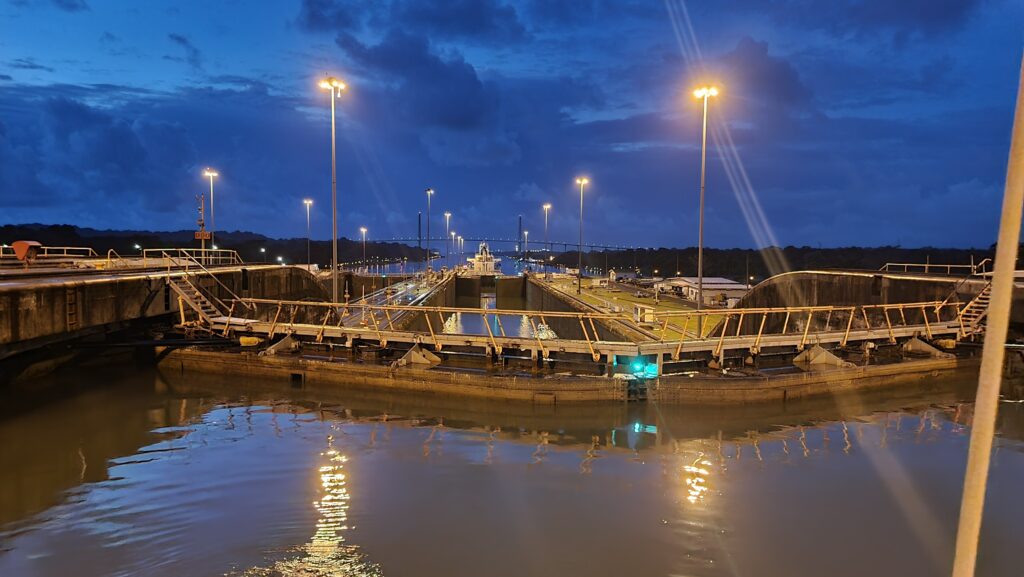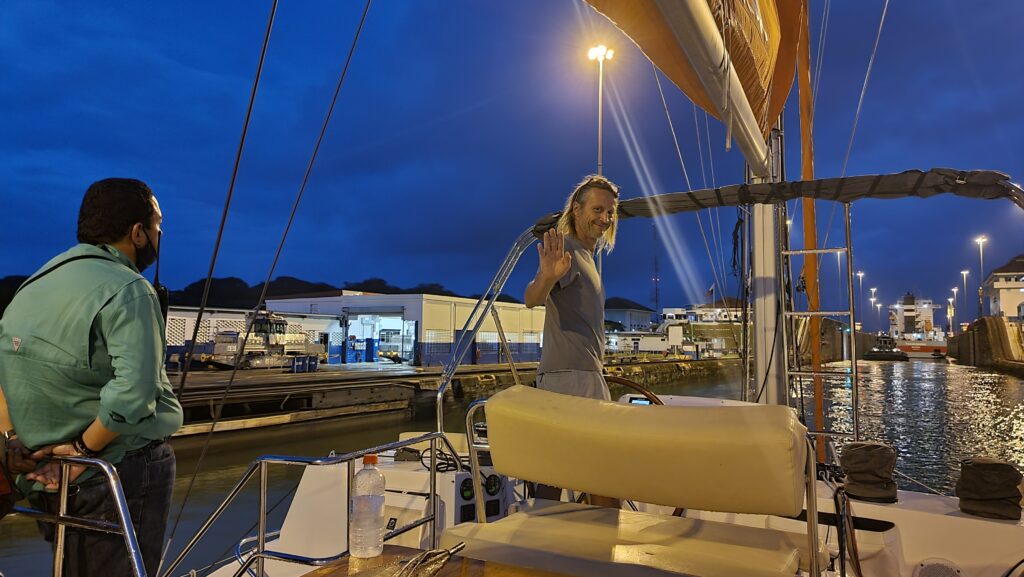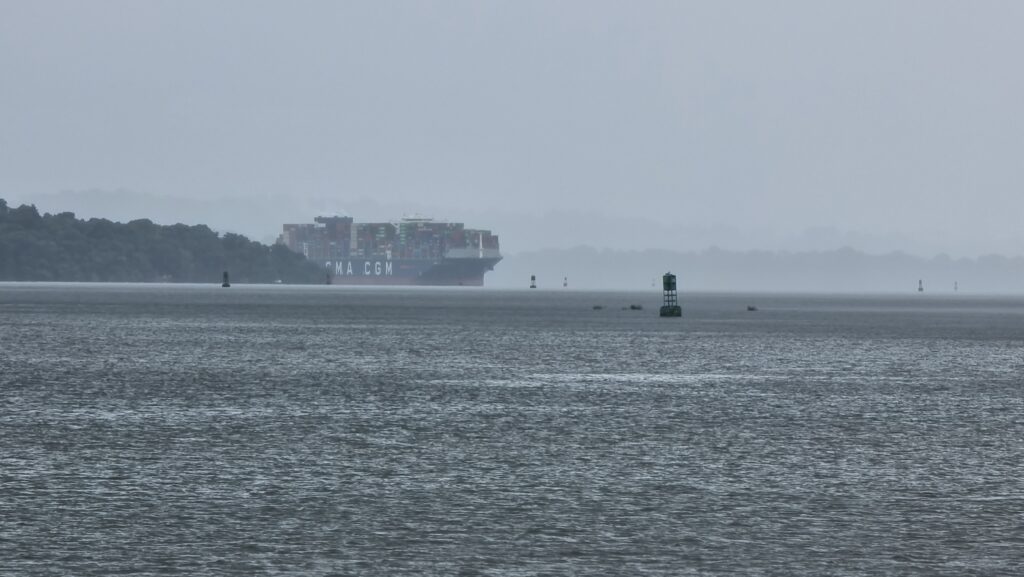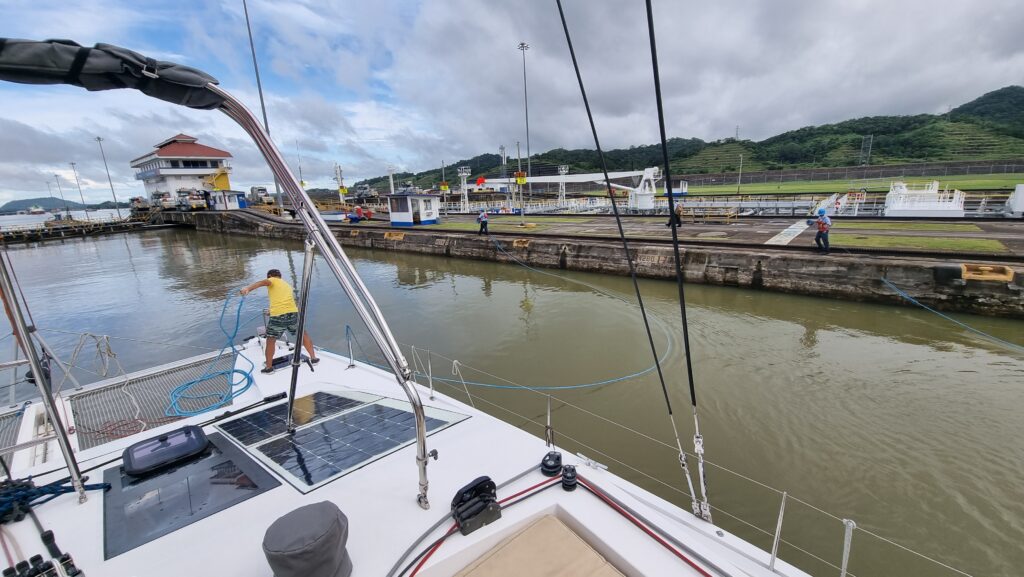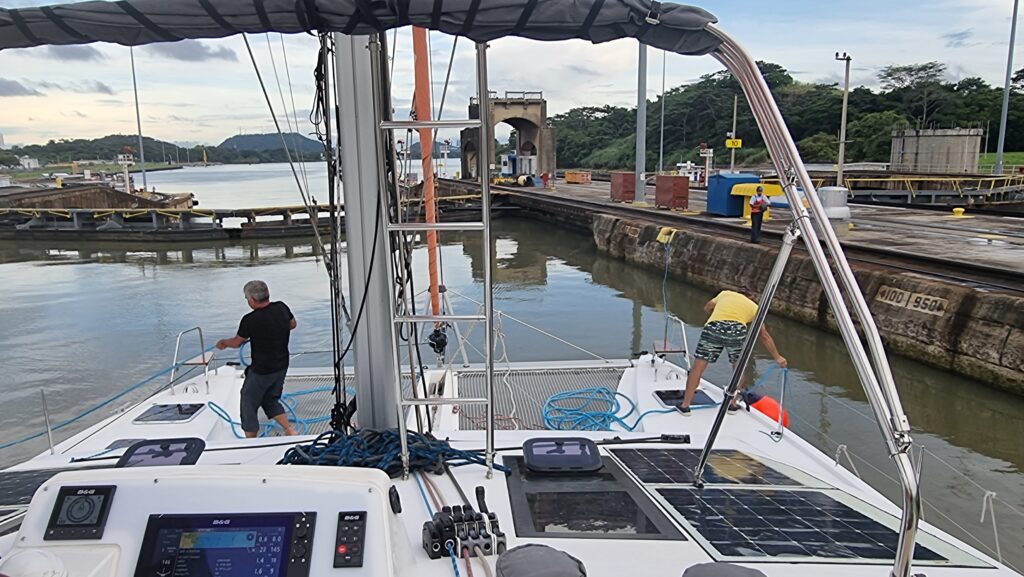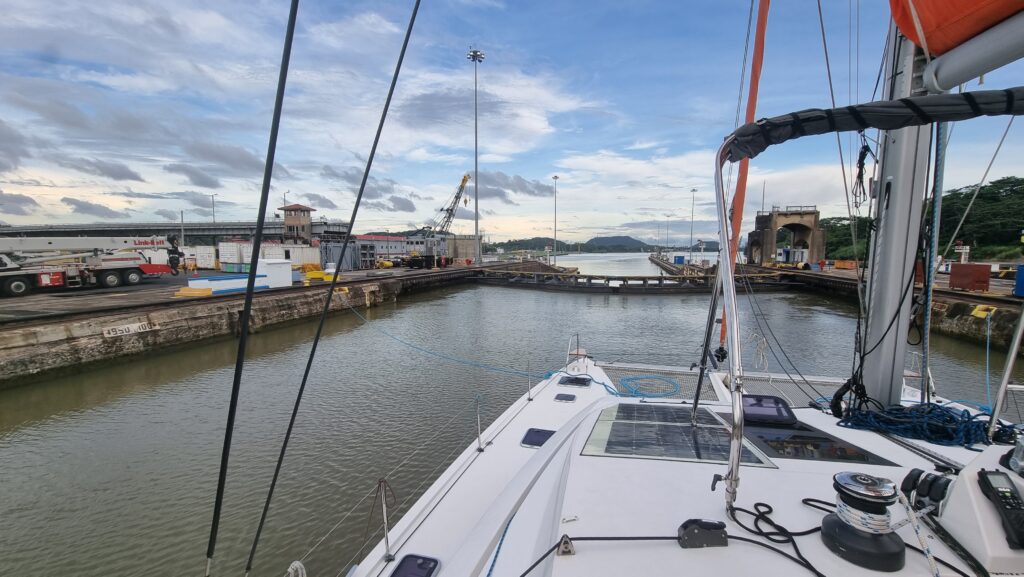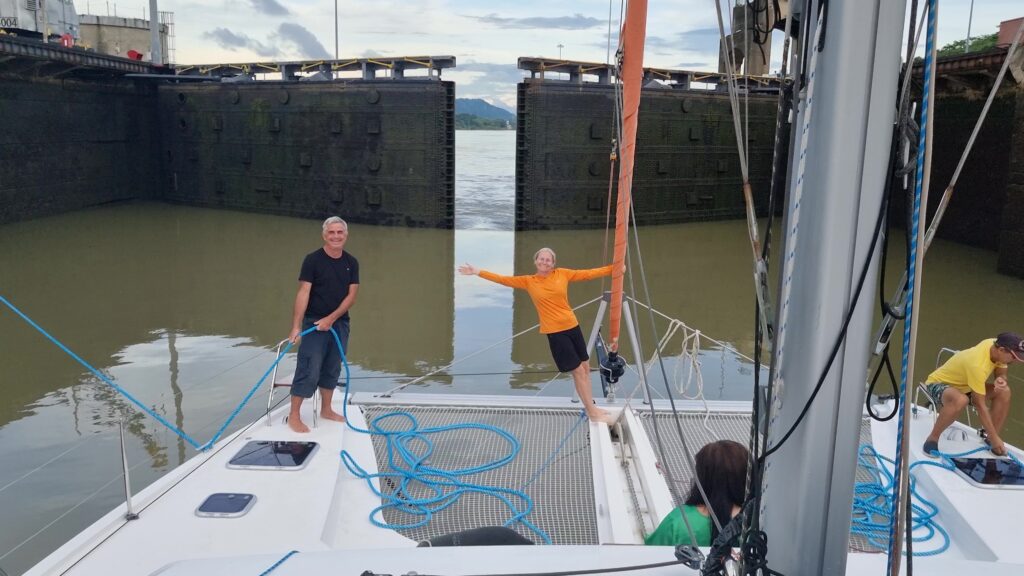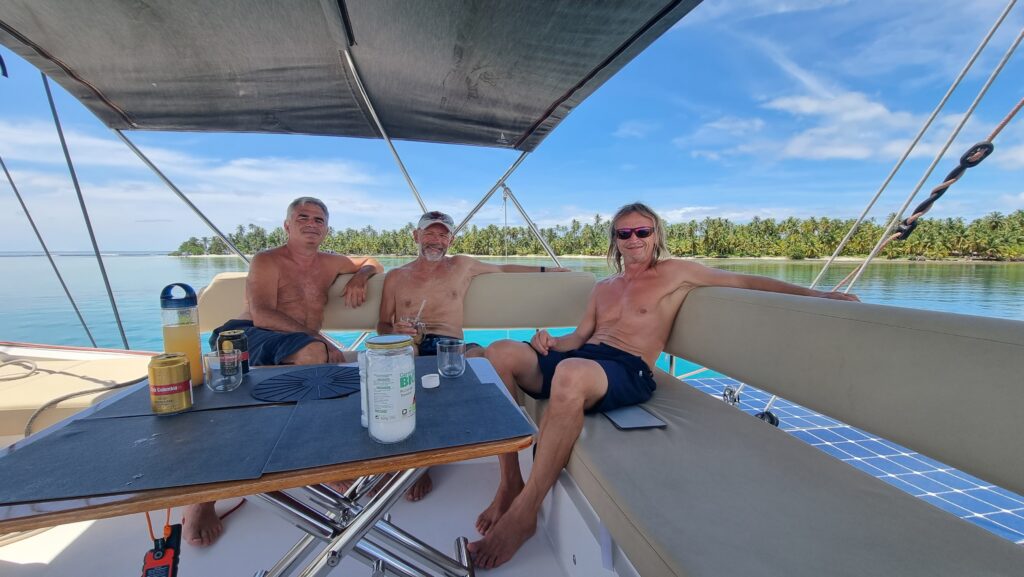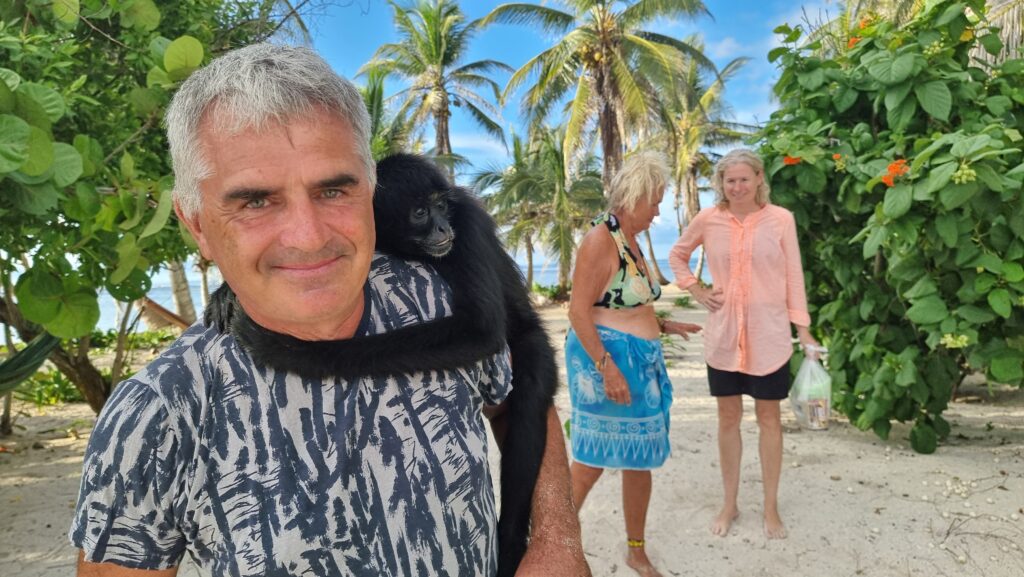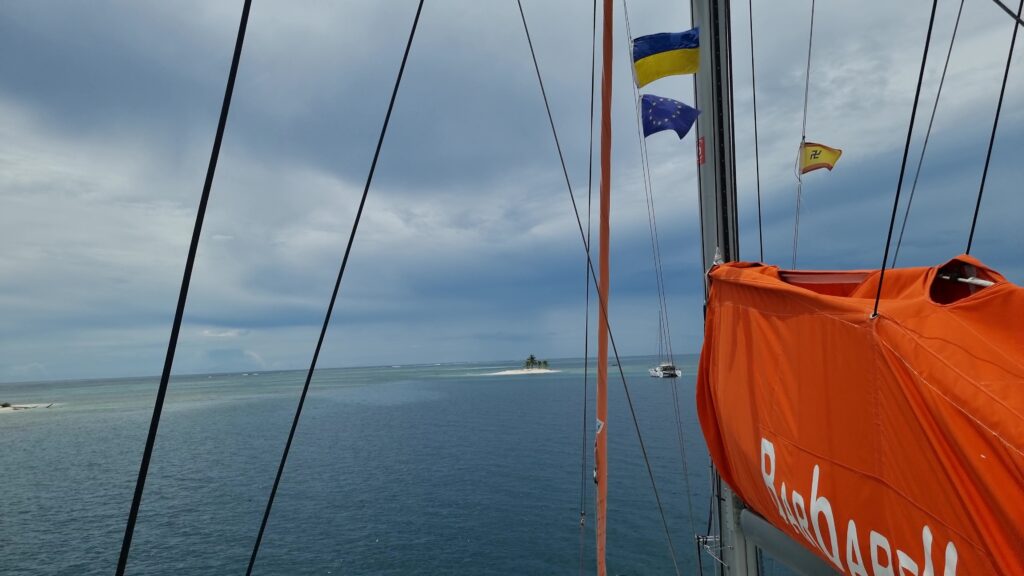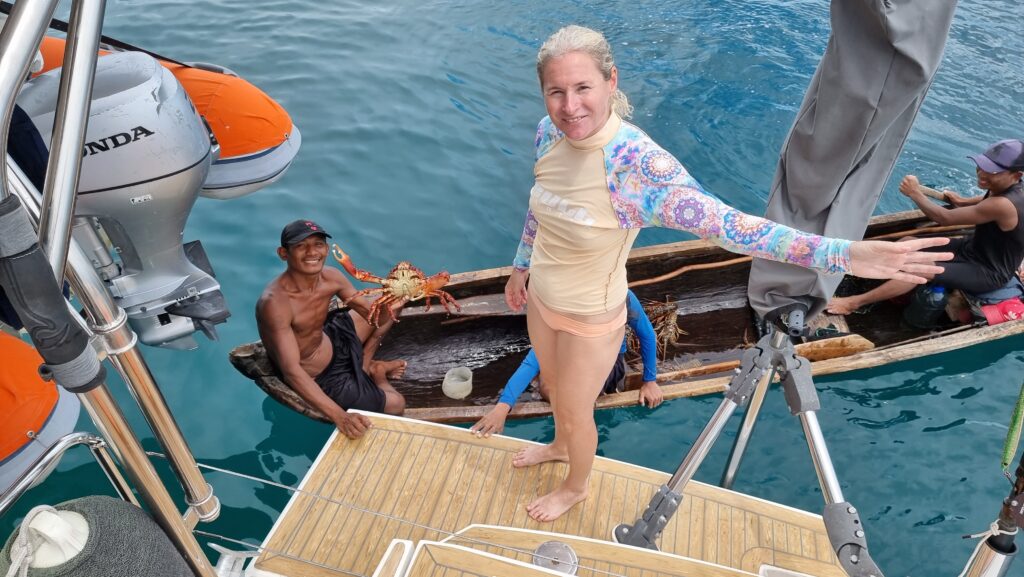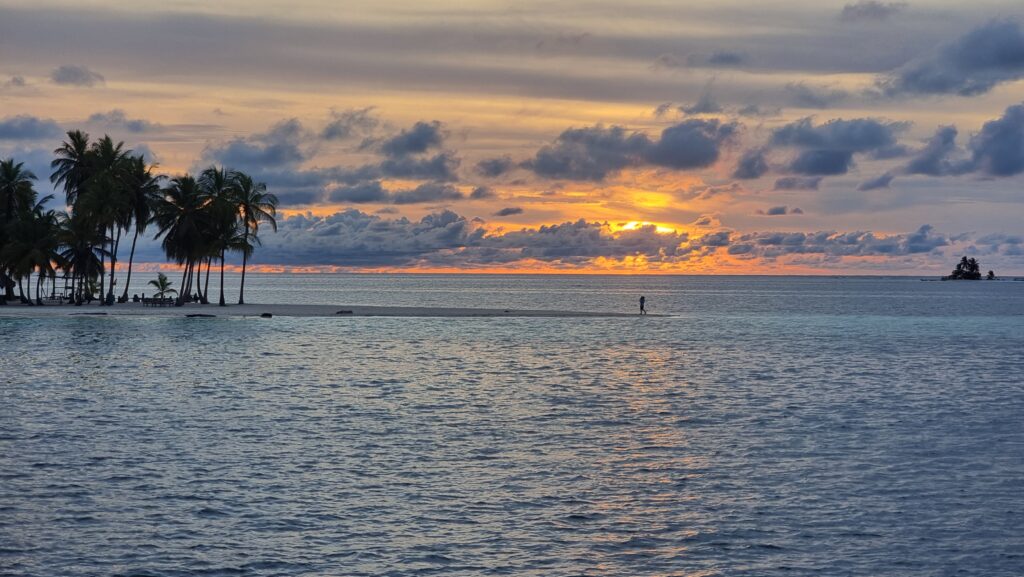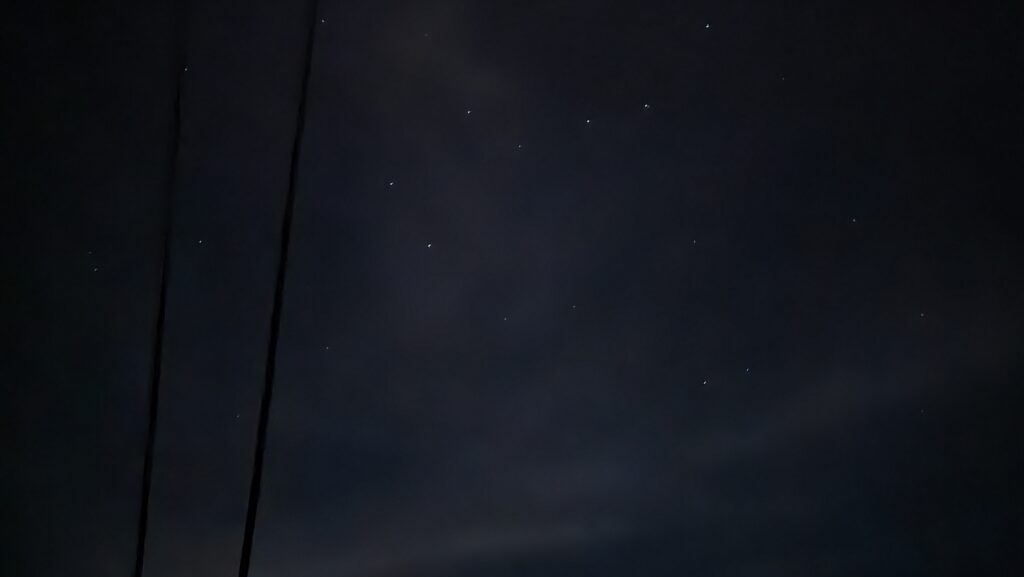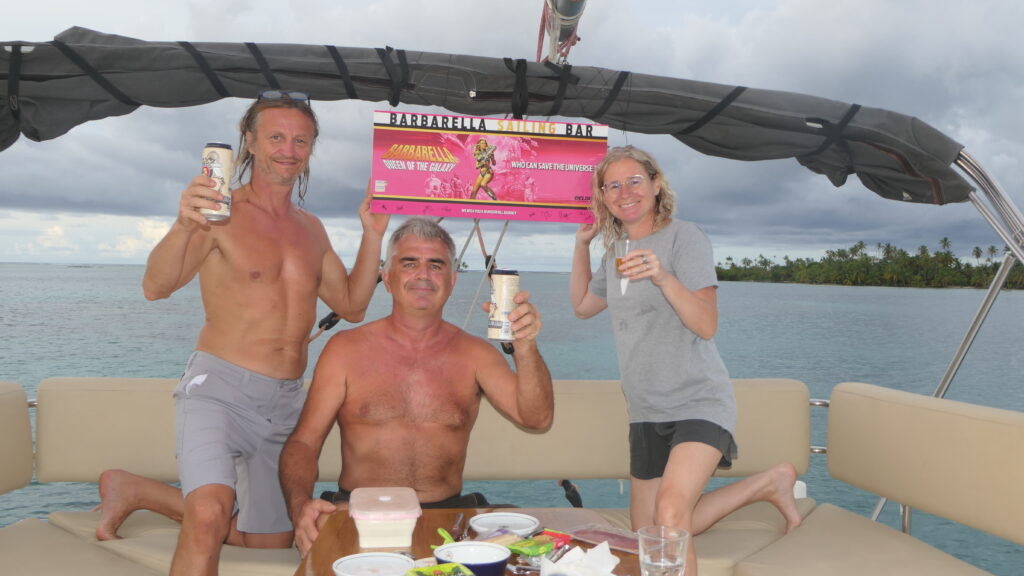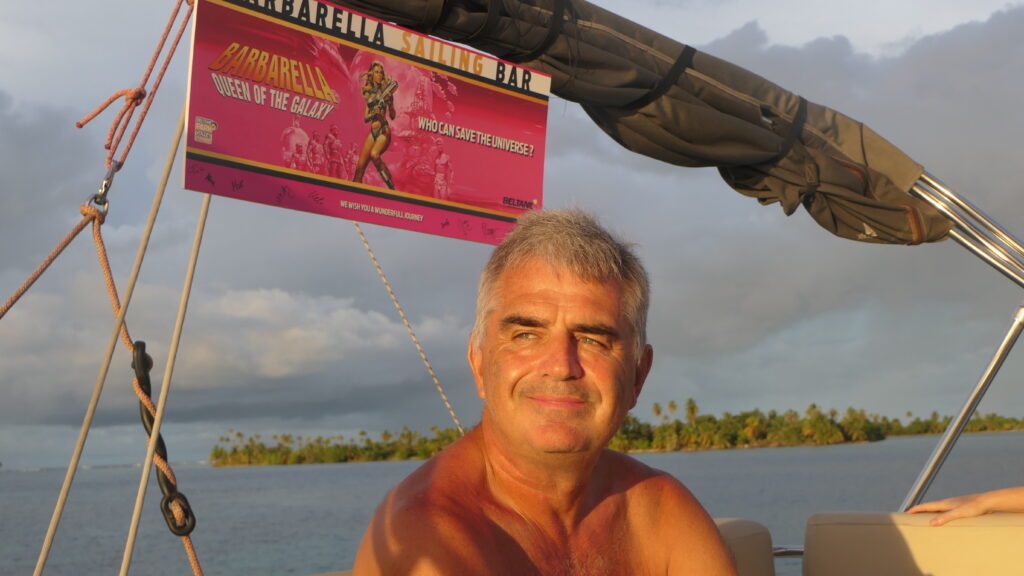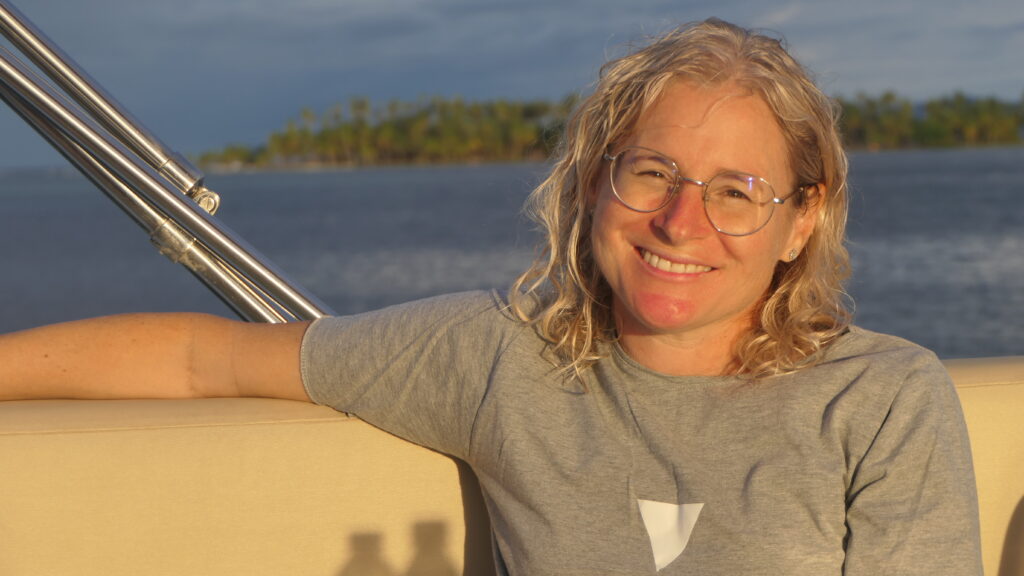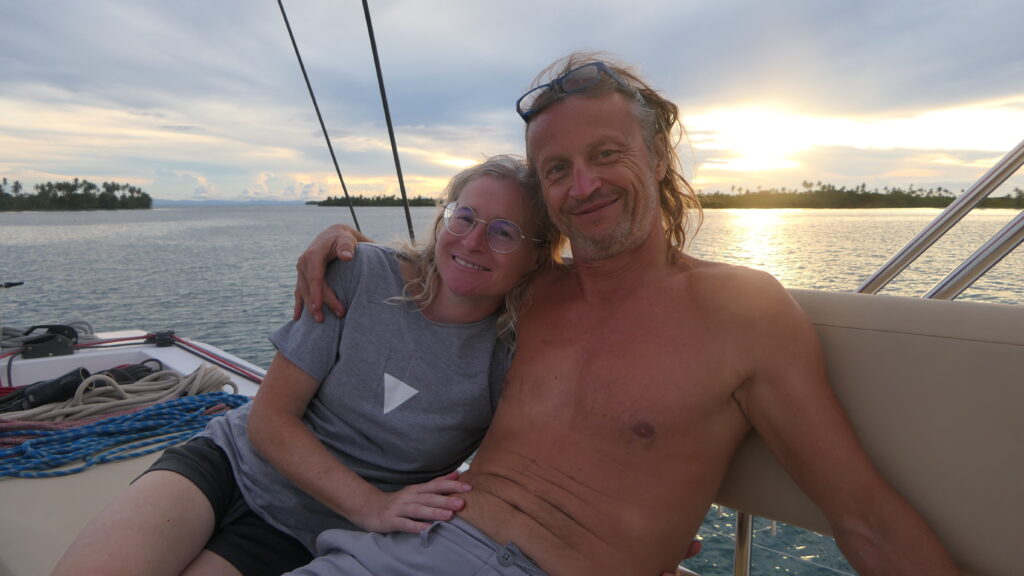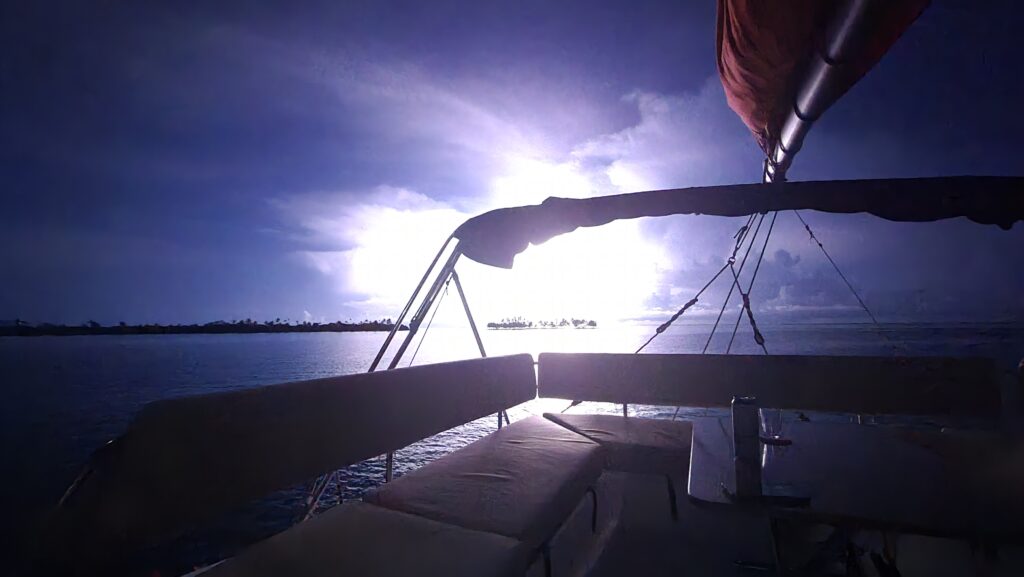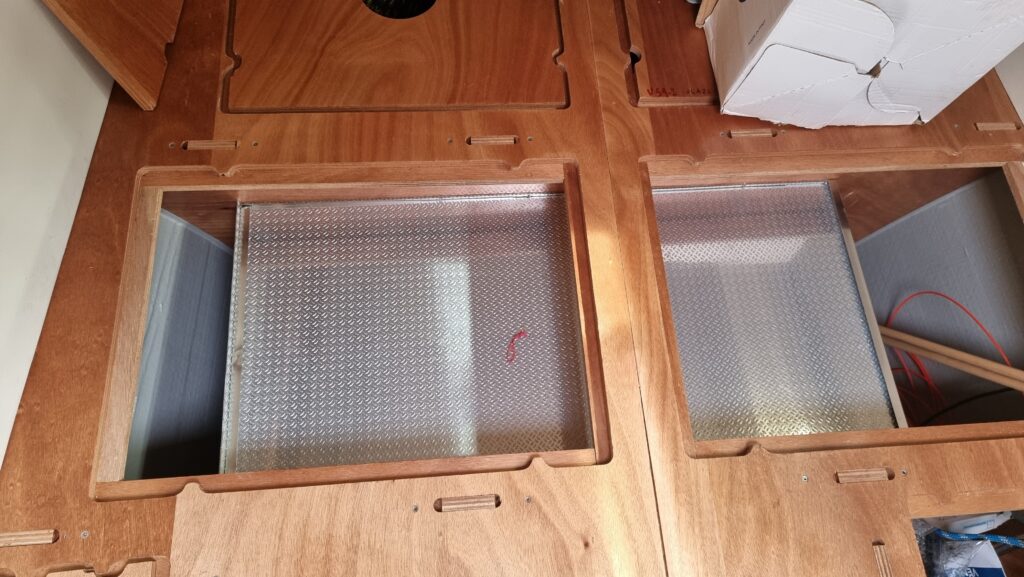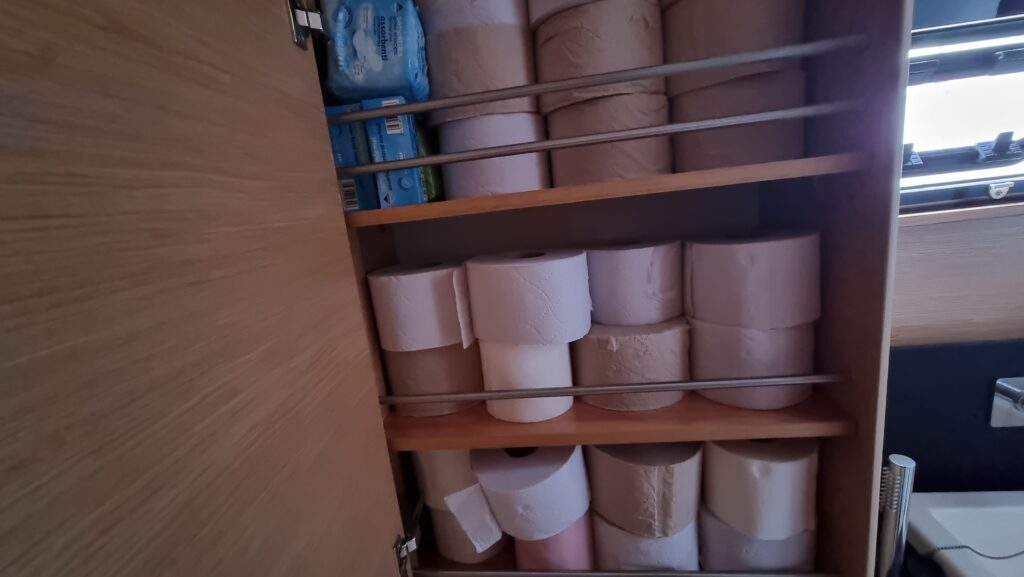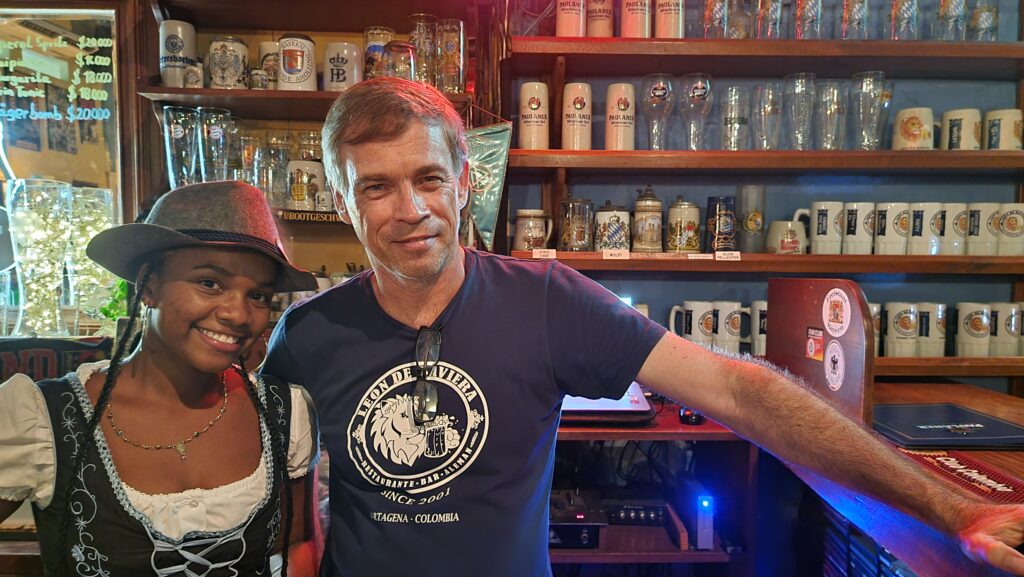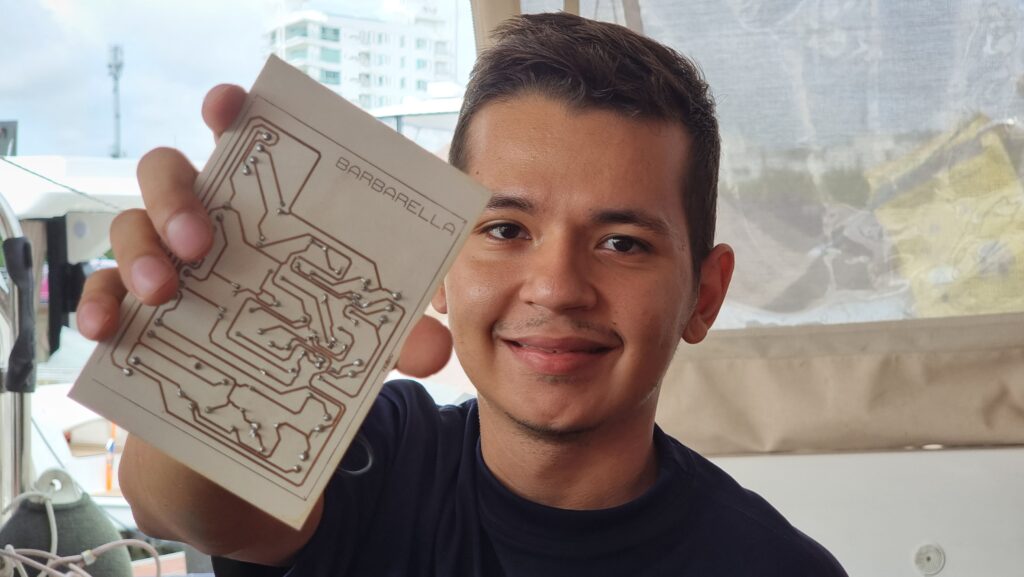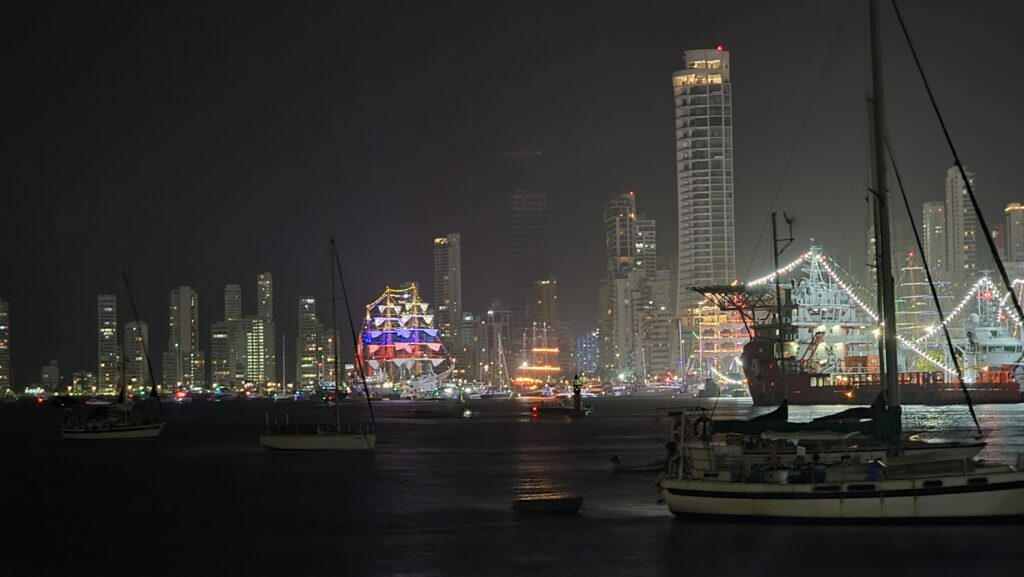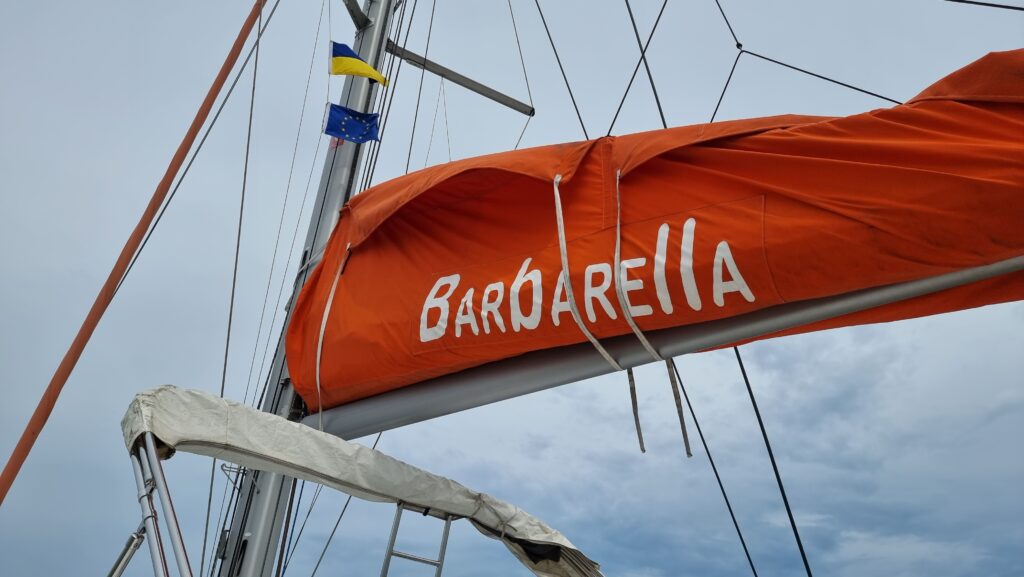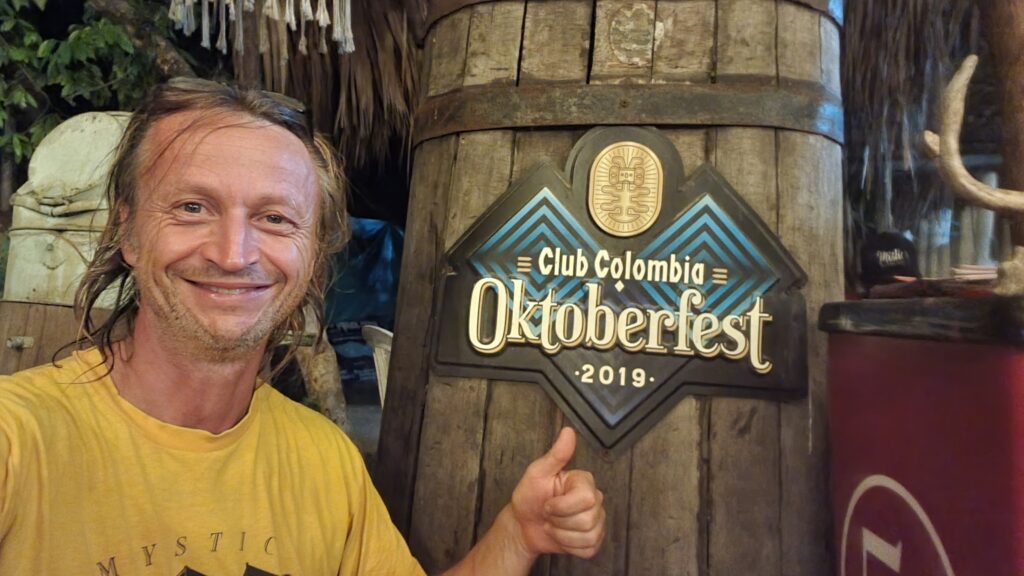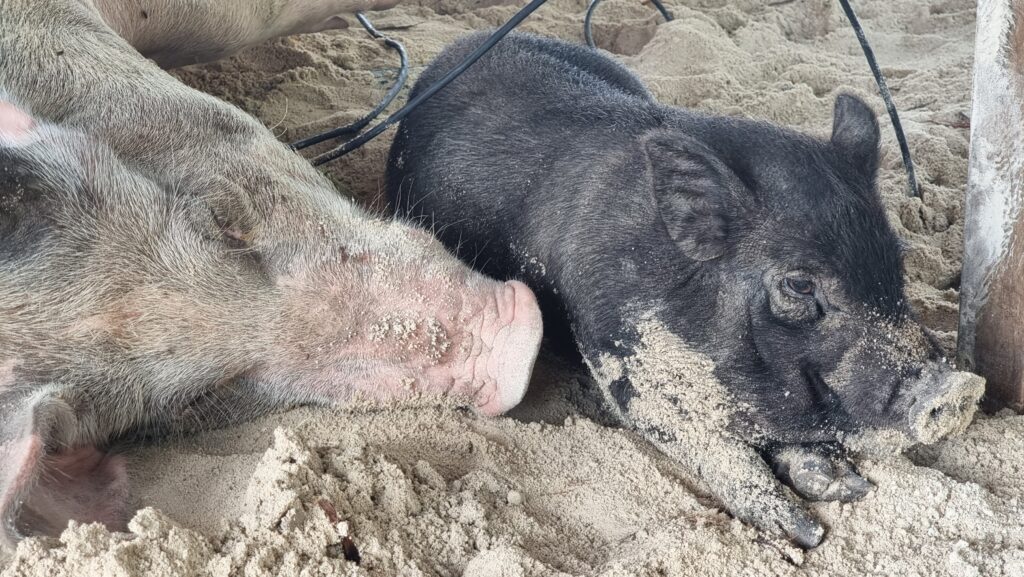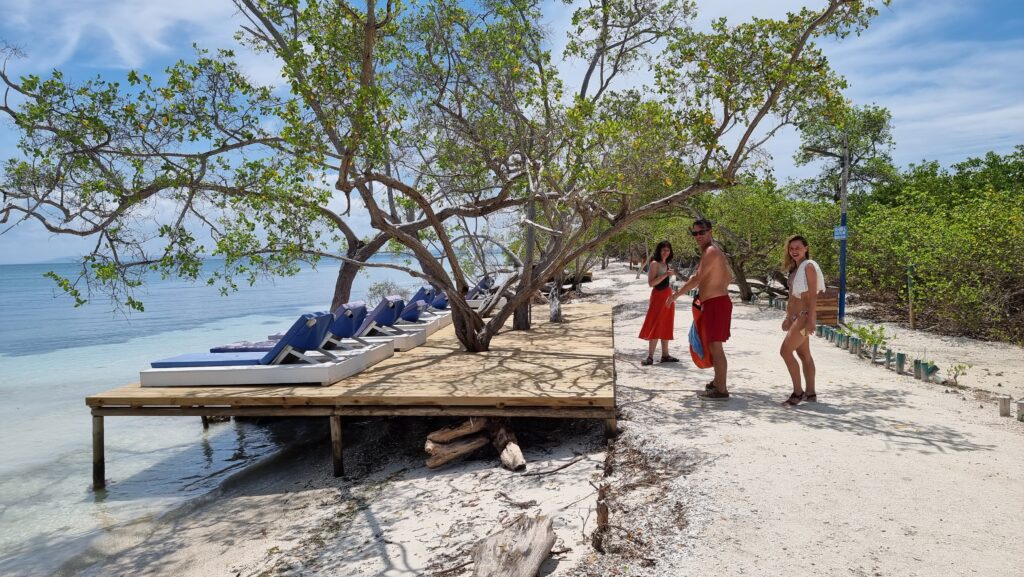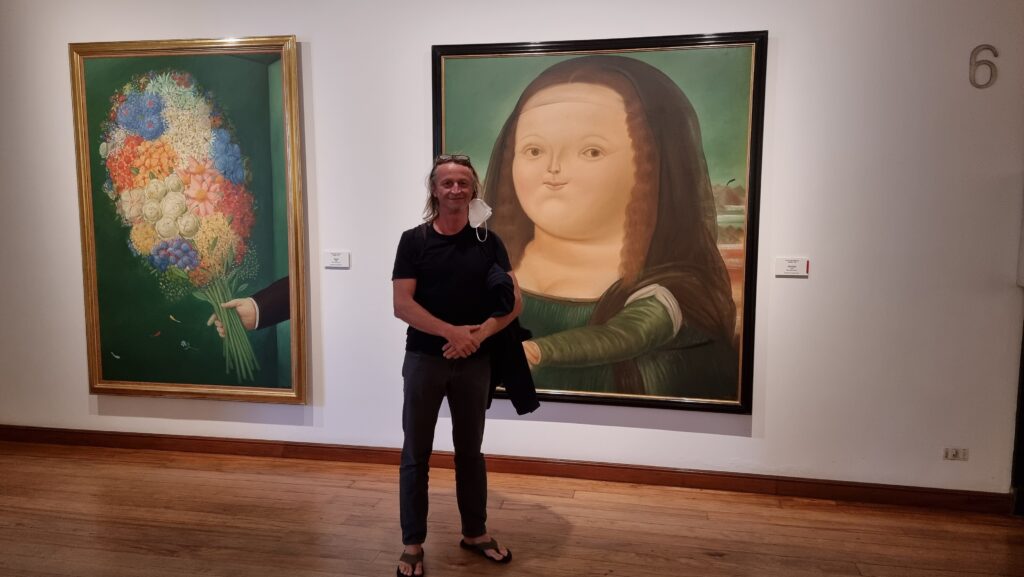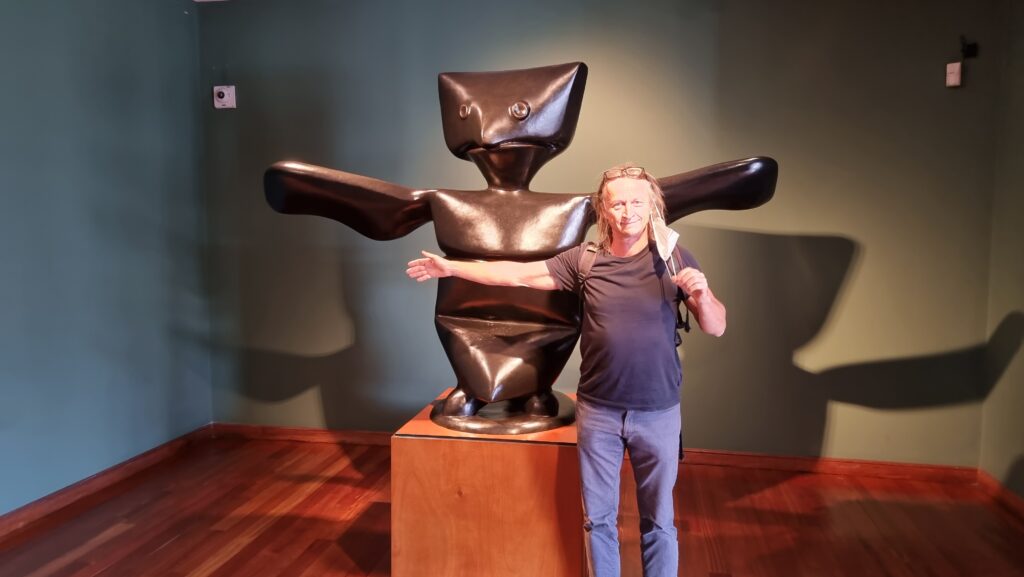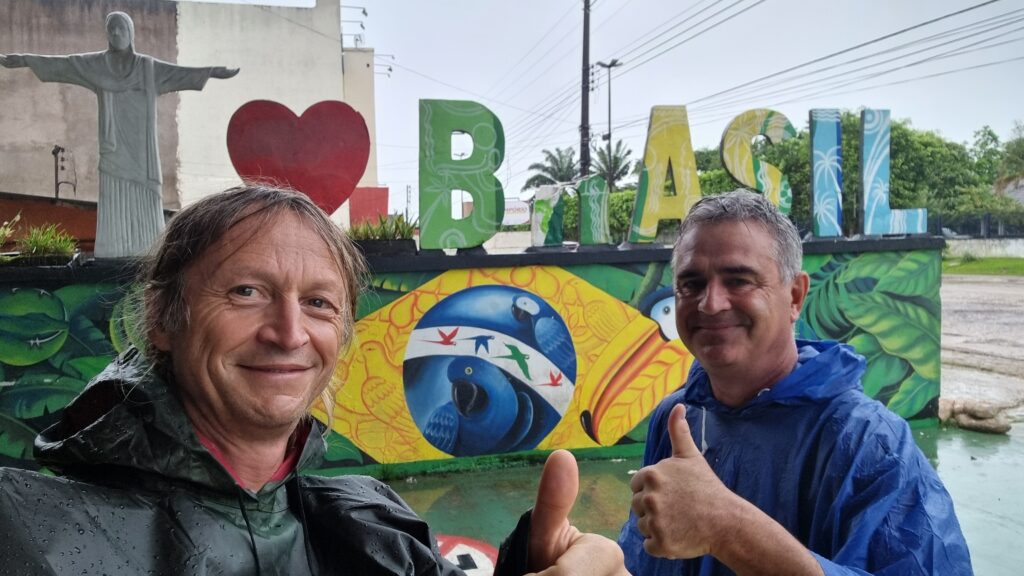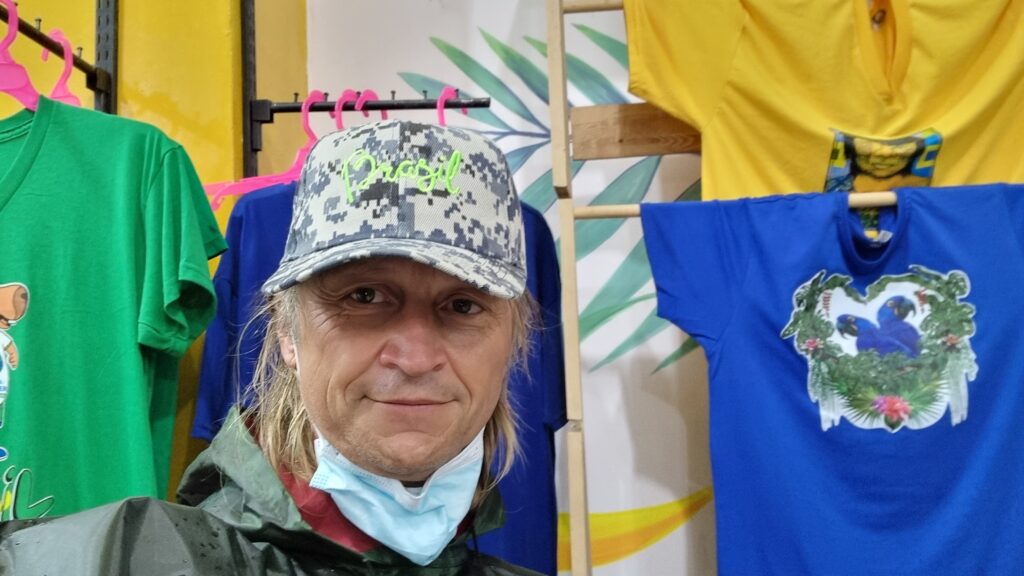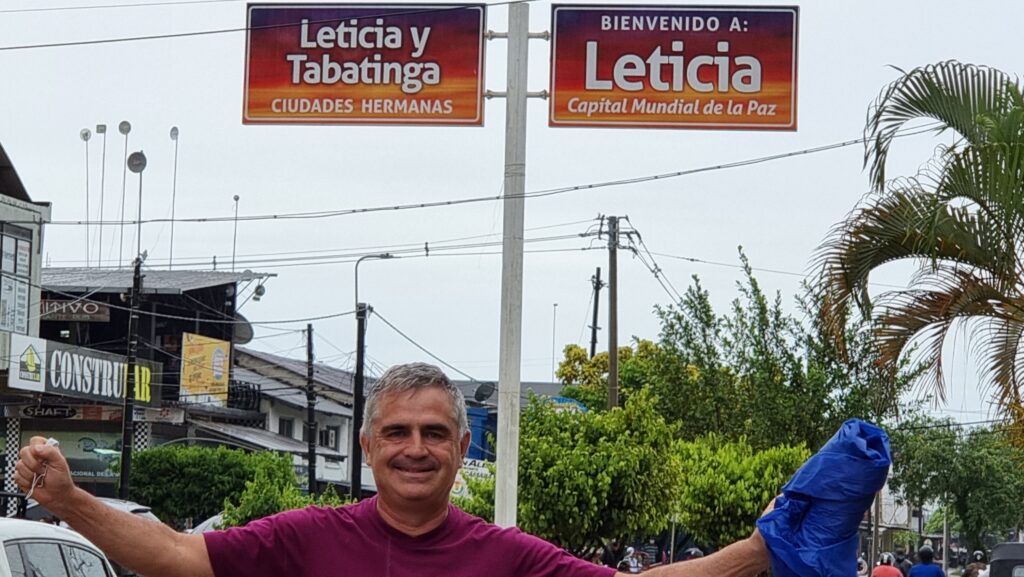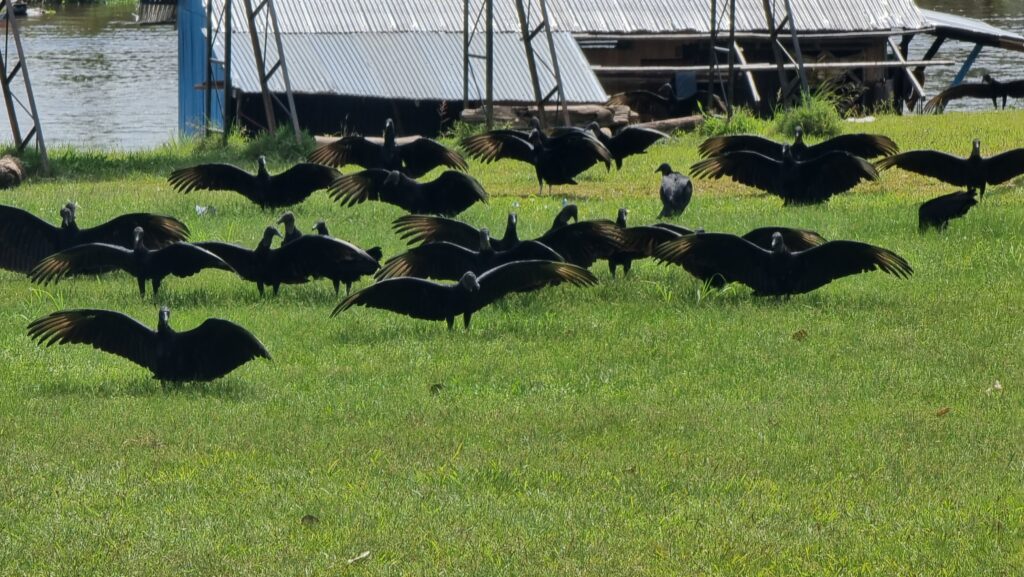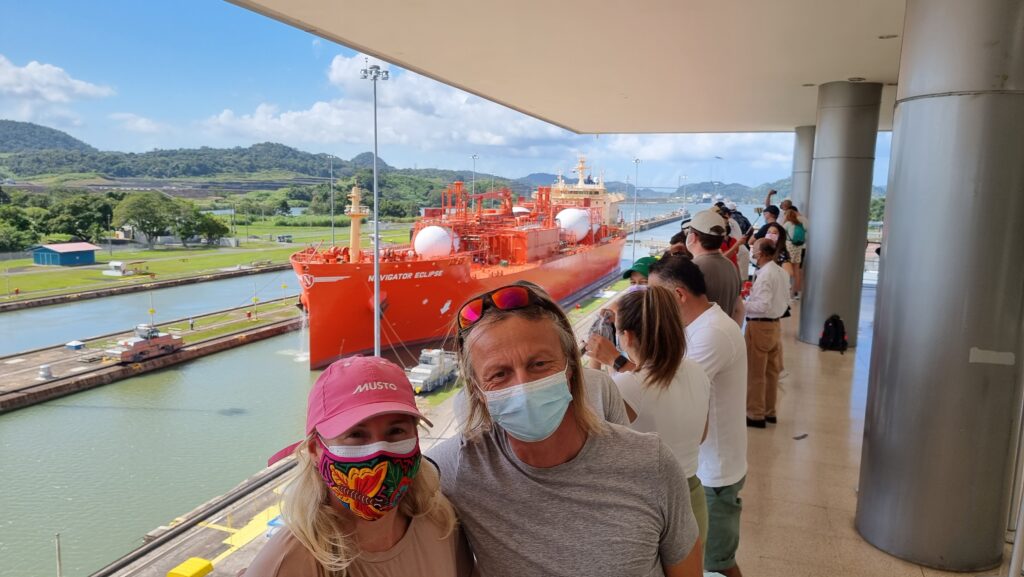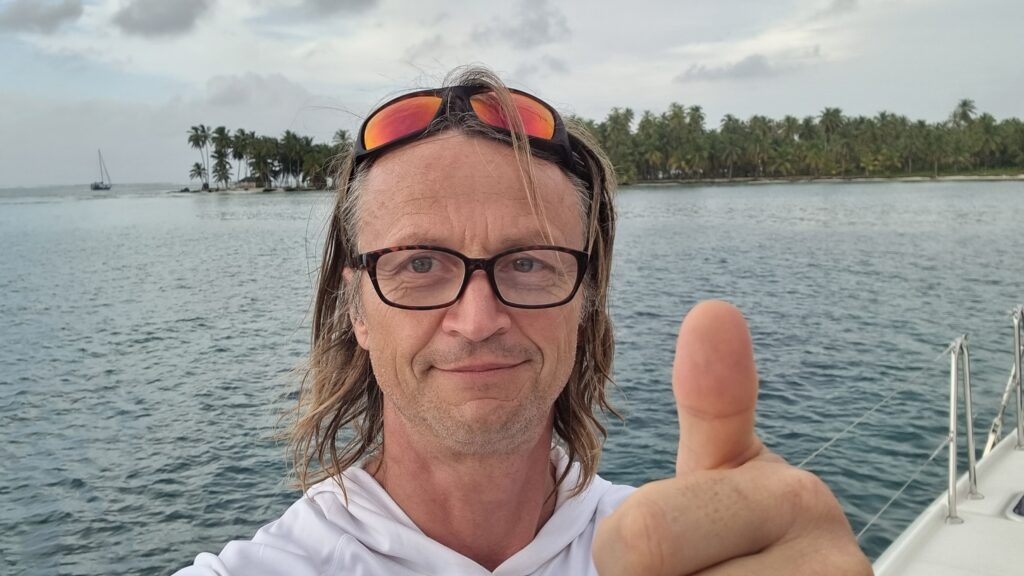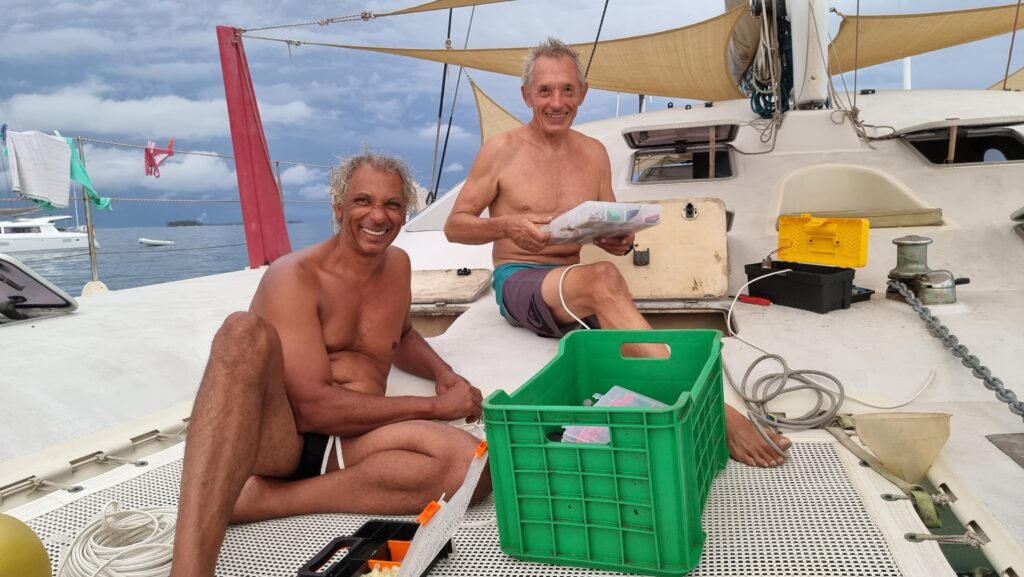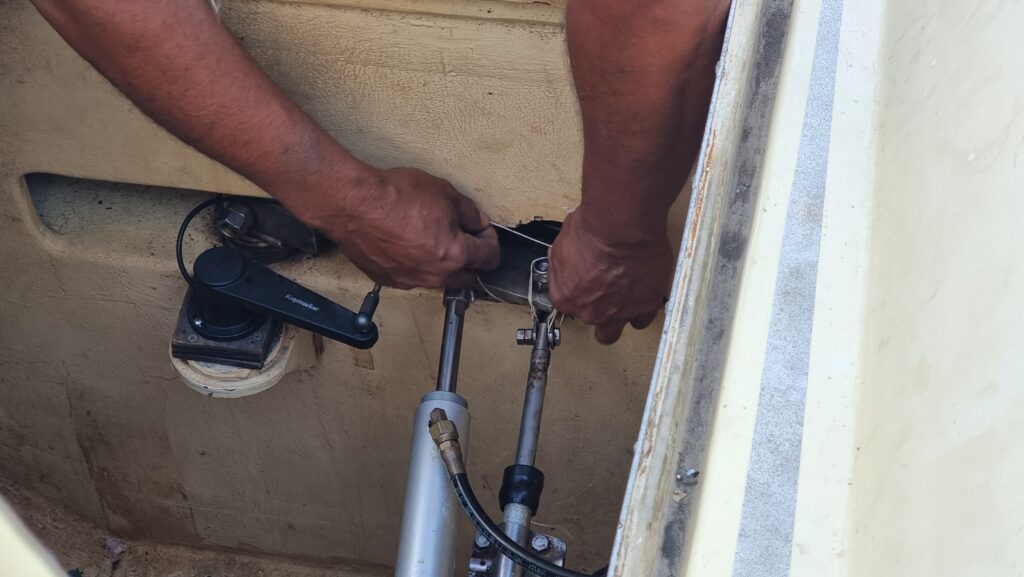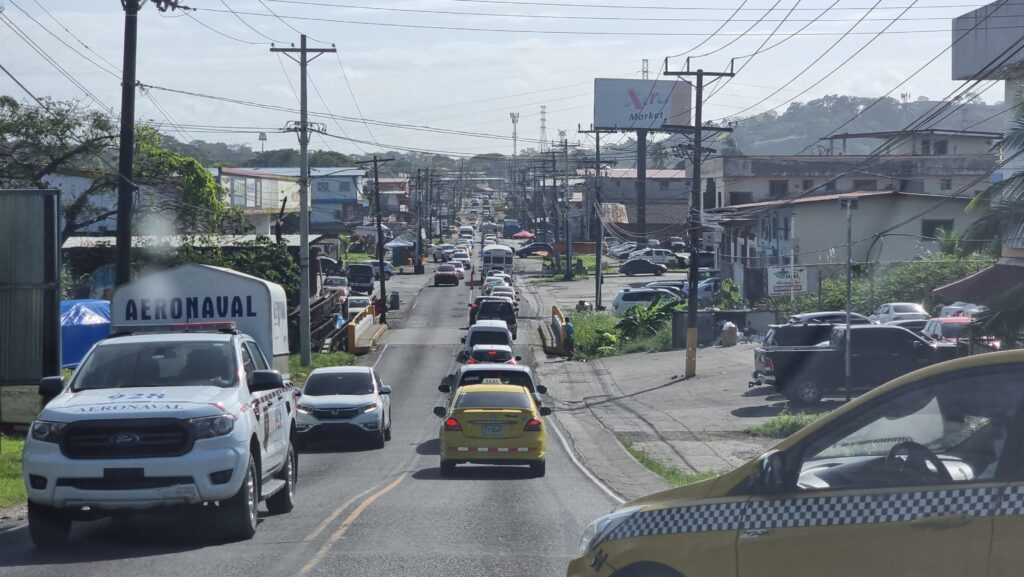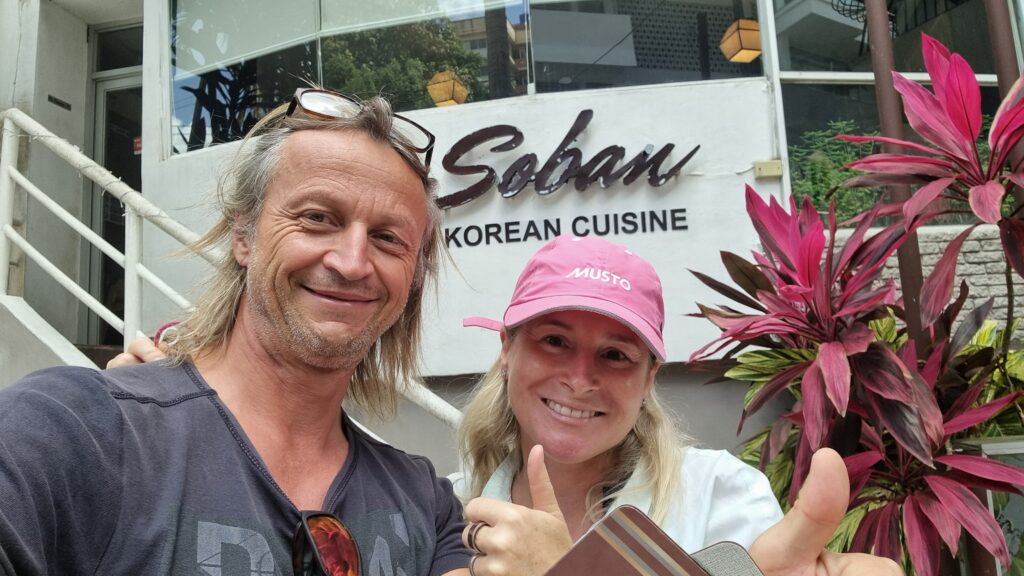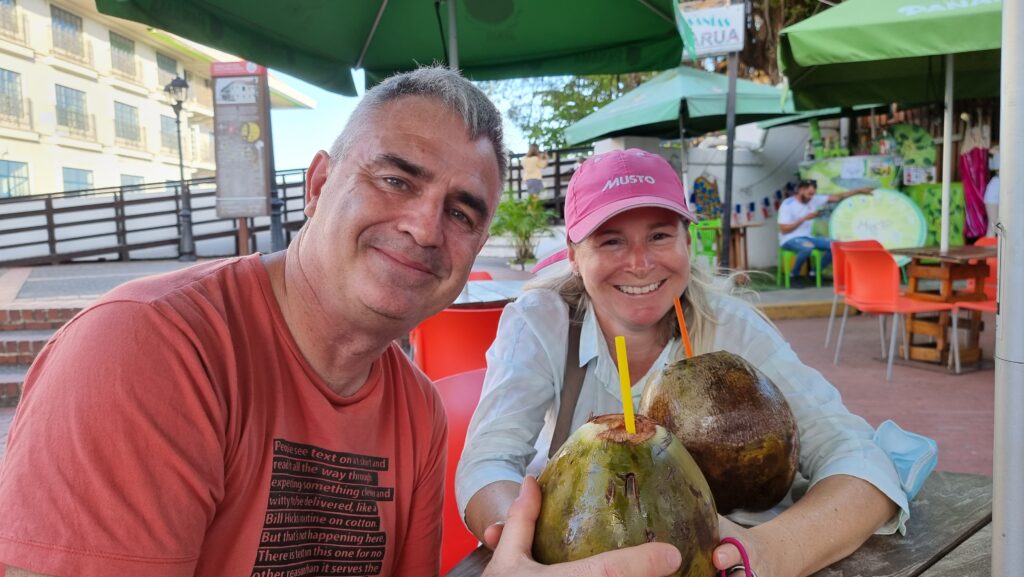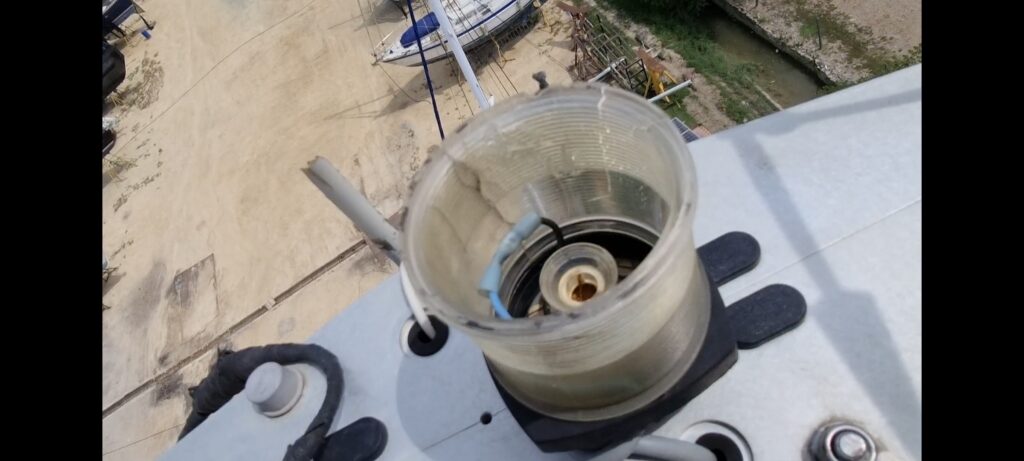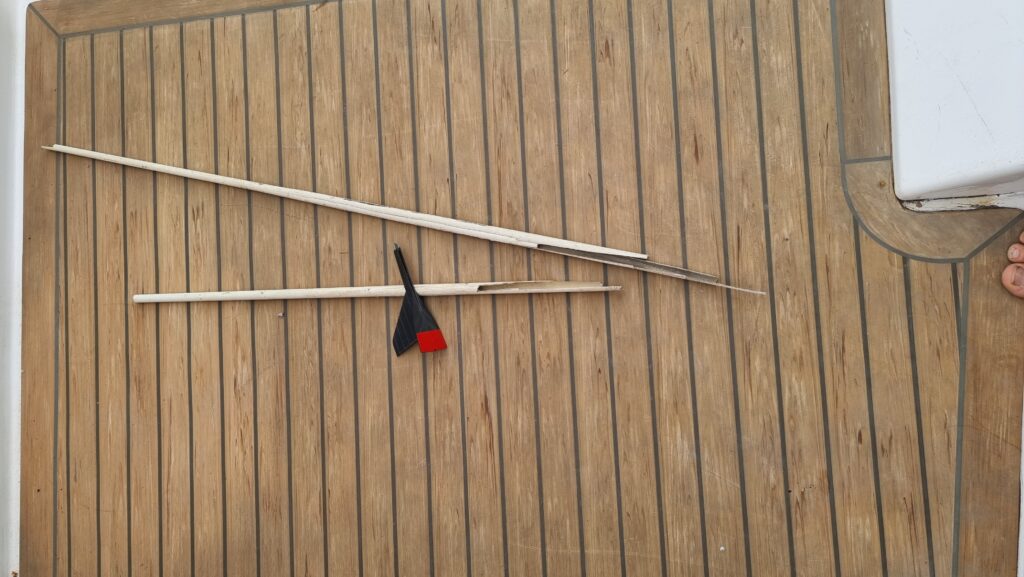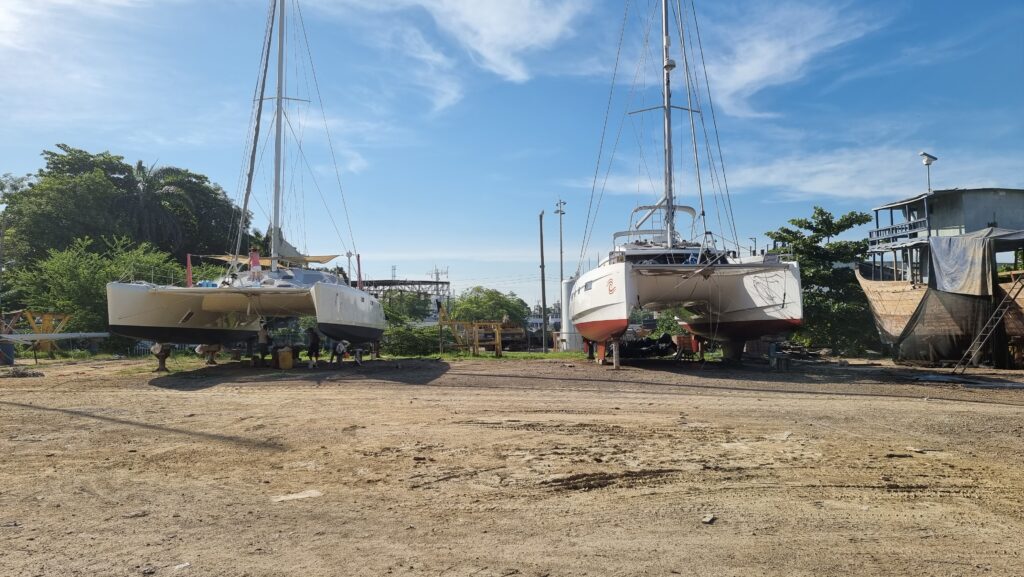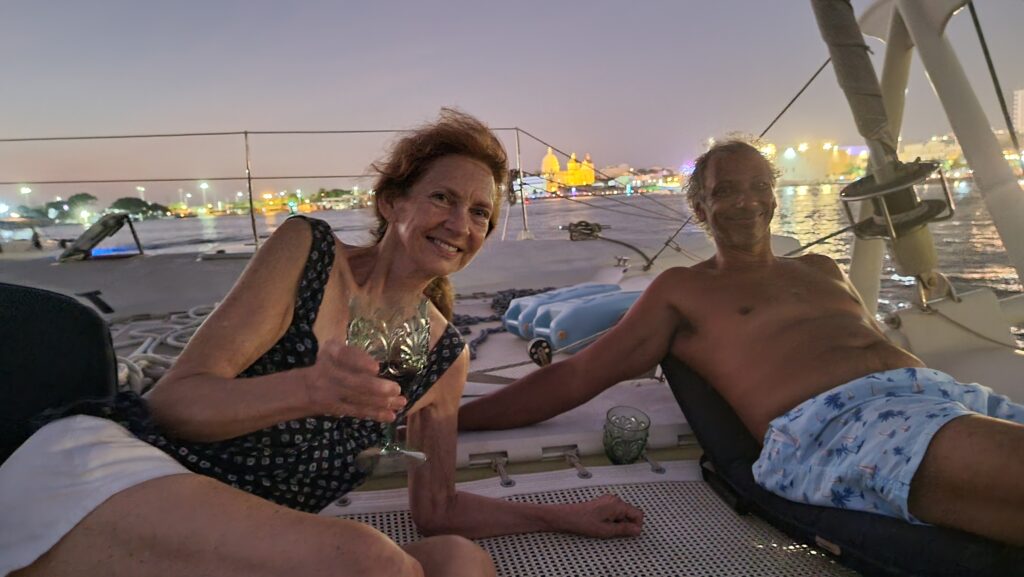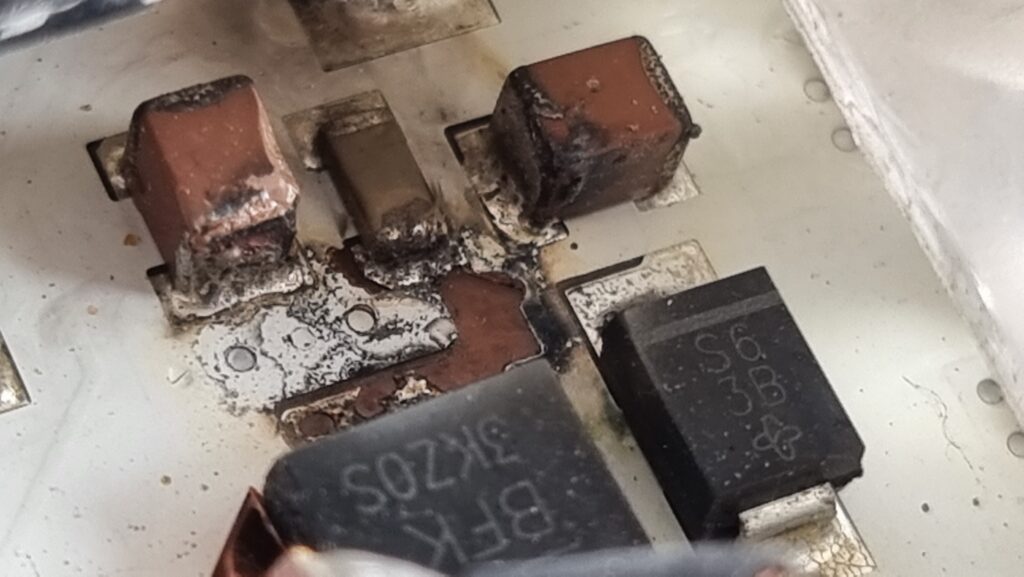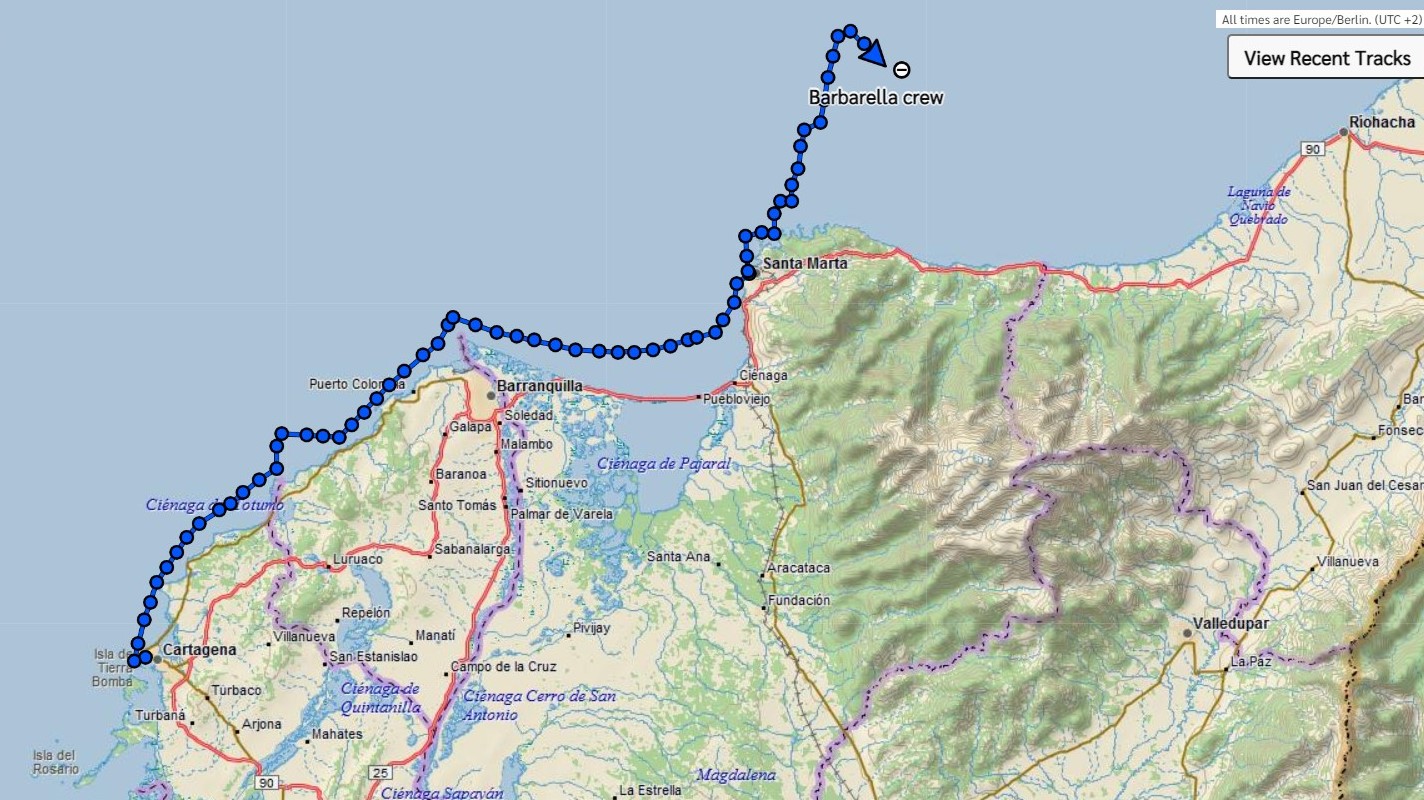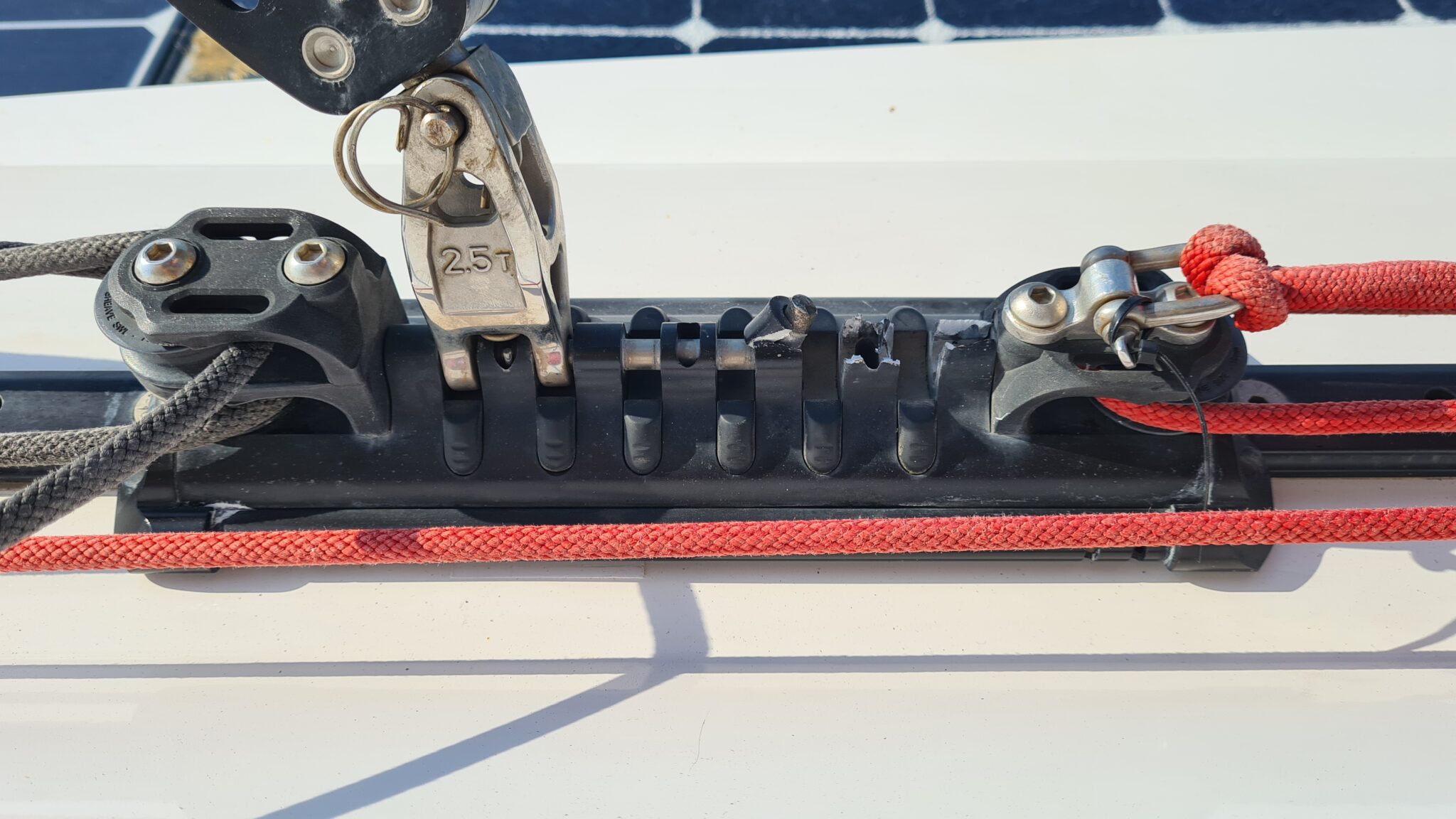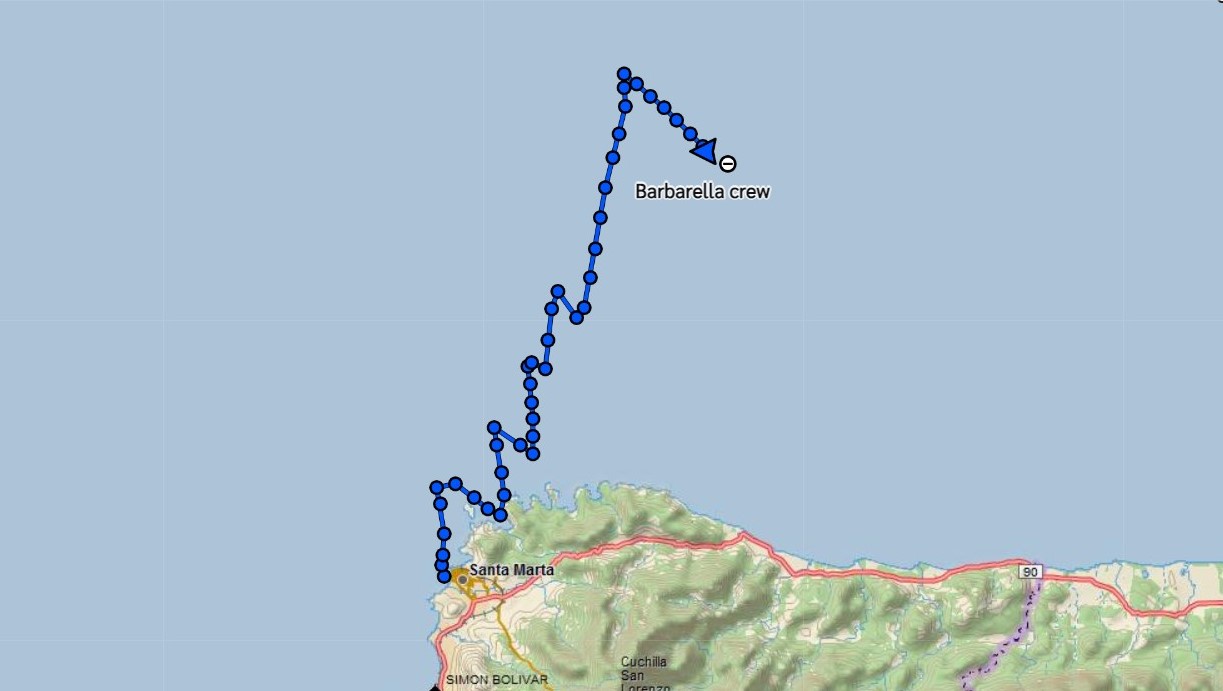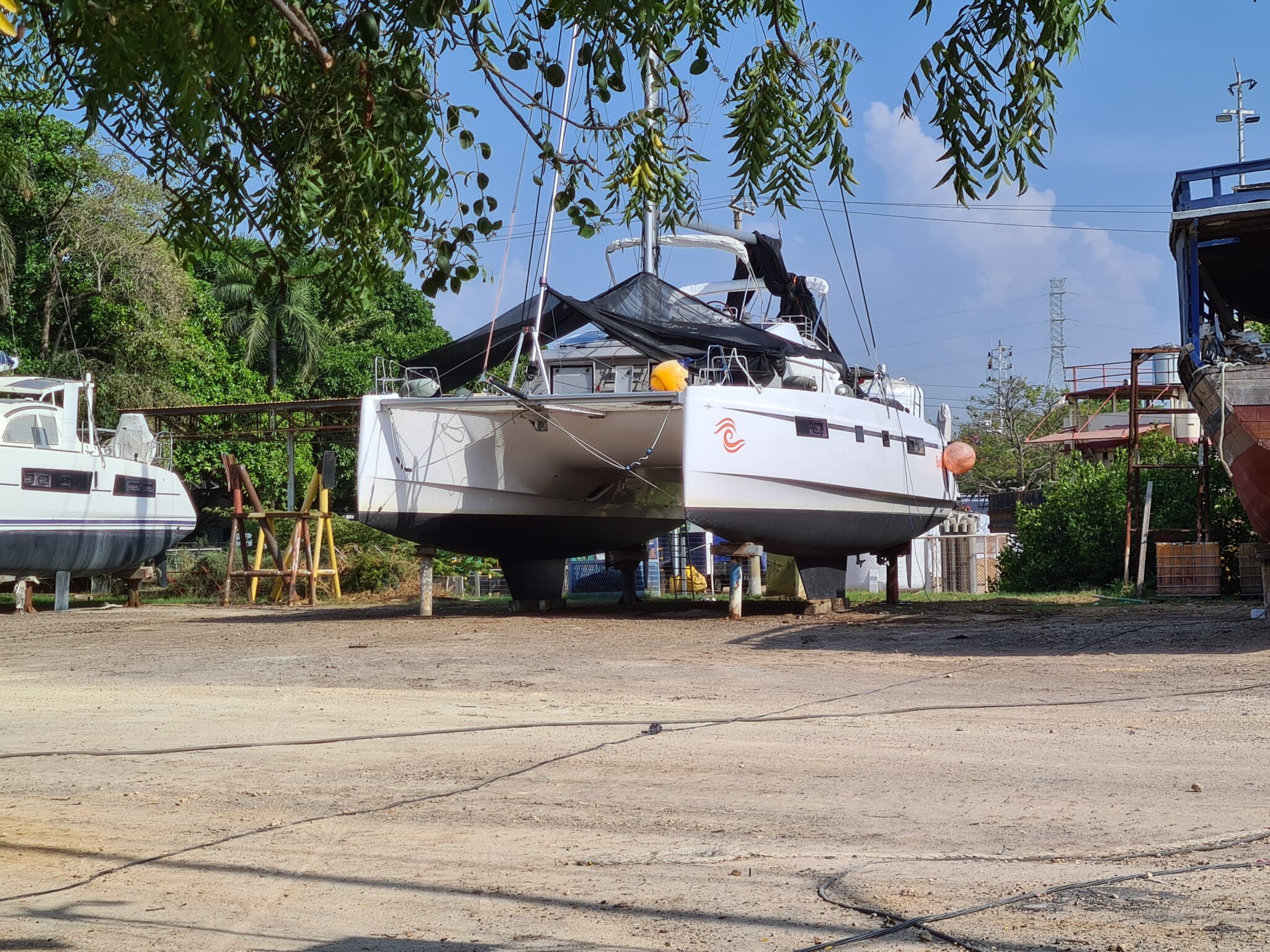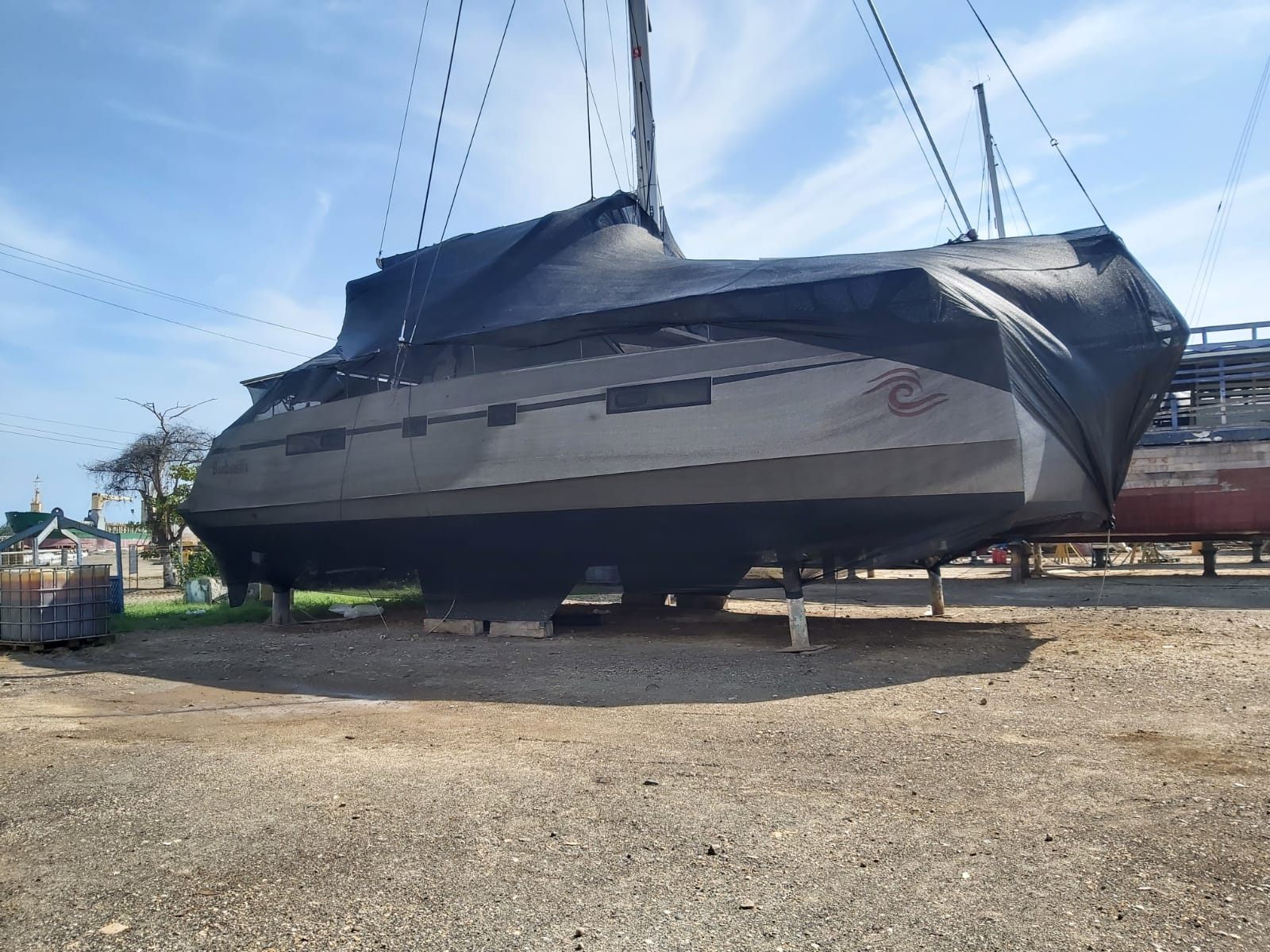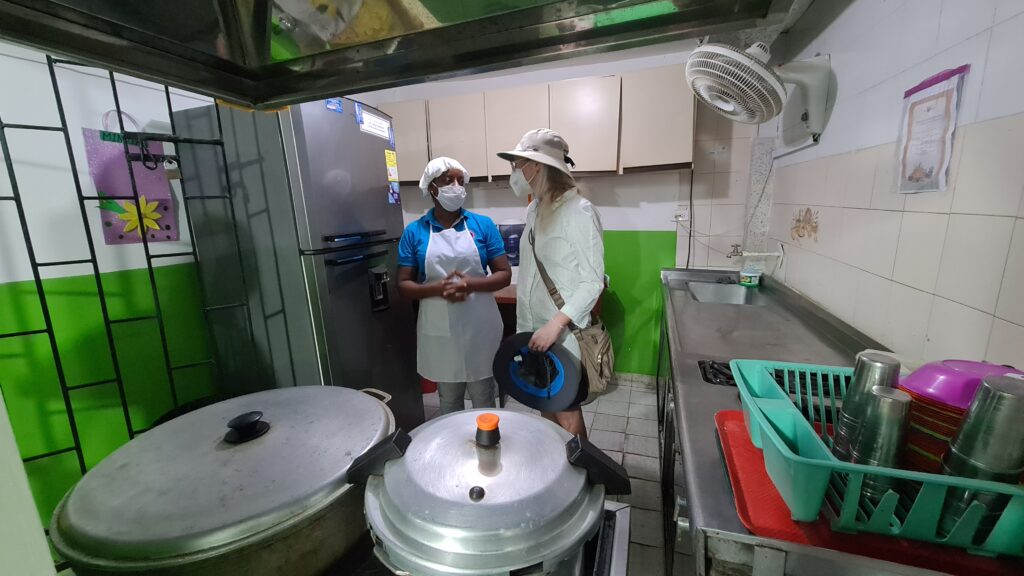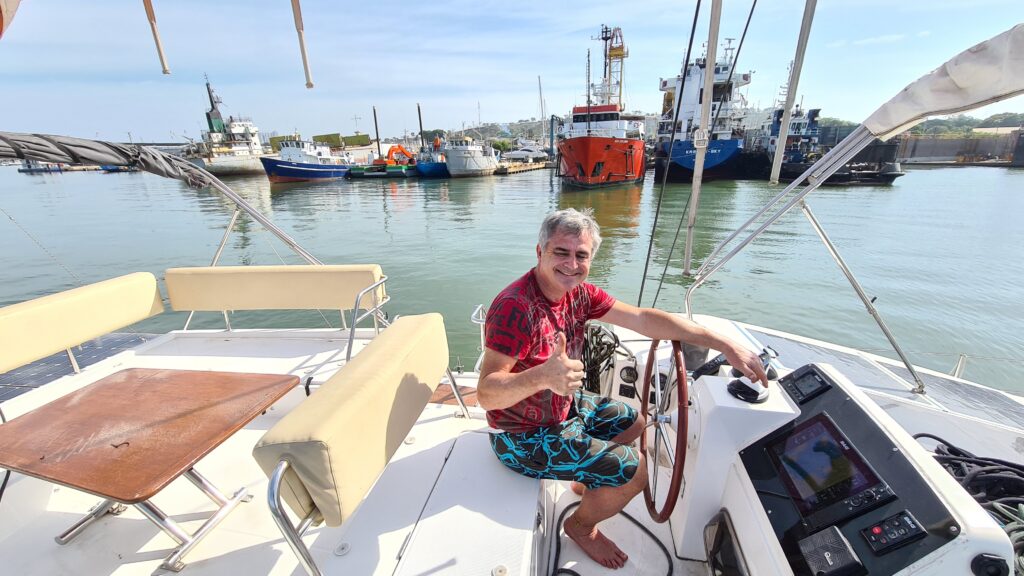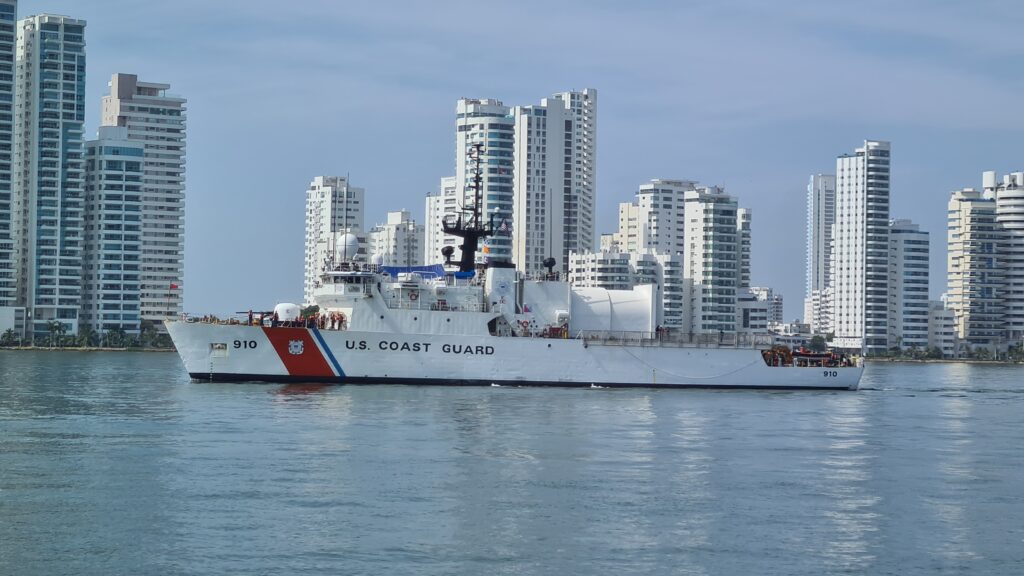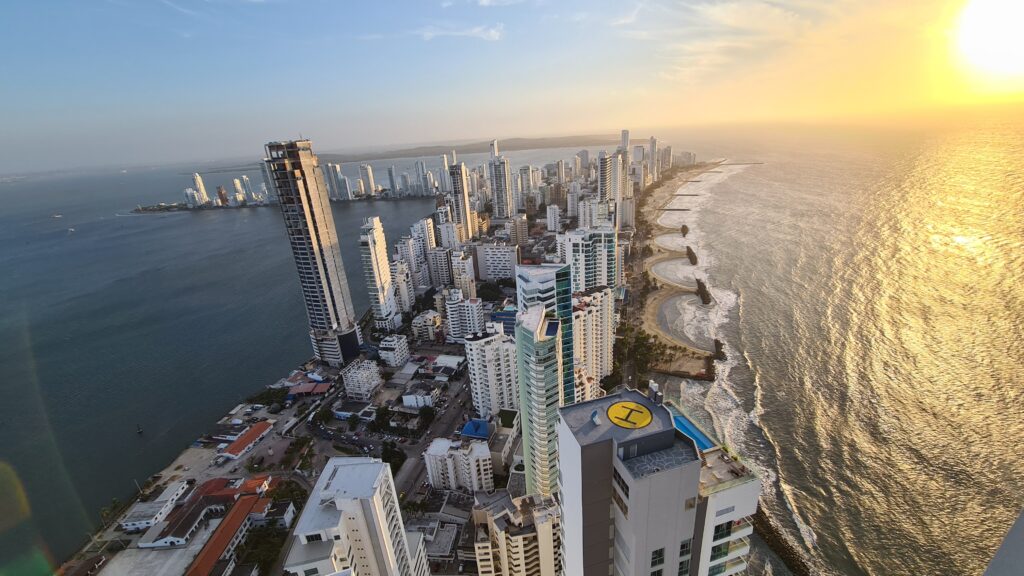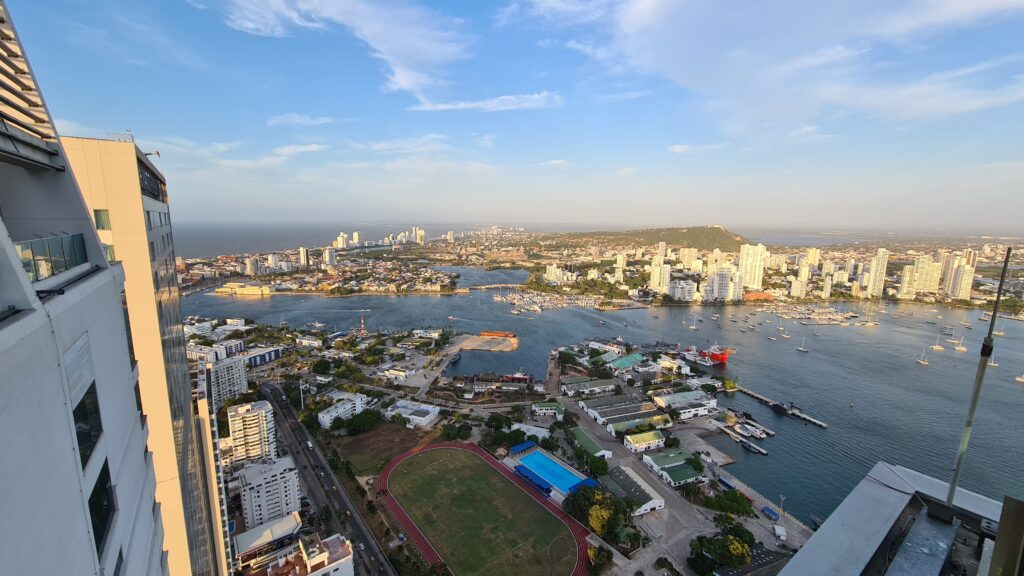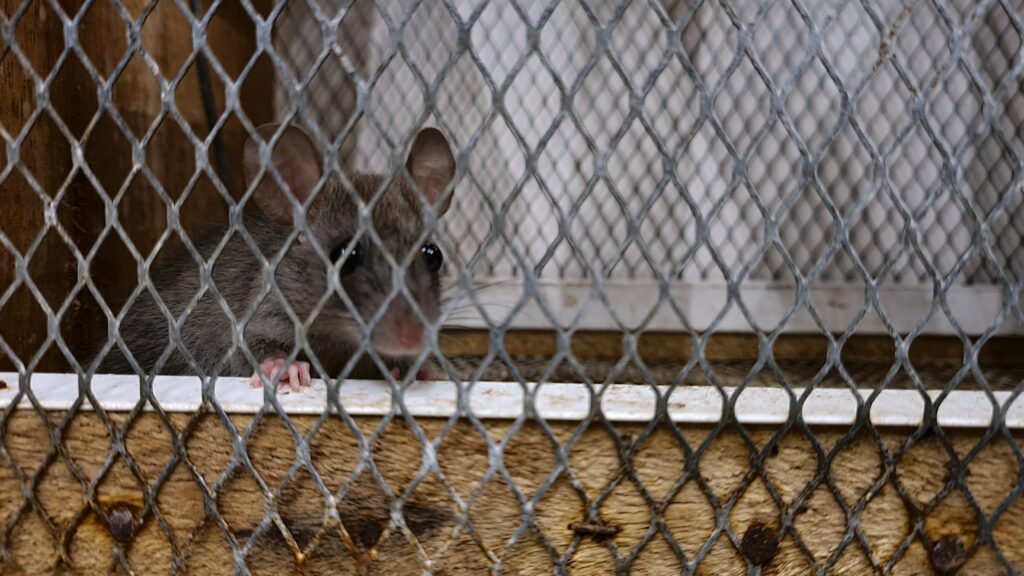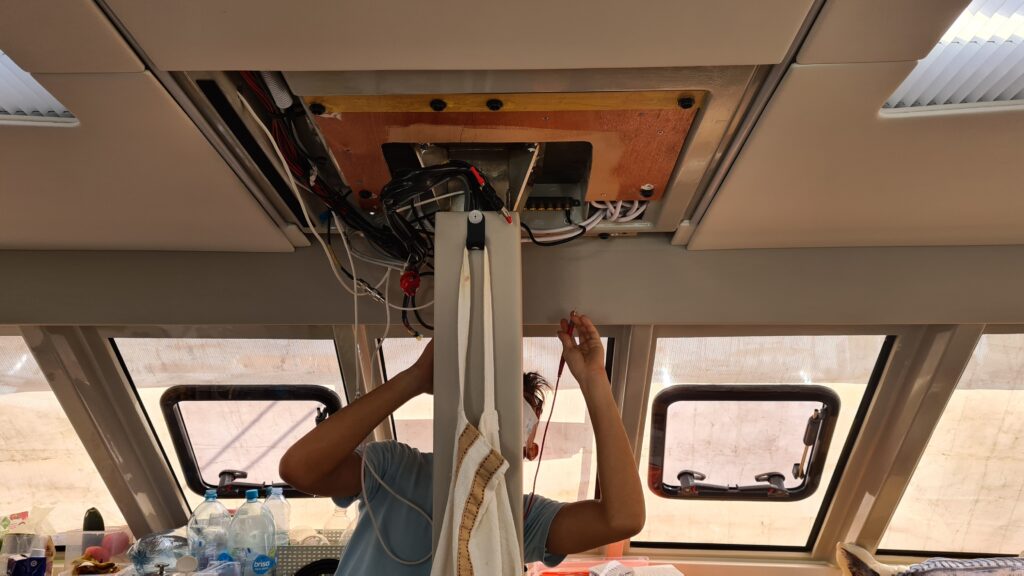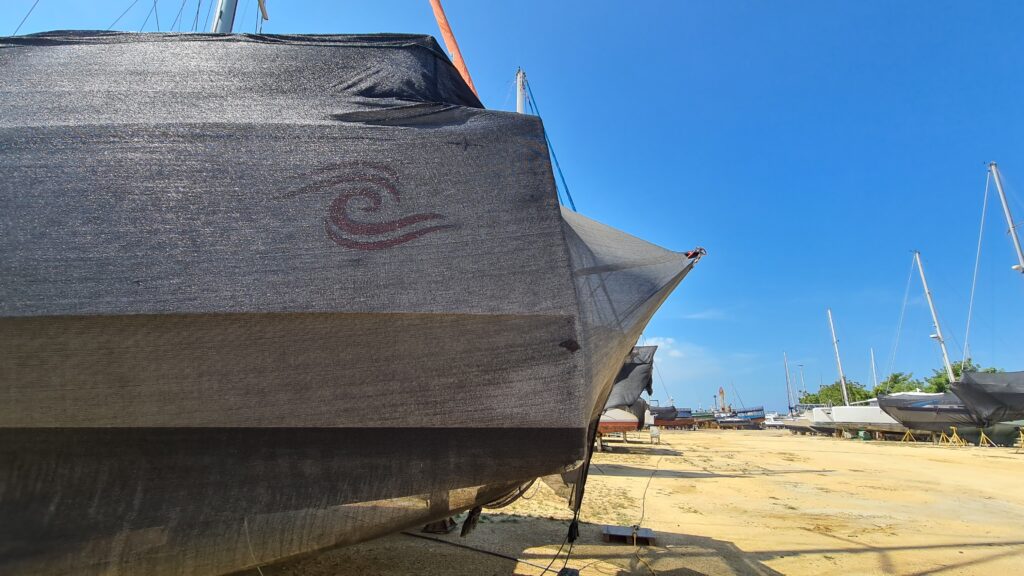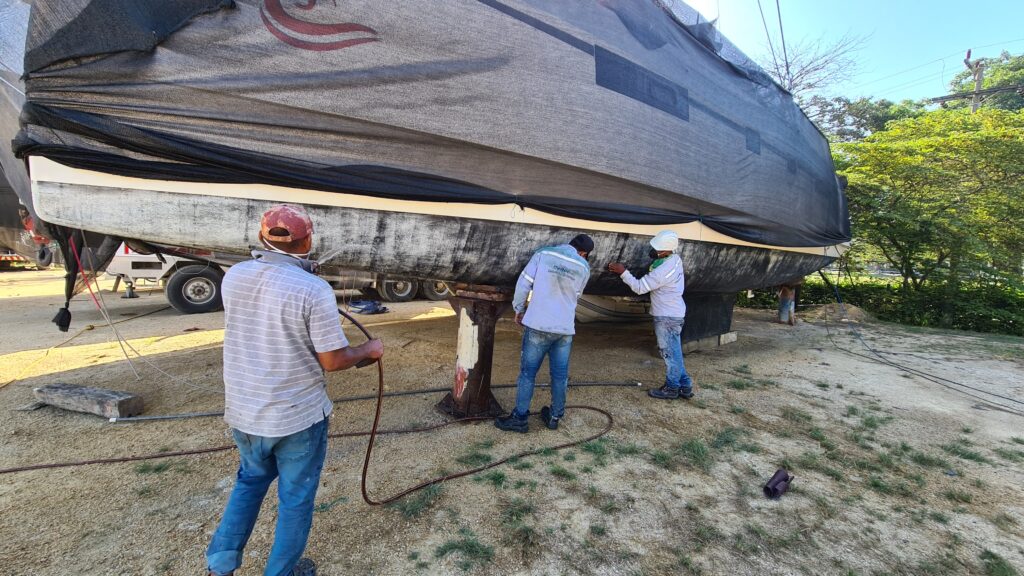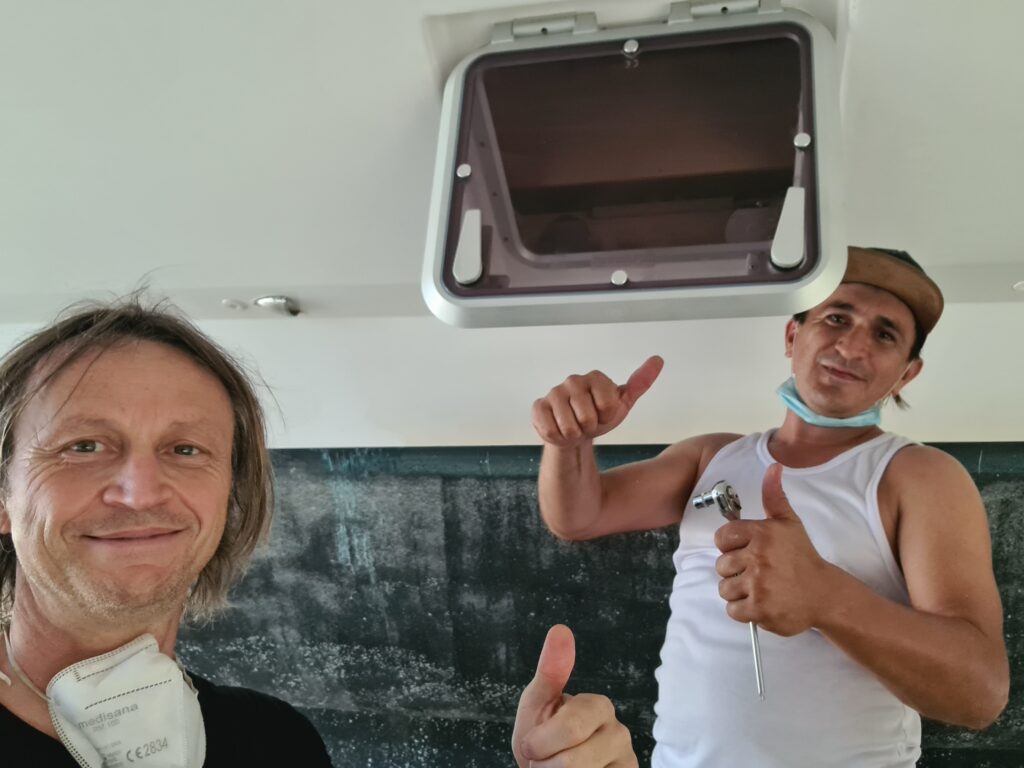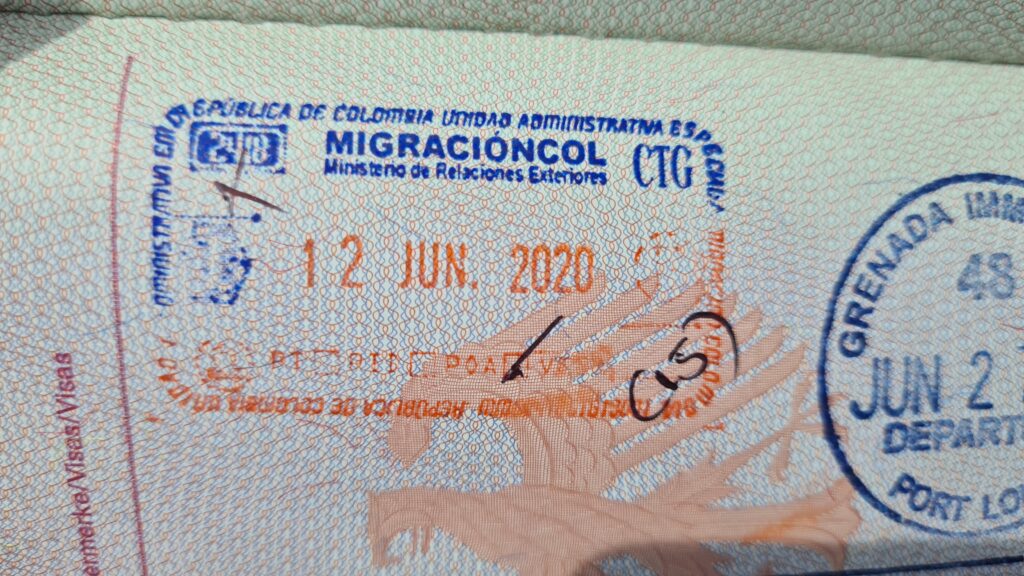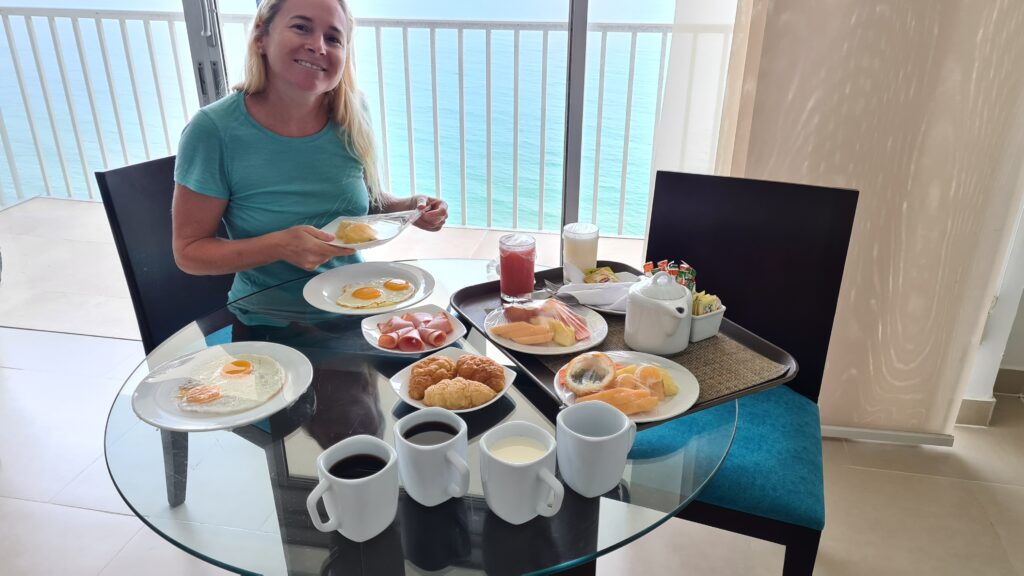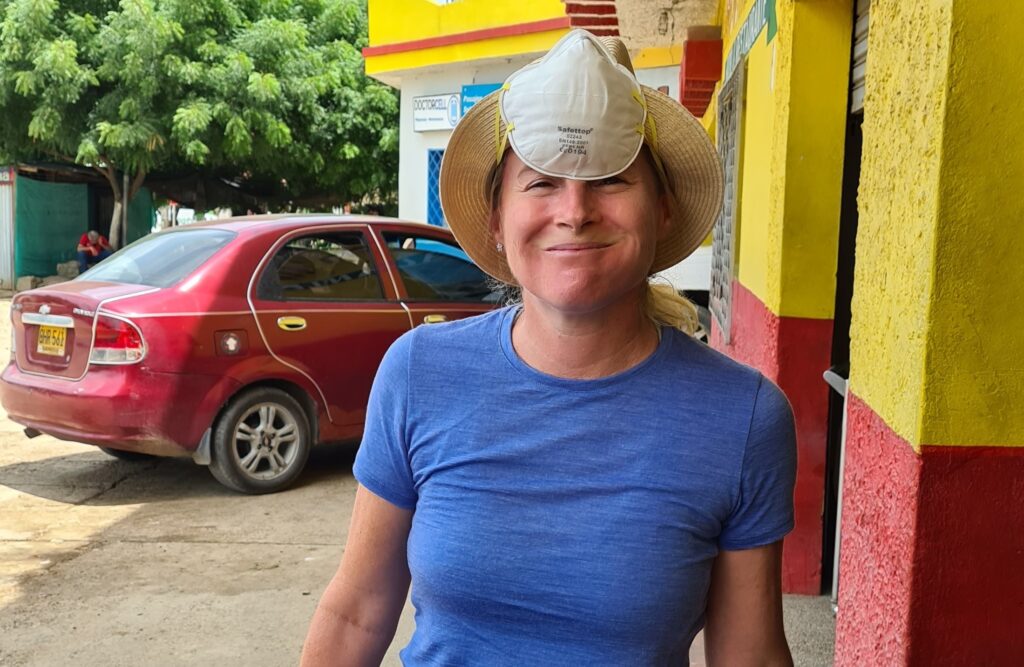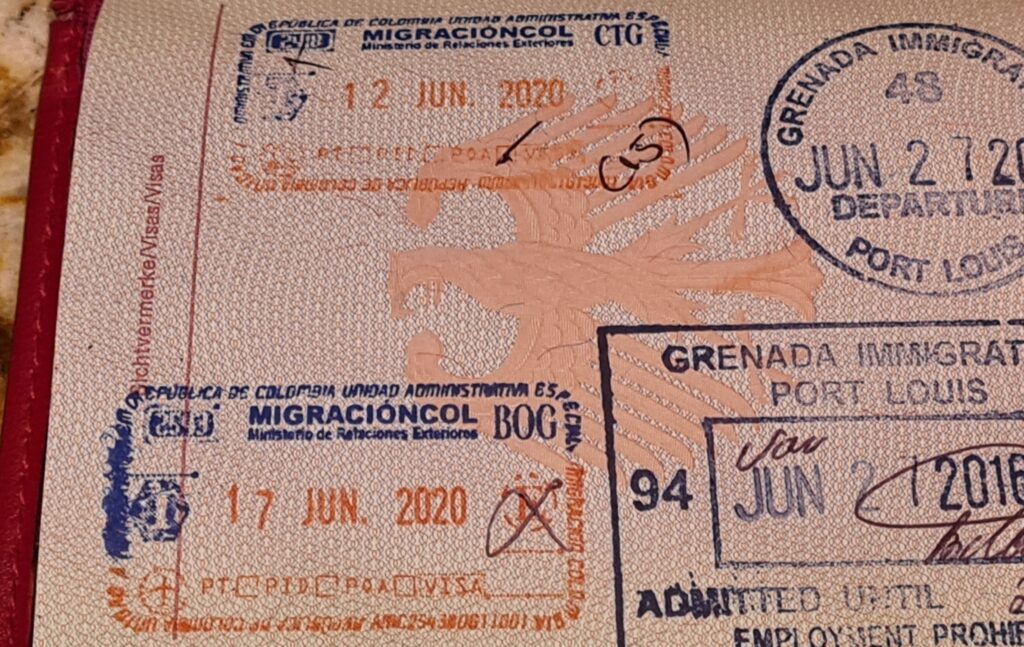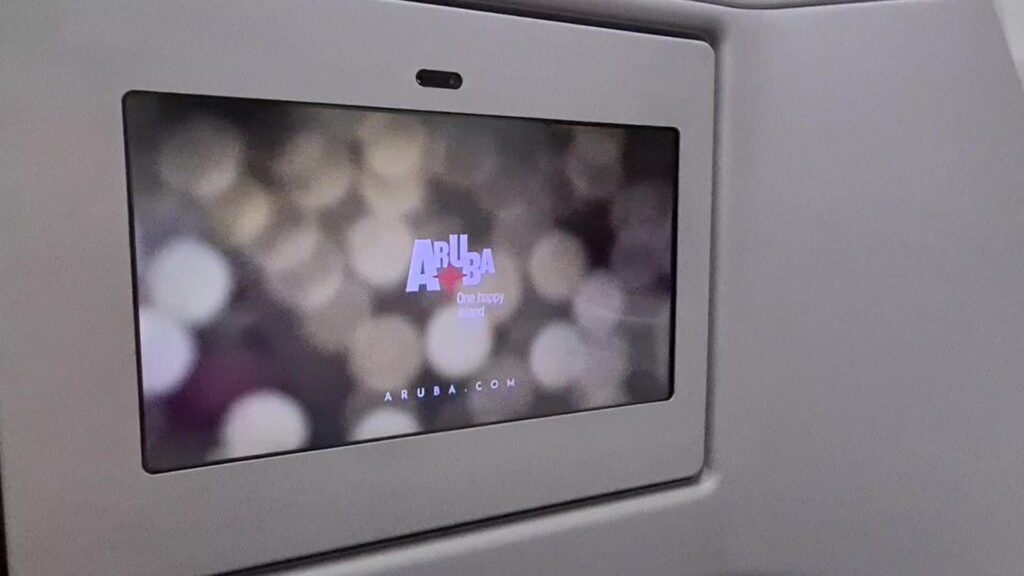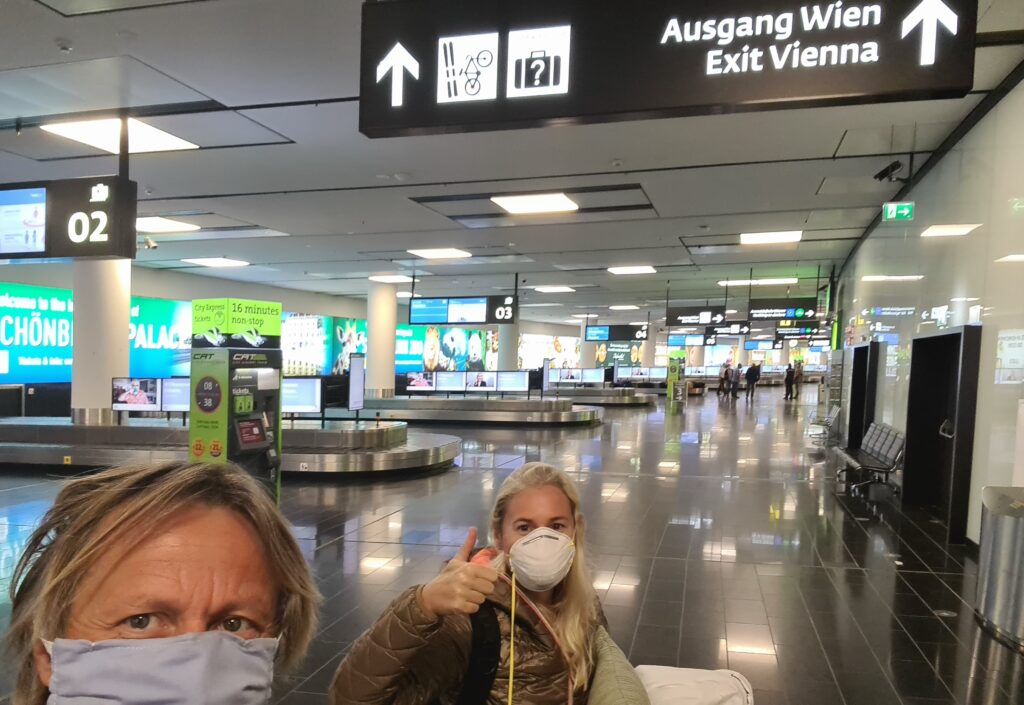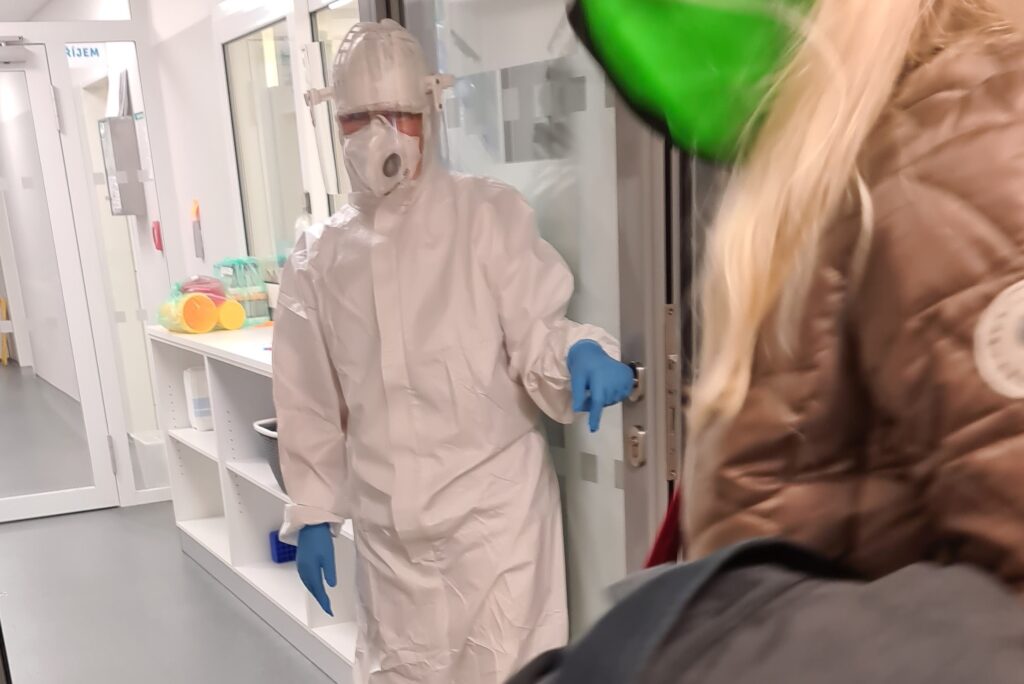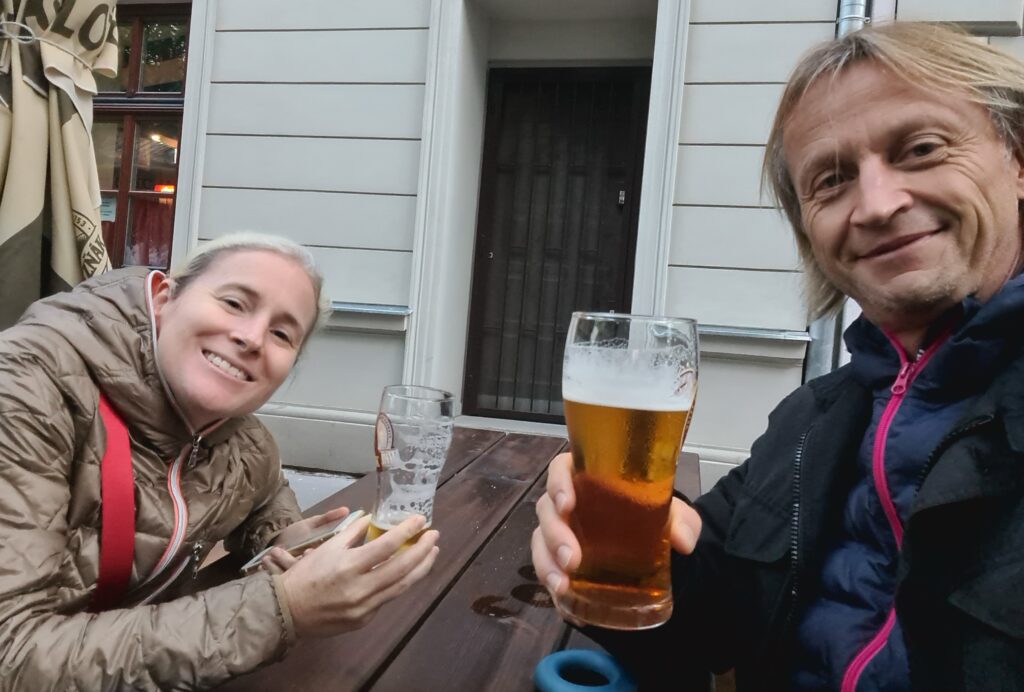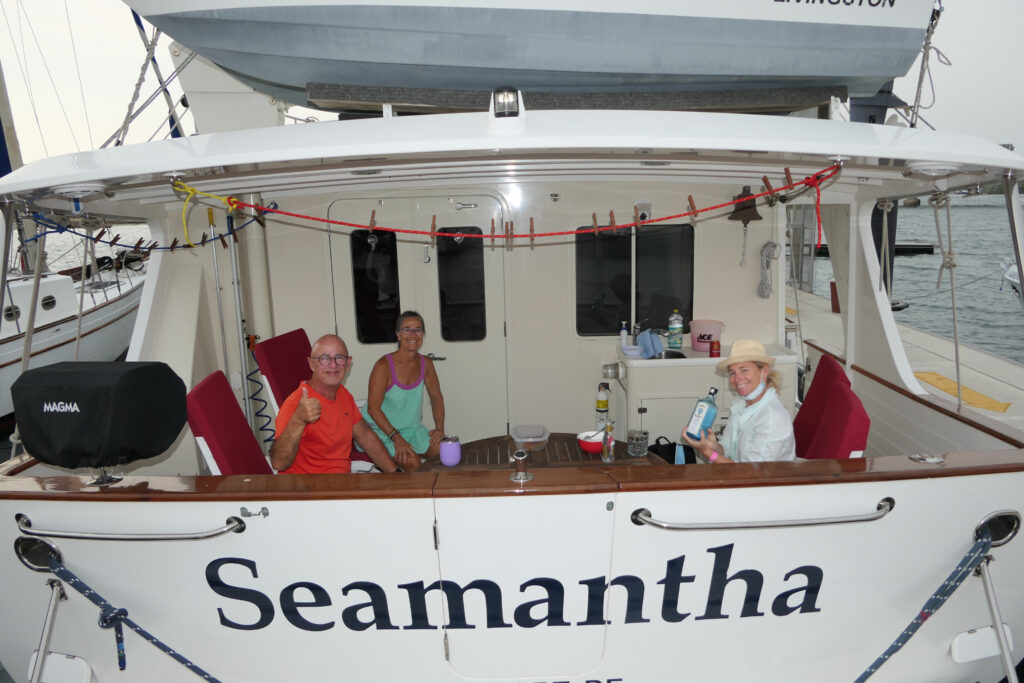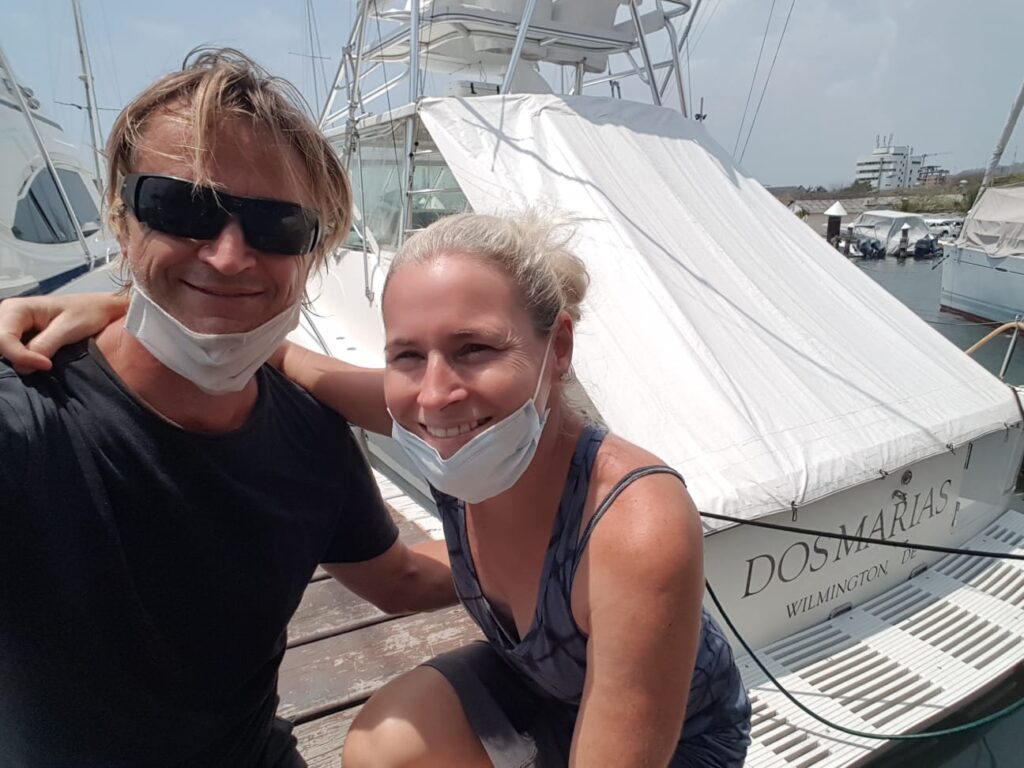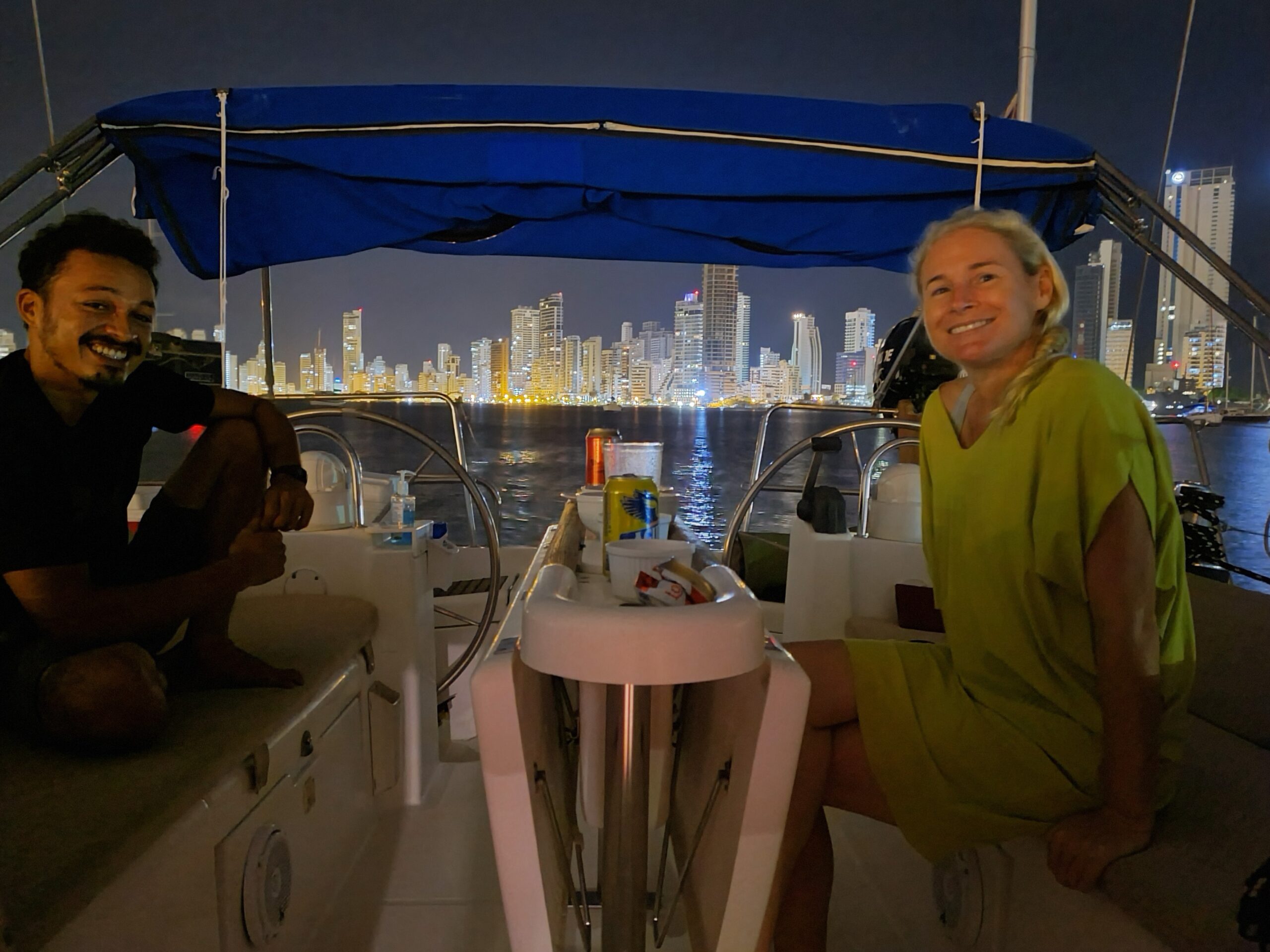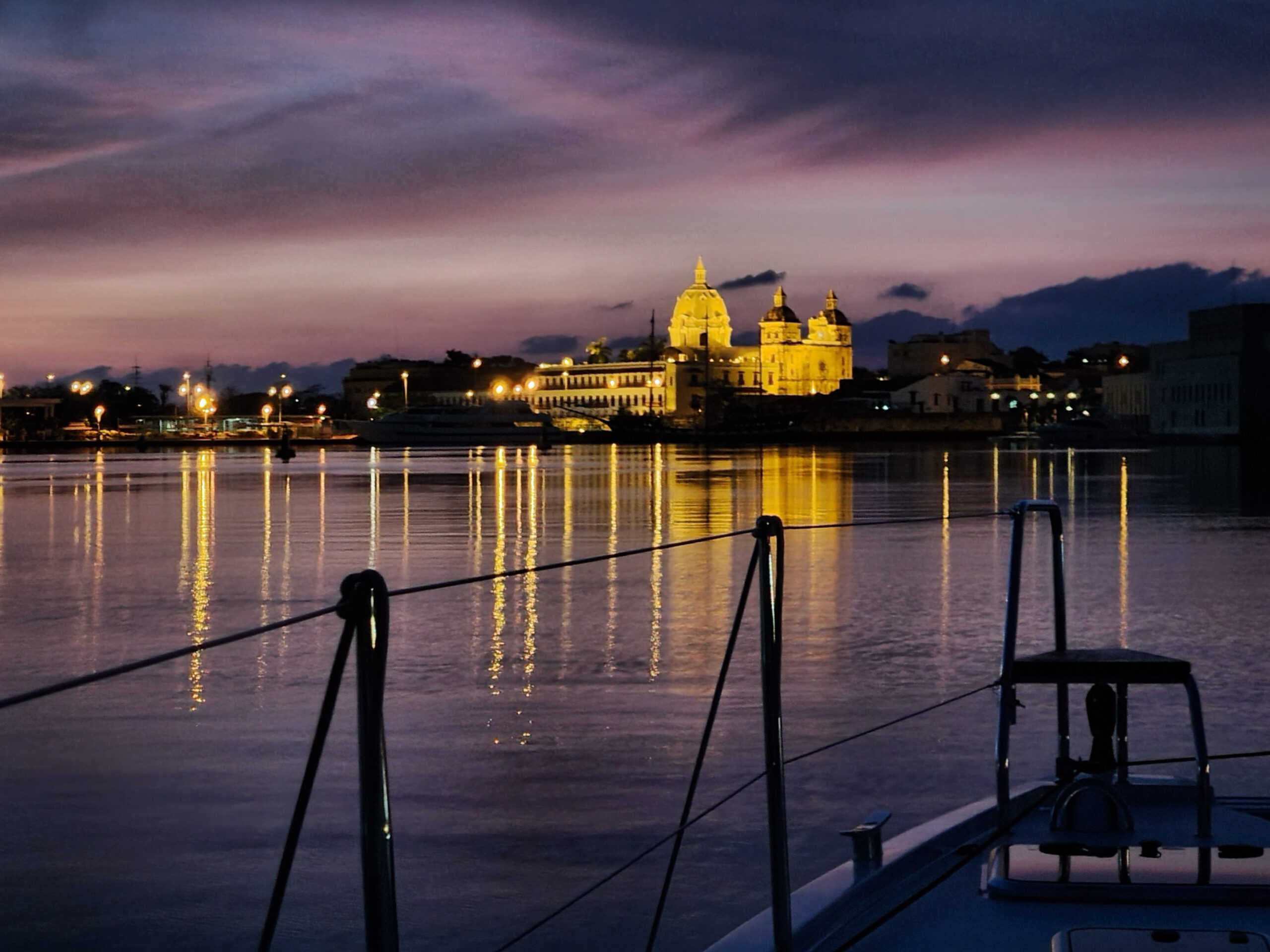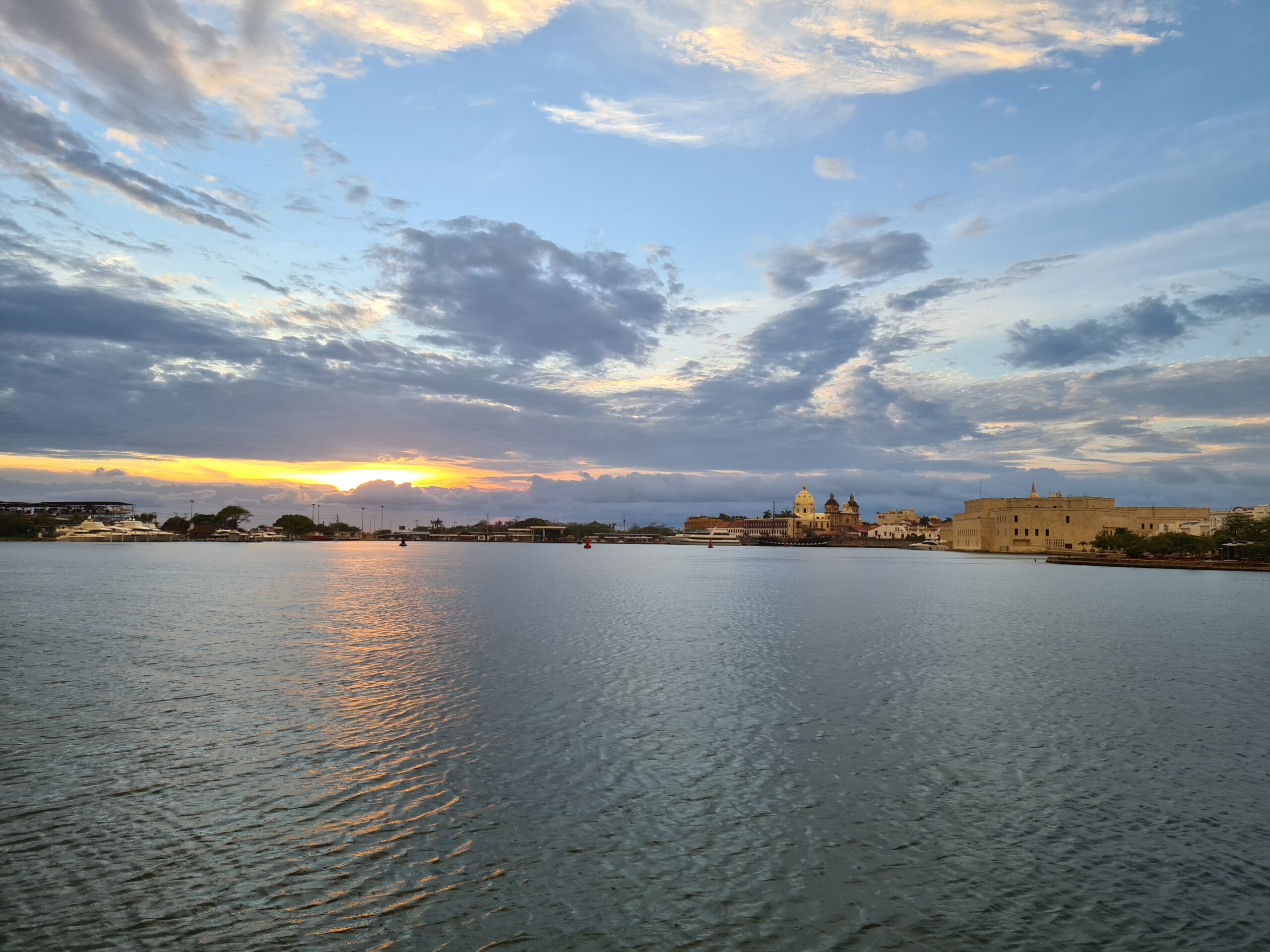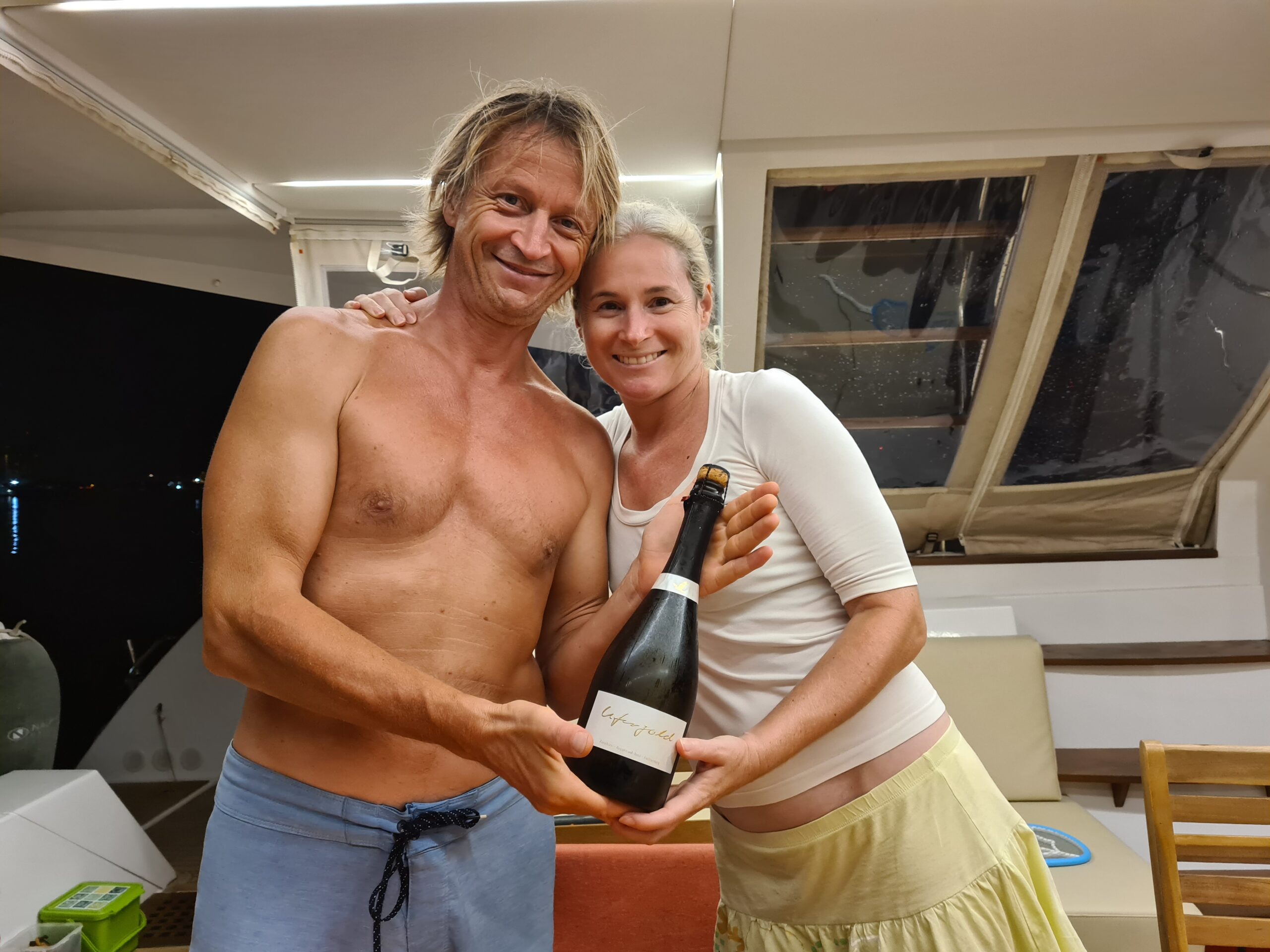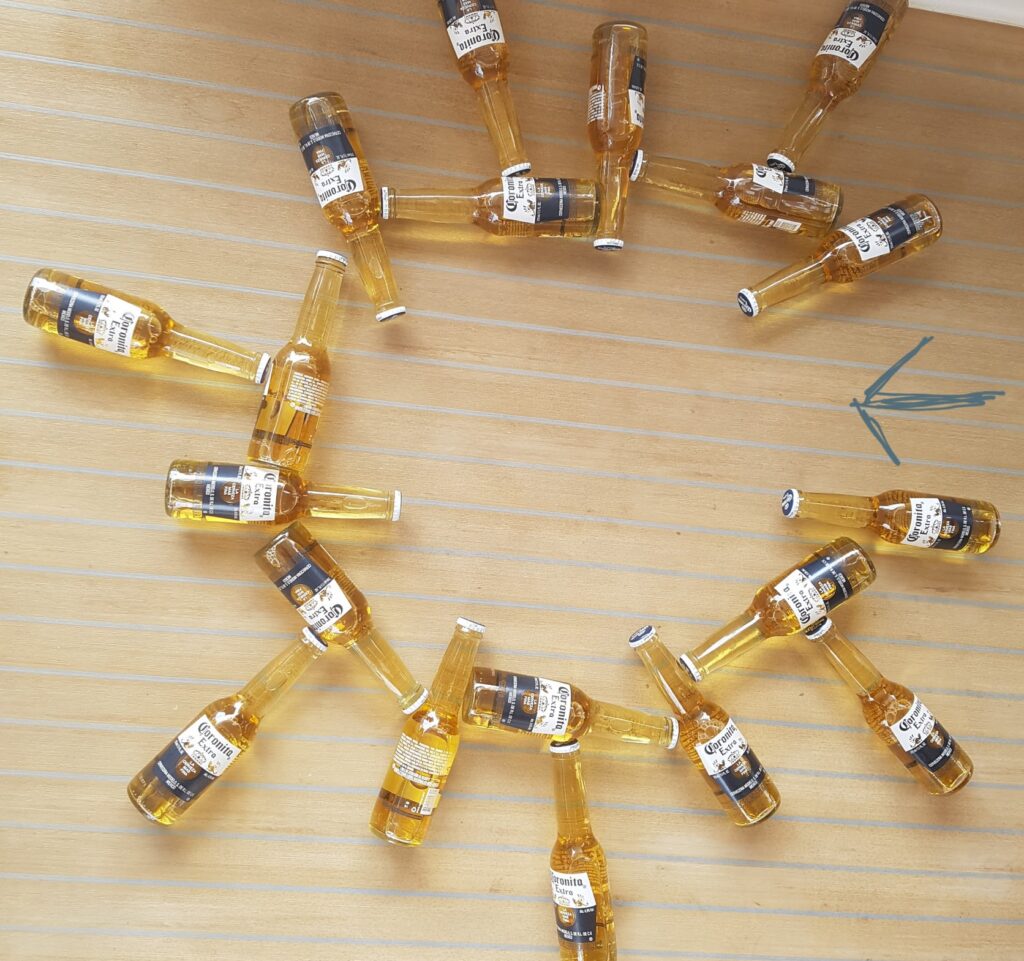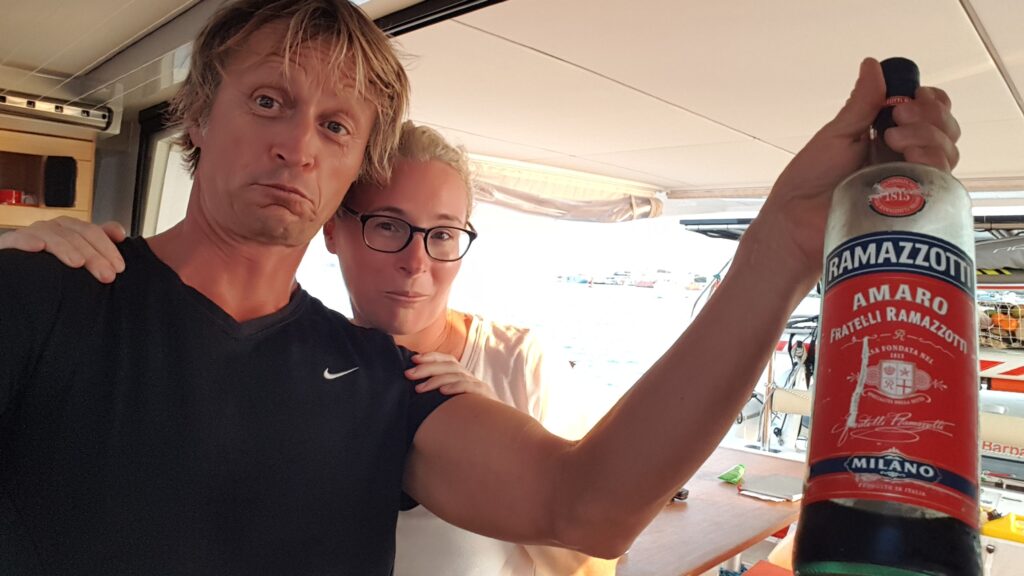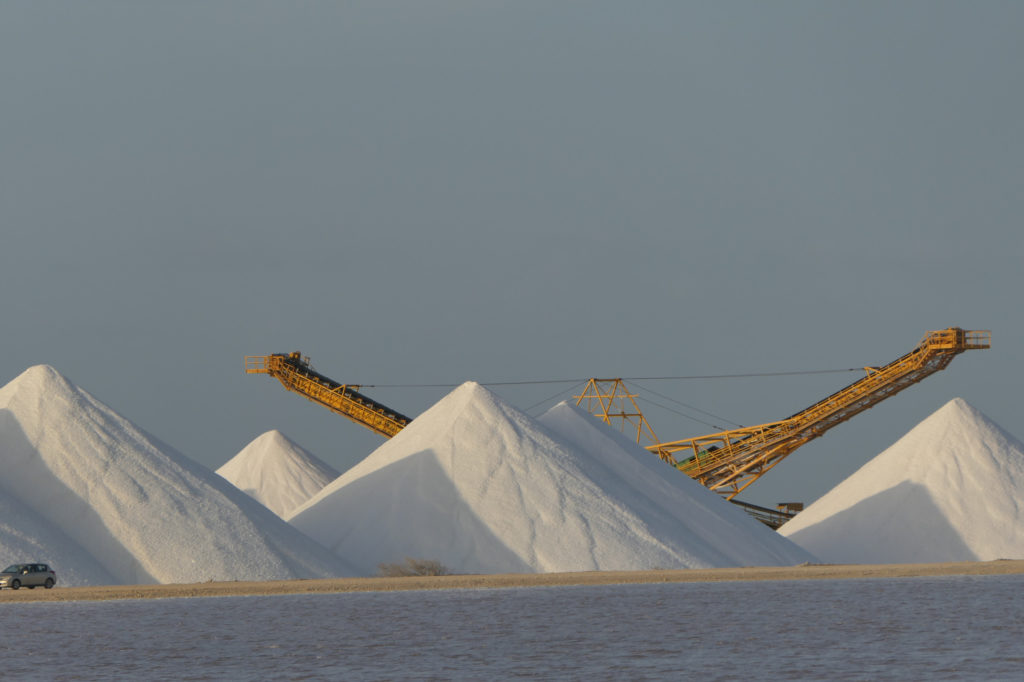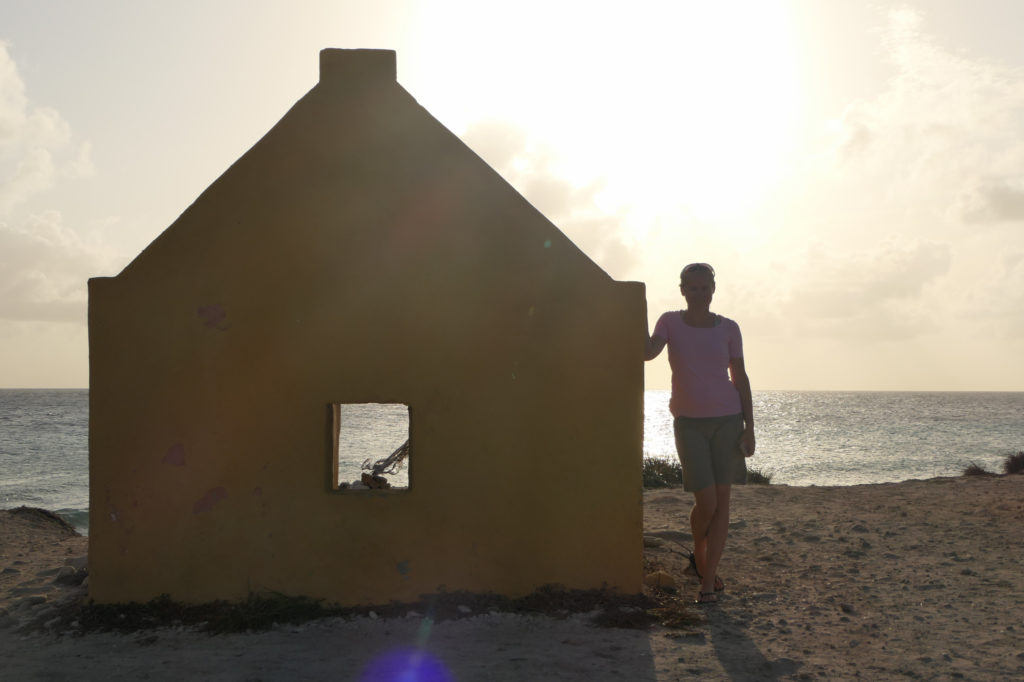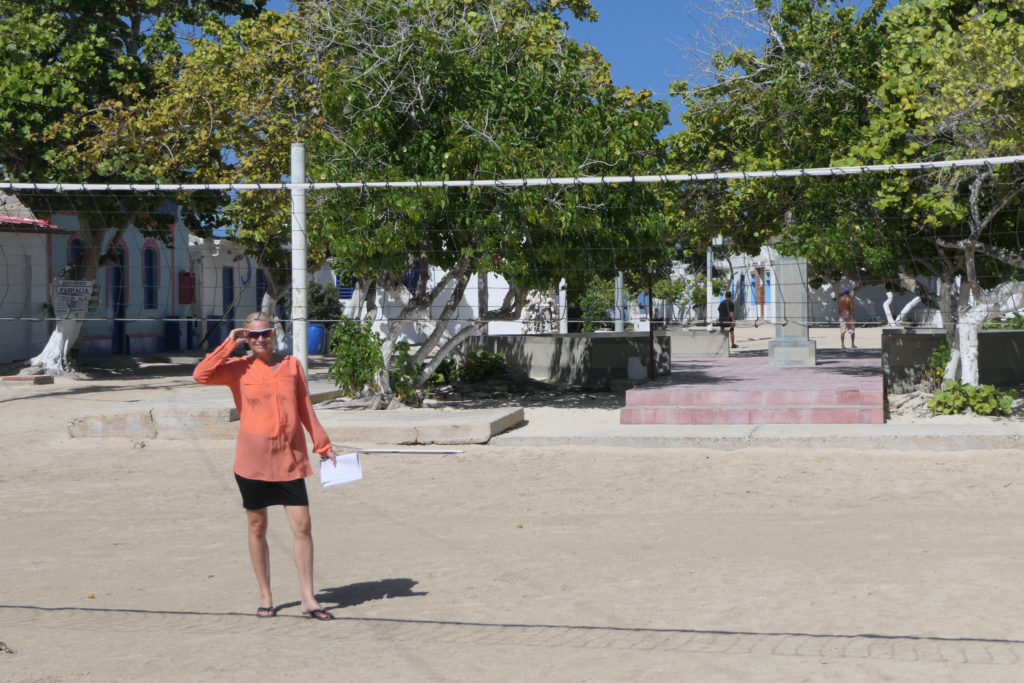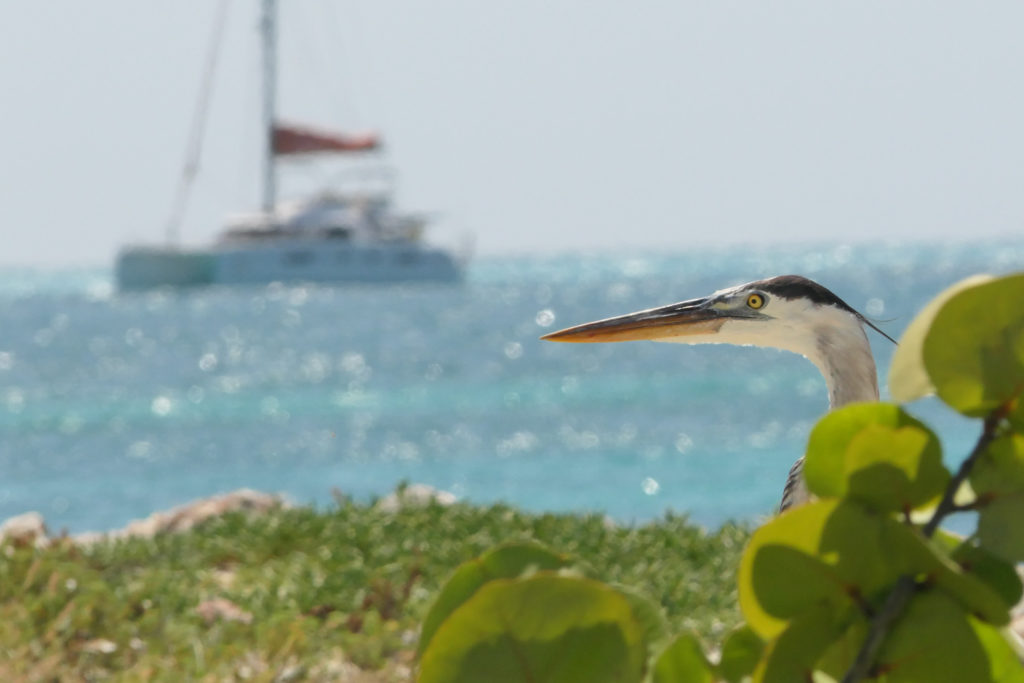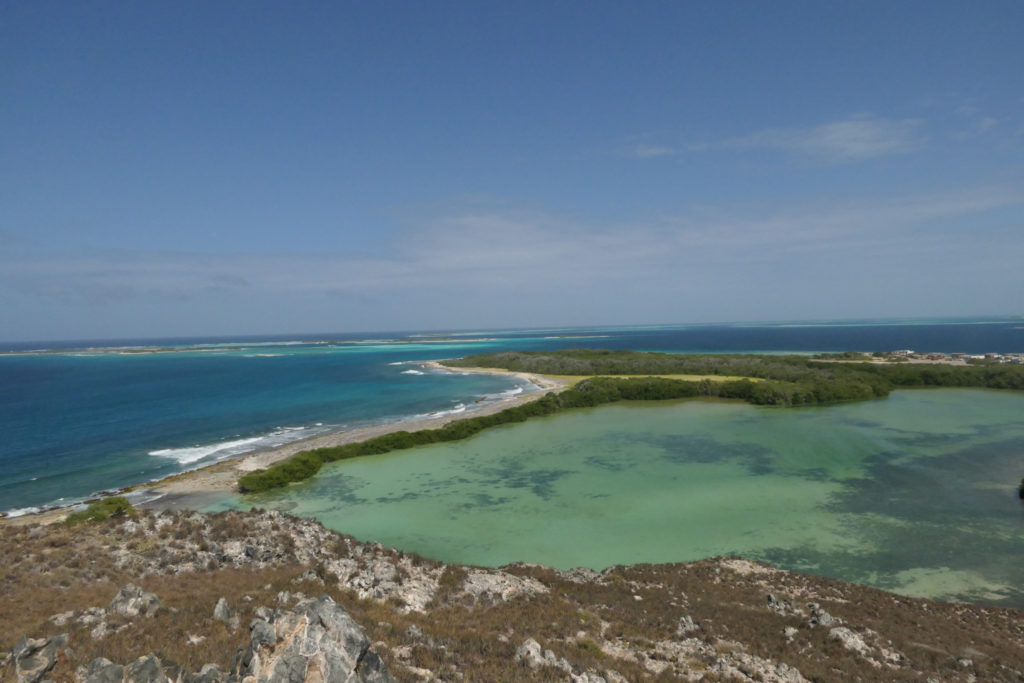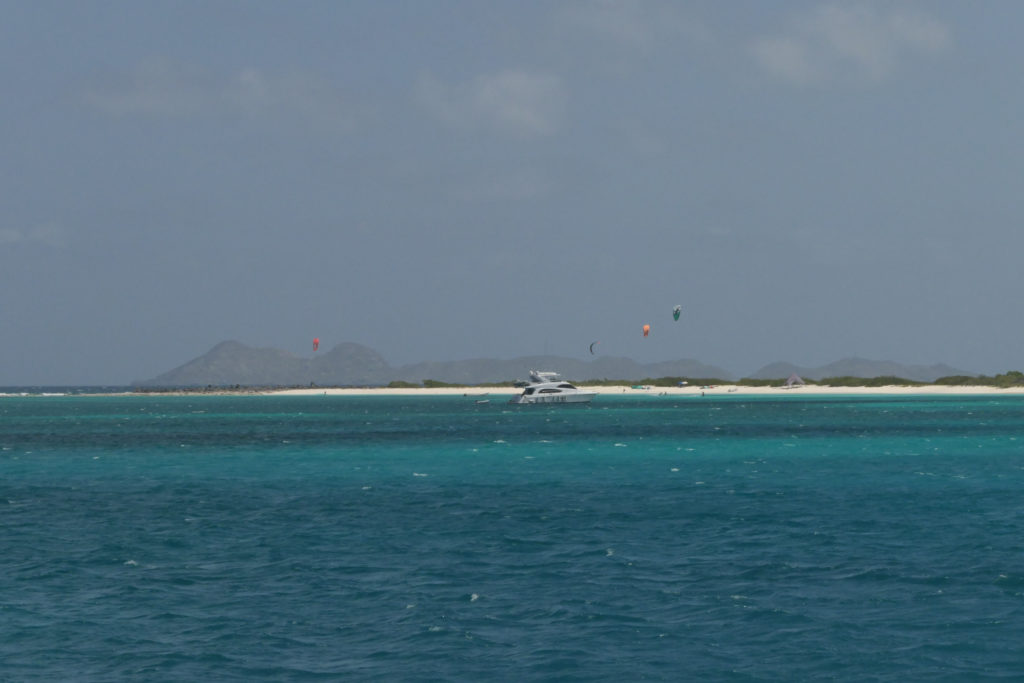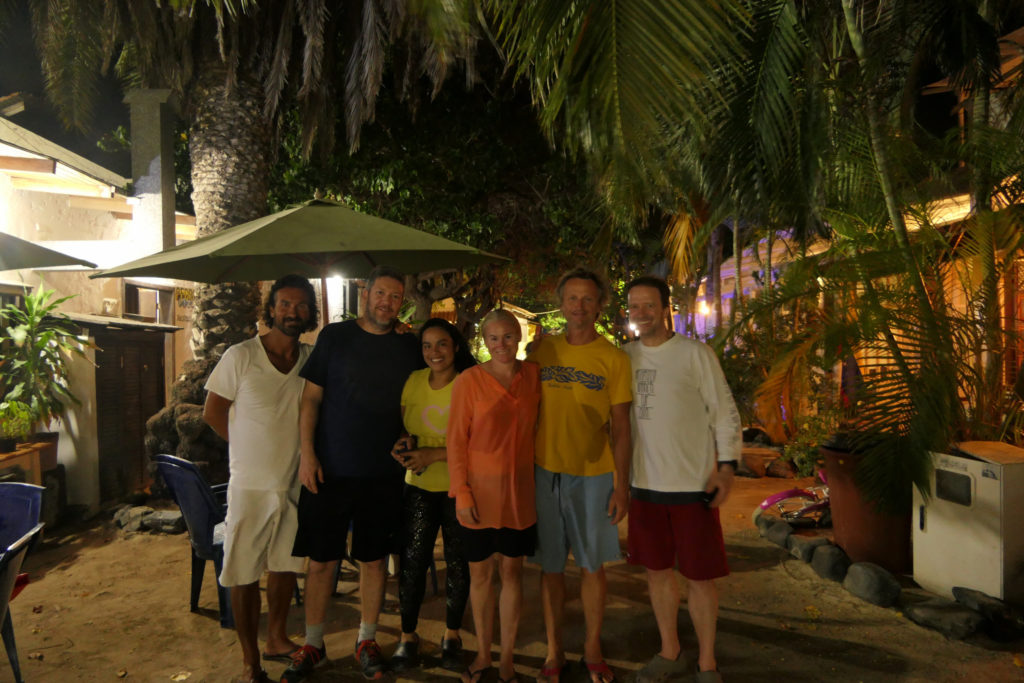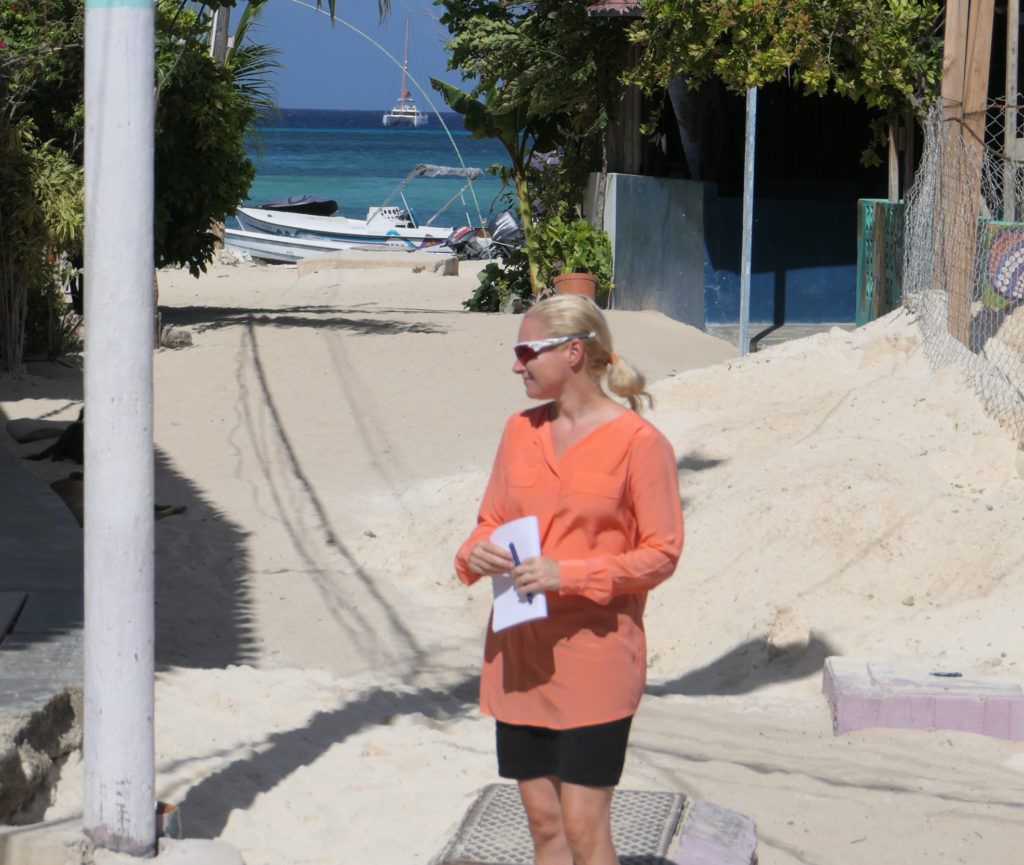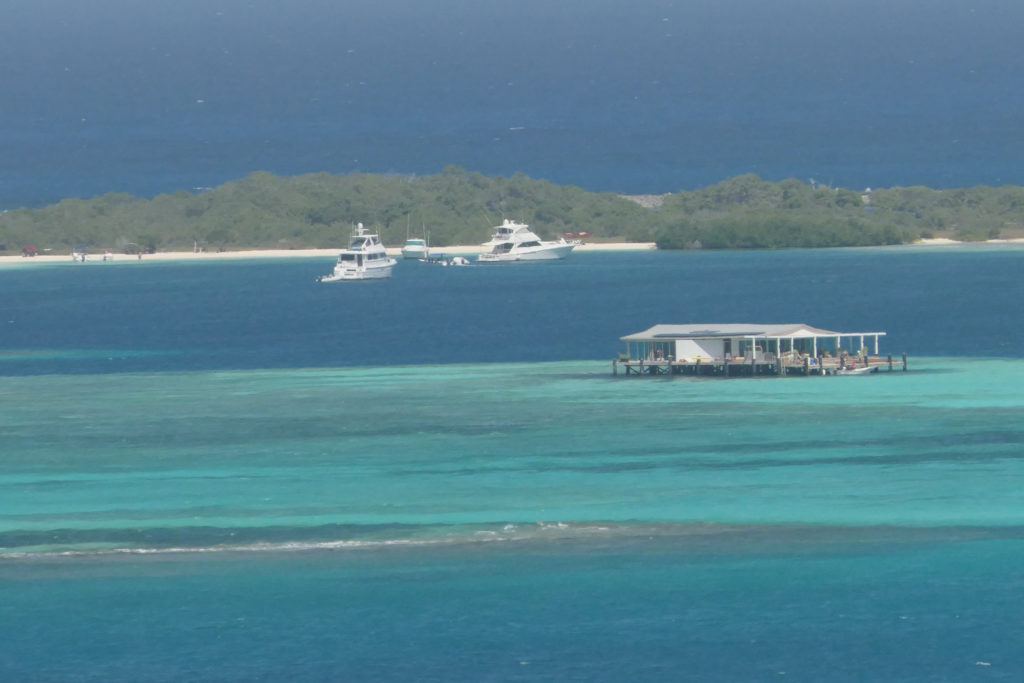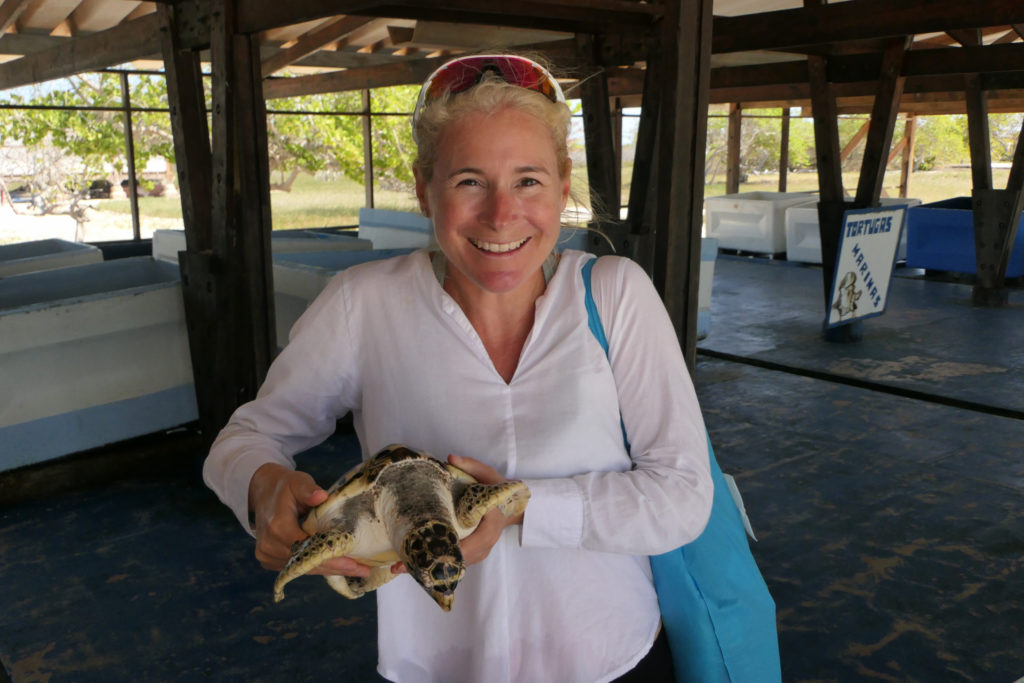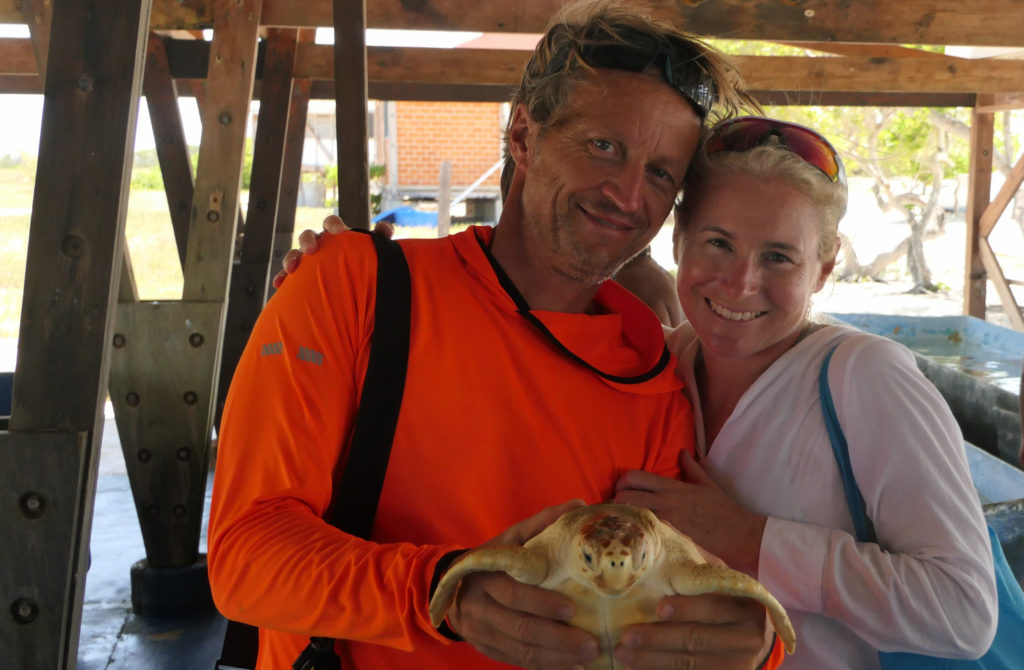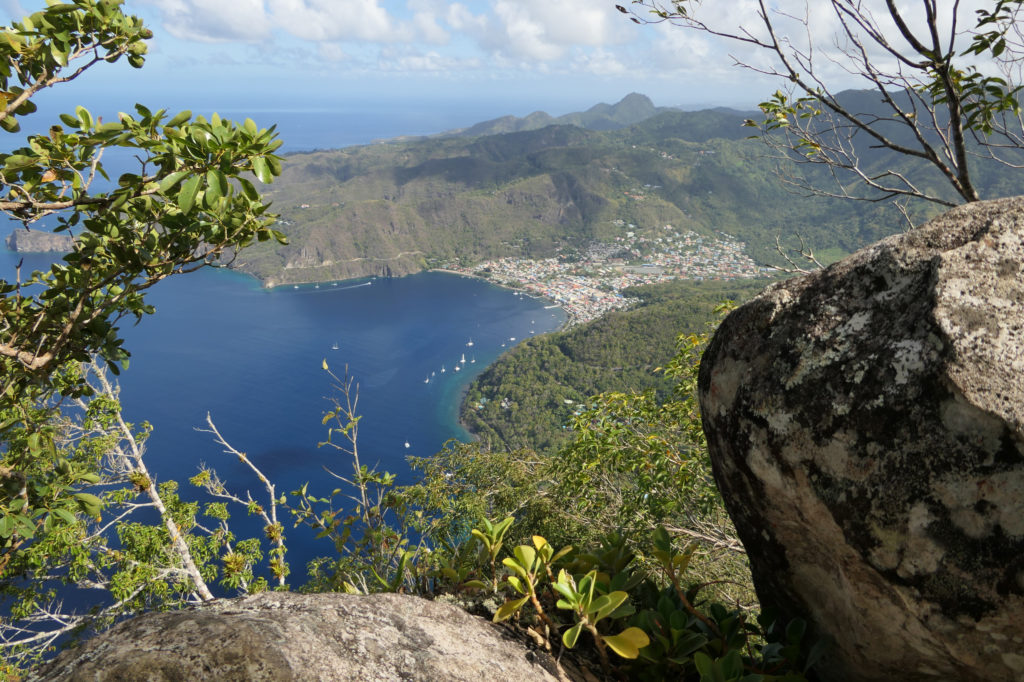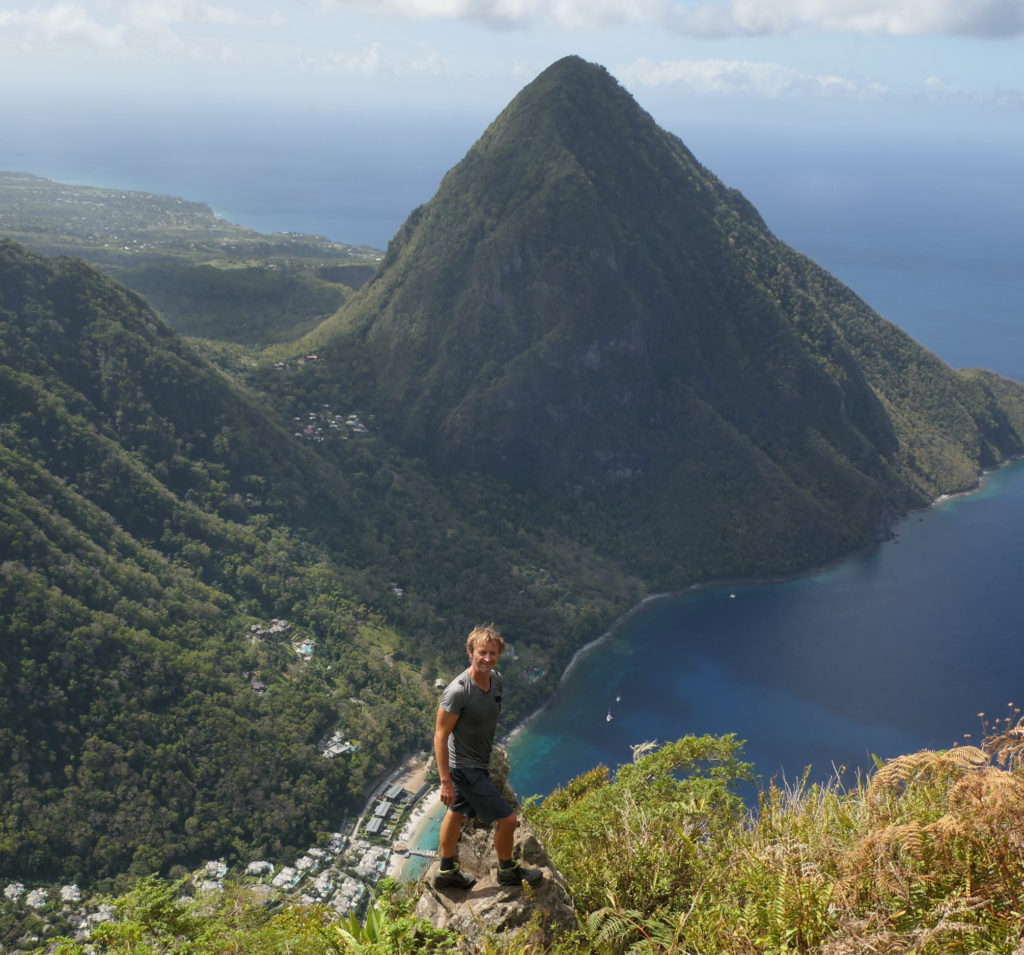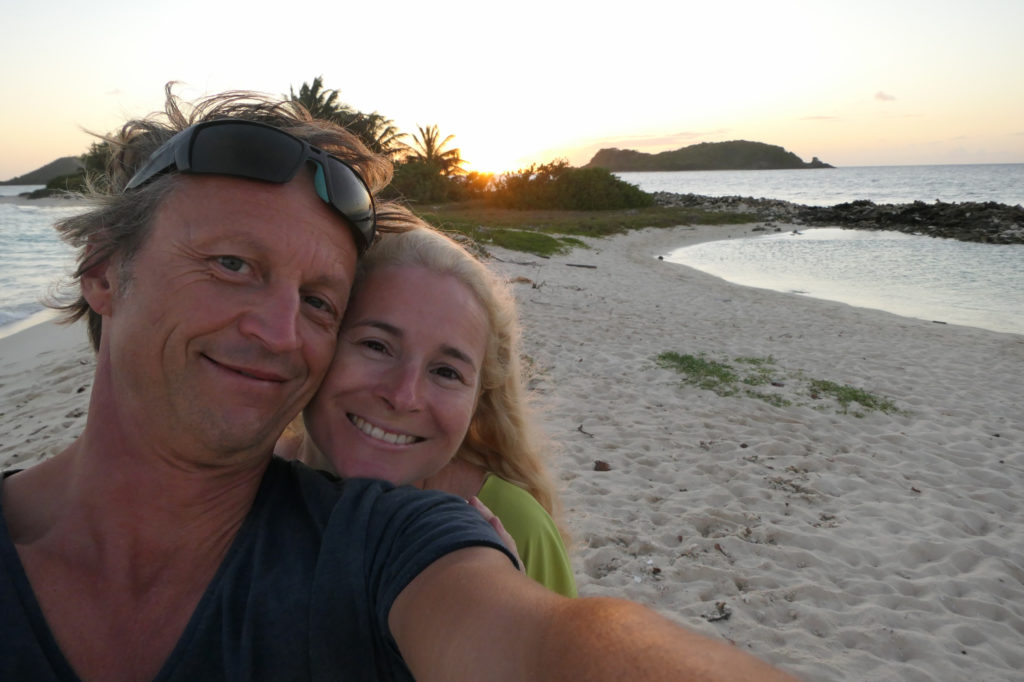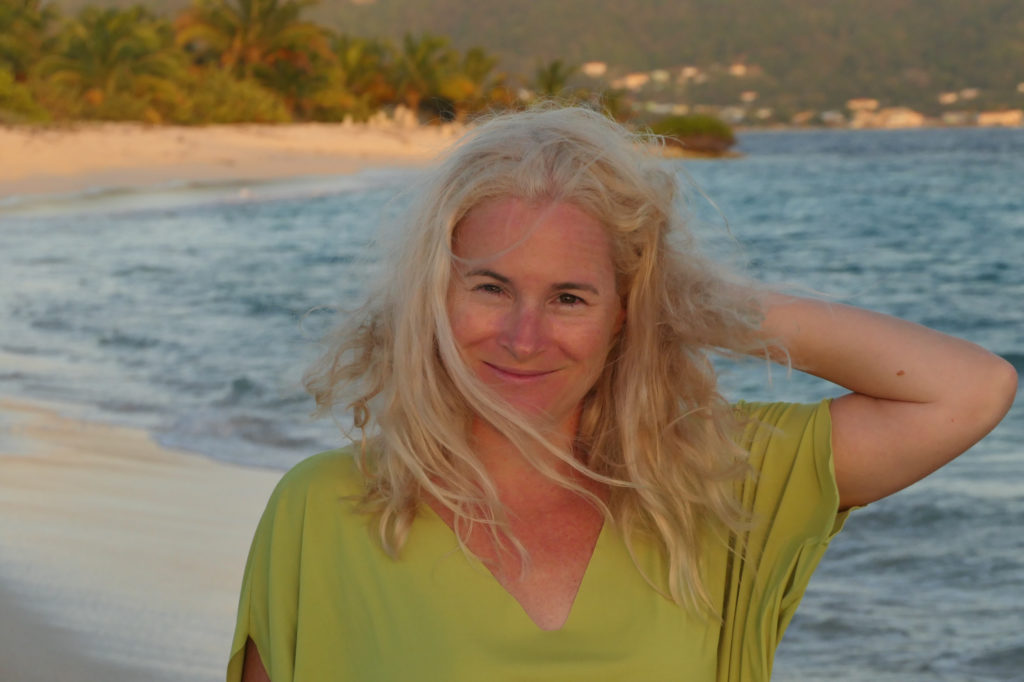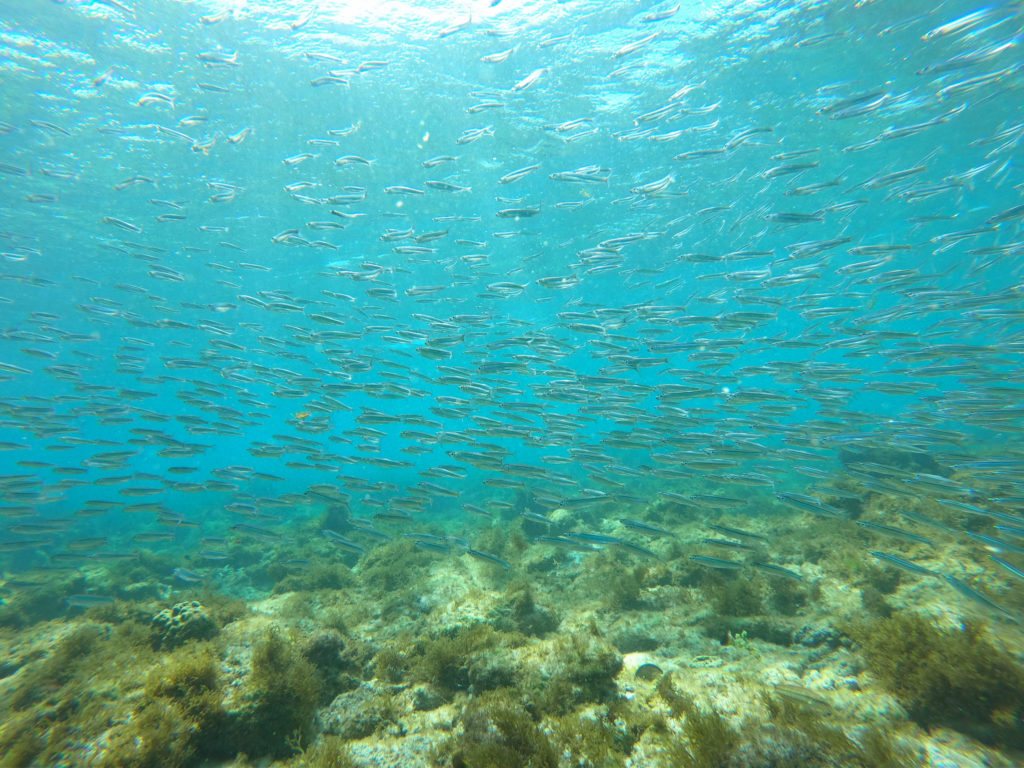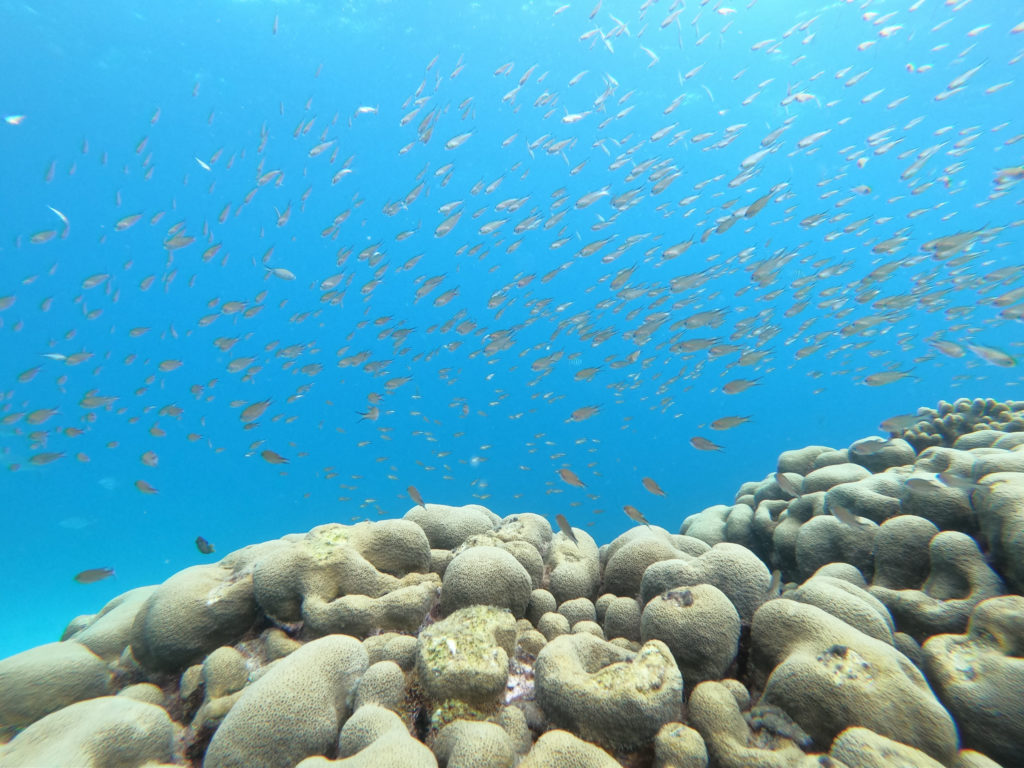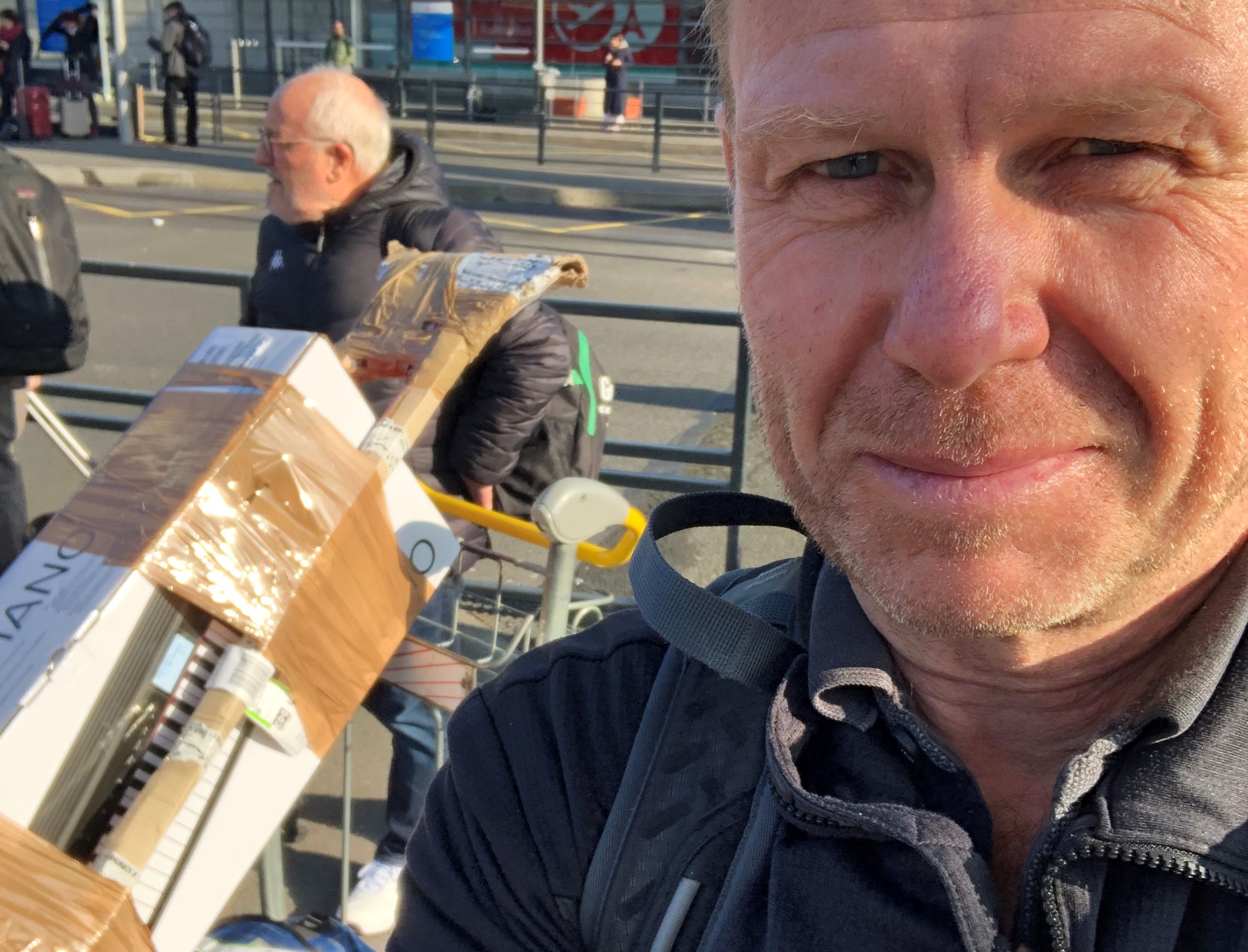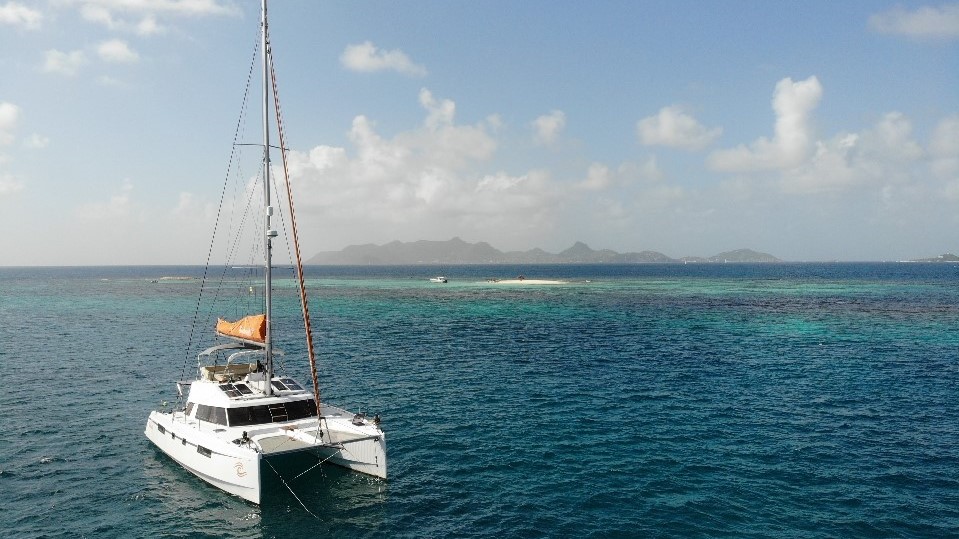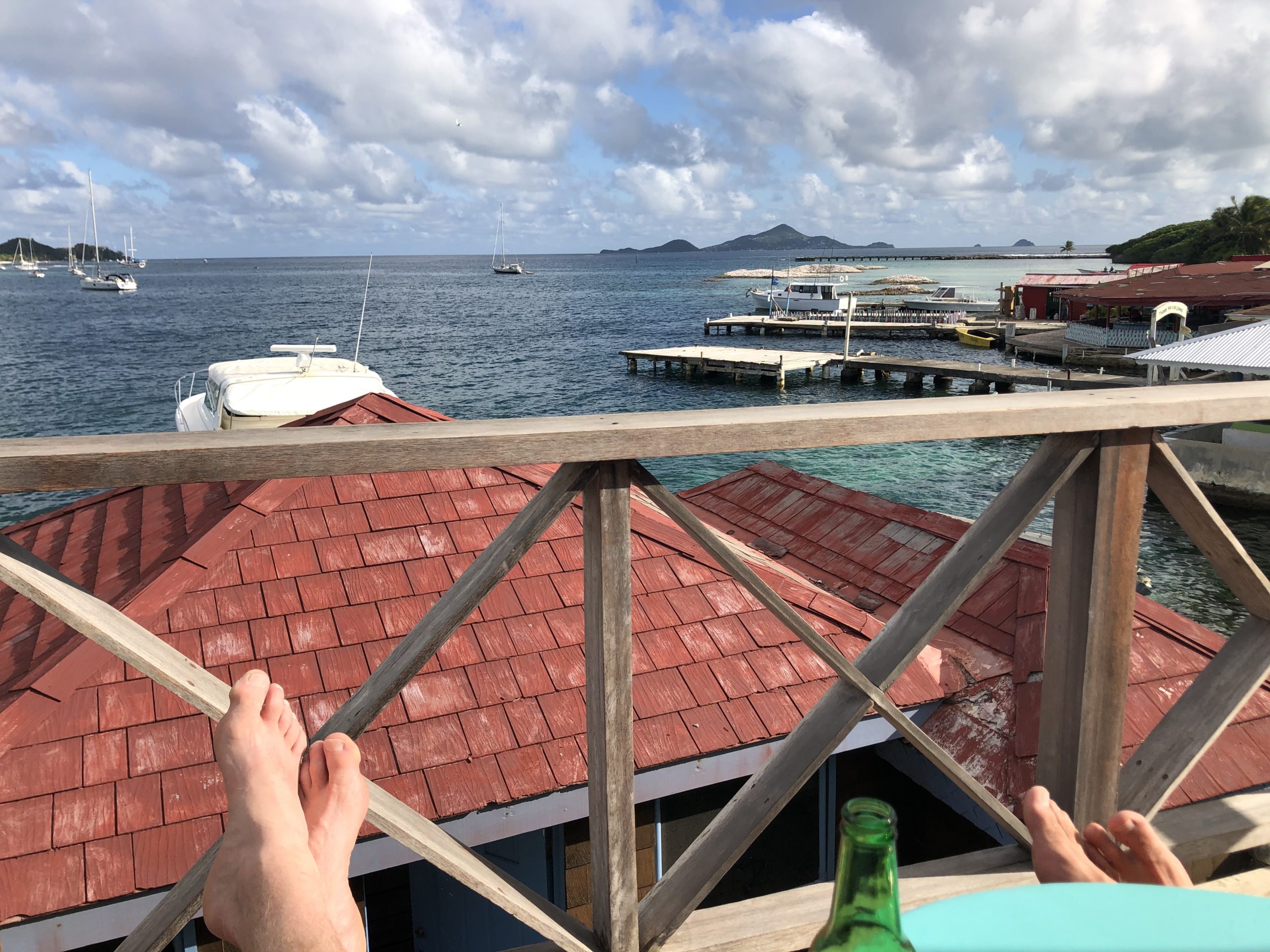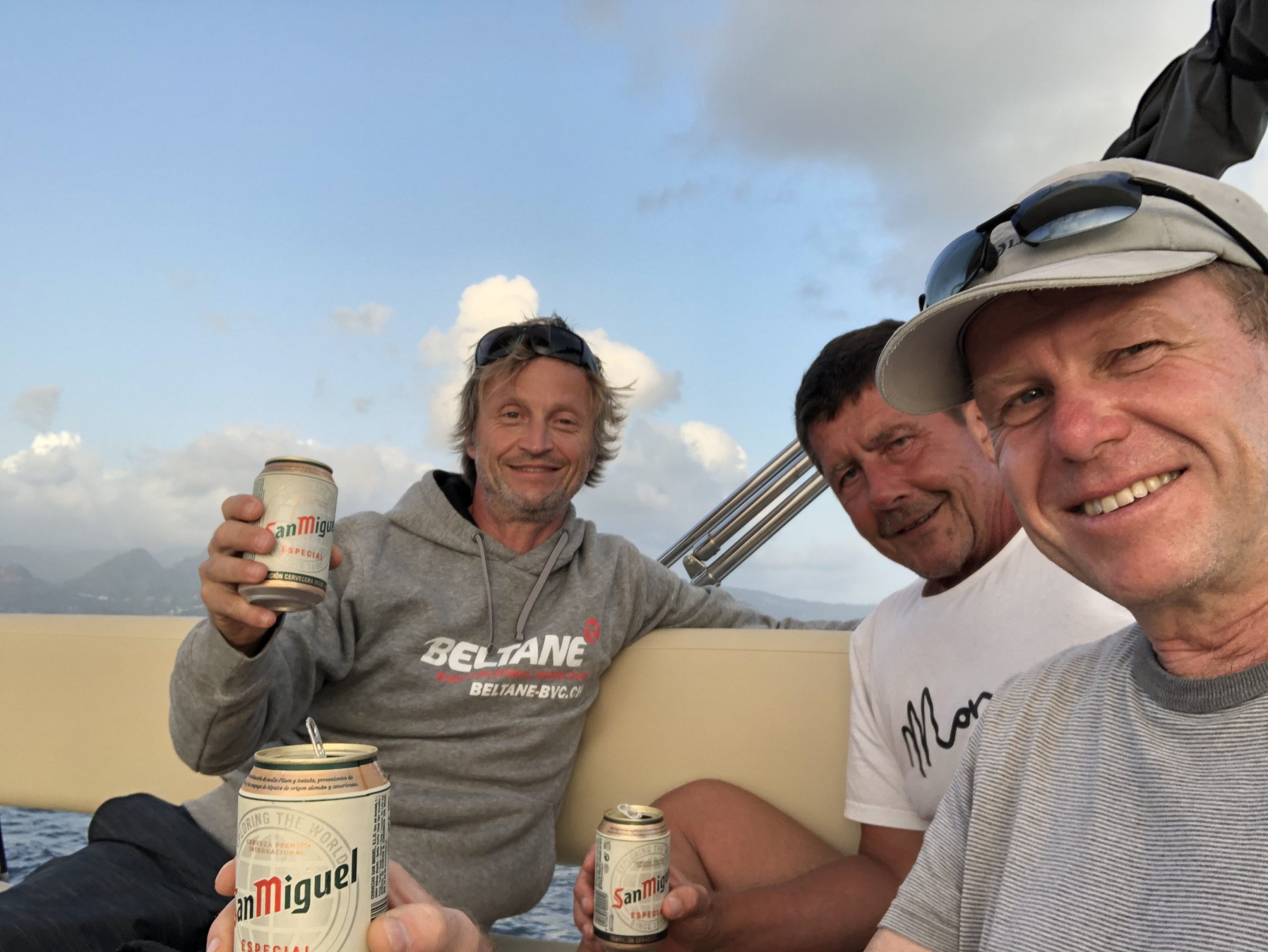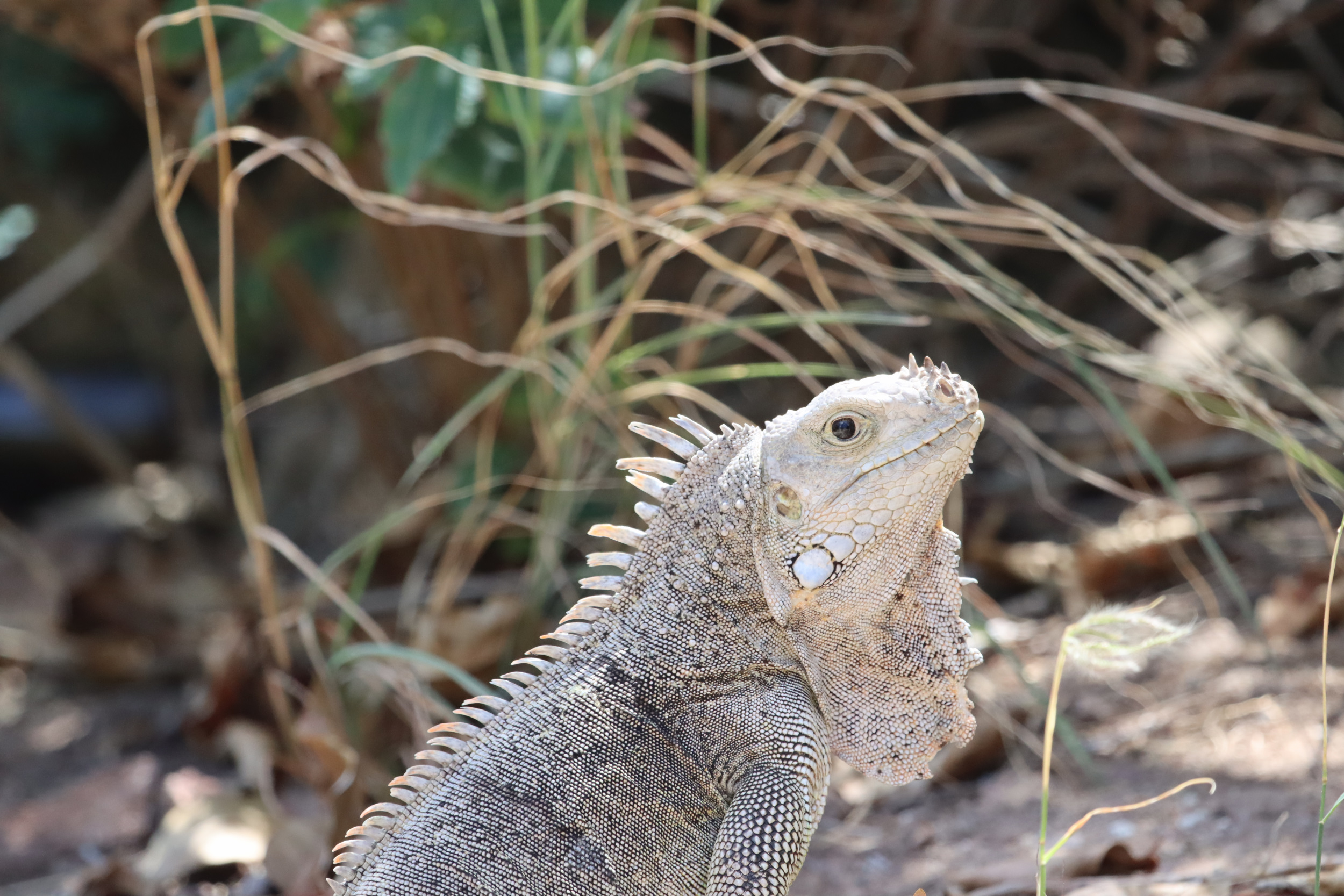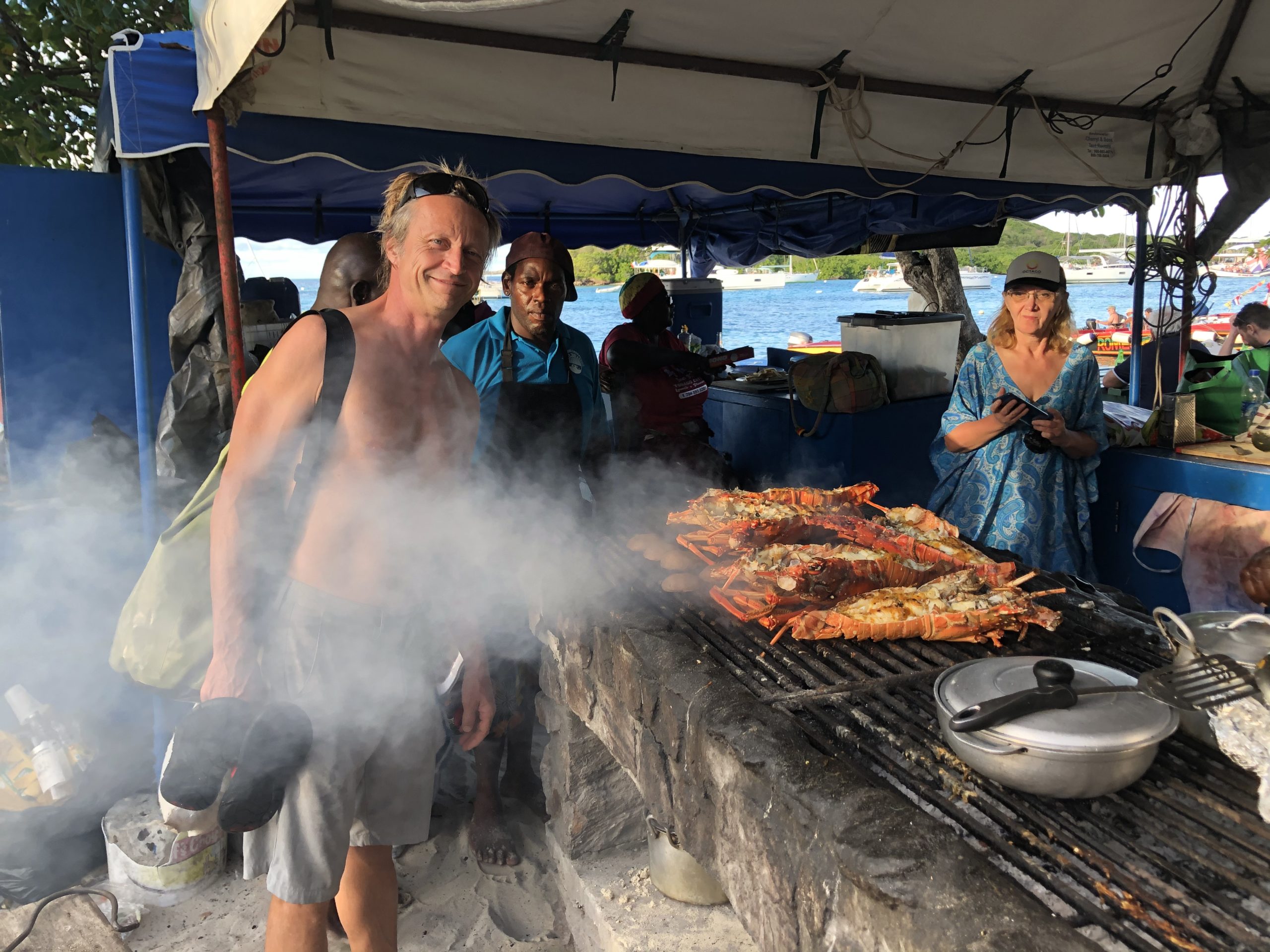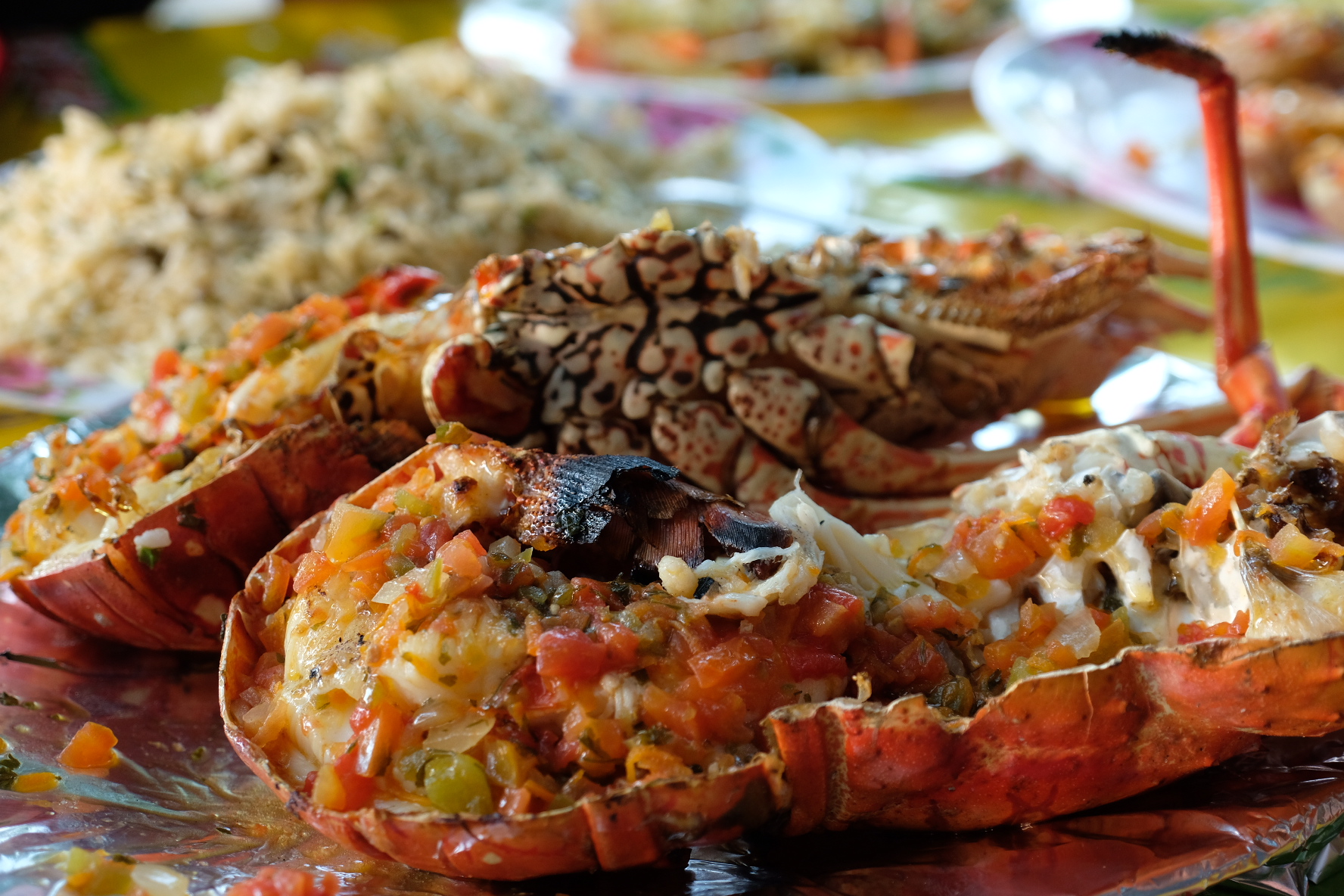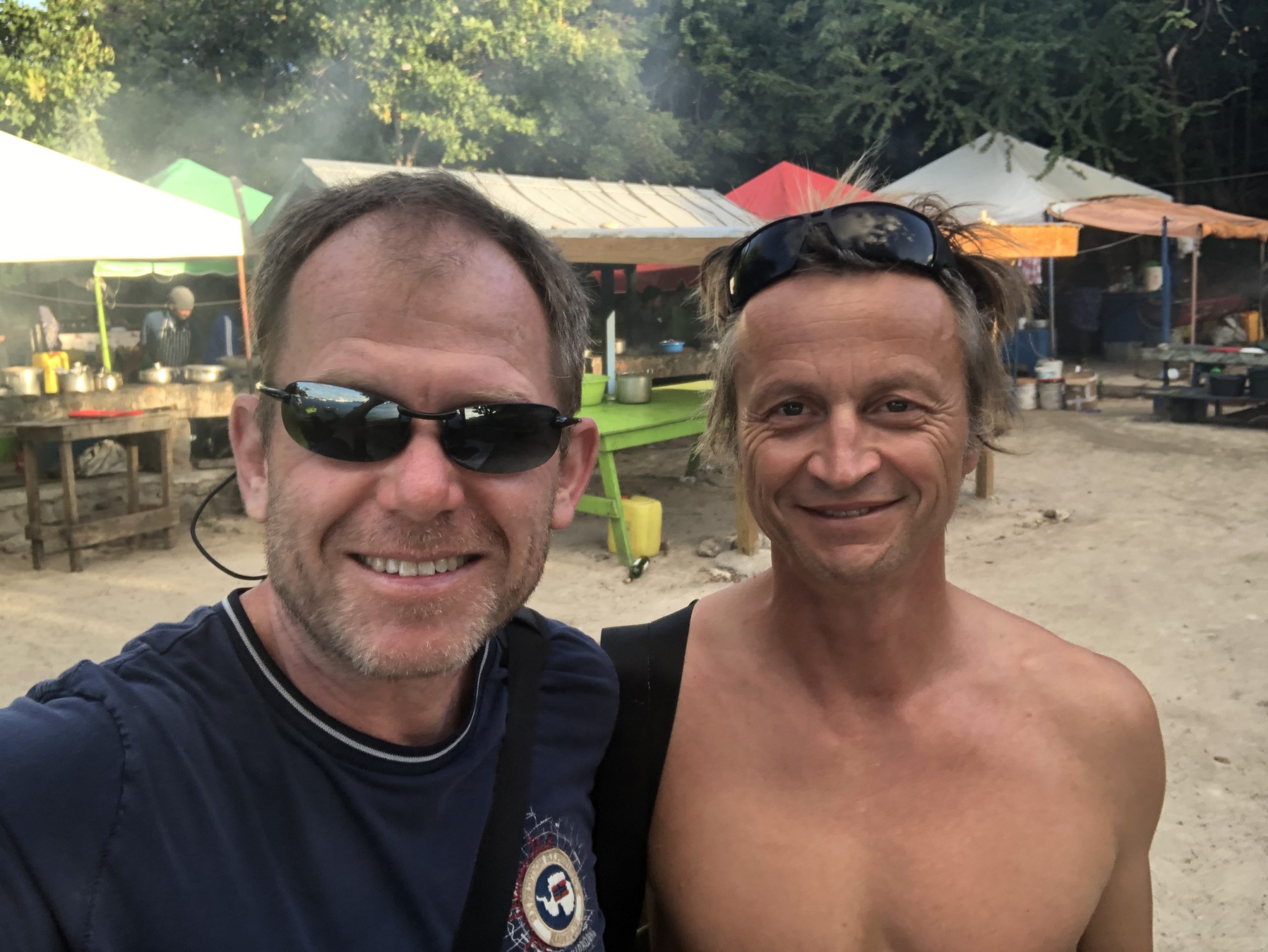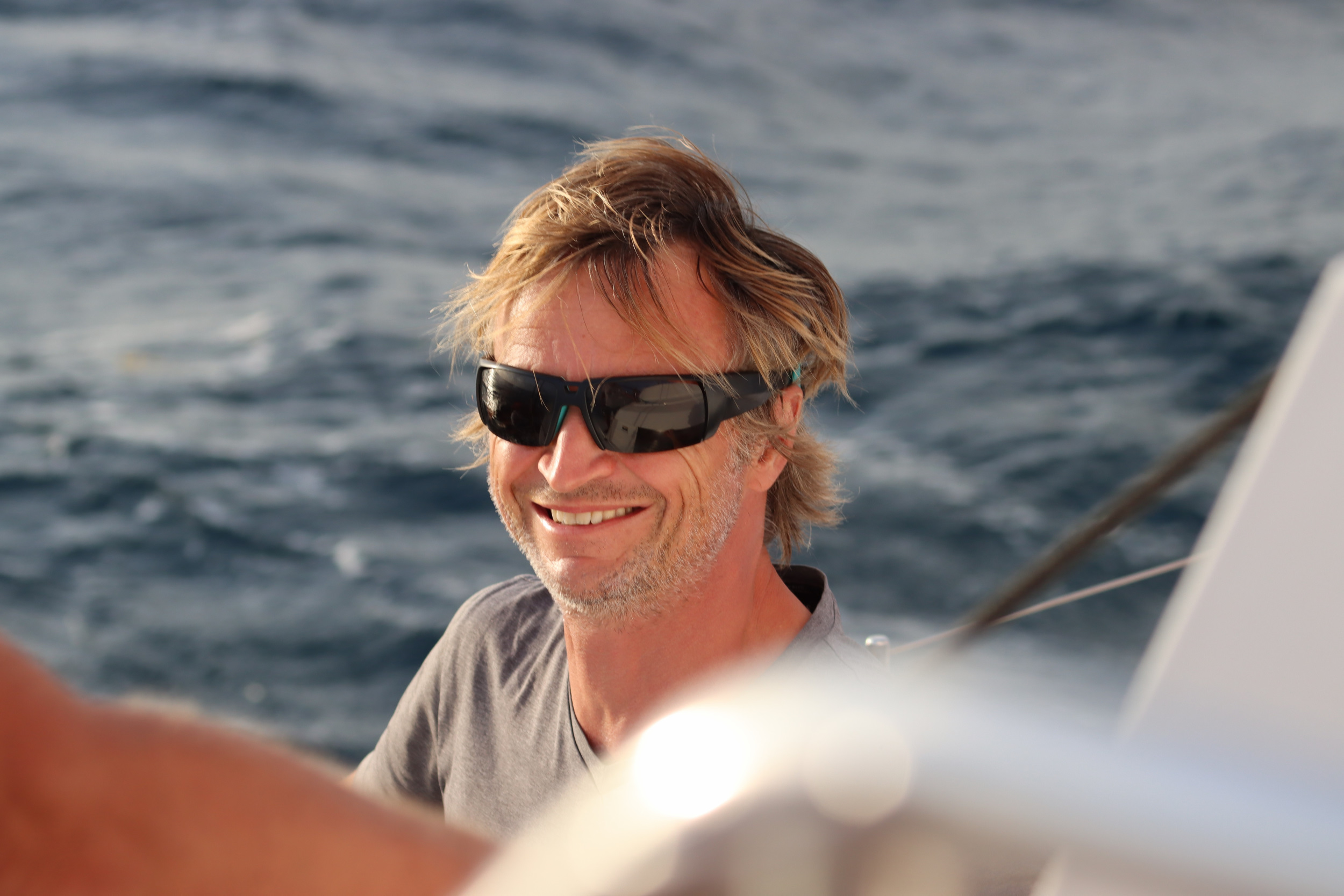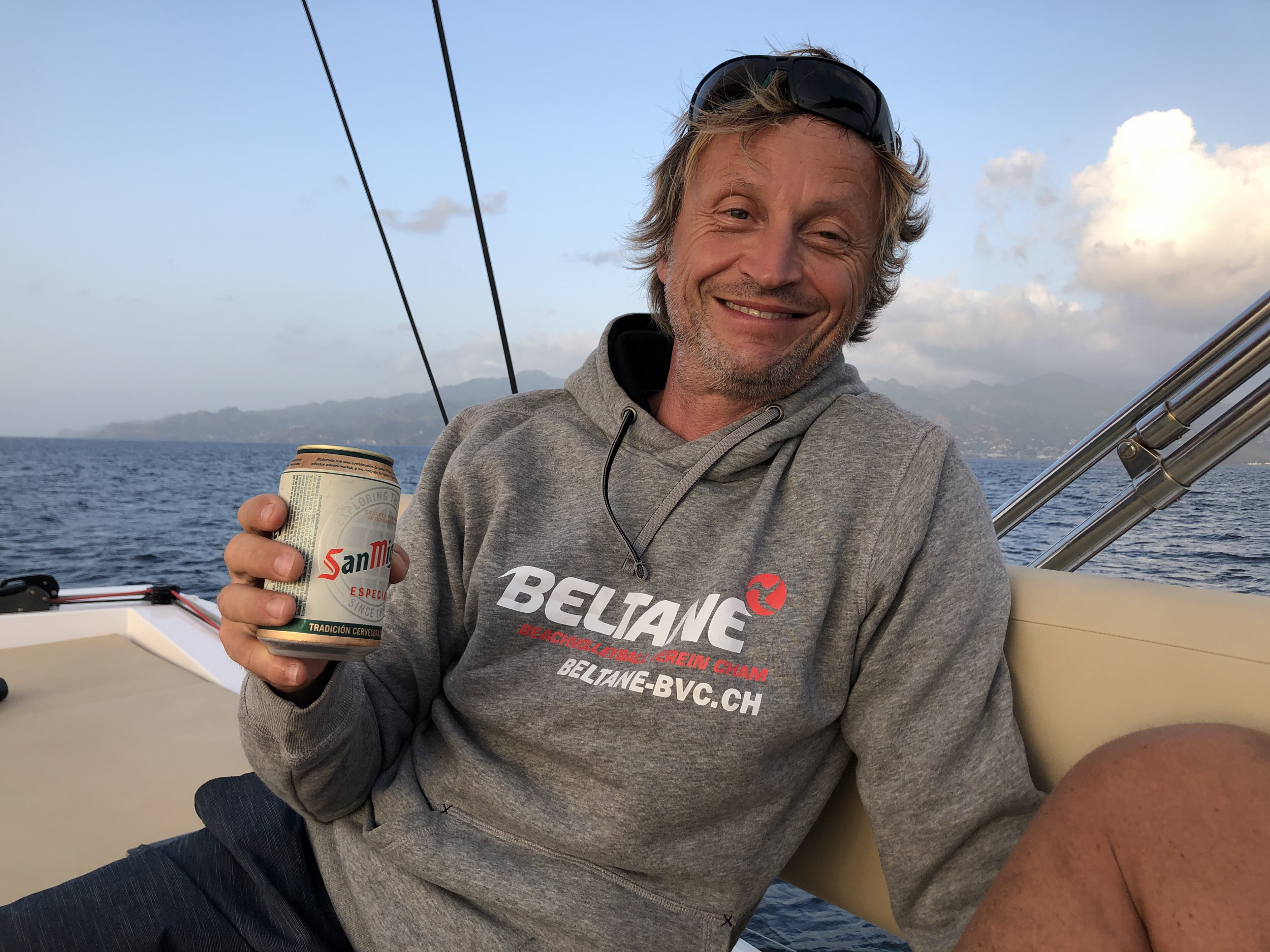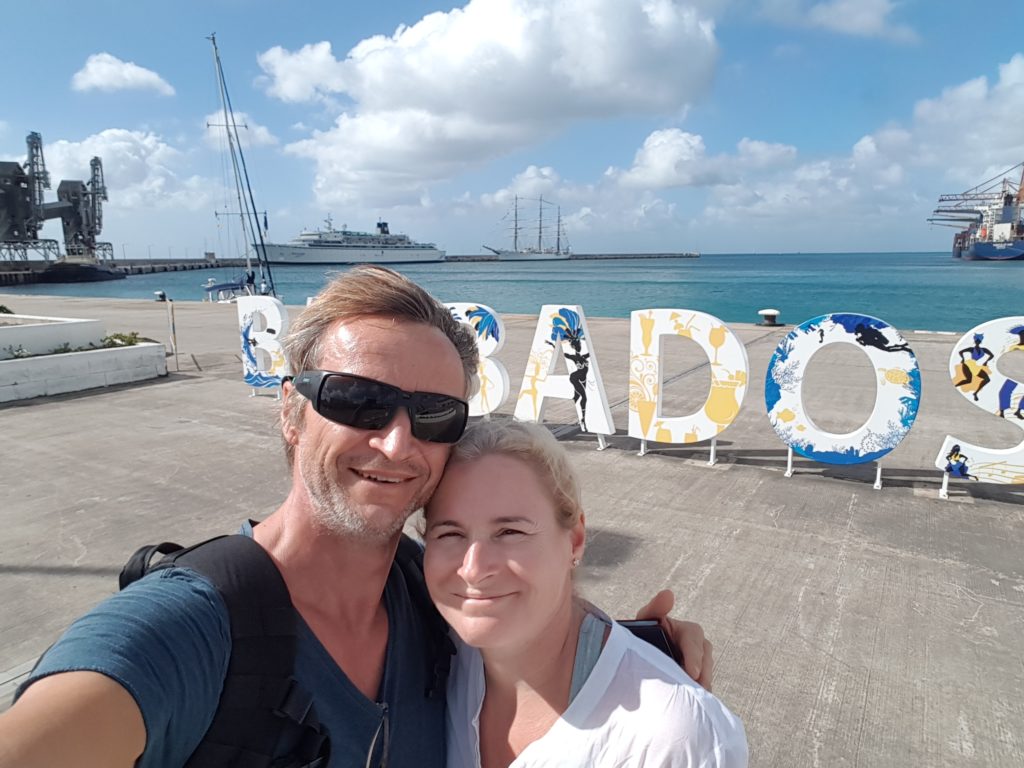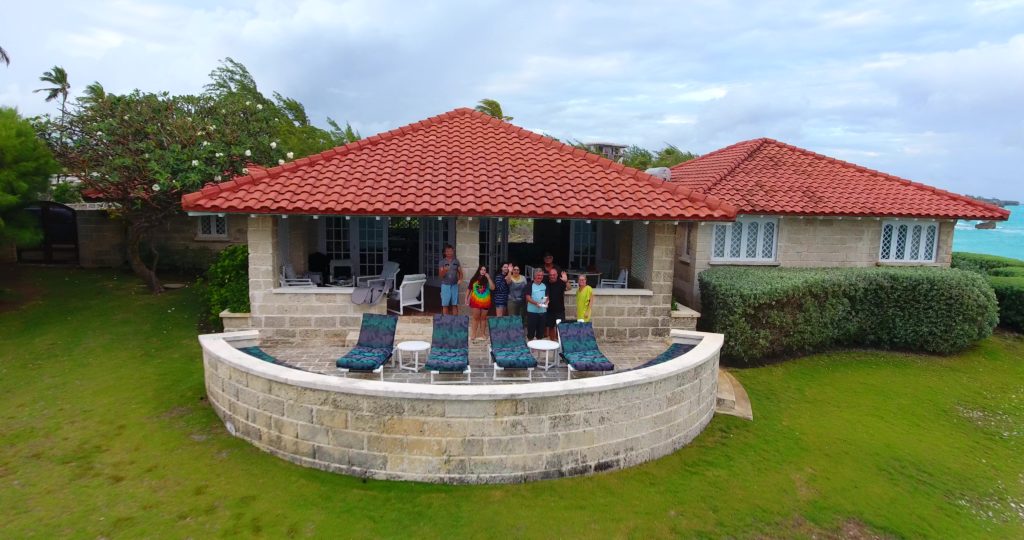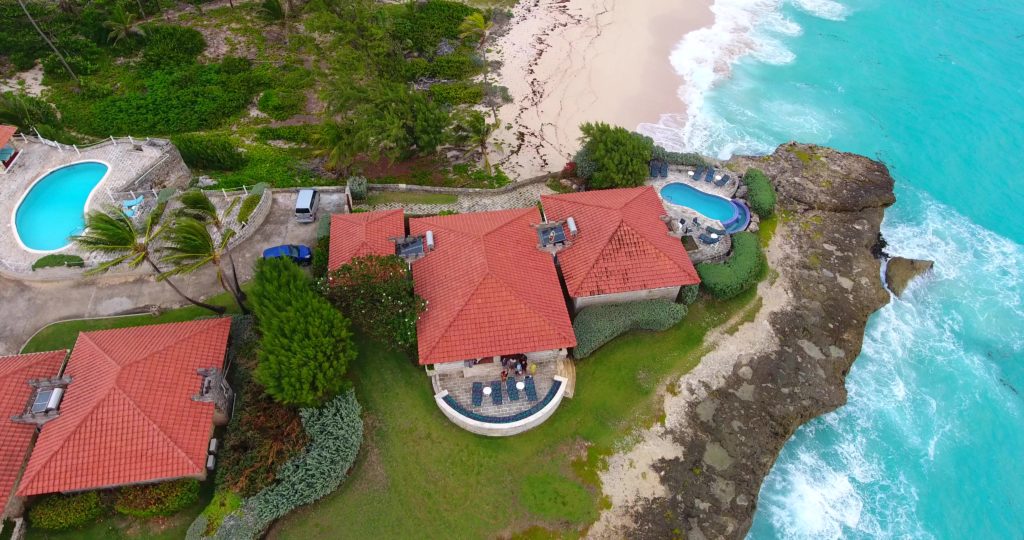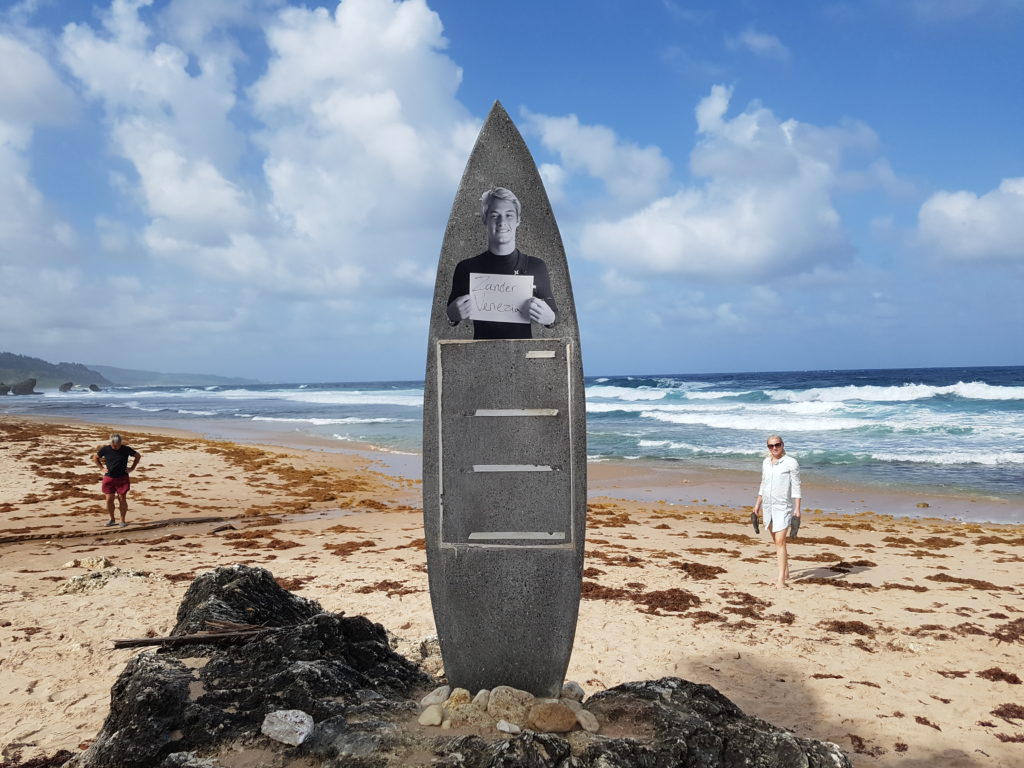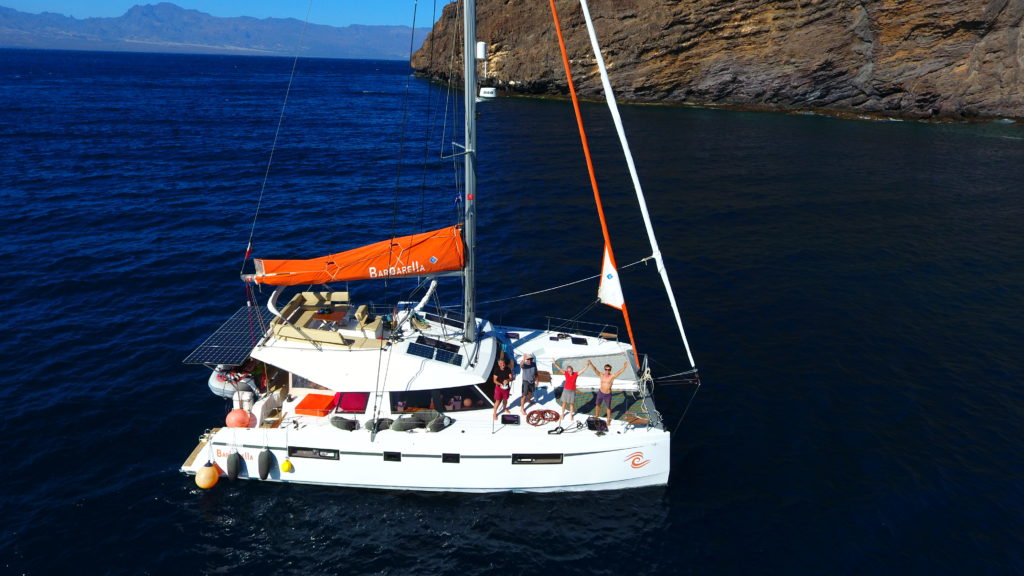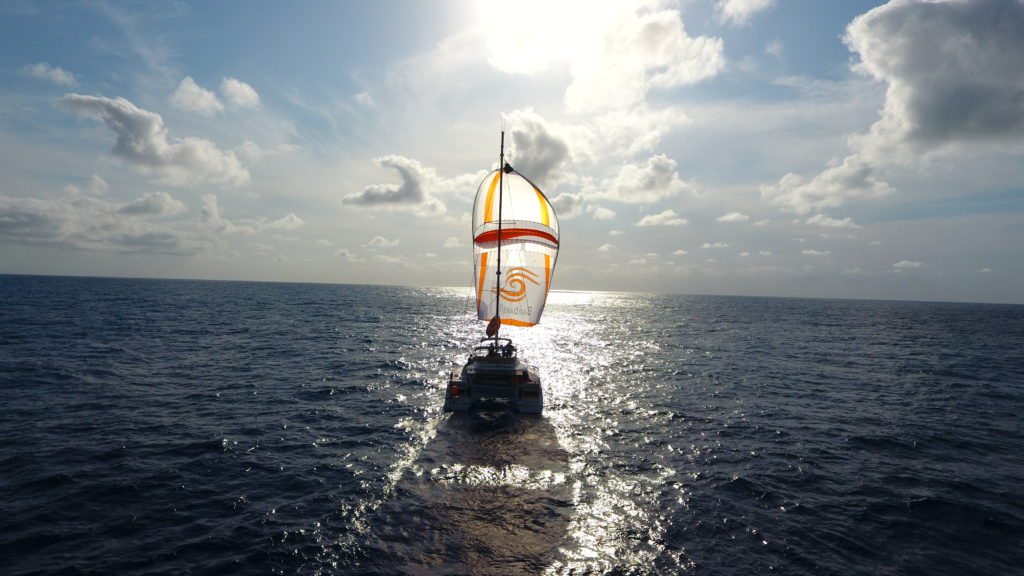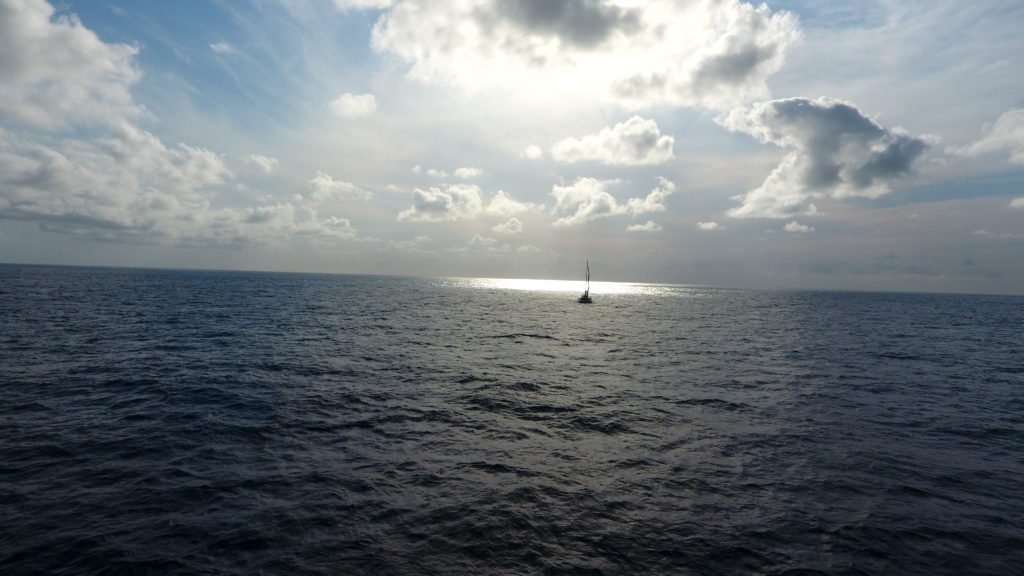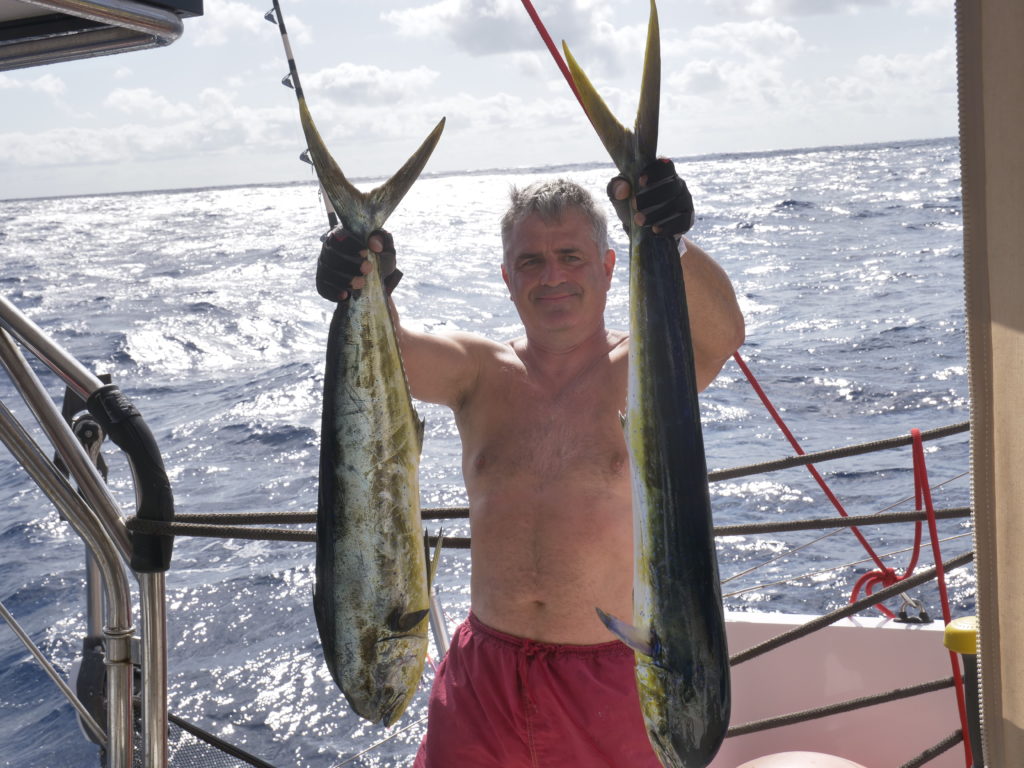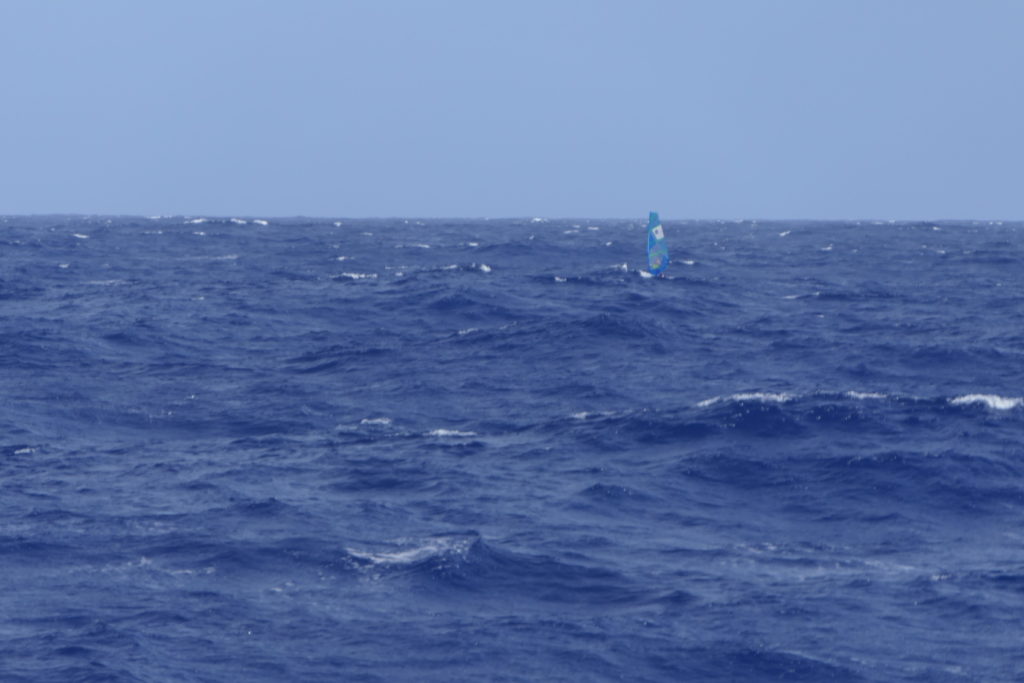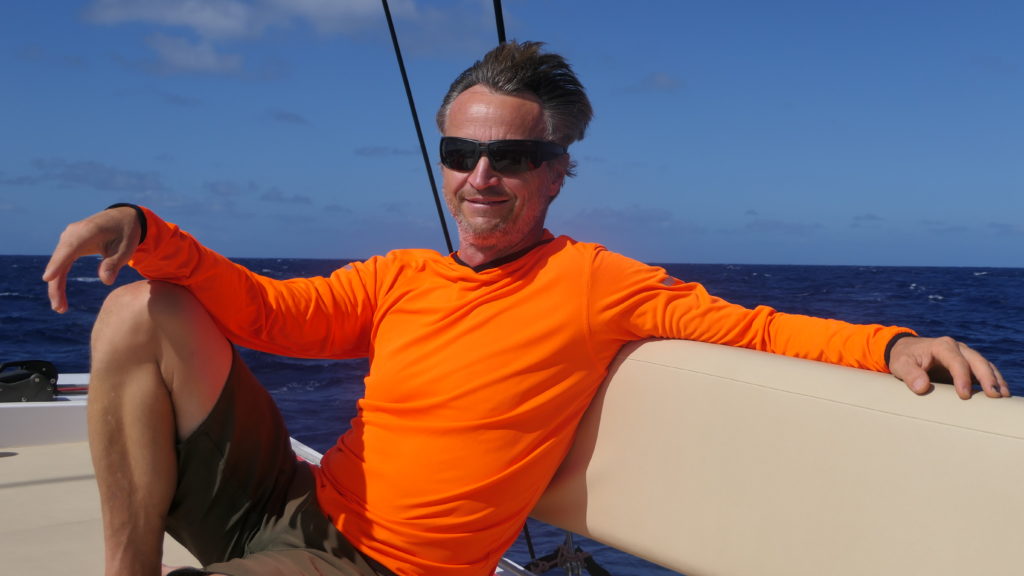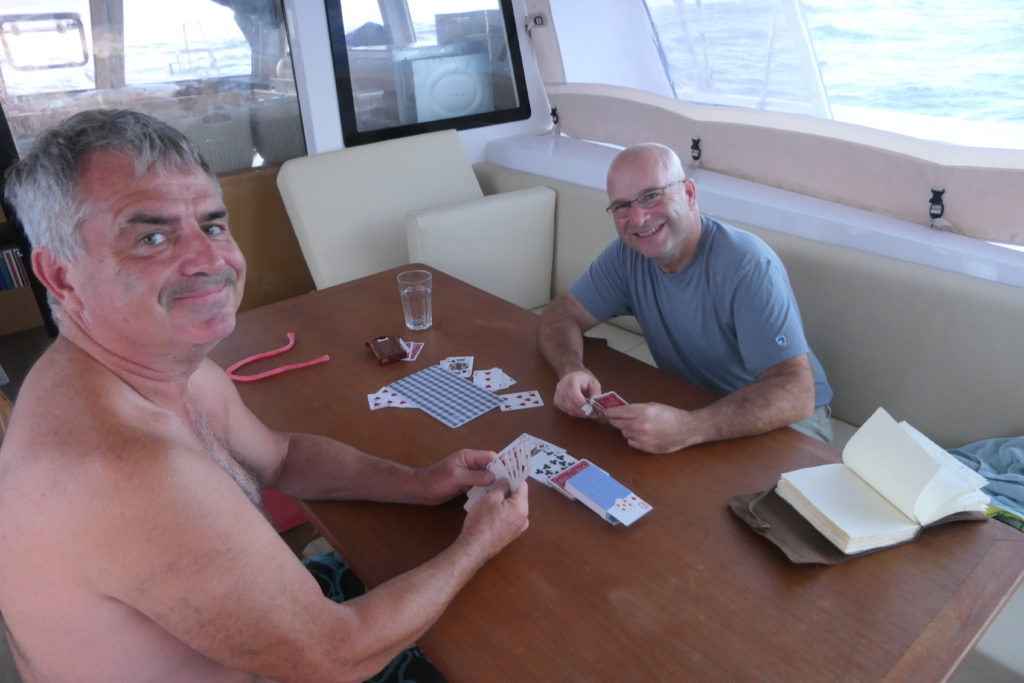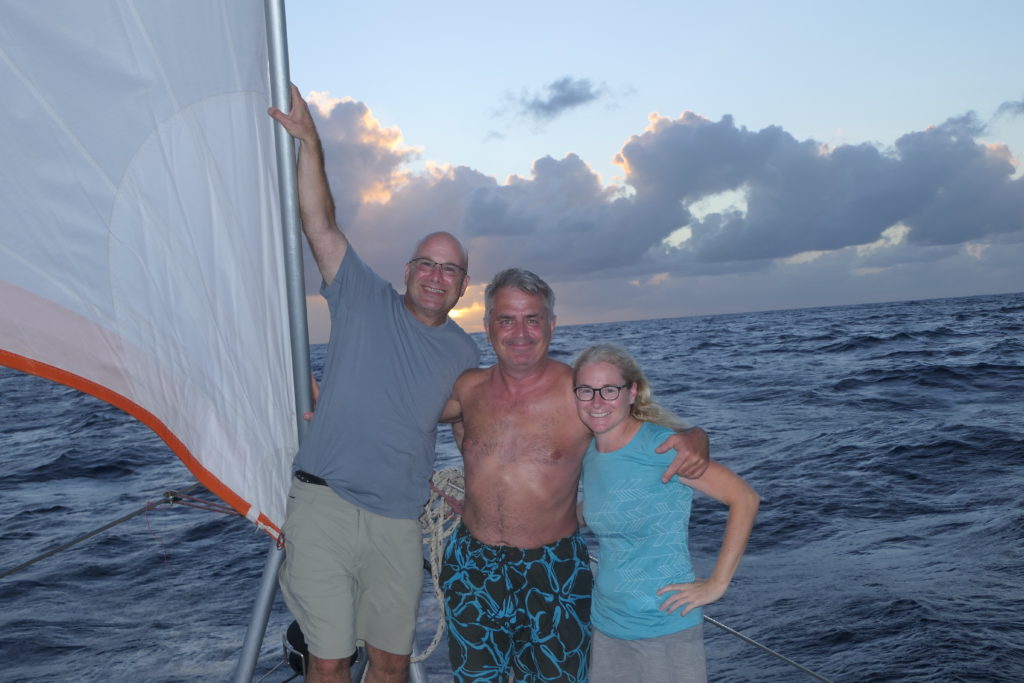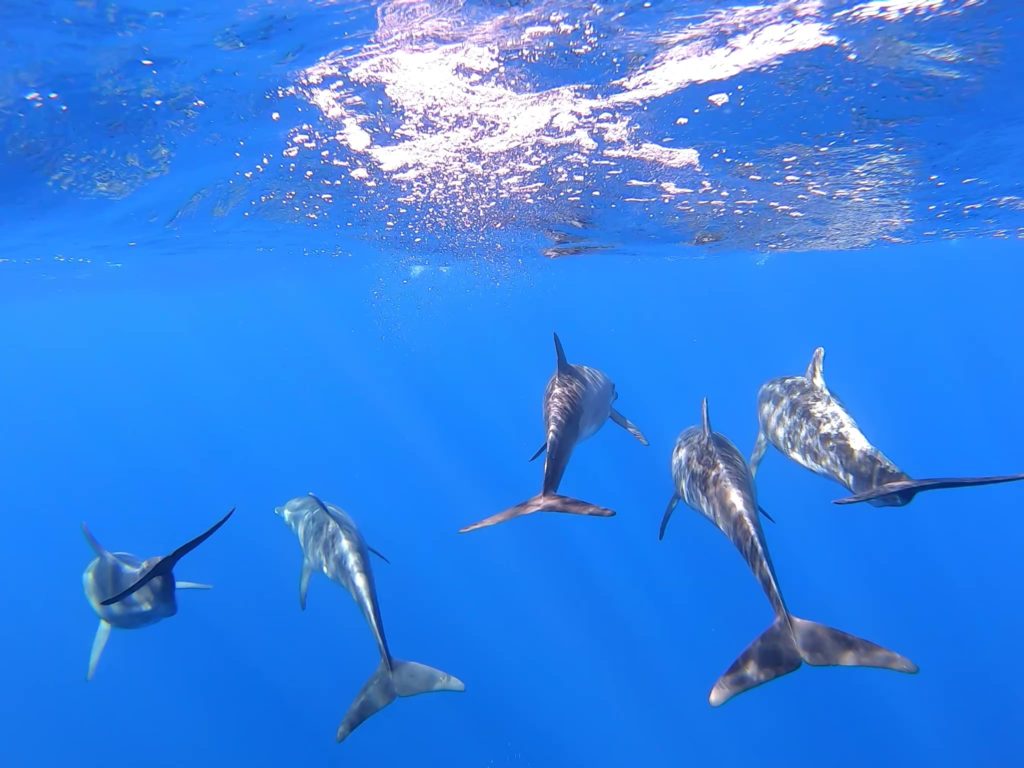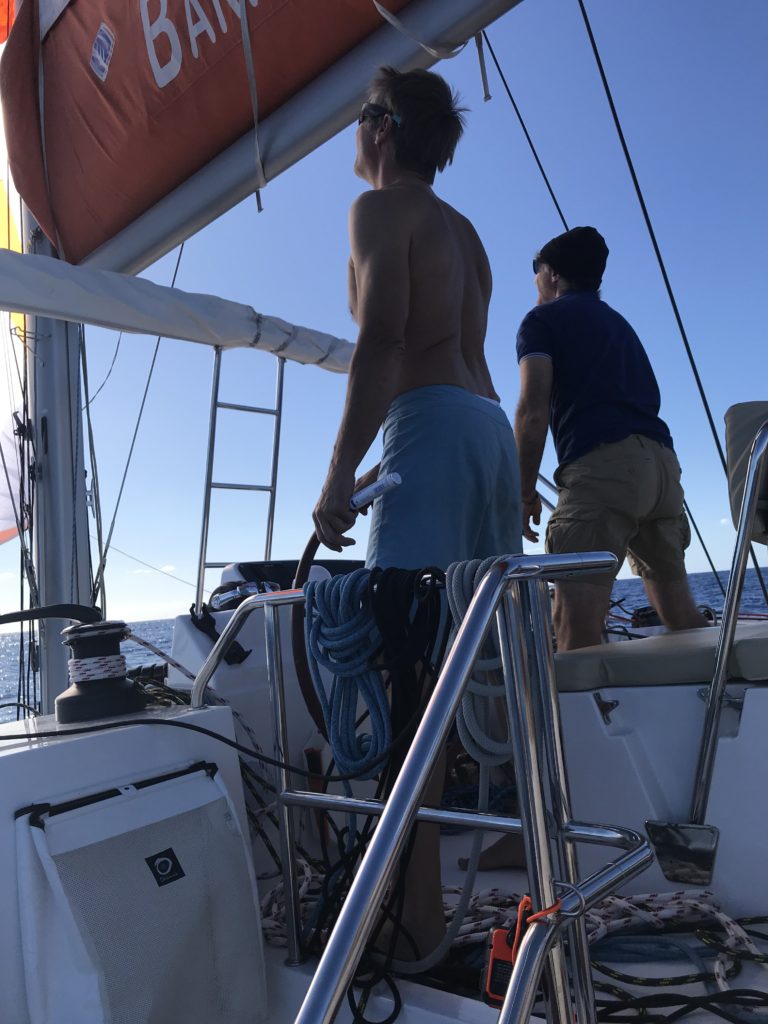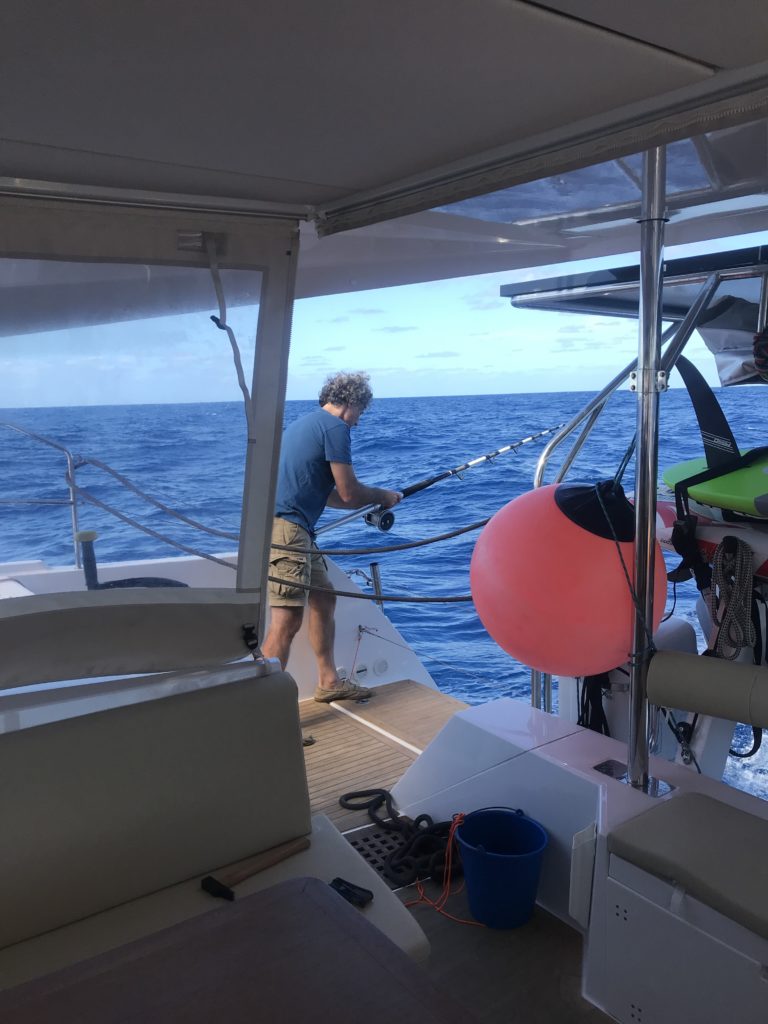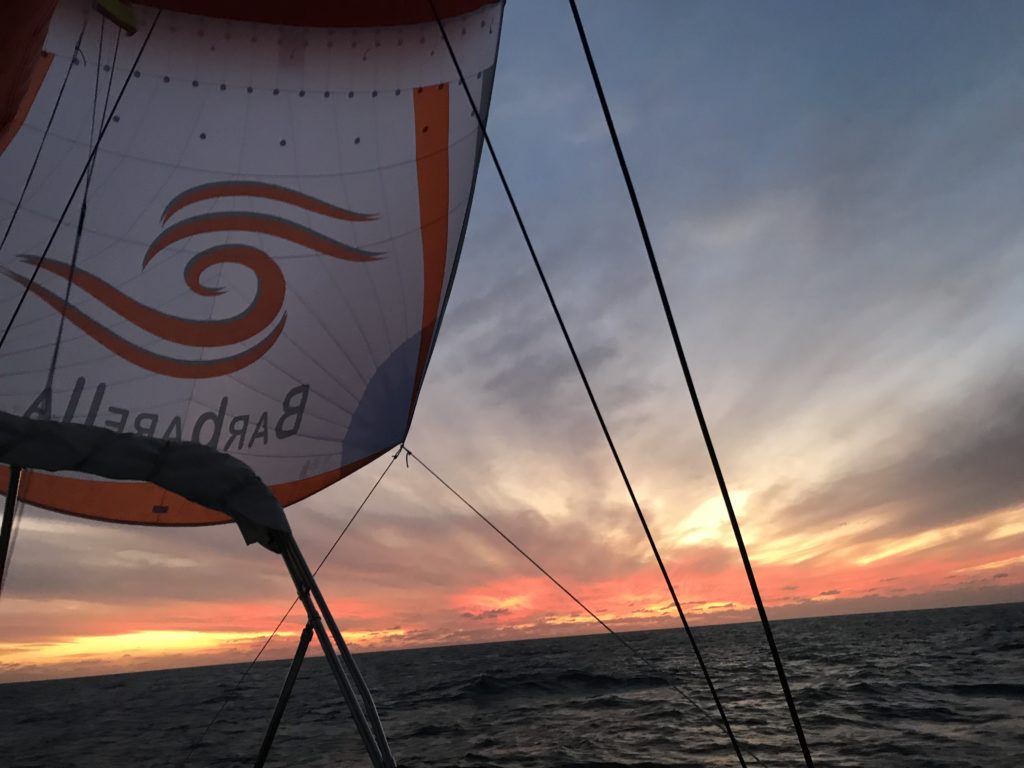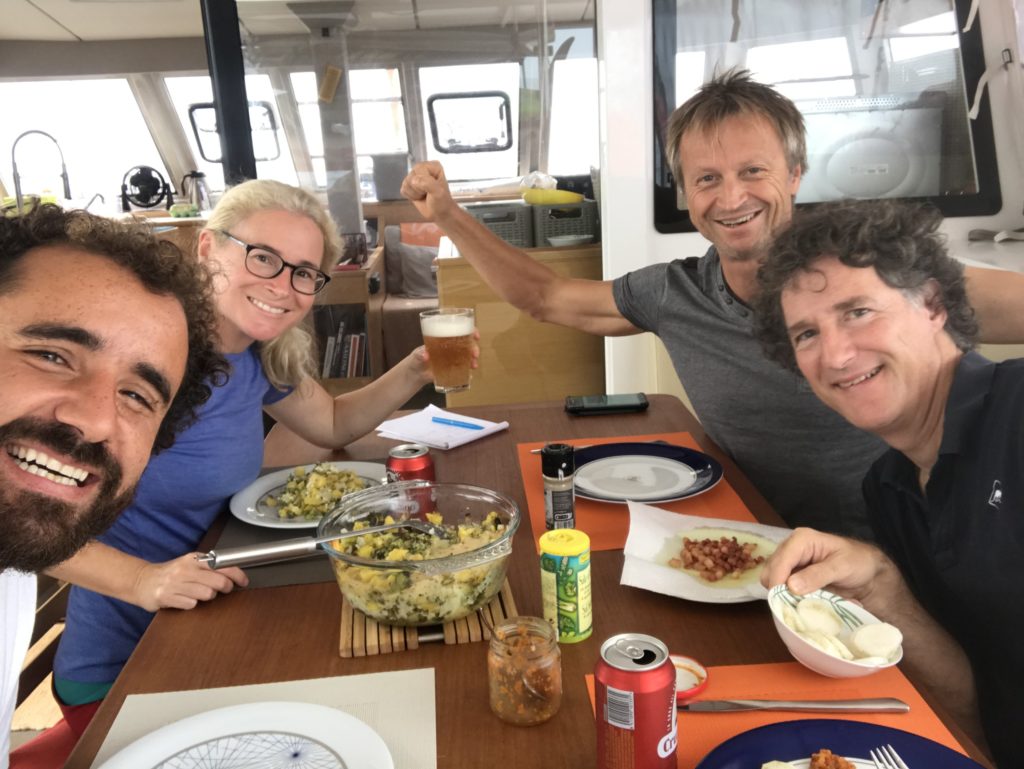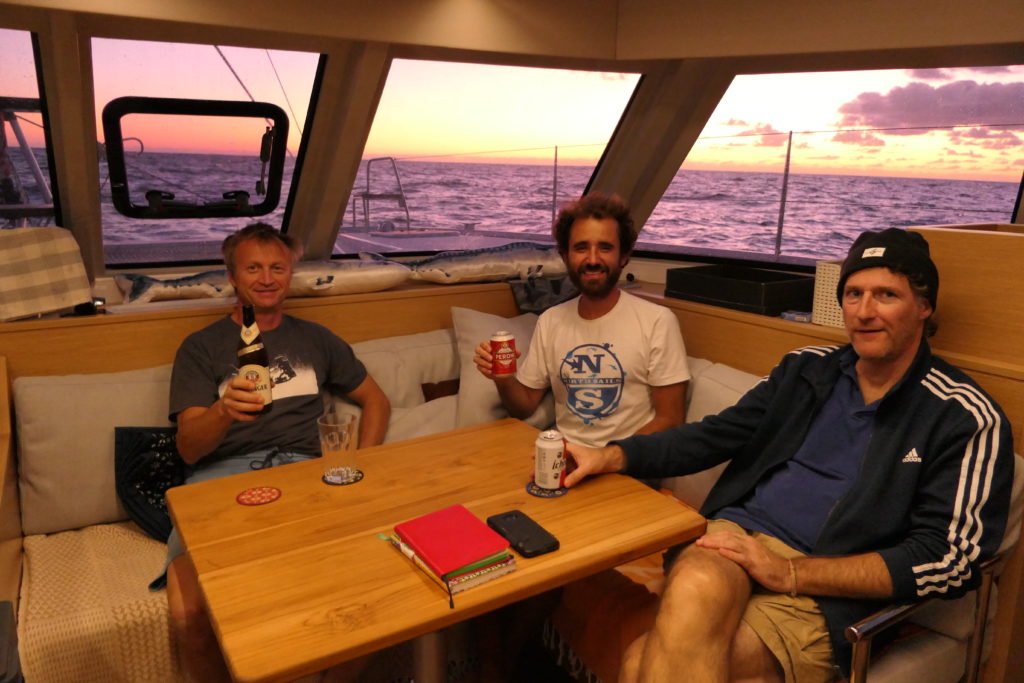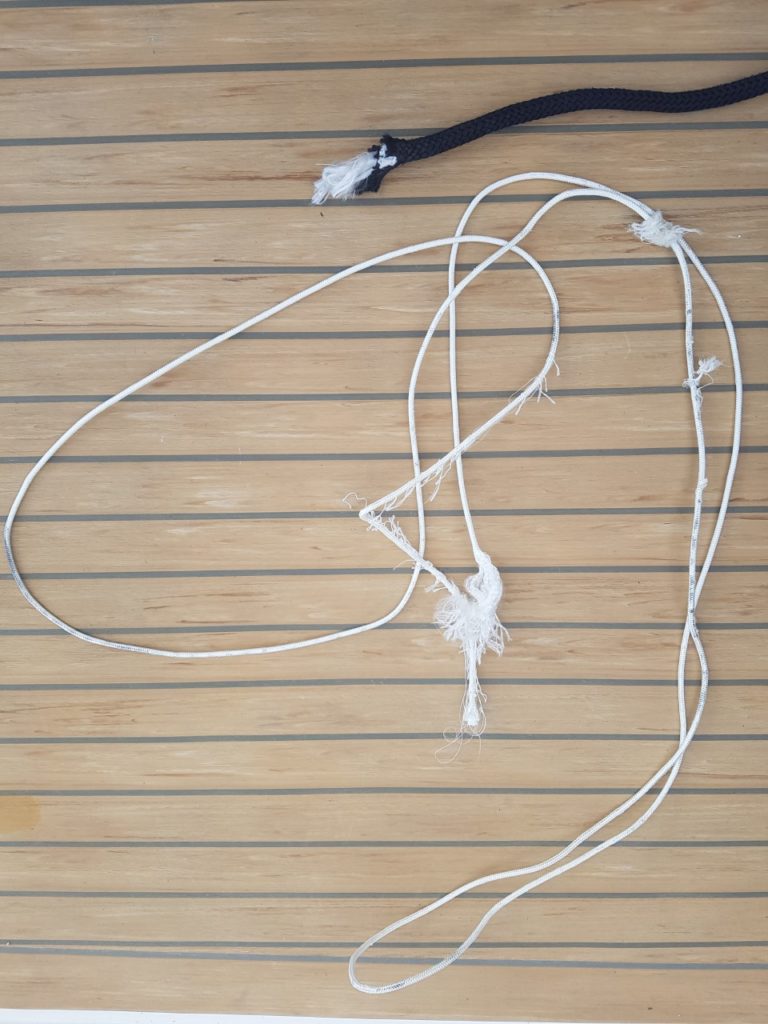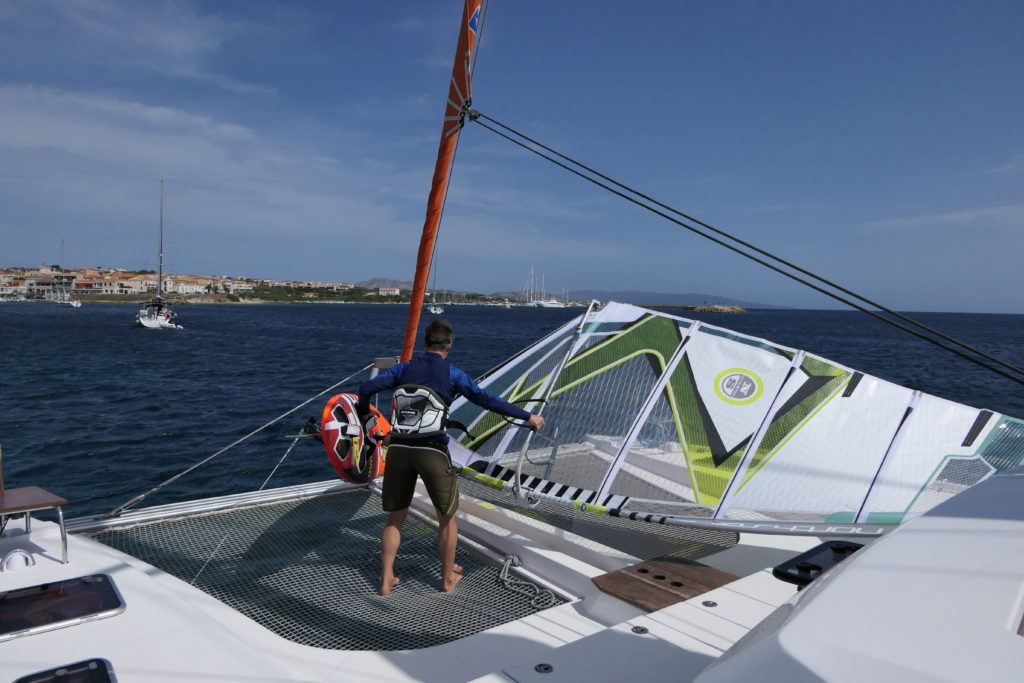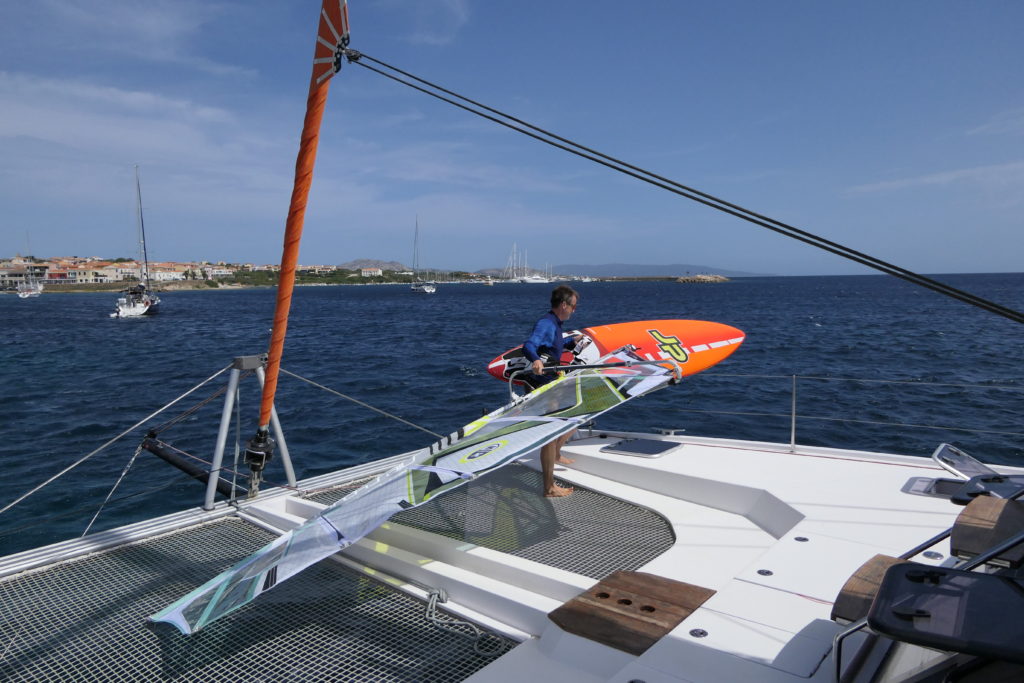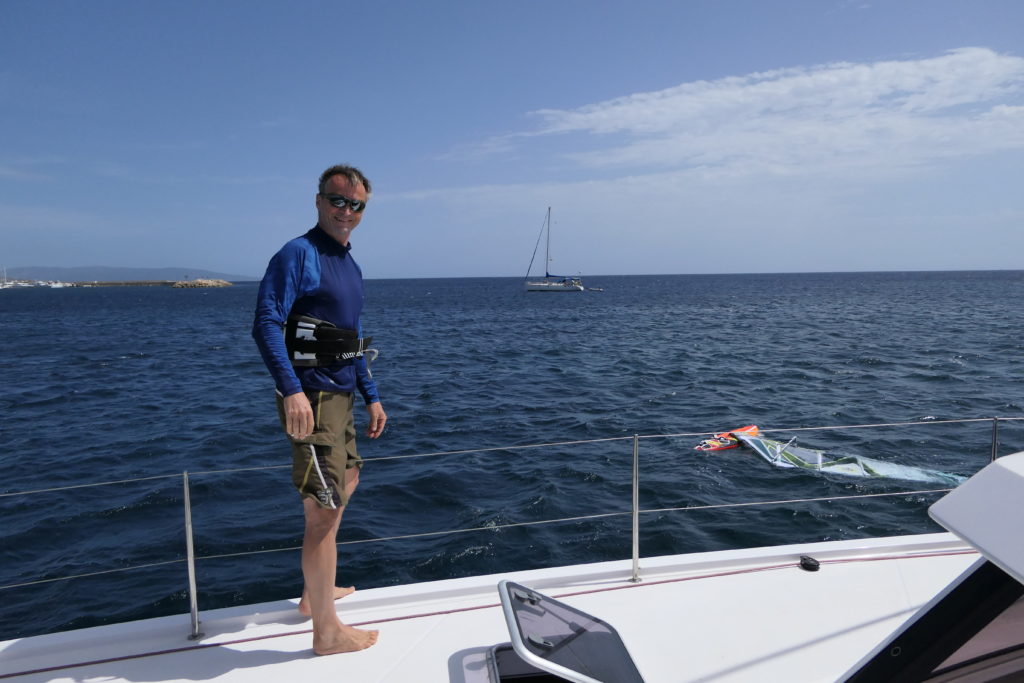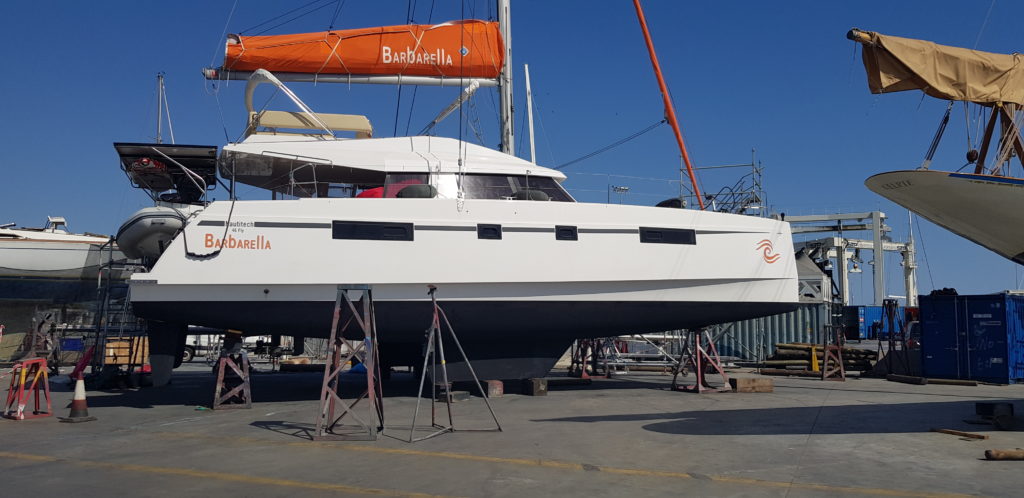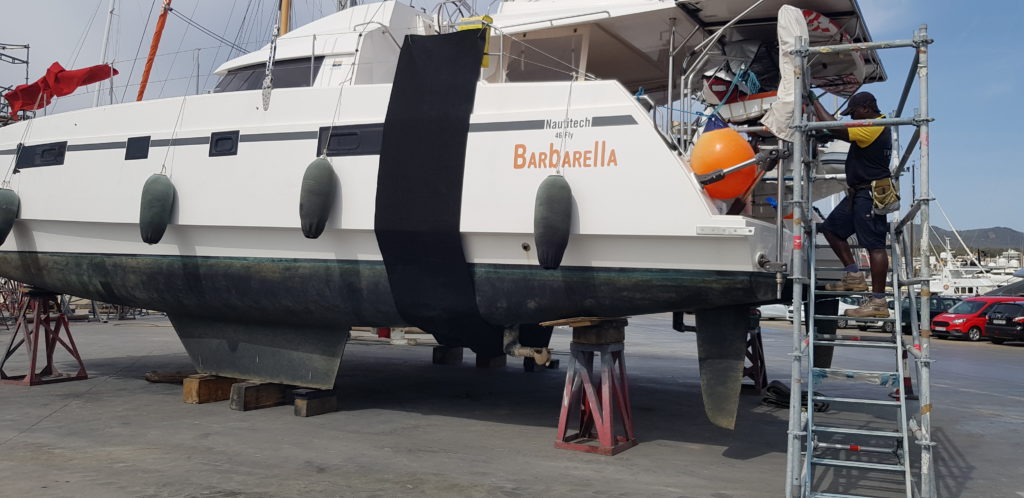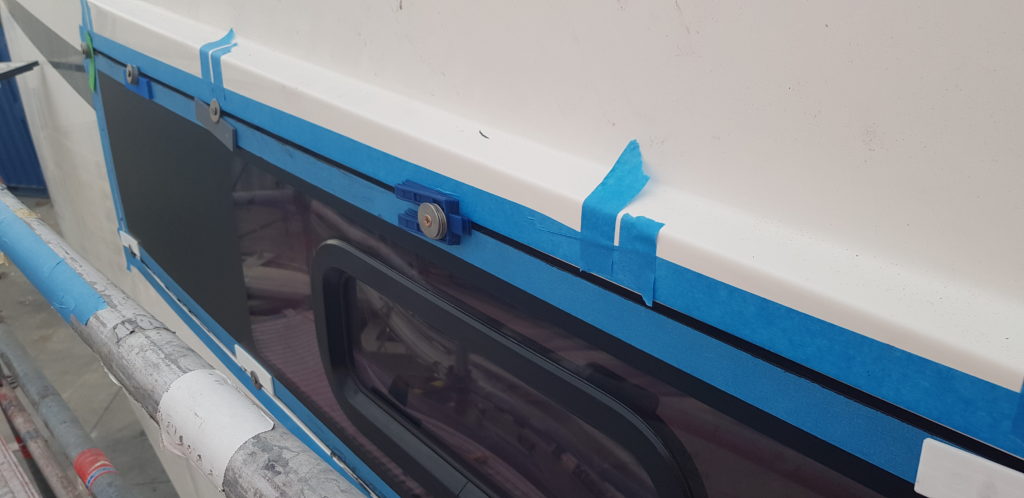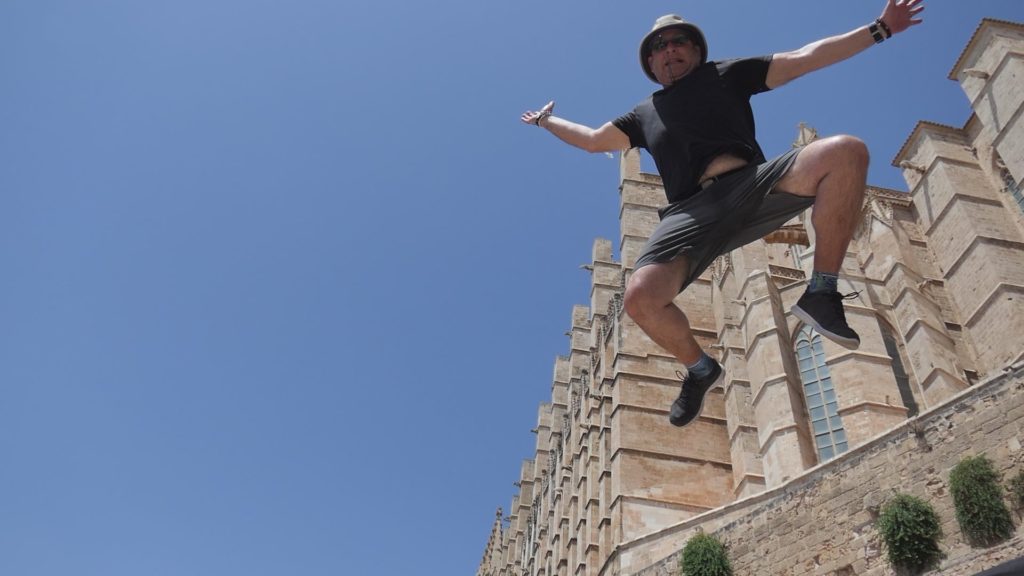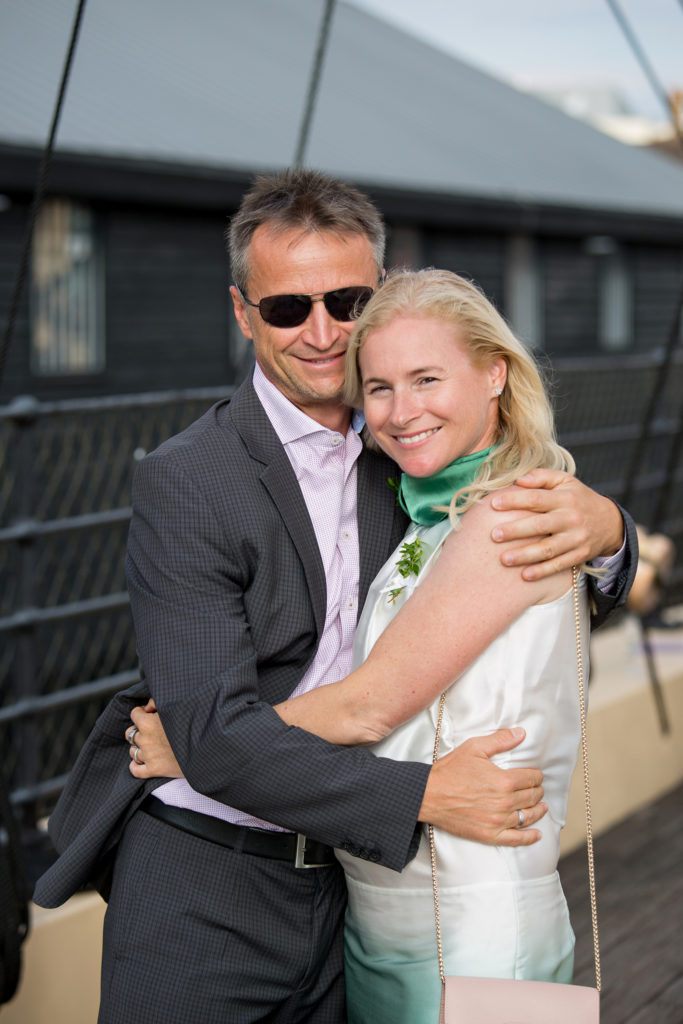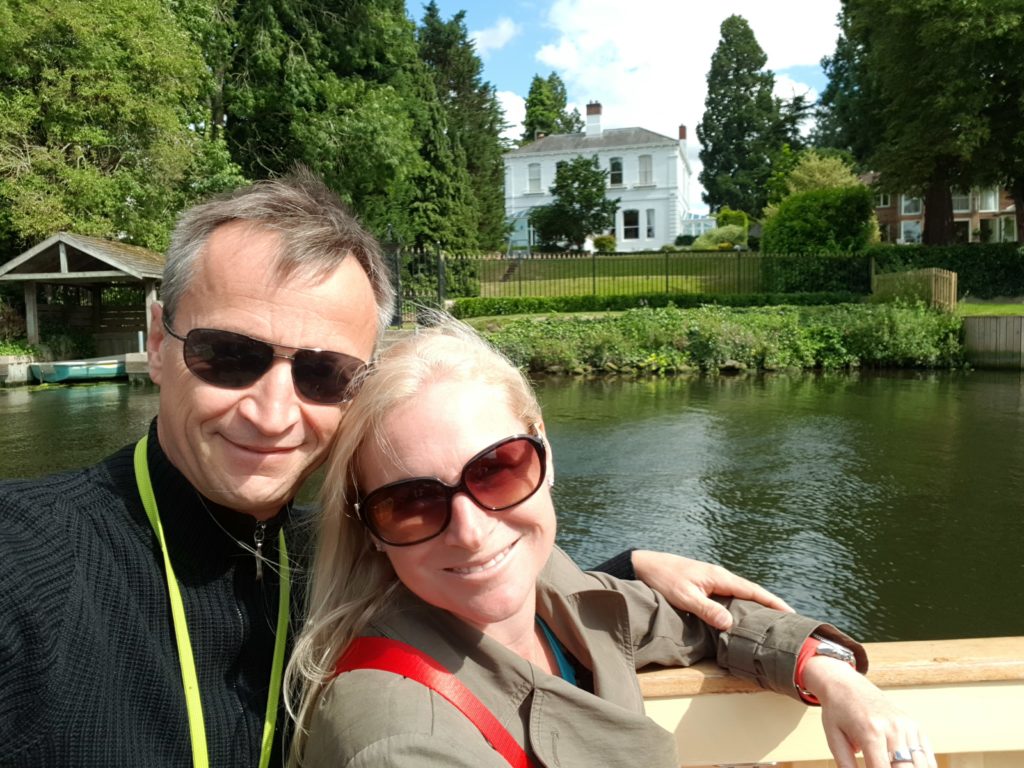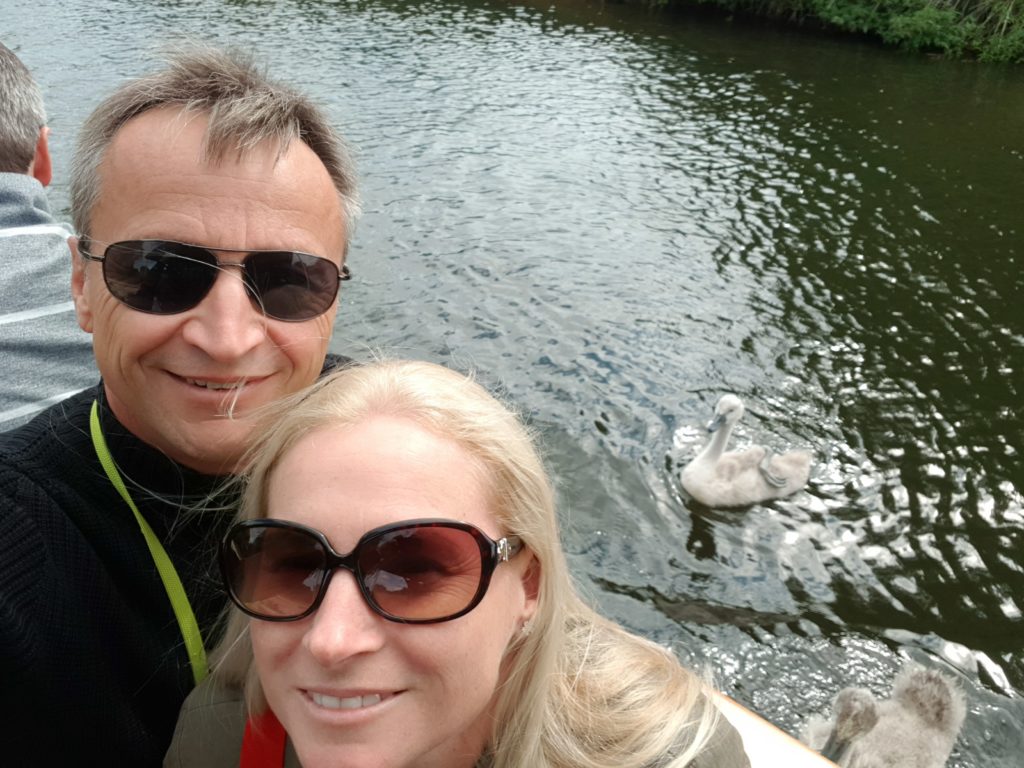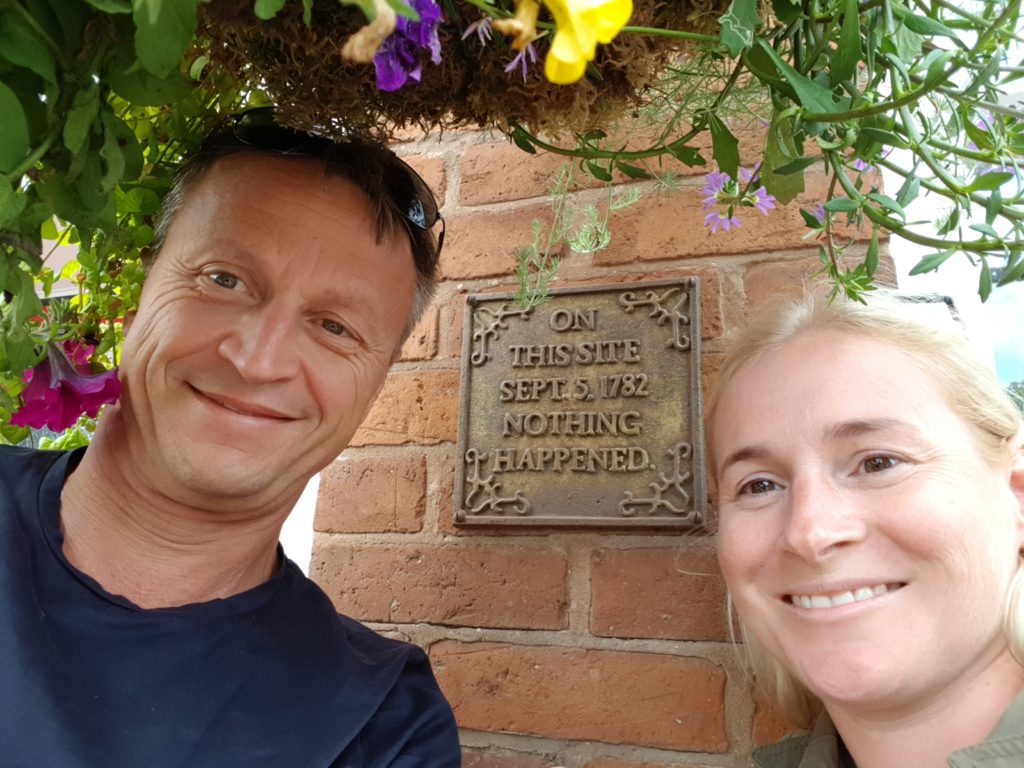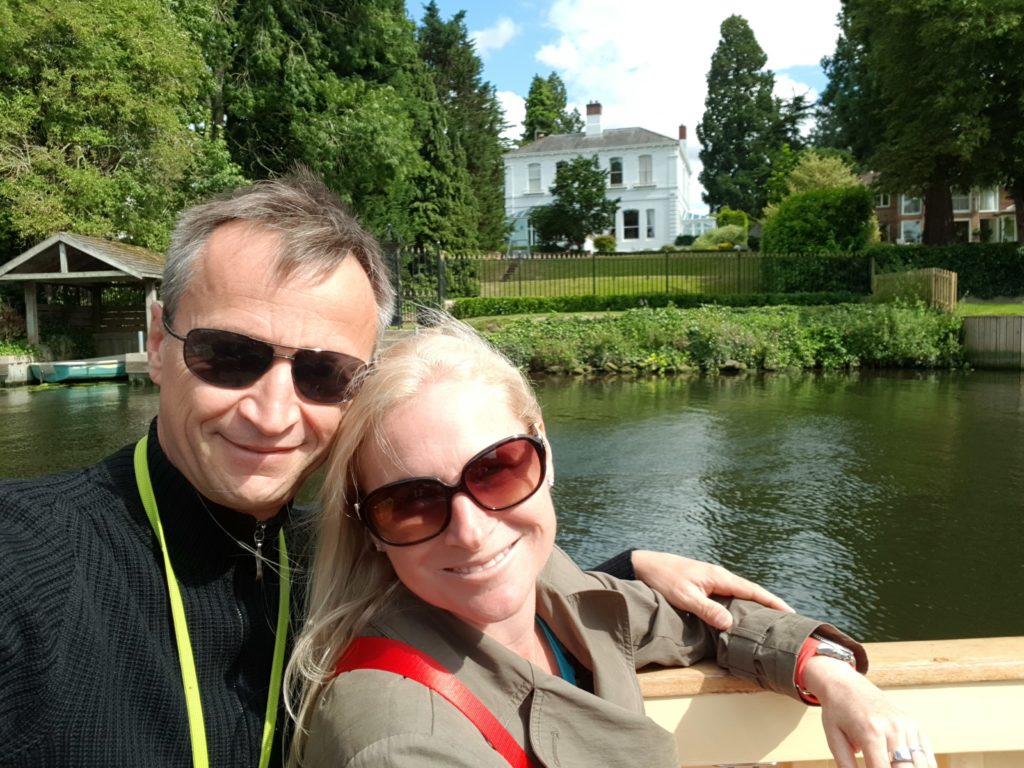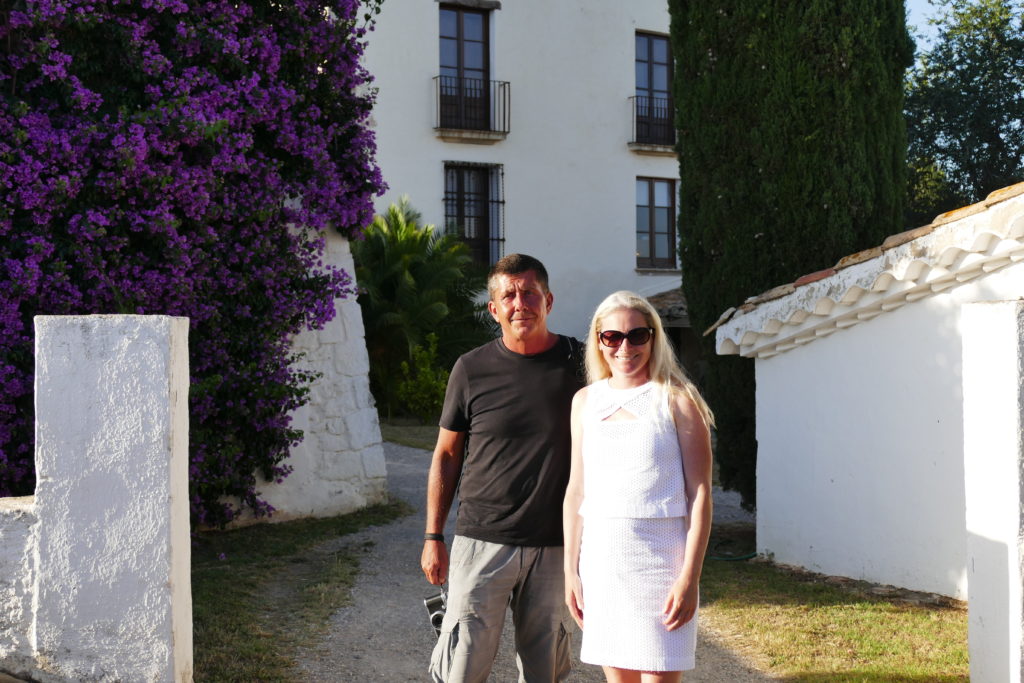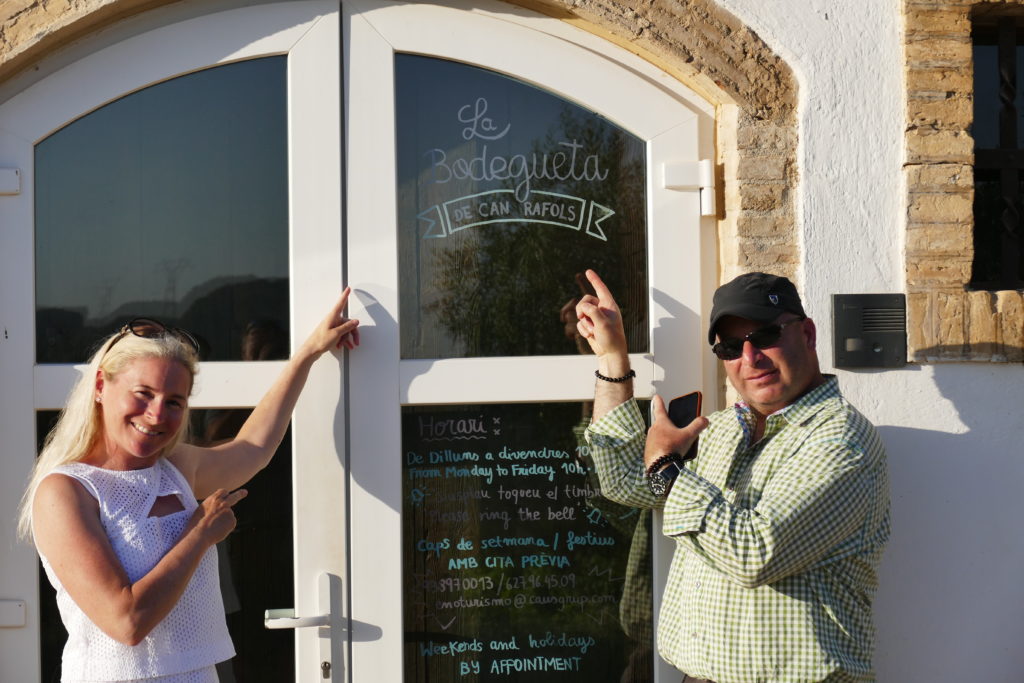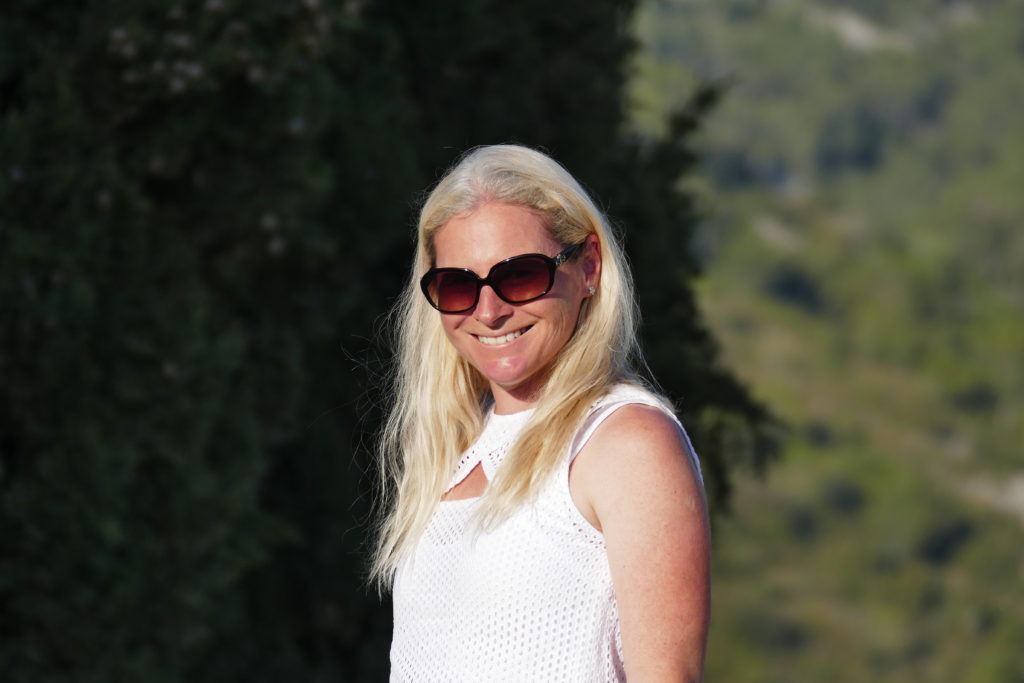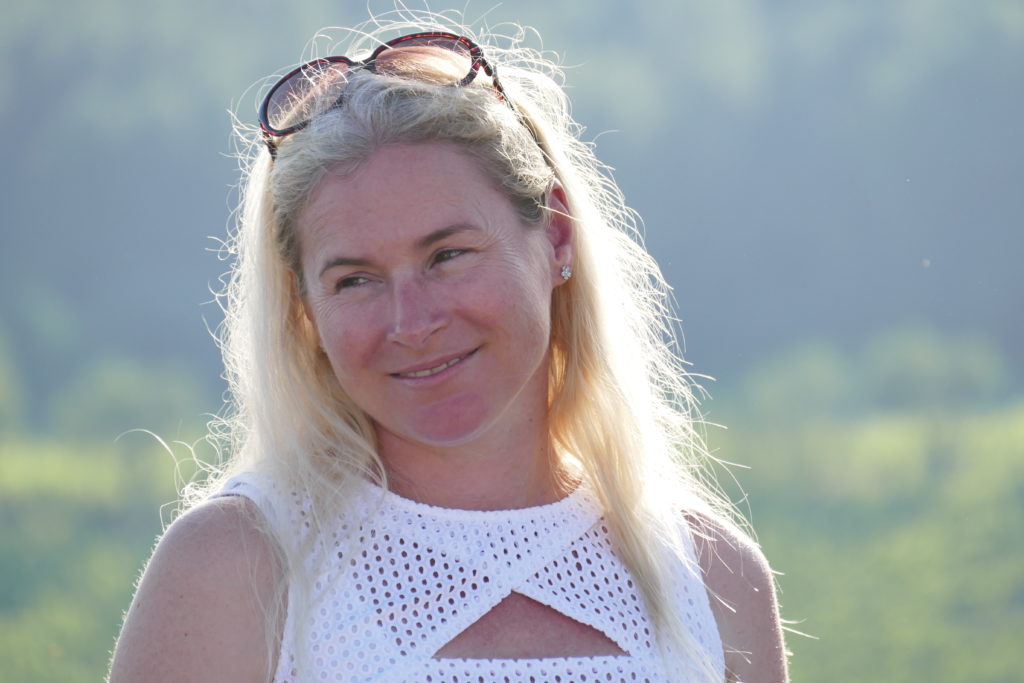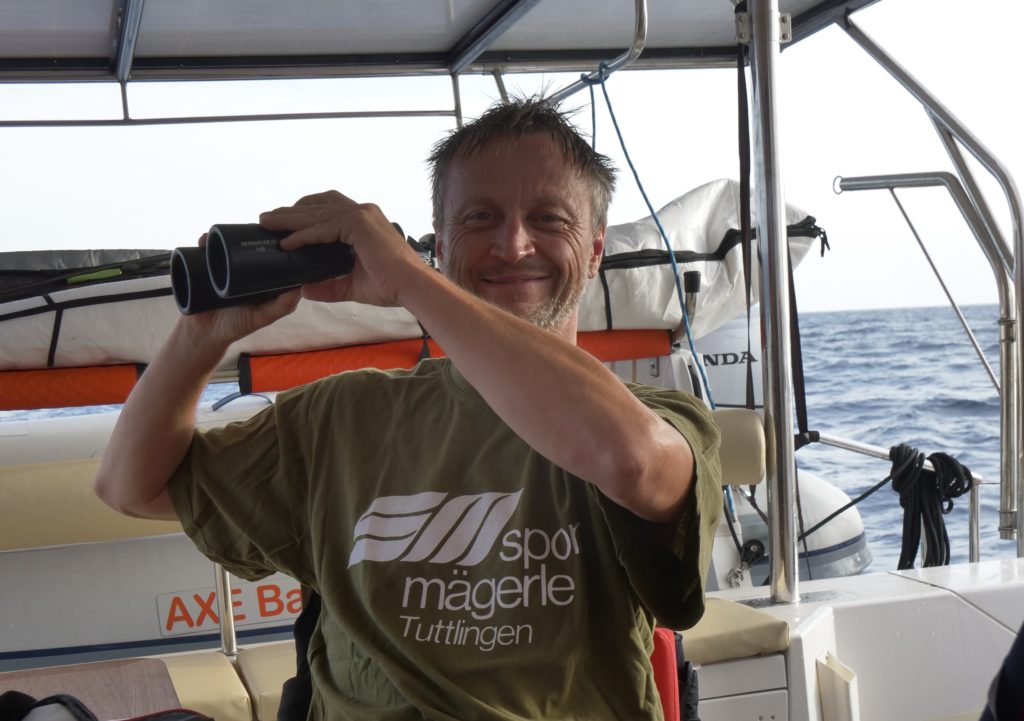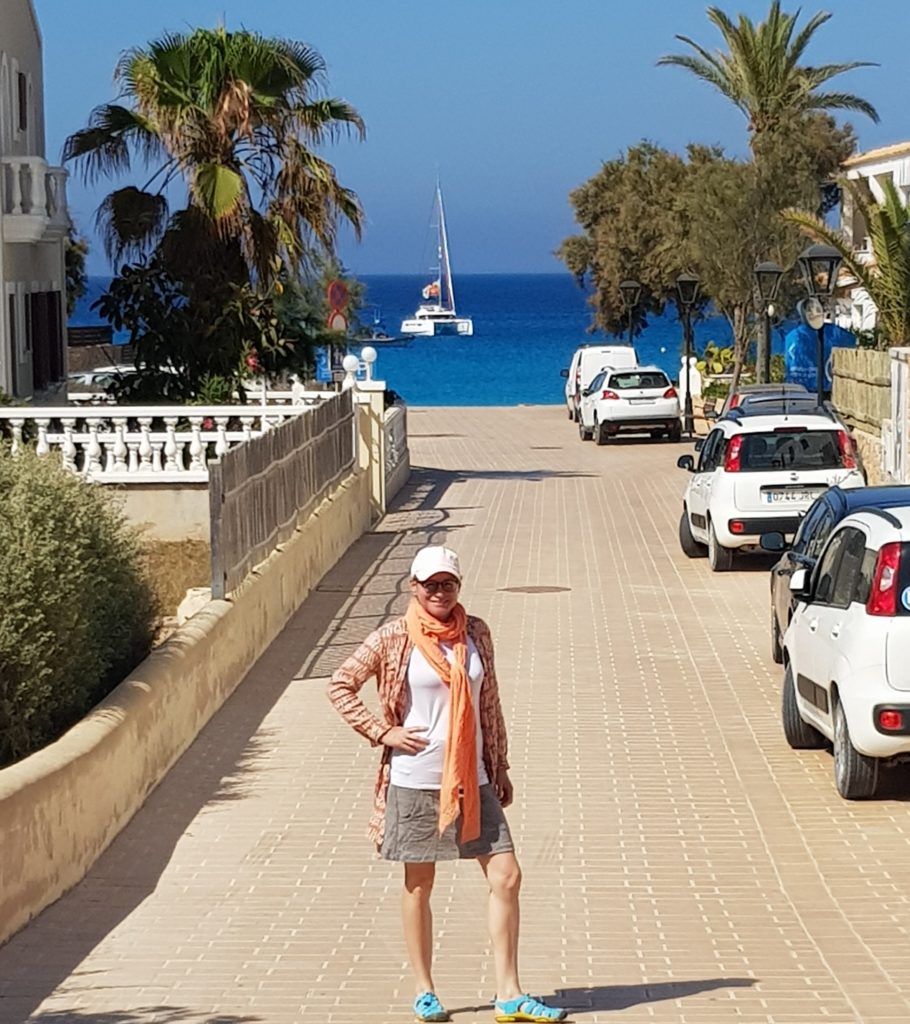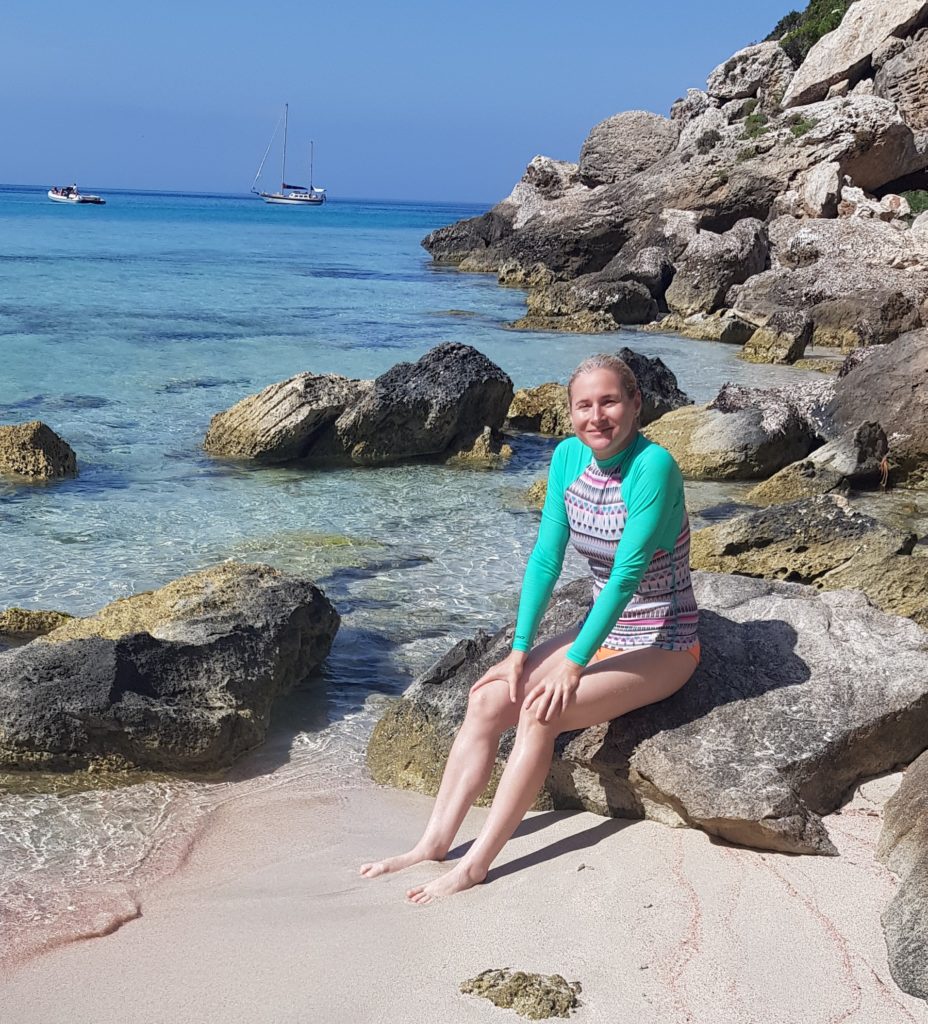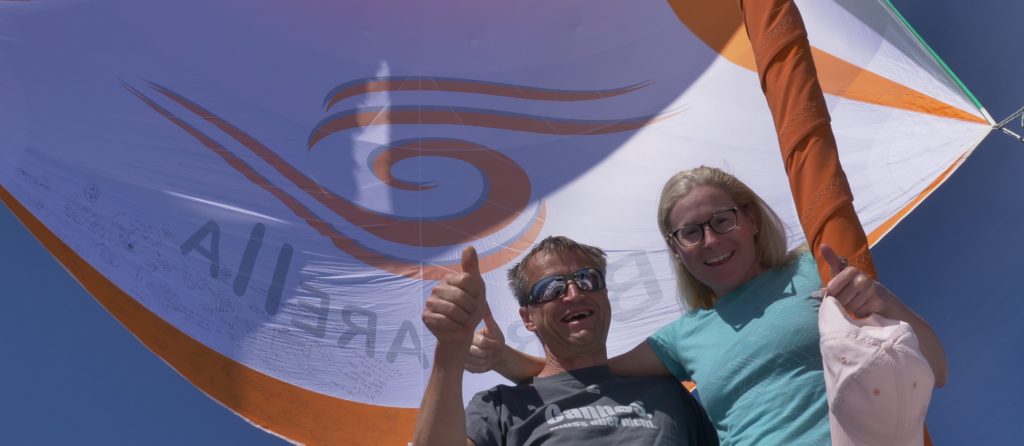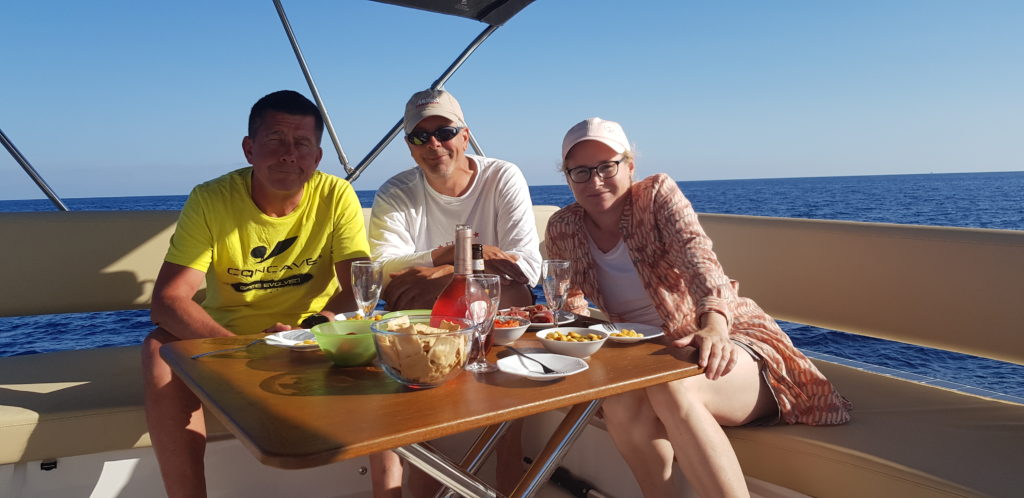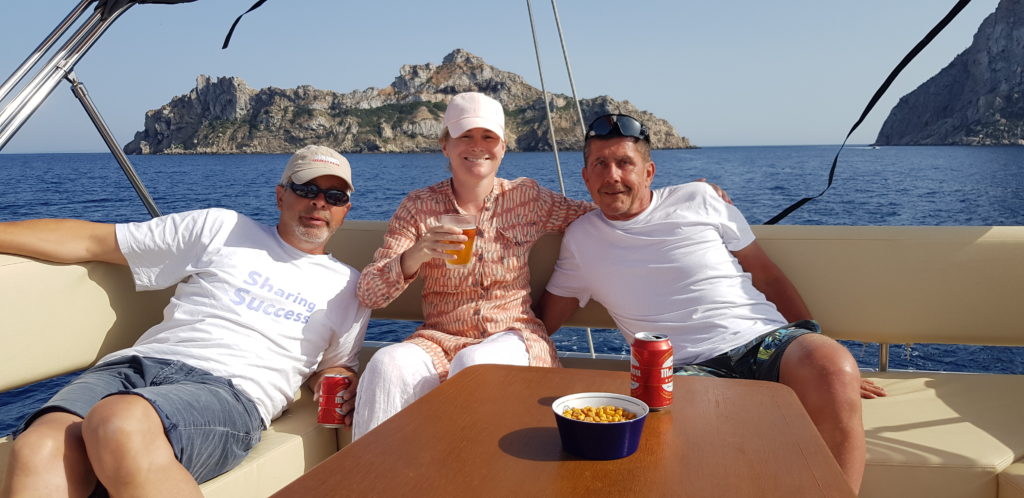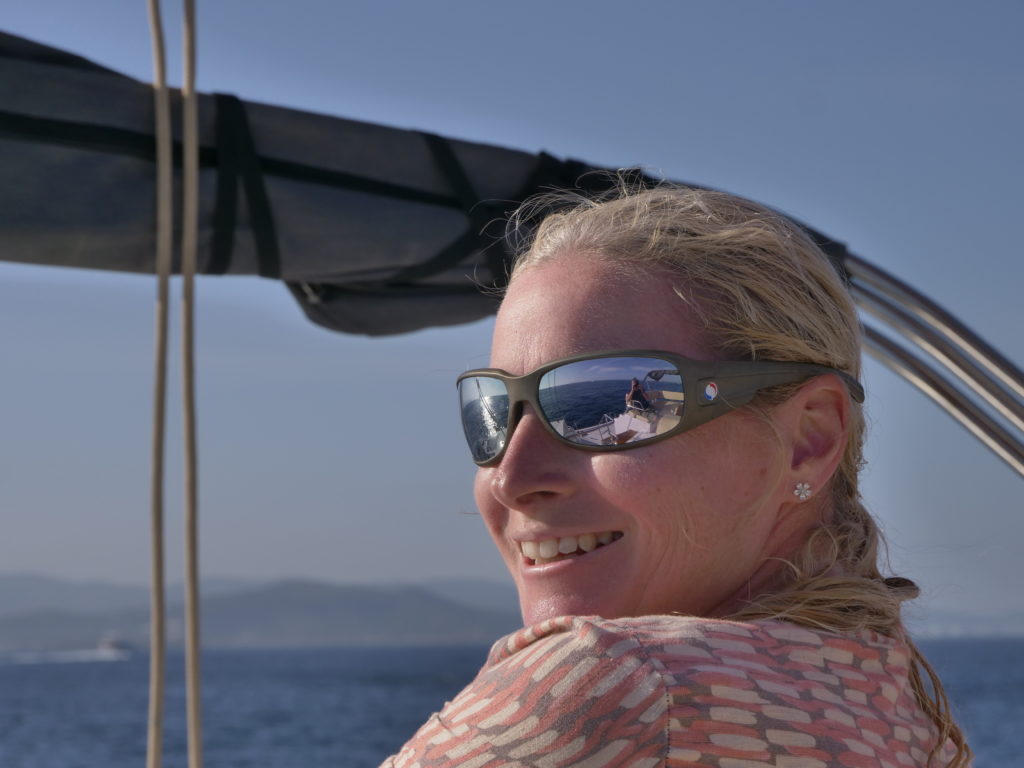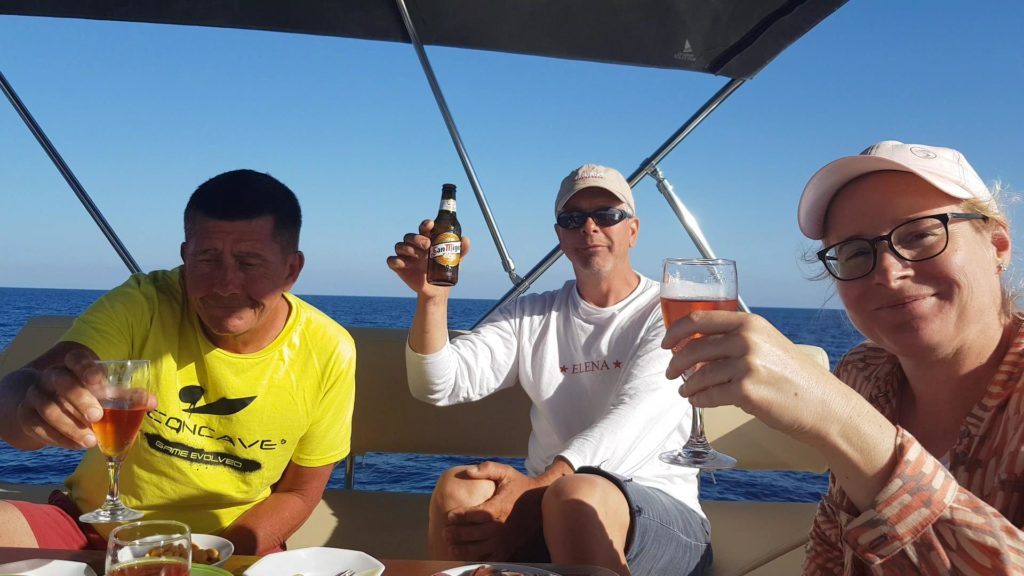Dear friends, we have set up a gofundme page to support a family from Union Island hit by hurricane Beryl. They lost everything. We met Allicia`s and Boyo`s family during our travels several times and have seen their efforts to better their life and the lives of their lovely kids. Please donate a few Euros. It takes less than 2 Minutes of your time. Thank you so much: https://gofund.me/afd22a23
Fantastic 60
I do not mean fantastic 60 thousand nautical miles sailed. I mean 60 years lived on this beautiful planet. I had the privilege of celebrating my birthday in Papeete, together with Nora and our friends Paulina and Mathias and their lovely baby son Teo, who has exactly a 1/100th of my age. One of their presents was this poem:
In Tahiti’s glow, we toast to thee,
Our friend from Tuttlingen, wild and free.
4 years ago, in Cartagena our paths entwined,
With many challenges solved and hearts aligned.
He dives through blue, both free- and deep,
In Montafon’s snow, he makes a leap.
On wing foils swift, he rides the wave,
A spirit bold, forever brave.
With Nora by his side, so sweet,
Their joy and love make their life complete.
She hosts the best of festive nights,
With conversations that delight.
He’s grasped the truth of life’s grand game,
To seize each day without any shame.
To earn enough, yet not hoard gold,
To live full lives, brave and bold.
So here’s to you, our Swabian friend,
May your joy and adventures never end.
With Nora, laughter, snow, and sea,
A life lived well, so wild and free.
Fatu Hiva - Hanavave Bay
It looks like we are cruising a little out of season – again. Why else would we be the only boat in breathtaking Hanavave Bay?
SPLASHED, June 5th 2024
After 4 weeks of maintenance, repairs and boat improvements we are back in the waters of Hiva Oa today.
Something with Dolphins
“Just make something with dolphins” I was asked. Here we go, showing the dolphins of Tiputa Pass of Rangiroa and Hapatoni Bay in Tahuata
Nora chasing sharks
Nora is getting more relaxed and better and better at freediving. To a degree that she cannot help herself not to chase sharks
Proximity FREEFALL
As freedivers descend in the water, the volume of the air inside them gets more and more compressed, thereby changing the buoyancy of their bodies. Lungs, for instance, are compressed in the depth of 30 meters to only 25% of their original volume. This means, typically, at 15 to 20 meters of depth, freedivers can stop using muscles to go deeper. One can just relax and sink deeper and deeper because of the negative buoyancy. This is called a FREEFALL. If you freefall close to an underwater cliff, then I call this a proximity freefall. For me, this is the closest (and the safest) alternative to the crazy wingsuit proximity flying. And I bet that it is more relaxing too.
The end of the world
I read that some people are afraid of the end of the world. So when we heard a sailor saying that “Ua Pou is the end of the world” we instantaneously knew we have to check this out. Once we arrived on Uo Pou we decided to rent a car to get to two very remote villages. Each is an hour or so 4×4 drive into a dead end street. If Oa Pou is the end of the world then these two villages are the ends of the end of the world. What we found were two wonderful communities. Each has a townhall, a school and a well used place to play petanque, volleyball or football. And a church, of course. And, most of all, we found very happy, content and friendly people that seem to live a life in a spiritually rich community. Having seen the ends of the end of the world, I must say, that am not afraid of them
November 2023: Goodbye Tuamotus
To get out of the Cyclone area we left the Tuamotus and sailed from Fakarava via Tahanea and Makemo to the Marquesas. This year`s sailing back to the Marquesas was only a 4-day and 4-night upwind “battle”
Oops, we did it again
Last year we were so impressed by the sharks in Fakarava that we officially renamed this atoll to Sharkarava. We had to come here again and got a breathtaking “welcome back” from hundreds of sharks
October: ENGINE repaired
After more than 3 months and 1600nm with only one working engine we finally received all spare parts. Our friend Jens put the engine back together. Successfully 🙂
Rescued
Christophe, the local fisherman in Rangiroa helped us get to Rangiroa and through the currents of Rangiroa`s northern pass Avatoru
September 2023: Bora Bora & Co.
While spending time in Papeete we had our rigging checked. Guess what: The rigger urged us not to sail any more because at least one shroud needed replacement. We opted to have that repaired immediately so that we could continue sailing (with one engine) while waiting for Volvo to get their act together. The waiting turns out to be very nice because we took the opportunity to visit Moorea, Raiatea, Tahaa, Bora Bora and beautiful little Maupiti. We also found some time to get better in freediving, windsurfing and wing foiling. A year ago Nora could hardly dive 15 centimeters deep. After a freediving course in March in Czech and the coaching of David she now does more than 16 meters.
Freediving into a plane
Next to the airport in Papeete there is a sunken PBY Catalina airplane. Of course, we had a closer look at the plane and particularly it`s fuselage which lays in a depth of 18 meters
August 2023: Back in the water - back to repairs
We made it back in the water in June in Hiva Oa. But one hour into our trip to Tahiti one of our Volvo engines overheated (a lot). We went back to Hiva Oa and tried to repair it. In the Marquesas, however, it is not possible to have a cylinder head repaired. So off we went sailing to Tahiti. Here Volvo has checked everything. Once all spare parts arrive – maybe next month – they will repair the engine. In the meantime we have been enjoying Rangiroa, Tahiti and Moʻorea
June 2023: Back on the boat...
… but not back in the water yet
December 2022: Sharkarava
From the Marquesas we went to Fakarava in the Tuamotus to do some snorkeling and diving. What a lovely place. We were particularly impressed by snorkeling and diving with the sharks. That is why we now call Fakarava Sharkarava. See yourself
The young man and the sea
On our way from Ua-Pou to Nuku Hiva Dion hooked a yellowfin tuna. While Dion is fighting with the tuna the crew gets distracted by a school of melon-headed whales. Unfortunately, several sharks found the tuna to be an easy snack
Wowquesas
People are extremely nice here. When strolling around you constantly hear a friendly “Kaoha”, Marquesan for hello. But what you hear even more often is a “Wow, Wow, Wow!” coming from your friends or from your own mouth when again and again you are stunned by the beauty of these islands. We thought it is better to not post any pictures, because they will not pay justice to how beautiful it is in reality. No worries, this was just an idea. We will share some pale, unisensual, two-dimensional (under-) representations of these islands we now have officially named Wowquesas instead of Marquesas.
October 2022: Arrived!
After almost 20 days at sea we arrived safely in Hiva Oa, Marquesas, French Polynesia. We sailed a total distance of 3300 nautical miles. We had no major technical problems and no one got hurt, besides many squids and flying fish that ended up first on the deck of Barbarella and later in our frying pan.
September 2022: Goodbye Galapagos
After almost 8 weeks in Galapagos it is time to leave this nature and animal heaven. We plan to leave on September 13th for the 3000 nautical miles crossing to French Polynesia. Leveraging the South Equatorial Current, Nora, Phil, Dion and I plan to sail a bit north; a total distance of 3200 miles. Keep your fingers crossed 🙂
Kings of Galapagos
For us it is obvious. The sea lions are the kings of the Galapagos. All of the Galapagos? Well, maybe not all of the Galapagos, but for sure they are in Puerto Baquerizo Moreno, Isla de San Cristobal.
July 2022: Galapagos
We safely arrived in the Galapagos after a pleasant, less than 9-day long sail. We were lucky that we did not have to motor at all, although, once we had left the Panama Bay the wind was straight against us. So the 650 nautical miles turned out to be 1050 nautical miles of beating and tacking against the wind. Good to know we can sail against the wind.
Panama Canal fast forward
Interested in crossing the Panama Canal with us? In this video you can do that in just 15 minutes.
July 2022: Pacific
We made it to the Pacific. Due to Corona we did not make it in April 2020. Due to Corona we did not make it in spring 2021 either. Due to a lightning strike, we did not make it in January 2022. However, we are now finally in the biggest ocean of mother earth.
Caught
On July 1st 2022, exactly 4 years after Barbarella left her home port of La Rochelle, the webcam at the Miraflores lock of the Pacific side of the Panama Canal caught an orange object.
Sharks and rays
Snorkeling in Guna Yala is great. See yourself
June 2022: Guna Yala
Guna Yala, formerly known as San Blas was wonderful. Our most precious asset was our watermaker and our solar panels. The Gunas would come every day to get good fresh water and charge their smart phones. In addition they ask for rice, sugar and other needed items, which they would trade for fish, lobster and crabs.
Grand reopening
Barbarella is back where she feels the best: cruising. We motored and motor sailed two days to San Blas. We just did not have the time to wait for fair winds to finally leave Colombia. Well, there are situations when motoring does not feel too bad. Nora actually said that she had not known that motoring was so easy [compared to sailing]. In October 2019 we filled up our diesel tanks in Gibraltar hoping this diesel would last until the Pacific. Now we will burn the last litre of Gibraltar diesel when crossing the Panama Canal, hopefully in a couple of weeks. To celebrate our safe arrival in San Blas we even reopened the Barbarella Sailing Bar
812
812 days in Colombia. Is that a lot? Not if you consider the beauty and the variety of Colombia and the friendliness of its people. Considering that we planned to stay for 7 days only, IT HAS BEEN A HELL OF A LONG TIME. Keep your fingers crossed that we finally will make it out of Colombia on Monday, June 6th 2022.
April/May 2022: Sea trial and Schnapsidee
On Wednesday April 27th the language finally changed! For 3 weeks I had been hearing that “tomorrow” we would do the first sea trial, meaning we go out on the water to test engines, steering, electronics and calibrate compass, radar and autopilot. The “tomorrow” was followed by 5 days of “we will do it today”, during which nothing happened. Then on April 27th I was told “tomorrow, for certain”. And on April 28th we actually took Barbarella out! The result was that there were still many issues, but none of them critical. This means another 4 – 5 weeks of chasing spare parts, chasing workers or DIY and we should be free to sail again. That comes handy, since the temporary importation permit of Barbarella expires on June 11th and after that date it will be difficult to keep Barbarella in Colombia without fines and bribes.
So I celebrated the successful sea trial with Winslow, a friend from Cleveland and with Nicolas from Cartagena; and, among other drinks, with a bottle of great Colombian Rum.
Somehow the following headache did not teach us to stay away from alcohol for more than a day. Meaning on Saturday we went out again with a bunch of friends for “just dinner and then home”. “Just dinner and then home” ended up with Winslow and me talking to the two girls from Berlin, Sophie and Anna, at the next table. They had to leave Cartagena the next morning to go to Isla Salmanquilla, 40 nautical miles south of Cartagena, where they had a booking at a hotel the next day. After another round of coco locos someone mentioned (must have been Winslow, I guess) that he knows someone who has a boat that just passed a successful sea trial. After another round of coco locos it was unanimously felt that we should all meet at 7:30 AM at Barbarella, i.e. in a few hours, to sail to Isla Salmanquilla. And so we did! In German we call this a Schnapsidee – which is a great German word that combines Schnapps and Idea – meaning an idea that comes up when you are drunk and you think it is great, but the next morning, when sober, it might not appear to be the best idea any more. Anyway, we did go. Luckily it turned out to be GREAT. It was so good to be back sailing Barbarella after 385 days of its immobile status and repairs.
February 2022: Visiting the Amazon jungle
While Nora is sorting things out in Europe, the lightning damage repairs continue and we keep on waiting for many spare parts, Jürgen and I spent a week in the Colombian Amazon jungle. What an amazing place. Right at the river Amazon, 1100 Kilometers upstream of Manaus, where Colombia, Brazil and Peru meet. No road leads to this area. Everything has to be brought in by plane or – like Colombian beer, motorbikes, cars or fuel – has to be brought by boat almost 2000 Kilometers to the Brazilian Amazon river and then 300 Kilometers upstream to Leticia. Not an easy undertaking and because of low water levels there has been a shortage of fuel and beer while we were in Leticia. Fortunately there is a lot of illegal Brazilian beer coming over the Brazilian boarder, and the Peruvians supplied fuel.
Vacation in San Blas and Panama City
Christmas, New Year’s Eve and beyond 6th of January (Días de los Reyes Magos) is one of the biggest festive and holiday season in Colombia. Nobody is working. Instead of waiting for workers and spare parts not showing up in Cartagena and getting frustrated, we decided we would have a holiday in Panama.
Our fellow sailors Neal and Darlene Petersen offered us to join them sailing on their high performance catamaran “El Gecco” to San Blas and to spend Christmas there. It was an easy decision, so we hopped on their boat and sailed to the beautiful islands of San Blas together with them. The passage was extremely interesting. We have sailed with people that had done sailing races before. However, we have never had a privilege to do a passage with someone who had done so many solo trans ocean races and even raced twice solo around the world. Once in San Blas we met with Ferdi and Deon – father and son – who taught us free diving and made sure that every day there was fresh fish and seafood for dinner. Thank you Ferdi and Deon :-).
On the New Year’s Eve we had fun in Panama City.
Now back in Cartagena we are busy fixing Barbarella so that we can sail to San Blas again, in our own boat, as soon as Barbarella is fit and repaired, hopefully, in April or May 2022. Fingers crossed.
December 2021: Heat and ligthning in Cartagena
On November 21st I arrived in Cartagena. At first glance Barbarella looked to be in a very good shape. Unfortunately, however, that was not true. While Nora and I had been in Europe, Barbarella had had a direct lightning strike. Most probably, all electronics like chart plotters, AIS, VHF, auto pilot, GPS, compass and radar etc. will need to be replaced. Many lights need new relays and so do the freezer and the fridge. I got even more disappointed, when I tried to start the diesel engines: neither would work. This means several months in the Ferroalquimar shipyard with a lot of heat, dust, noise, mosquitos, in the middle of an industrial area, 30 minutes from the downtown Cartagena. Not quite the vacation I was hoping for. What to do? Ask your friends! What they came up with, you can see in the video “Escape from Ferroalquimar” below:
Do not sail back to Aruba II
‘Do not sail back to Aruba’ is what our friend Greg and many others sailors who know the route told us. French Polynesia was closed to most sailors, including us, during the majority of 2021. At the same time, sailing in the Caribbean had also several constraints due to Covid. Most importantly, we did not want to get caught by surprise (again) and be forced to spend another 94 days (or even more) somewhere at anchor without being allowed to leave the boat.
Spending another hurricane season in Cartagena was possible, but wouldn’t it be so much nicer to explore another – hurricane safe – place? With that in mind, we decided to give it a try to sail from Cartagena “straight” back to Aruba. We were three crewmembers: Nora, Jürgen and I and we tried twice.
The first attempt lasted only 4 hours. Then a strange wave hit us and our main sheet traveler car broke down. The working load limit of 1.8 tons of the traveler car was obviously too low for that wave. Regardless, if it hadn’t been for the traveler car, who knows what the second “weakest link” would be that would break, if the traveler car had been a bit stronger?
Since it can take up to several months to get a traveler car shipped to Colombia (actually that is the fast bit) and through Colombian customs (that is the uncertain bit), we decided to jury rig the traveler car and set off for a second time a few days later. This time, we got everything right. In winter and spring the most difficult part is getting from Cartagena to Santa Marta. Whereas in summer, usually, the strongest wind and highest wave area moves further east towards Cabo de La Vela.
Crossing in March, we thought of a simple strategy: let’s make it first to Santa Marta and then let’s take it from there – somehow – to Aruba. For the tactical decisions how to get to Santa Marta, we benefited from the wind typically calming down at around 2 or 4 AM and then picking up again at maybe 11:00 AM. This allowed us to plan two trips, leaving at around 4:30 or 5AM each of the two days it will take Barbarella to get to Santa Marta. We planned to seek shelter the first night in a bay we thought is very safe for anchoring. As to the second night, we hoped to arrive at Santa Marta Marina. Planning the second leg was tricky, because we did not want to leave earlier than 5 AM, as we wanted to pass through the river mouth of Magdalena River at daylight in order to, at least, be able to sight logs and other stuff the river regularly carries into the Caribbean Sea. When approaching the Magdalena River mouth, on the second day of our journey, we were called on channel 16 by Barranquilla port control. They were watching us and gave us detailed recommendations on how to pass the river mouth and how to stay away from the ever-changing sand banks and the breakers that come with them. Half an hour later a big freighter called us too. They gave us their observations and insights on how to proceed safety. It felt extremely comforting to know that others out there care for you. At the same, time it showed us that sailing west to east along the Colombian is not too common during that particular time of the year.
After passing Barranquilla, we hoped for the wind to shift a bit during the day, so that we did not have to tack that much. The wind did exactly that. As forecasted, and as we wished for, we could sail in one big curve, parallel to the “new moon shaped” shore towards Santa Marta, where we arrived 6 minutes after sunset.
There, in line with our strategy, the worst was over. At least, that is what we thought. We rested two days at Santa Marta and left again at 5 AM in the morning, taking advantage of the very low wind, forecasted: at 8 knots with 16 kts of gusts. The plan was to motor or to motor-sail as far eastwards as long as the wind stays low, subsequently to start sailing and beating against the wind once it would be too strong to motor against it, which was forecasted for around 12:00 or 13:00. Unfortunately, however, as soon as we passed the first cape, a couple of miles north of Santa Marta, we found ourselves in 36 – 40 knots of sustained wind, with gusts into the mid 40ties. ‘What happened to the forecasted 8 to 16 knots?’ we thought. Maybe, it is only the cape effect, we reckoned and further out there would be less wind. But with mountains as high as 5000 meters nearby the “cape effect” area could be a larger one. Hence we sought shelter in the first bay north of Santa Marta, where we reassessed the situation having nice goulash and spätzle from Leon de Baviera for lunch. Later that afternoon, the wind seemed to have calmed down. A passing freighter, which we called on the radio, confirmed that the wind was down to a “gentle breeze” of 25 -30 knots. So we reinstated our journey. For the rest of the afternoon we were beating into the wind with a true velocity made good of 2.5 knots. That meant – since the wind (and 2 – 3 meter waves) came directly out of the direction of Aruba – every hour sailed, we only got 2.5 miles closer to our target: Aruba, which was 250 miles away. At least it was easy math to calculate how long we would have to beat against the wind and waves. During the first night shift, the wind picked up again to 36 knots making sailing very uncomfortable. As we all know, during the night, when one cannot see the waves and the gusts coming, the wind feels much stronger and the waves appear much higher than during the daylight. Of course, the updated weather forecast did not foresee this increase of wind that far out, away of the Colombian coast.
With 4 more days and nights ahead of us, we quickly realized, it would only be a question of time before a line would chafe, blocks or the jury rigged travel car would crack …
In the end, we made the difficult decision to turn around, sail back to Cartagena and spend another hurricane season there. In total, it took Barbarella more than 4 days from Cartagena to the point where we turned around. Sailing back, downwind, was however a smooth and cozy ride for only 18 hours…
Now Barbarella awaits in Cartagena for our return from Europe in December 2021…
Leon De Baviera
Leon de Baviera is an excellent German bar and restaurant in Cartagena. While we were not allowed to go on shore and had to stay on Barbarella from March to June 2020 the two lovely owners of the Leon de Baviera – Victoria and Stefan – would see Barbarella almost every day when they were having breakfast on their balcony. Unfortunately, we did not have their phone number and did not know they had observed us almost every day. If we had had their number, we would have ordered daily boat delivery of their great German food and German beer. What a pity! During January 2021 to May 2021 we made up for that by visiting them many times in their bar and restaurant. For our Pacific crossing planned for 2022 (fingers crossed!), we have already requested 15 cases of Paulaner Oktoberfest and many of their homemade sausages and Käsespätzle will certainly find their way into our freezer …
Angel
“I don’t believe in the existence of angels, but looking at Luz Elena I wonder if that is true”. (Lyrics stolen with pride from Nick Cave).
We had the privilege to meet Luz Elena and visit the school she is running in Cartagena, many smiling children, teachers, cooks and a facility manager. The school Luz Elena runs caters for 100 children, all coming from one of the poorest neighbourhoods in Cartagena. Before Covid the school property could school up to 50 children in the morning and again 50 in the afternoon. From March 2020 to August 2020 the school had to be closed because of the strict Covid lockdown. When Luz Elena had the chance to see her children again in August, she realised that many of them had been underfed. Unfortunately, the Covid rules mean that she could not yet reopen the school for all of children as before the Covid. Hence, Luz Elena came up with a new scheme that allowed her to partially re-open the school. Now she runs six time 1.5-hour slots every day for 5 days a week, with fewer kids per slot. So each child gets 1.5 hours of classroom education every day – but most importantly, each child gets a full meal at the school every day. For many of the kids that is the only meal they get that day. Despite all this great work the school does not get a single peso from the Government in Columbia or the City of Cartagena
The visit has been extremely emotional for us and we are grateful that we could contribute to the work of Luz Elena. If you want to do the same PLEASE support Luz Elena via the foundation of my friend Stefan Schumacher here: https://www.schuhmuckl-ev.de
February 2021: Nora is back and Barbarella is getting ready
Despite all the travel restrictions Nora and Jürgen managed to join Barbarella again. We are working hard to get Barbarella in a better shape than ever. And we enjoy Cartagena
January 2021: Back on track - back in Cartagena
On January 14th I flew back to Cartagena. My friend Jürgen is scheduled to join on January 25th and Nora hopefully joins at the end of February. And when the admiral is back Barbarella needs to be in “ship-shape and Bristol fashion”
Message in a bottle
During our Atlantic crossing in November and December 2019 we sent a message in a bottle. In the middle of the Atlantic, right between Cape Verde and Barbados we “mailed” them. Guess where one bottle was found?
March to June 2020 - quarantine in Cartagena
We left Bonaire on March 12th 2020. When we arrived in Cartagena on March 16th the authorities claimed that the borders were closed until June 1st 2020 and that we were not allowed to enter Columbia. We had to anchor Barbarella in the quarantine area downtown Cartagena, guarded by the Armada Nacional. We could not move the boat elsewhere, nor could we go on shore.
Thanks to some truly great Columbian friends we were provisioned with fresh food regularly. We had loads of dry food. Since we had originally planned to sail across the Pacific we stocked up plentiful in Martinique and Bonaire. E.g. our strategic toilet paper stock would have lasted > 6 month :-).
After 49 days on board we were allowed to go to the marina by dinghy. We were still not allowed to move the boat or enter the country, we could only go to the marina. However, this made a huge difference, because in the marina we could easily replenish water, take showers, do our laundry, have WIFI and even get a take away lunch from the marina restaurant. And, as a bonus, we could meet other fellow sailors and made new friends. That was a wonderful improvement.
At the end of May, the Columbian government decided to keep the borders closed until September 1st. That would mean, we had to stay at least another 100 days at anchor on board, with all the Columbian summer heat, humidity, thunder storms, “culo the pollos” (20 minutes local weather phenomena meaning strong squalls, rain and wind of up to 50 – 60 kts), etc. and with no guarantee that the boarders would open September 1st. Hence, Nora and I decided that we would not wait another 100 days. We really needed to get into Columbia or to try to get Barbarella stored on the hard so that we could leave Columbia by plane. If that did not work out, we would have to try to sail back to Bonaire, Aruba or Curacao – against strong winds, waves and serious currents.
Europe we are coming
Since trying to sail back to Aruba was only the option of last resort, we intensified our hard
work to get into Columbia (or at least to get into Columbia just to leave Colombia). Together with: our immigration lawyer, the Consul of Turkey, the Consul of the Check Republic, the Honorary Consul of Sweden, the Czech and German Embassy and most importantly the president of the Marina Club de Pesca, as well as many other friends we finally managed to get our passports stamped, get Barbarella on the hard, get a taxi organized for the 1100km ride from Cartagena to Bogota through all the road blocks due to strict curfews in order to catch a humanitarian flight back to Europe, etc.
THANKS AGAIN to everyone involved for your GREAT support in getting us those “bloody Colombian
stamps” in our passports
"DO NOT SAIL BACK TO ARUBA"...
is what Greg Dorland, a friend of ours and one of the best and most experienced sailors we know texted us unprompted and in capital letters when he learned in May that we are seriously considering to sail from Cartagena to Aruba. He continued ” I heard from around the world racers that is the most miserable upwind, up current slog you can make. I believe it is only better in October”.
Still, we thought to ourselves, whatever we will do, we will NOT stay in Cartagena another 100 days (in the end, it would have actually been another 130 days until Columbia opened its borders for regular flights to Europe). In the video you see what wind, currents and weather considerations we took in assessing if it was possible to sail to Aruba. In the end if you want to escape prison then do not expect to be able to just walk out the front door.,
Marina we are coming
After 49 days on board we were allowed to go to the marina: Club de Pesca by dinghy. We were still not allowed to go on shore other than of the marina. But it, regarless, felt GREAT to replenish water, take showers, do our laundry, have WIFI, meet other sailors and make new friends. We could even bring our bicycle and do circles on the parking lot
Entertainment
On Barbarella we have around 200 DVDs. These are all the great movies we collected over the years and planned to watch “once we have time”. Now was the perfect opportunity to do so. Unfortunately our DVD player broke down after the first movie 🙁
So we had to enjoy nature’s night entertainment instead
Cartagena downtown - at anchor
For three month we had plenty of time and opportunity to enjoy the great view of Cartagea
Approaching Cartagena downtown
On March 20th we were finally allowed to seek shelter in downtown Cartagena
They allow us in...
… at least that is what we thought
March 2020 - Cartagena
On March 16th we arrived in Cartagena. Read our translation of the article of our arrival of the Czech Reflex Magazine from April 2020:





Superstitious
Last night on our way to Cartagena we were accompanied by two stowaway birds. What is they want to tell us about our passage to Cartagena?
Fire and ice on our way to Cartagena de Indias
After we checked with our agent (yes, that is needed if you want to get into Columbia by boat) that there is no problem regarding Corona we left Bonaire in the evening of March 12th. On March 15th we saw Columbia for the first time. What a sight…
Nora parting the sea 😉
On Cayo de Aqua, Los Roques, Nora used her superpower to part the sea and she obviously enjoyed the walk-run between the two islands separated by the Caribbean waters
Staying a few days in Bonaire
Our visitors Marcel and Markus flew home, just in time before the Corona closed the borders. Nora and I had time to visit Bonaire, to go for some Windsurfing and to visit the Bonaire National Park …
March 2020 amazing Los Roques, Venezuela
At the beginning, we were sceptical how safe it is to go to
Los Roques, Venezuela. Media reports are full of how bad the situation in Venezuela is. Since Los Roques is around 70nm away from the Venezuelan main land we took the risk and decided to go there. I previously visited Los Roques
in 2005 and expected everything now being dilapidated and poor. WHAT A SURPRISE! After the landfall, Gran Roque was more beautiful than ever. Locals had been painting their houses and everything was clean and well maintained. We met great people, discussed the situation in Venezuela in general and discussed their personal situation in particular. We learned how they try to cope with the difficult economic and political situation. Local people do not have a lot resources and opportunities, but they are working hard on making the best out of it. On one of the islands, in Los Roques, the Venezuelan government even still runs a sanctuary for sea turtles.
Everyone was extremely friendly, helpful and appreciative
that we visited their country. During one occasion we asked local fishermen, if the kind of restaurant they seemed to have run was open. They said: “Unfortunately we were closed today, because our wives are in Gran Roque today”. Two hours later the fishermen came to us with 3 pieces of fish they caught, filleted for us. They wanted to give it to us for free so that we could have something for dinner. These people do not have a lot but the little they have, they even want to share…
February 2020 - Martinique to Grenada
In February we visited St. Lucia and the Grenadines on our way to Grenada. In St. Lucia we did not only drink the local beer “Piton”, but we also climbed the Petit Piton, which was pretty steep!
Drone videos
Guntmar enjoyed flying his drone in Tobago Cays, Union Island and Mopion…
January 2020 - Grenadines
While Nora spends a month back home in Brno, we were visited by Vogi and Guntmar. For two weeks we enjoyed the Grenadines…
Windsurfing in Mopion
Our friend Guntmar brought his drone. A perfect chance to get great aerials from a little ride in front of the beautiful island Mopion…
Happy turtle
There are plenty of turtles. This one “flies” with grace next to Barbarella…
January 2020 - Tobago Cays
We spent New Year`s celebrations in Union Island, Tobago Cays and Bequia. In Tobago Cays we took a chance to swim with a “dalmatine” ray…
Barbados
After more than two weeks being on the water we enjoyed Barbados and the house on the beach Kevin rented for us and his family
Happy dolphins
During our Atlantic crossing we saw Dolphins several times. These, we were able to record under water…
November 13th - December 12th 2019
On November 13th we set sail for Barbados via Mindelo. After 5 and 1/2 very windy days (850nm) we arrived in Mindelo. We enjoyed a 6-day break and then continued to Barbados (2016nm) arriving safely, happy and a bit tired after another 15 and 1/2 days. We will add more pictures and videos later. For now enjoy some preview pictures…
October 2019 Passage from Cadiz to Las Palmas
We had an excellent 5-day passage from Cadiz to Las Palmas, Gran Canaria, together with Uli and Felipe. The first day was a bit too chaotic, with short and unpleasant waves. Afterwards, we had a relatively smooth ride, needing just 6 hours of motoring towards the end of the passage. We also had our Parasailor up continuously for about 40 hours. This gave us a smooth and relaxing downwind sail, day and night. However, not all went well. During a gust, the sheet of our Gennaker broke and we lost the entire sail. On one of the enclosed pictures, you will see the broken sheet and the leftover of one line: the only thing remained from our sail ….
August - October 2019
We had a great time both in Sardinia and in Elba. We also attended a fantastic wedding in Mallorca. We met many of you along the way. Stay tuned – we shall update our website with pictures and videos for you. In the meantime, enjoy yet another dolphin video, we shot around Corsica ….
How to launch
…a windsurfer. Big advantage of launching your windsurfer from Barbarella is that you can rig everything on her trampolines. Then you just toss the gear overboard 🙂
Window repaired finally - and birthday visit
Our broken side window could not be repaired in Port Ginesta so we had to sail to Mallorca where we got EXCELLENT support from Clipper Marine. They did the window, with Barbarella out of the water. The work was finished just in time for the surprise 50th birthday visit of Kevin`s brother and his lovely family. Immediately afterwards we sailed off to Sardinia
July 2019 - wedding visit in beautiful England
On July 13th we had the honour to attend the wedding of our friends Adela and Paul in Bristol on the SS Great Britain. The SS Great Britain was build in 1843 by Isambard Kingdom Brunel – the Elon Musk of that time. After the wedding we spent another week in England visiting our many friends there
Happy jump
Kevin jumps for joy because we finally made it to the right bodega – after we spent two hours in the bushes because Google maps thought there was a road where there was none
Castelldefels
We spend several weeks in Port Ginesta & Castelldefels fitting enhancements on Barbarella and undertaking some warranty repairs, road trips and a trip to England to attend a wedding
"always be yourself
…unless you can be batman.
Then always be batman”
was the motto of the month. No wonder, we frequently visited the chiringuito Rat Penat. Of course, we brought our visitors Freddy, Kevin and Jürgen there

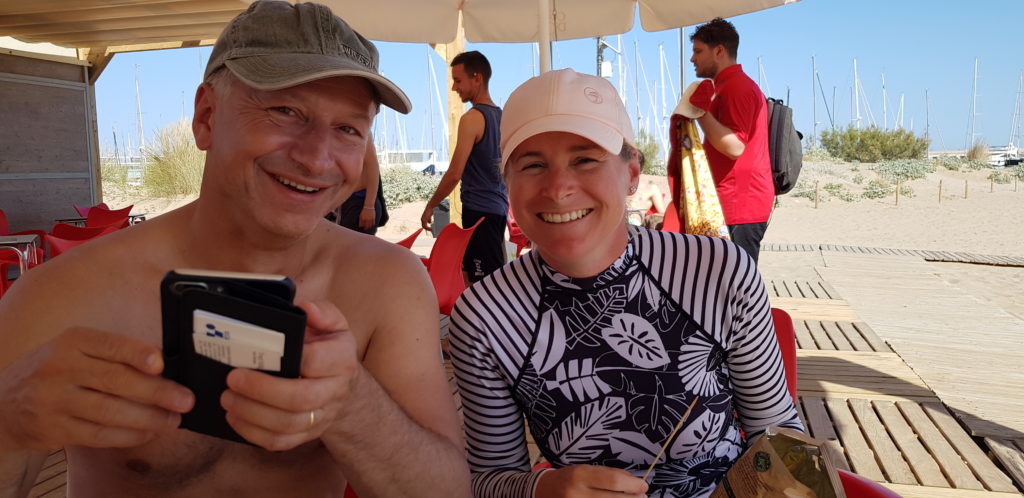
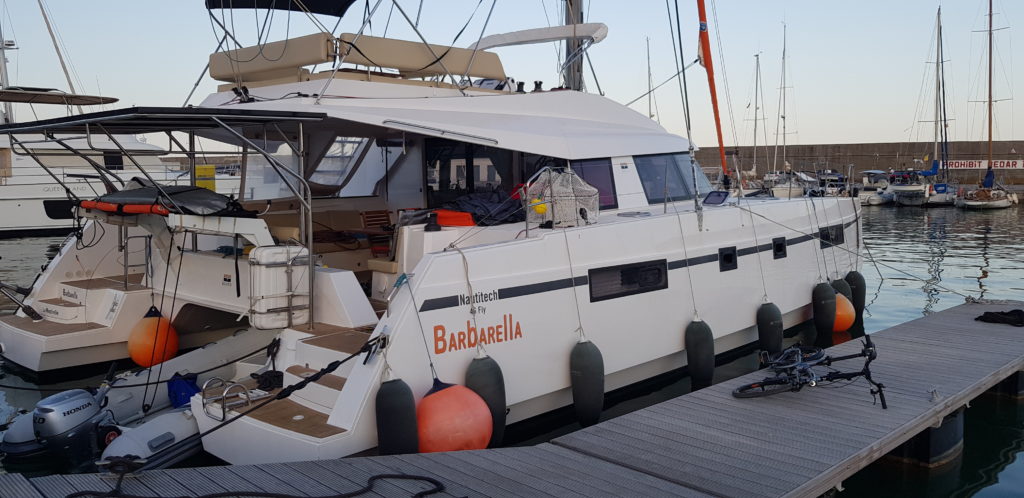
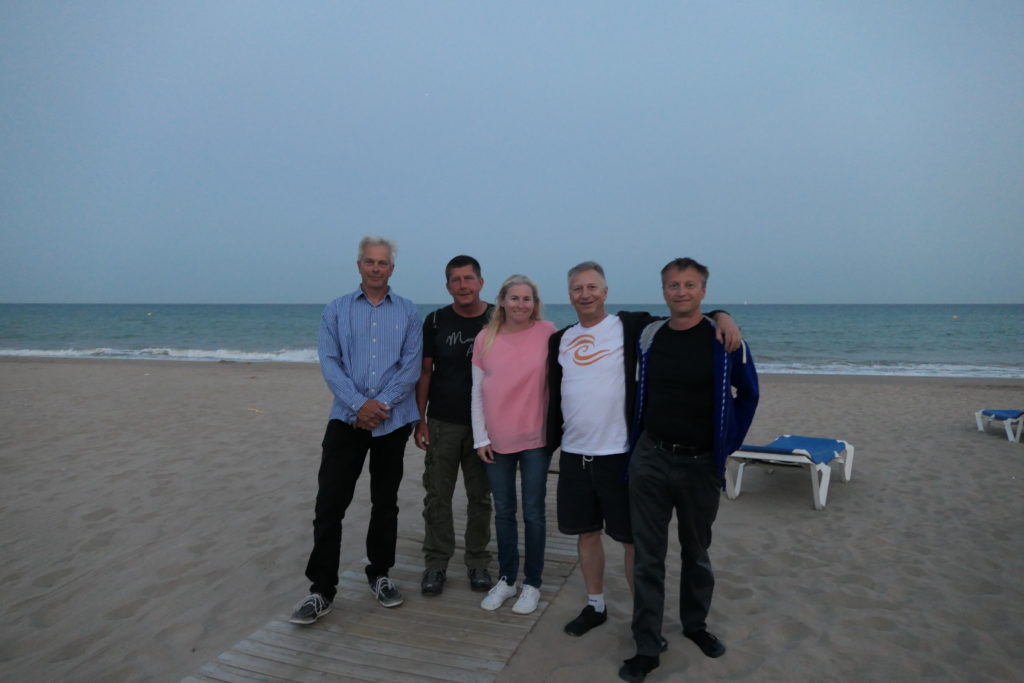

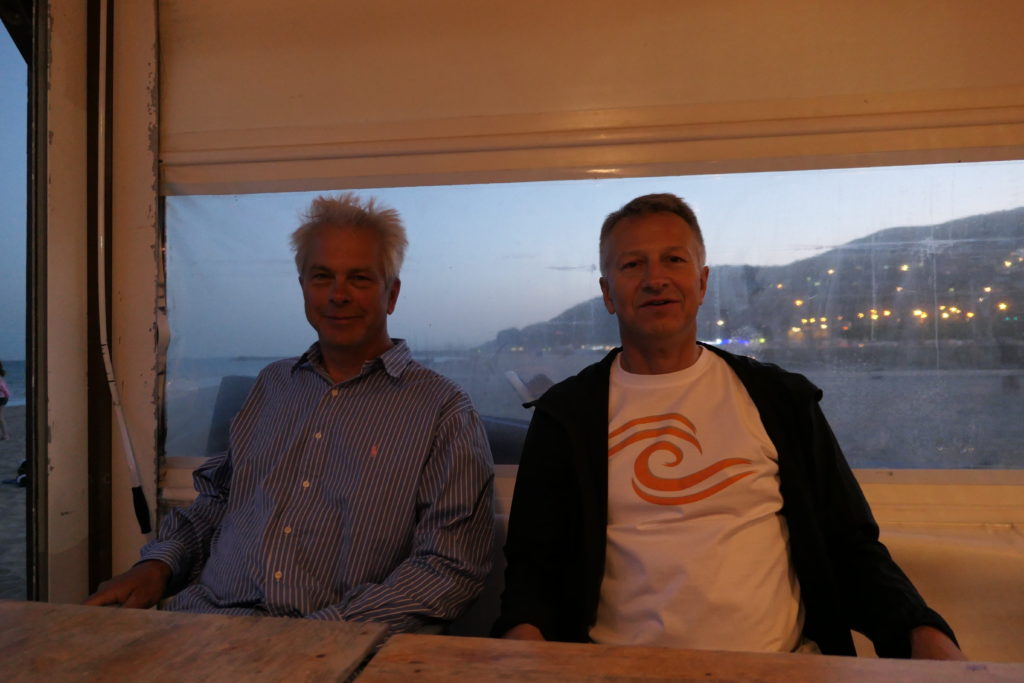
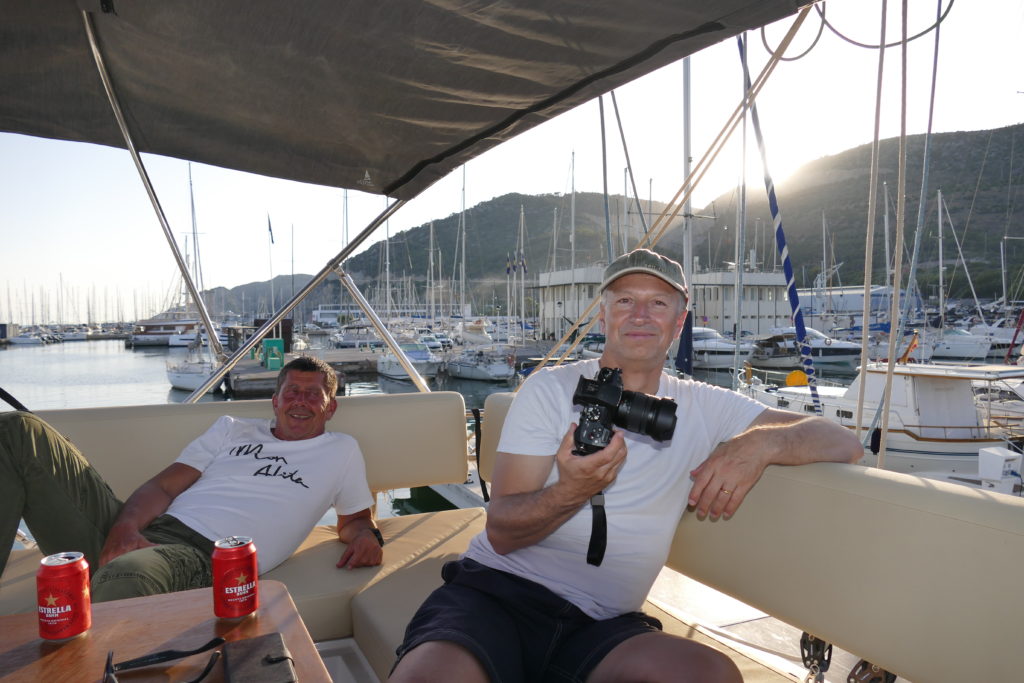
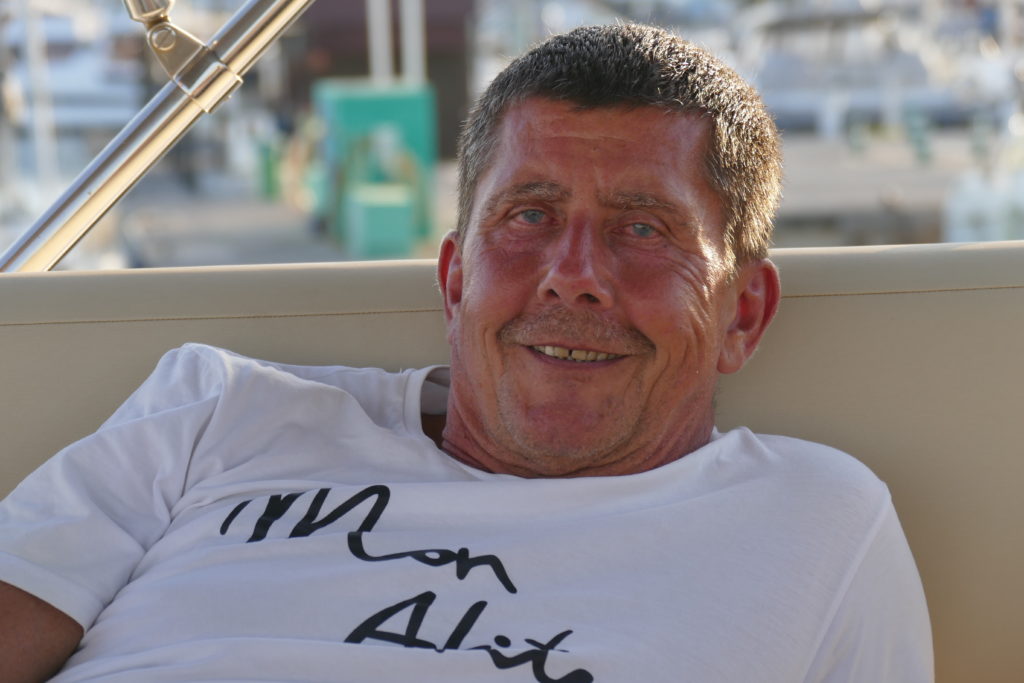
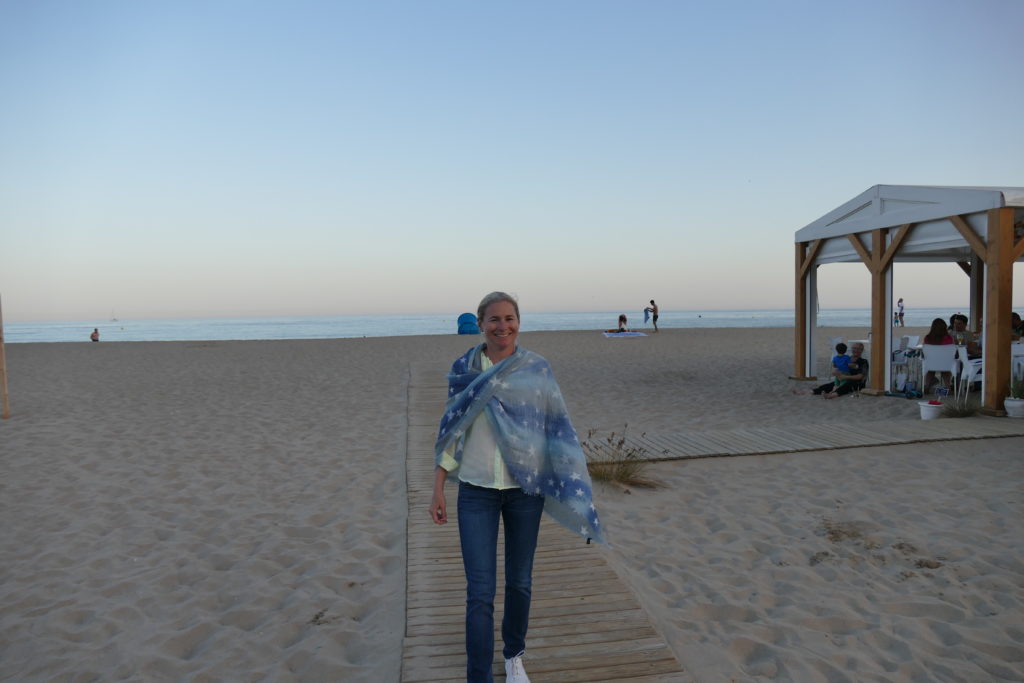
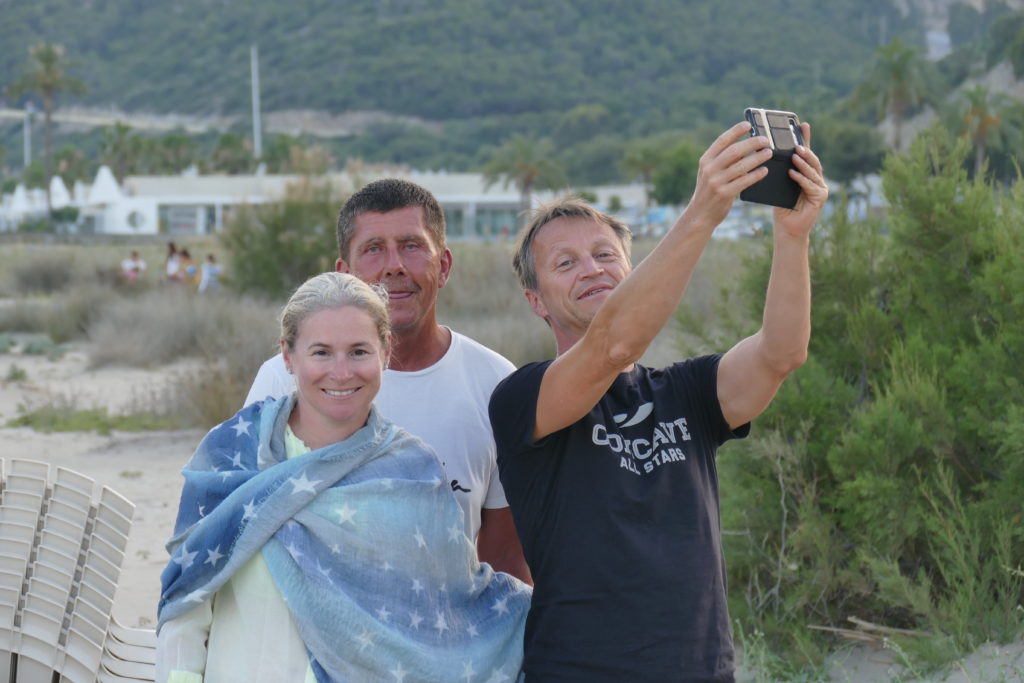
Pointing
Many catamarans – at least those without daggerboards – do not sail upwind very well. Barbarella is no exception. To get to Port Ginesta / Castelldefels we sailed all night, that is from 20:00 to 08:00, with winds between 12 and 20 knots, just to get 31 nautical miles upwind.
Yes, you calculated it correctly. This is a staggering velocity made good of 2.5 knot
Window getting loose
In Formentera we realized that a side window was getting loose. We had to jury rig it with duct tape so that we get safely to Barcelona where Nautitech sent us to have it professionally repaired, Little did we know that it will take two month to have it repaired – finally in Mallorca
June 2019 sailing from Gibraltar to Barcelona
We had a good time sailing to Barcelona with a nice stop at beautiful Formentera and Cartagena
Nora is enjoying the dolphins...
…while we are speeding with 12 knots
Going too fast
While speeding from Gibraltar to Cartagena our Watt & Sea Pod propeller lost all its blades because at top speed of 19.9 knots we were far too fast for our underwater electricity generator
June 14th 2019 we are speeding from Gibraltar to Cartagena
On June 14th 2019 we left Gibraltar for Cartagena using good winds and waves to speed along at 10.8 knots average and 19.9 knots top speed
Dolphin Dreaming in May 2019
In May 2019 we took Barbarella for a chilled afternoon sail across the Strait of Gibraltar
Barbarella & Parasailor wedding present 2014 - 2018
19 minutes Video how we searched for Barbarella starting 2014, how we “found” Barbarella in 2016 and how we got our Parasailor wedding present in 2017 and where we sailed in 2018
Install Watt & Sea Pod in June 2018
Falling dry in La Rochelle to install our watt & sea pod

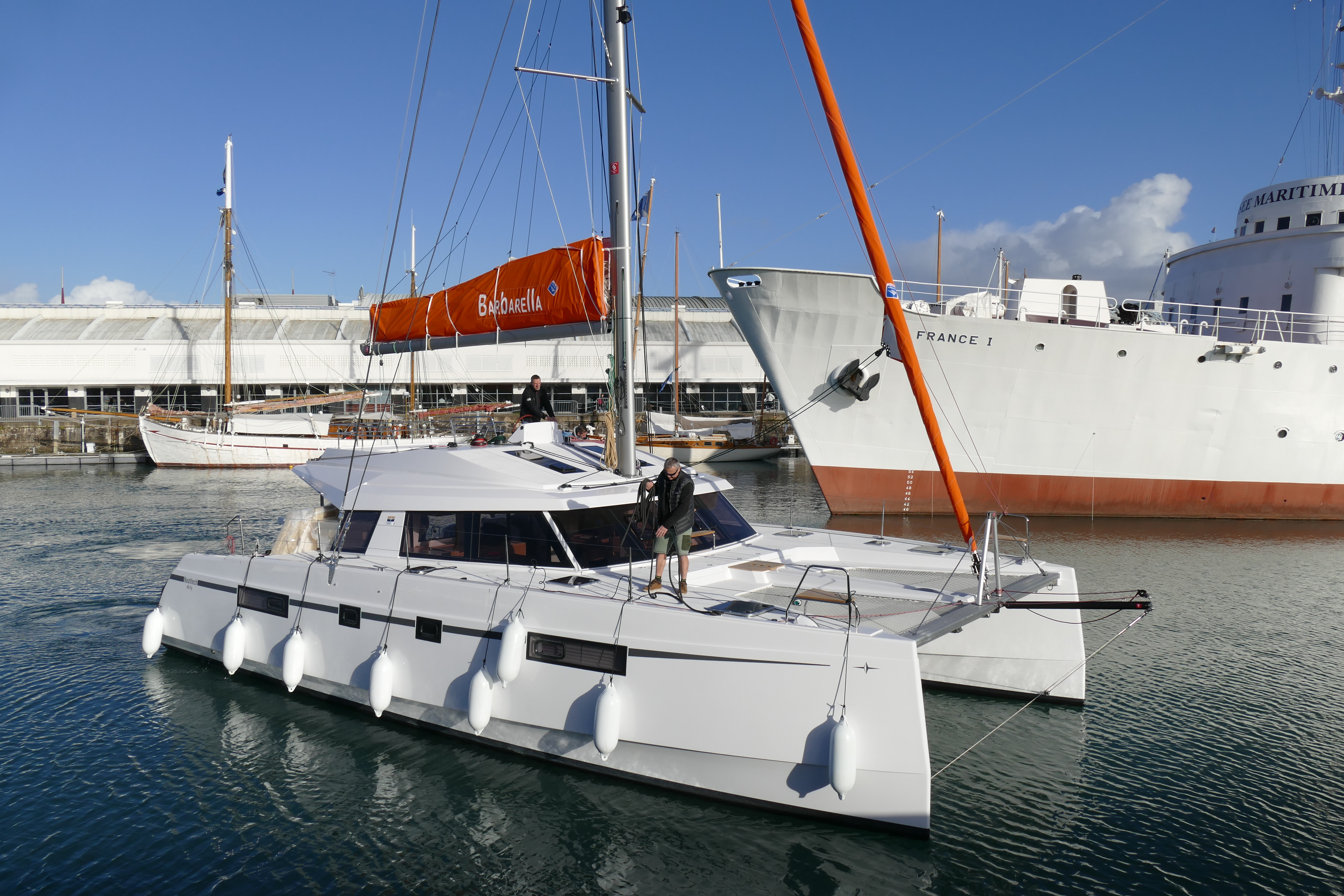
First test in La Rochelle in March 2018
First part of sea trials with our surveyor
